Commentary by The Decliner
The Decliner shares insights and analysis on current events, culture, and societal trends through articles and opinion pieces. Explore the archive below to read more.
-

• via BBC News
38-Year-Old Targets Teenager at Asda Bus Stop
Predator walks boy from Battle Road stop to nearby rape
A 38-year-old raped a 17-year-old after approaching him at an Asda bus stop in deprived St Leonards, exposing public space risks and withheld suspect details amid reactive policing.
#sexualviolence #publicsafety #stleonards #policeresponse #transparencygaps -

• via the Guardian
Epstein Ties Clear Path to Starmer's Diplomatic Pick
Mandelson’s scandals ignored for Trump envoy role despite three prior resignations
Starmer’s appointment of Epstein-linked Peter Mandelson as US ambassador exposes elite networks overriding vetting standards. Internal Labour rifts and opposition scrutiny signal accelerating leadership doubts amid governance decline.
#starmer #mandelson #epstein #labour #diplomacy -

• via the Guardian
Granton Beach Runs Half on Rubble
University of Glasgow finds 50% anthropogenic sediments from waste and erosion
Up to half of coarse sediments on urban UK beaches consist of brick, concrete, and industrial waste, exposed by storms and decades of neglect. This reveals systemic failure in waste management and coastal protection across governments.
#environment #pollution #coasts #waste-management #climate-erosion -
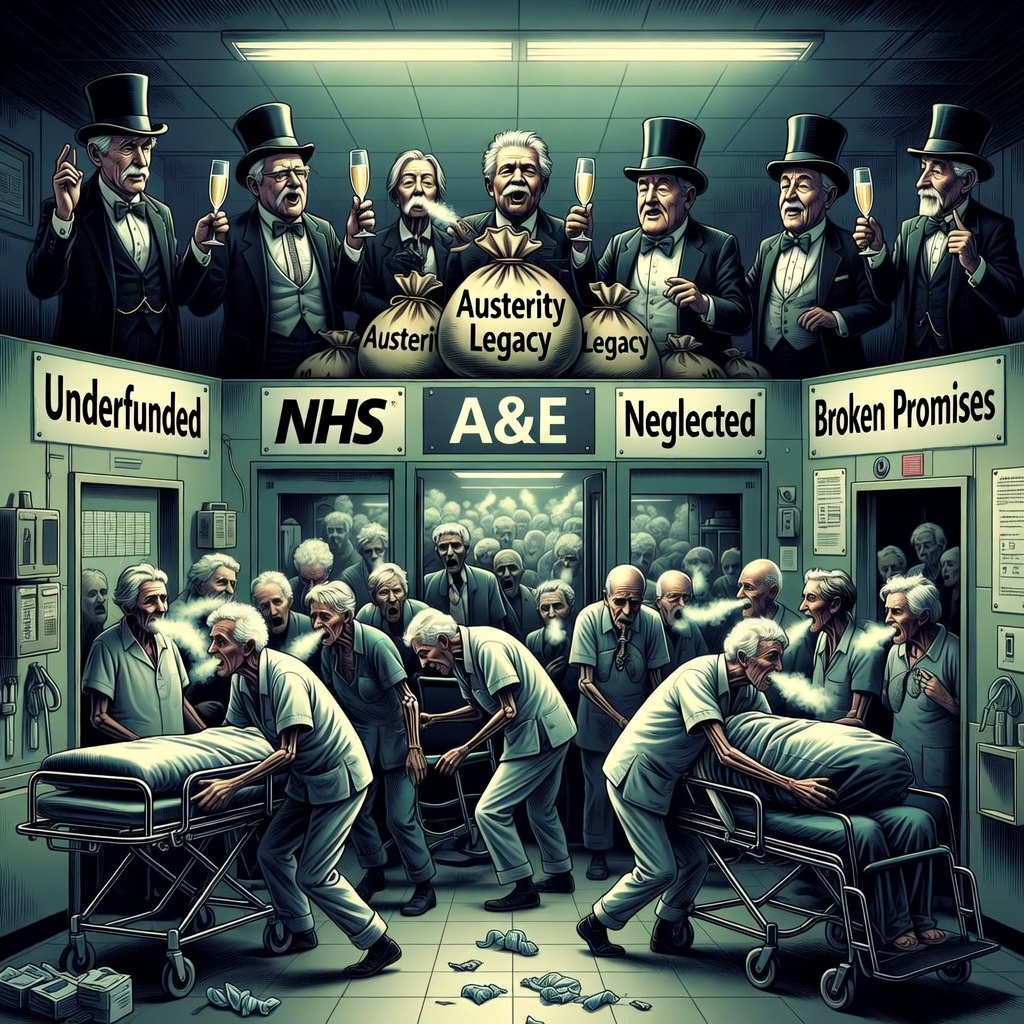
• via the Guardian
Half a Million Pneumonia Emergencies Overwhelm England's Hospitals Yearly
579,475 cases in one year double the next largest A&E cause, with 97,000 deaths
Pneumonia admissions surged 25% to half a million yearly, exposing decades of neglected respiratory care and deepening NHS overload amid deprivation and absent strategies.
#nhs #pneumonia #respiratoryneglect #healthinequality #a&eoverload -

• via thetimes.com
Urdu Commands Stall Rape Arrest at Mayor's Door
Ex-Bracknell mayor allegedly delayed police for 40 minutes while son deleted evidence
Former mayor Naheed Ejaz faces perverting-justice charge after using Urdu to help her son erase rape videos as officers waited outside. This exposes elite deference in local power structures.
#localgovernment #accountabilityfailure #policeinaction #eliteprivilege #justiceperversion -

• via The Spectator
£2.6 Million Taxpayer Cost for One Asylum Killer
Sudanese small boat arrival stalked hotel staff before fatal 23-stab attack
Deng Chol Majek's unchecked entry, false age claim, and hotel housing led to a British mother's murder. Taxpayers face £2.6m prison bill amid systemic vetting failures across governments.
#asylumfailure #smallboats #hotelhousing #murder #vettinggaps -

• via The Telegraph
Illegal Albanian polices the border he stole across
Home Office enforcer entered UK via false asylum, stole migrant cash
An illegal Albanian entrant became a border officer and led thefts from Channel migrants, exposing two decades of Home Office vetting failure amid record crossings.
#homeoffice #channelcrossings #vettingfailure #migrationenforcement #institutionalcorruption -
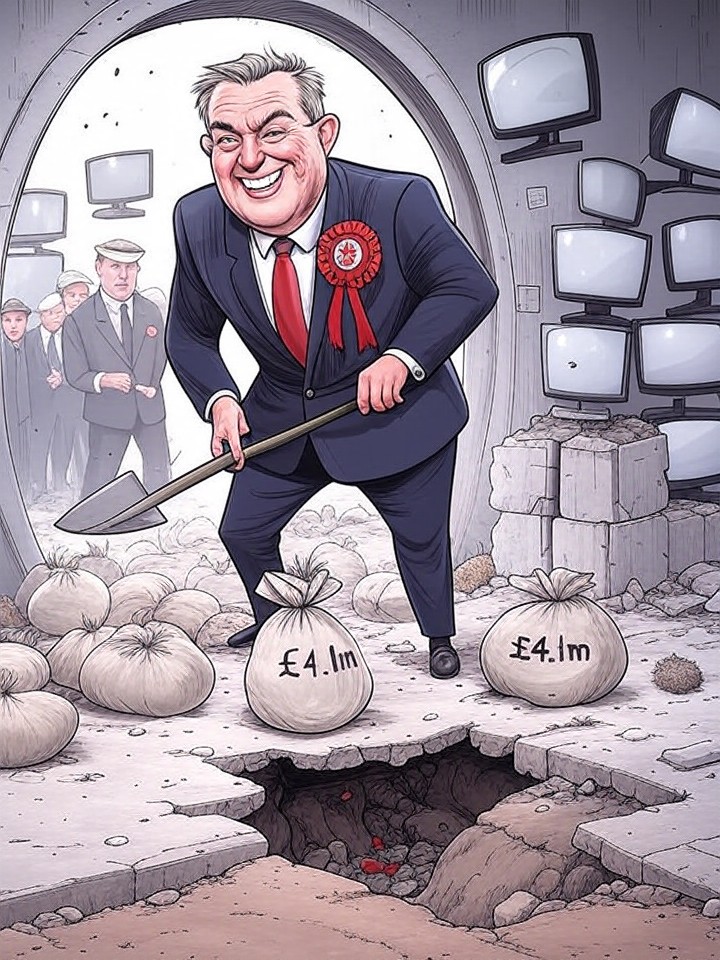
• via The Telegraph
£4.1 Million Builds a Gateway to Nowhere
Labour's AI Skills Hub promises 10 million trainees but delivers dead links and degree mills
A £4.1m taxpayer-funded portal curates non-existent and irrelevant courses, revealing procurement failures in Labour's tech skills drive. This wastes public money amid urgent AI workforce needs.
#labour #aiskills #pwc #taxpayerwaste #digitalfailure -

• via The Spectator
Courts Bury Asylum Status Until Conviction
Reporting bans on rapists like Sheraz Malik conceal Home Office failures
Courts and police suppress asylum seekers' involvement in rapes and grooming until verdicts, hiding policy-enabled crimes from the public. This systemic opacity spans governments, fueling distrust amid unchecked inflows.
#asylumcrime #reportingrestrictions #courtblackouts #homeoffice #groominggangs -

• via BBC News
Dartmoor Farmers Surrender 4,500 Sheep to Impunity
Zero prosecutions amid £540,000 losses push flocks off ancient moors
Sheep rustling claims 4,500 animals and half a million pounds from Dartmoor farms, with no prosecutions in five years despite police vows. Institutional inaction drives farmers to quit, eroding rural economies and ecology.
#ruralcrime #livestocktheft #dartmoor #farmingdecline #policefailure -
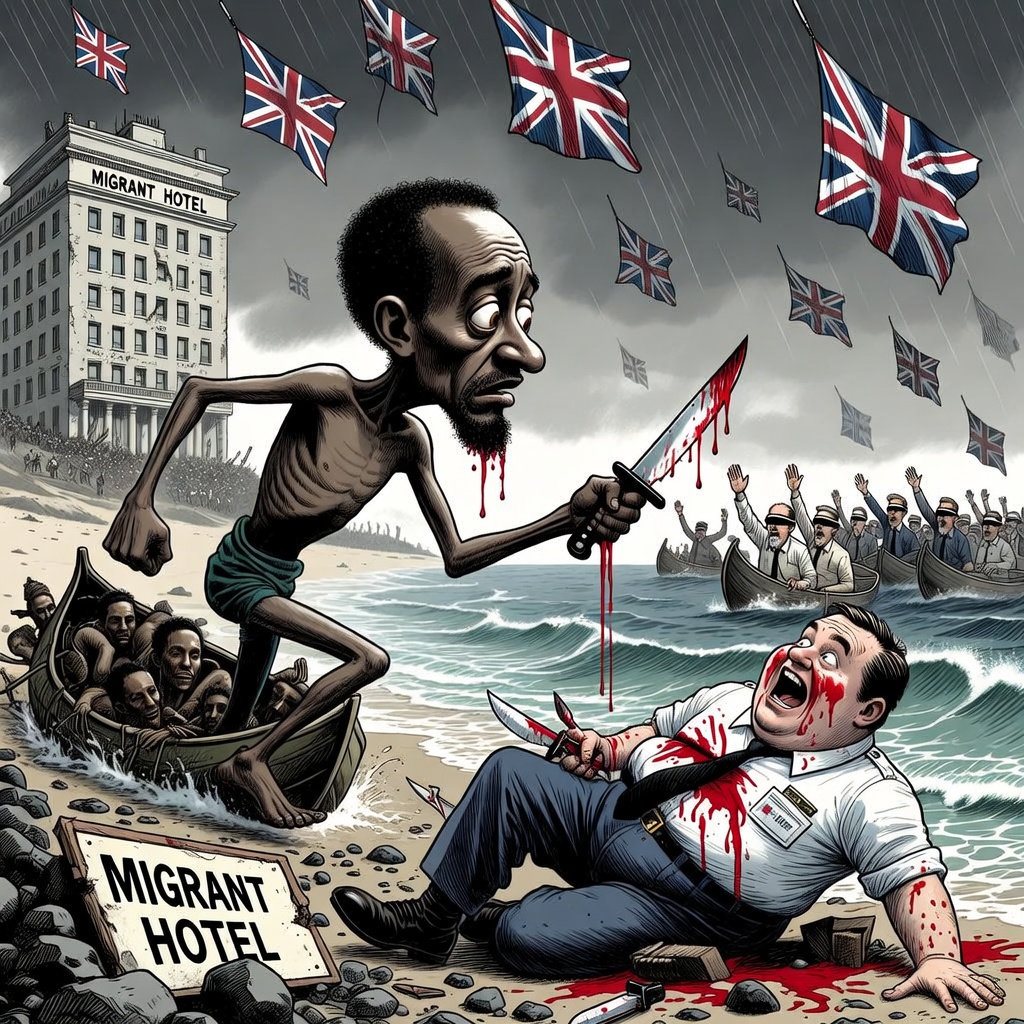
• via the Guardian
Small Boat Arrival Delivers 23 Stabs to Hotel Worker
Sudanese man housed in Serco asylum hotel murders Walsall night shift staffer
A recent Channel crosser stabbed a hotel worker 23 times after stalking female staff, exposing vetting voids and housing risks that claim British lives.
#asylumseekers #smallboats #murder #hotelhousing #vettingfailures -

• via BBC News
Ninety-Four Children Bear Cost of Delayed Scrutiny
GOSH surgeon's substandard practice harmed 94 amid ignored 2021 warnings
A Great Ormond Street surgeon harmed 94 children through botched limb surgeries, with hospital warnings ignored for a year before action. Self-review exposes specialist silos shielding failure in the NHS.
#nhsdecline #surgicalharm #childpatients #whistleblowerfailure #accountabilitygaps -
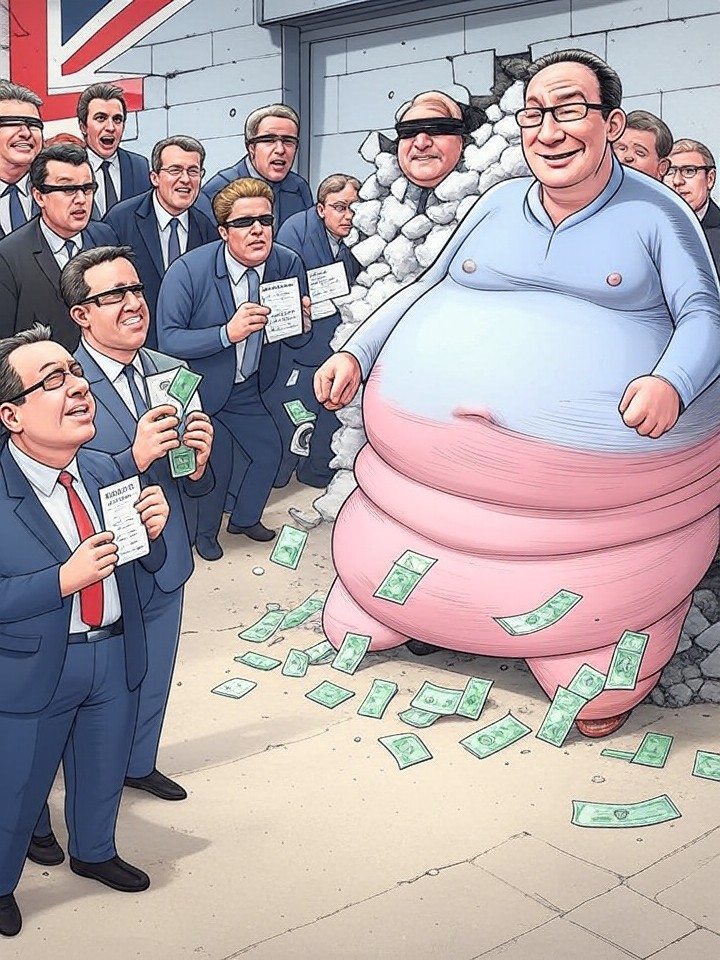
• via thetimes.com
Fake Sponsorships Flood the Skilled Worker Route
Agents charge £10,000 for phantom jobs securing endless UK stays
Undercover probes expose a fake job industry undermining skilled worker visas, with Home Office checks failing amid 146,000 approvals last year. Systemic vetting gaps enable fraud across governments, distorting labour markets and public services.
#migration #visafraud #homeoffice #skilledworker #institutionalfailure -

• via BBC News
Eighteen-Year-Old Officer Opens Prison to Inmate Drugs
2,873 contacts and smuggled cannabis expose HMP Five Wells vulnerabilities
An 18-year-old guard's affair with a burglar inmate led to drugs, phones, and informant betrayal at G4S-run HMP Five Wells. Recruitment of inexperienced teens amid shortages reveals systemic prison security collapse.
#prisons #staffingcrisis #g4s #securitybreaches #recruitmentfailures -

• via BBC News
Pakistani Asylum Seeker Rapes Drunk Teen Twice in Park
Home Office paid rapist £50 weekly amid European prior stays
A Pakistani asylum seeker convicted of raping an 18-year-old in Nottinghamshire drew Home Office cash while shielded by court reporting bans. Protests followed revelation of his status, exposing vetting gaps and victim risks.
#asylum #rape #nottinghamshire #homeoffice #immigration -
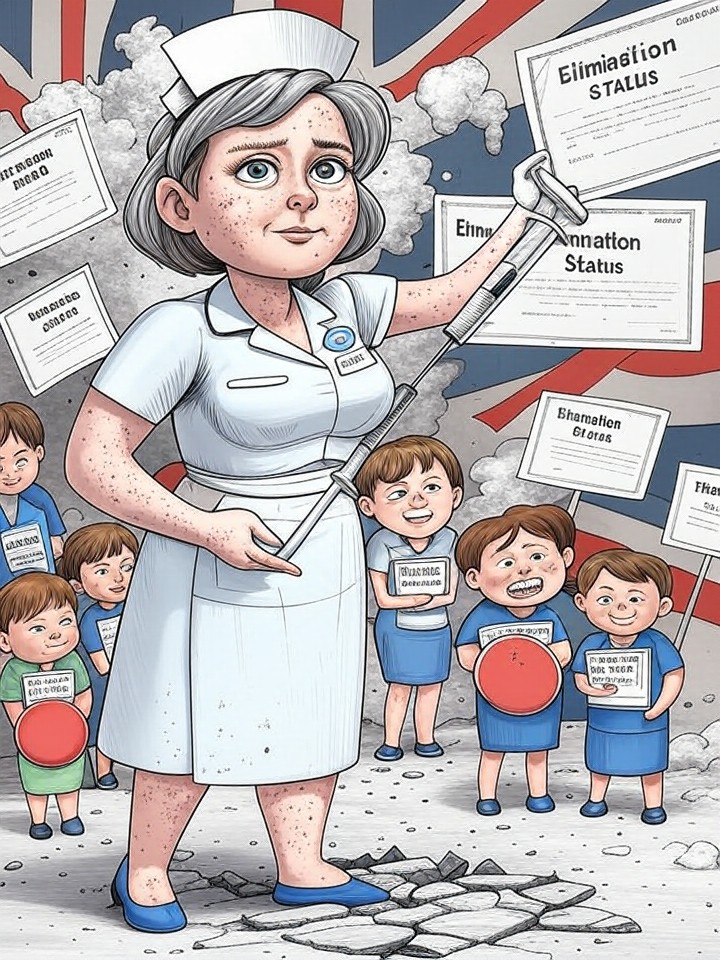
• via BBC News
UK forfeits measles elimination for third time since 2016
3,600 cases in 2024 end status held just three years
The UK's repeated loss of measles elimination status reveals failing vaccination delivery across governments. Rates below 95% expose systemic gaps in access, trust, and accountability amid rising cases.
#measles #vaccination #nhs #publichealth #herdimmunity -

• via Sky News
Eighty-six protesters stormed Wormwood Scrubs grounds to back an RAF aircraft saboteur
Trespass backs thirst striker amid prison staff threats and national security lapses
Protesters breached Wormwood Scrubs to support an accused RAF saboteur, arresting 86 but exposing prison vulnerabilities and diverted police amid surging urban crime. Patterns of tolerated disruption deepen institutional decline.
#prisons #protests #metropolitanpolice #rafsabotage #aggravatedtrespass -

• via Sky News
Forty-Three Forces Feed The National Machine
Shabana Mahmood's 'British FBI' absorbs failing locals amid unproven tech and targets
Home Secretary Shabana Mahmood centralises 43 underperforming police forces into a National Police Service, repeating structural fixes that ignore frontline failures and historical inertia. Outcomes point to uniform decline, not reform.
#policing #centralisation #shabanamahmood #nationalpoliceservice #crimesurge -

• via darrengrimes.com
Sudanese Man Claims Teen Years, Kills Mother in Hotel Shadow
Home Office privately confirms murderer's true age of 27 after unverified child claim
A Sudanese small boat arrival posed as a teenager, evading age checks and housing in a public hotel where he murdered a 27-year-old mother. Officials knew his adult age but upheld the fiction, revealing asylum system's safety trade-offs.
#asylumfailures #ageverification #homeoffice #publicsafety #migrationcrime -

• via migrationcentral.co.uk
Foreign Nationals Claim 80% of Train Theft Arrests
37.7% of all BTP arrests despite 17% population share
Foreign nationals dominate rail crime arrests at 37.7% overall, 79.3% for theft, amid a 200% crime surge since 2015. This overrepresentation reveals migration policy's direct toll on public safety.
#railcrime #migrationimpact #foreignnationals #btparrests #theftepidemic -

• via the Guardian
Forty-Three Police Forces Line Up for Central Scrutiny
Labour revives targets and mergers ditched by Conservatives amid chiefs' warnings
Home Secretary Shabana Mahmood centralises control over 43 failing police forces with targets and mergers, repeating structural fixes that ignore past failures and perverse incentives. Outcomes remain unchanged across governments.
#policingreform #policeforces #shabanamahmood #nationaltargets #policemergers -
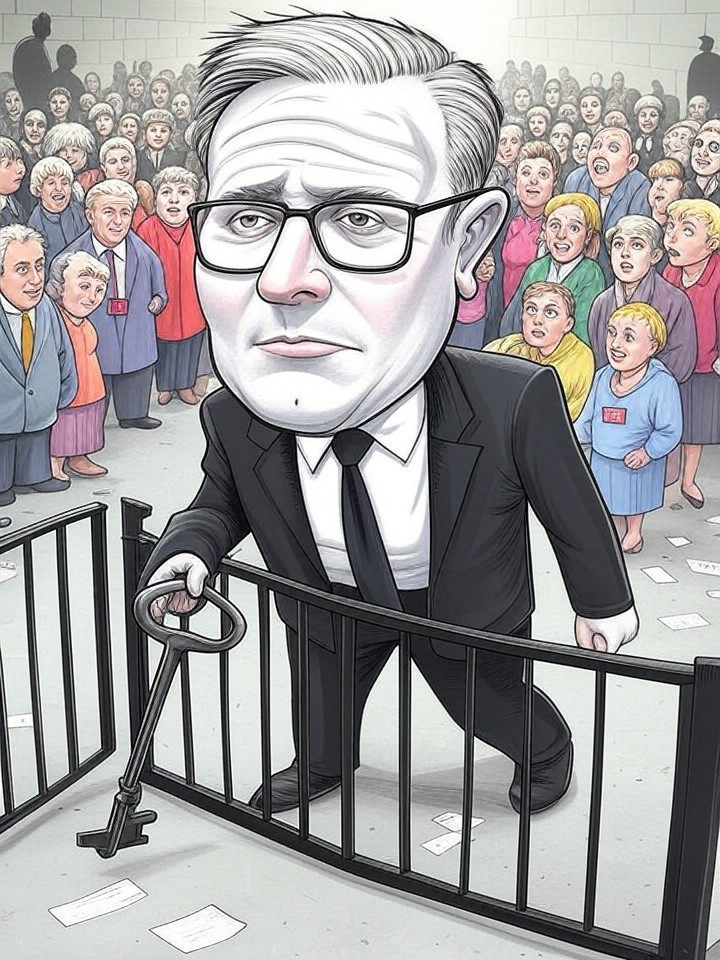
• via GB News
Local Elections Deferred, 4.5 Million Voters Barred
Clause 15 of 2000 Act invoked amid cross-party requests
Keir Starmer's postponement of 29 local elections denies 4.5 million votes, with Tory councils complicit. This reveals executive overreach persisting across governments, sidelining local accountability.
#localelections #keirstarmer #democracy #centralisation #localgovernmentact -
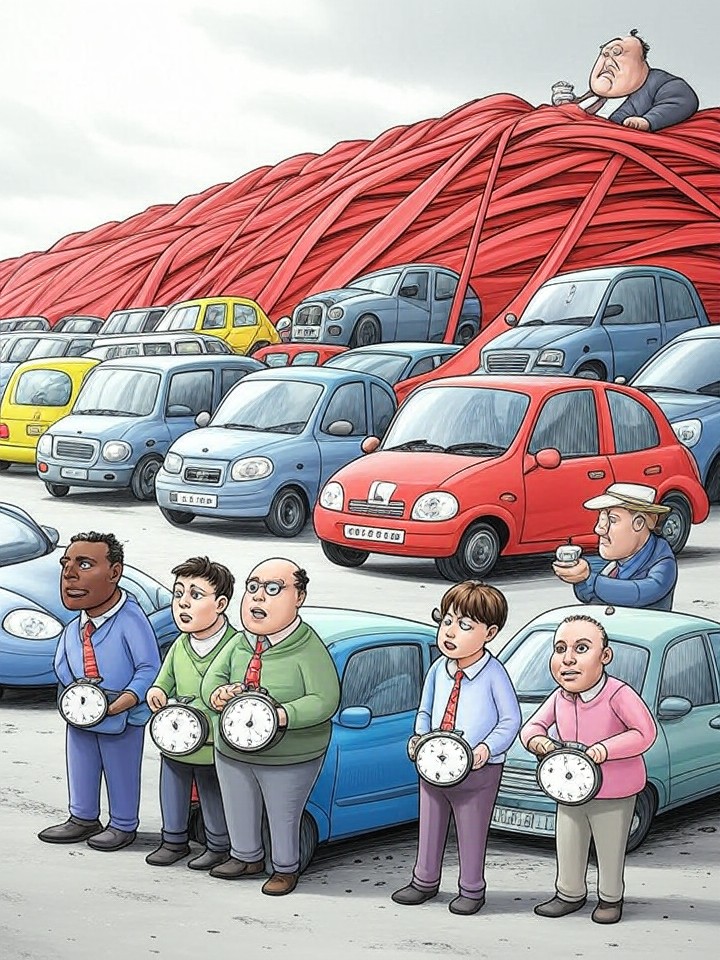
• via BBC News
Half-Year Roadblock Hits Britain's Teens
Existing backlogs to 2027 compound new six-month practice mandate
Government mandates extra delays for learner drivers amid unresolved test backlogs, targeting youth inexperience without addressing capacity failures or graduated licence evidence. Young motorists, 6% of drivers but 25% of fatal crashes, lose mobility as decline deepens.
#roadsafety #youthmobility #drivingtests #governmentbacklogs #institutionalfailure -
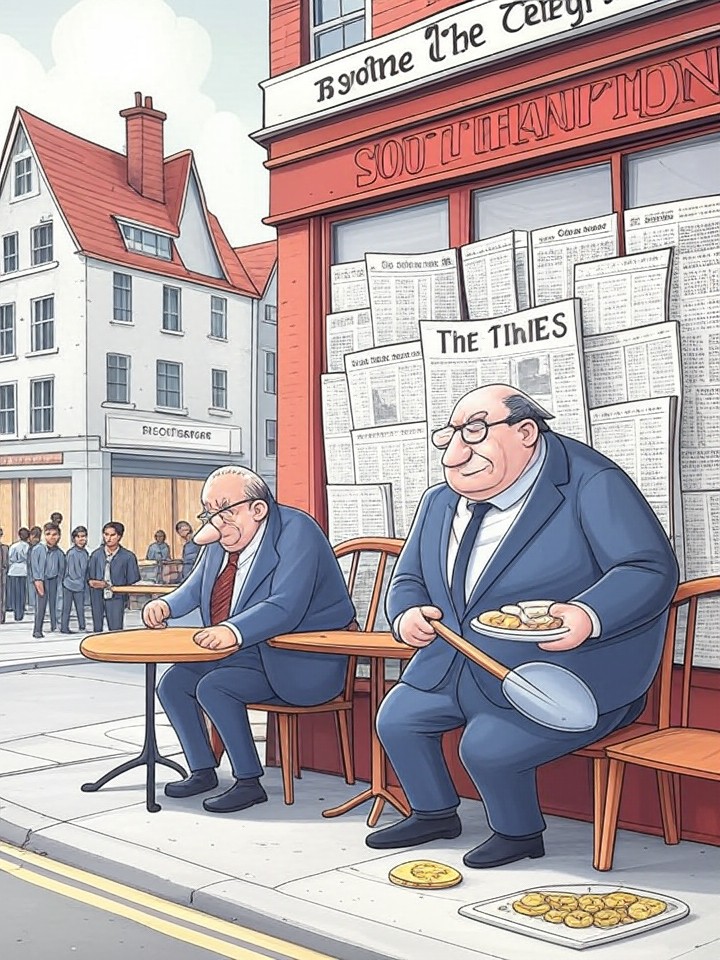
• via GB News
Southampton Restaurant Ends Two-Decade Run Under Asylum Hotel Strain
Ceno cites locked parking, abuse, and damage from 100 Home Office-placed asylum seekers
A 20-year Southampton restaurant shuts due to disruptions from an adjacent migrant hotel, with zero aid from police or council. This exposes how central asylum housing overrides local businesses across governments.
#migranthotels #asylumseekers #businessclosure #homeoffice #southampton -
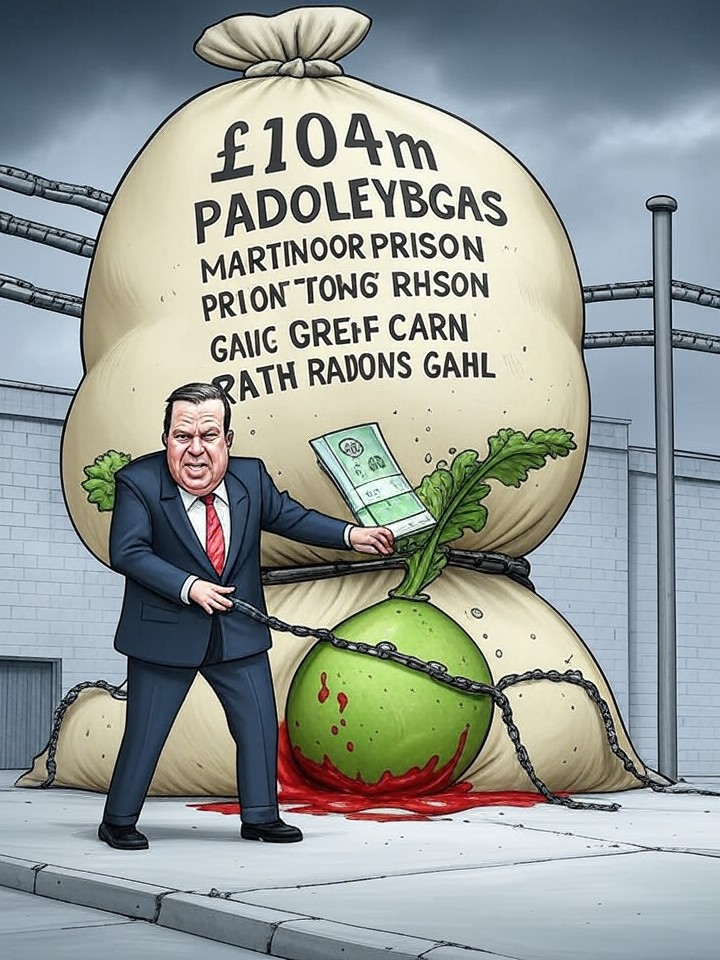
• via the Guardian
Taxpayers Locked into £104m for Unusable Dartmoor Prison
MoJ's 2022 lease on radon-choked Dartmoor prison closes in 2024, committing £100m+ waste until 2033
Ministry of Justice leased a toxic prison in panic, ignoring known radon risks. Taxpayers bear £104m costs for an unusable site amid chronic overcrowding and zero accountability.
#prisoncrisis #mojfailure #taxpayerwaste #radonscandal #institutionaldecline -
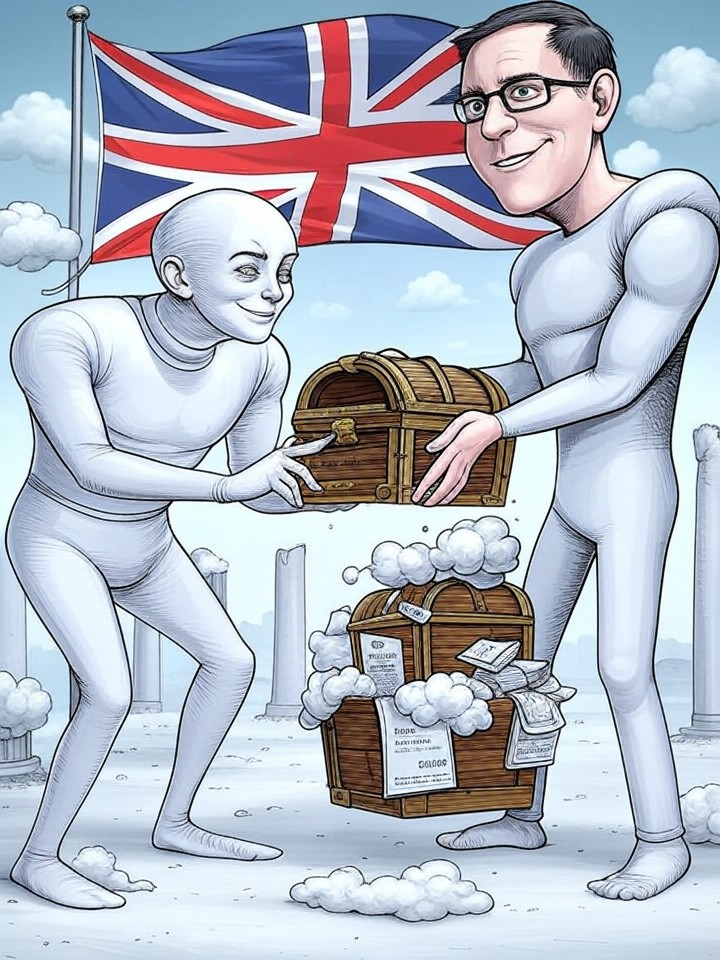
• via POLITICO
£240 Million Defence Data to Palantir, No Bids Asked
MoD triples 2022 spend on US firm amid sovereignty pledges
UK Ministry of Defence awards Palantir £240m no-bid contract for military AI, tripling prior spend despite sovereignty rhetoric and US trade pause. Critics highlight foreign dependence as British firms lose out.
#defence #palantir #sovereignty #procurement #ai -

• via BBC News
£11 Million Annual Graffiti Removal on London's Tube
One tag erased every three minutes amid hotspot failures
TfL's £10m-£11m yearly spend on Tube graffiti reveals failed prevention, diverting funds from services as vandalism spikes unchecked by police partnerships. This drains commuter-funded budgets in a pattern of public disorder.
#tfl #londonunderground #graffiti #vandalism #publicspending -

• via The Telegraph
Home Office Stymied by Serial Burglar's Asylum Play
Twice-deported Albanian flaunts £184k Lamborghini while tribunal delays removal
A convicted Albanian burglar taunts authorities from Mayfair clubs after two illegal re-entries, shielded by an asylum claim that paralyses deportation. Victims' losses fund his luxury as border enforcement fails across governments.
#immigrationfailure #bordercontrol #asylumabuse #foreigncriminals #homeoffice -

• via The Telegraph
Nurse forfeits register after Bible verse on foreigners
40-year NHS career ends over posts amid Southport unrest
NMC strikes off award-winning nurse for immigration-critical Facebook posts, deeming them racially motivated despite no patient harm. Reveals regulators prioritizing ideological conformity over NHS staffing crises.
#nhs #nmc #freespeech #southportriots #immigration -

• via The Telegraph
Own Veterans Chief Slams Labour's Bill as Soldier Betrayal
Troubles troops face courts while IRA pardons stand
Labour scraps veteran immunity, drawing fire from its own commissioner who says ex-soldiers suffer worse than terrorists. Bill risks lawfare, eroding military trust amid global threats.
#troubles #veterans #northernireland #labour #military -

• via Daily Record
Scotland Refers Twelve-Year-Old Rapists to Children's Panels
14 aged 12, 415 under-18s logged for sex crimes in three years
Scotland police-referred 14 twelve-year-olds and 415 under-18s for sexual offences over three years, routing them to welfare panels over courts. Amid 45% crime surge, the system prioritizes child rights over deterrence and victim justice.
#scotland #youthcrime #sexualoffences #justicesystem #childprotection -

• via the Guardian
Degrees Demoted to Visas Amid Graduate Glut
Nearly half of youth enter university, but mobility promise evaporates
King's vice-chancellor admits UK degrees no longer guarantee social mobility amid surfeit of graduates and stagnant earnings. Cross-party expansion delivers debt over ladders in a low-growth economy.
#socialmobility #highereducation #universityexpansion #graduatepremium #tuitionfees -

• via the Guardian
Pensioners Sleep Rough as Councils Defer
50% rise in elderly homelessness exposes welfare cracks
Surge in over-60s homelessness, including 87-year-olds rejected by councils, reveals depleted social housing and frozen benefits trapping pensioners in cars and shelters. Cross-party failures leave the elderly most vulnerable.
#homelessness #pensioners #socialhousing #housingcrisis #councilfailures -
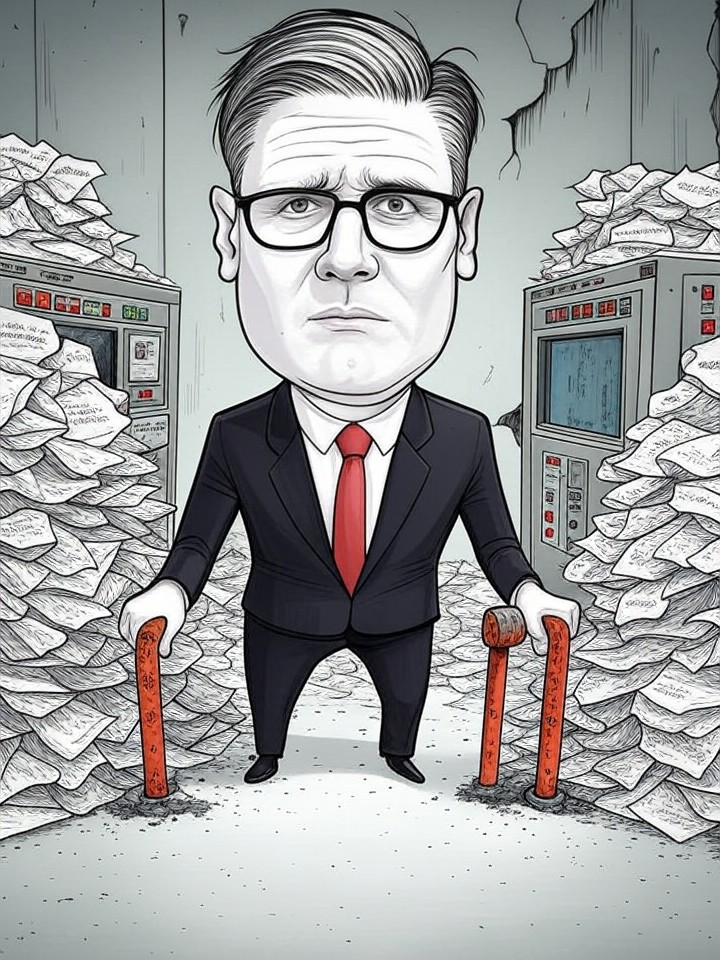
• via BBC News
Levers Jam Under Layers of Abdication
Ex-Starmer aide blames power handover to quangos for stalled pledges
Insider admissions reveal successive UK governments ceded control to regulators and lawyers, paralyzing delivery on core promises. Cross-party layers of safeguards now block action amid rising public discontent.
#quangos #regulation #governancefailure #starmer #institutionaldecline -
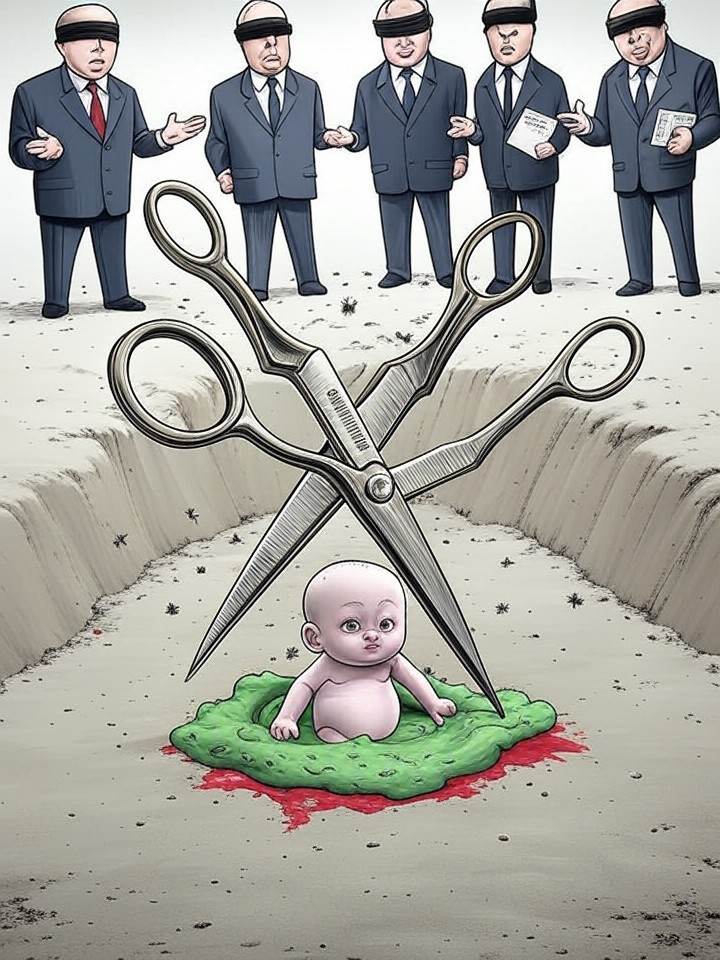
• via BBC News
Unregulated Cuts End in Sepsis Graves
Coroner warns of more infant deaths absent training and oversight
A London baby's fatal infection after ritual circumcision reveals zero national safeguards on training, hygiene, or consent. Governments across parties ignore repeated coroner alerts, prioritizing culture over child safety.
#childdeath #regulationfailure #publichealth #culturalpractices #governmentinaction -

• via The Standard
£16.7 Million Monthly Theft Haunts London Retailers
99,363 offences logged, true scale nine times higher
London's shoplifting costs retailers £16.7m monthly amid 12% rise and police blaming victims. Crackdowns yield arrests but fail to stem fastest-growing crime, dooming high streets.
#shoplifting #londoncrime #metpolice #retaillosses #policingfailure -
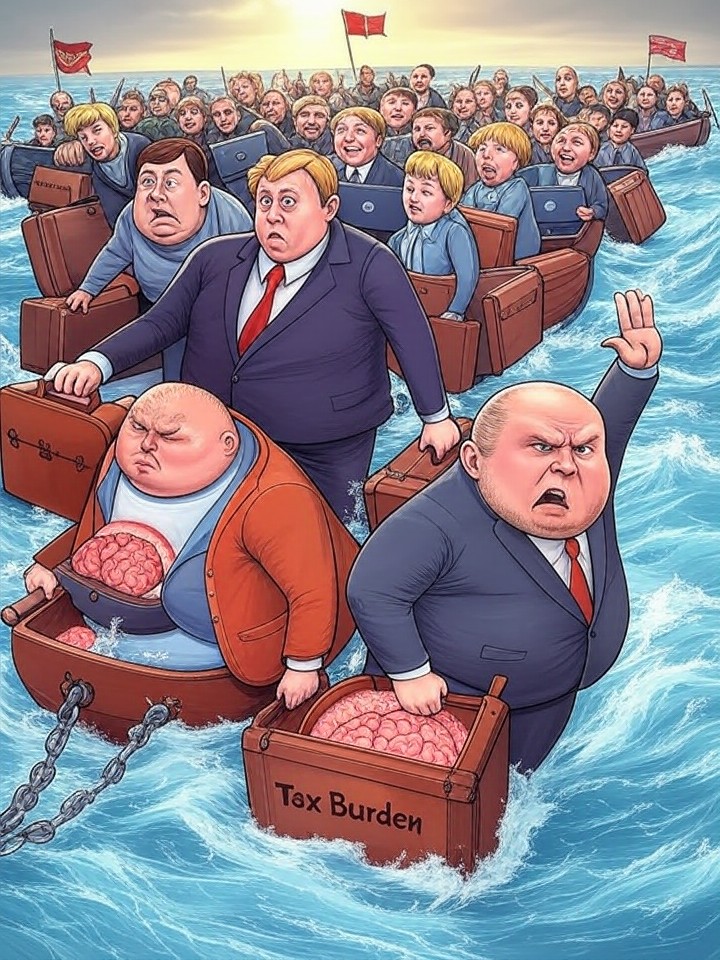
• via BBC News
195,000 Under-35s Left the UK Last Year
ONS data reveals three-quarters of emigrants are young, fleeing costs, crime, and stagnation
195,000 under-35s emigrated in a year, handing trained talent to Japan, Dubai, and Bali gratis. High costs, taxes, and cultural resentment drive the exodus amid government growth claims.
#braindrain #emigration #youthexodus #economicstagnation #costofliving -

Taking a Breath: A Christmas Message from The Decliner
A brief moment to wish our readers well for the holidays
As we pause for the Christmas season, we reflect on the importance of community, kindness, and the small things that still work in our daily lives, even amidst the institutional challenges we document.
#community #christmas #reflection #gratitude #humanspirit -

• via BBC News
11.3mph: Scotland's Bus Speeds Enter Freefall
Twenty-year delays bury hospital links and worker commutes
Scotland's average bus speed dropped 25% to 11.3mph in two years amid congestion from cars, cycle lanes, and roadworks. Devolved spending fails to reverse two-decade decline in reliability and ridership.
#scotland #transport #buses #congestion #publicservices -

• via LBC
£80,000 Train Drivers Qualify as Working Class
Civil Service scheme excludes lower-paid police and prison staff
Government internships label £80k train drivers as working class via occupation, not income, sidelining police and prison officers on lower pay. This rigid system distorts social mobility efforts across parties.
#civilservice #socialmobility #ns-sec #traindrivers #publicsectorpay -

• via the Guardian
8,545 Strangulation Charges Signal Intimate Violence Surge
CPS data from 2022-25 reveals sixfold rise under new law, tied to 90% domestic abuse
Prosecution numbers explode sixfold since 2022 Domestic Abuse Act, hailed as progress by CPS. The surge unmasks escalating violence against women, not justice gains, amid absent conviction data.
#strangulation #domesticabuse #cps #vawg #prosecutions -
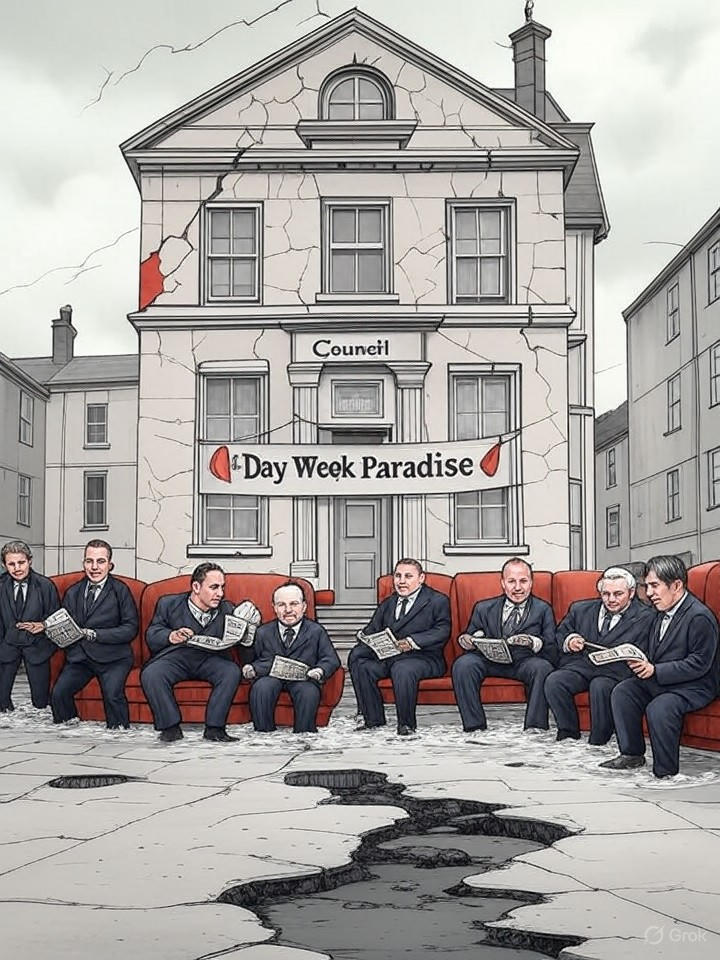
• via the Guardian
Councils' Four-Day Experiments Labeled as Collapse Signals
Steve Reed's warning risks intervention in 25 debating authorities
Labour secretary Steve Reed flags four-day weeks as failure indicators for English councils, overriding local trials amid productivity crisis. Central control persists across parties as bankruptcies mount.
#localgovernment #productivity #four-dayweek #centralintervention #councilfailure -

• via BBC News
Police leaders concede non-crime hate incidents overload records after logging 133,000 since 2014.
Two decades of social media bloat force policy U-turn
Police propose axing non-crime hate incidents after 133,000 entries diverted resources from real threats. The 2005 policy, warped by online disputes, exemplifies cross-party inertia in UK policing.
#policing #hateincidents #freespeech #policeresources #institutionalfailure -

• via ZeroHedge
£31 Billion AI Deal Dies on UK's Speech Fines
Microsoft and Google investments paused over Online Safety Act
Trump suspends major UK tech pact citing censorship risks to US firms. Northeast England forfeits 5,000 jobs as regulatory zeal overrides economic gain.
#onlinesafetyact #us-ukrelations #aiinvestment #freespeecharrests #techregulation -

• via BBC News
Bradford traders watch £51 million culture year pass without sales bump
£15m government grant yields footfall gains but no high street windfall
Bradford's £51m UK City of Culture drew three million but left local businesses reporting flat trade. Public funds fuelled events and hype, yet economic legacy metrics stay vague amid recurring national patterns.
#bradford2025 #cityofculture #publicspending #economicimpact #localgovernment -
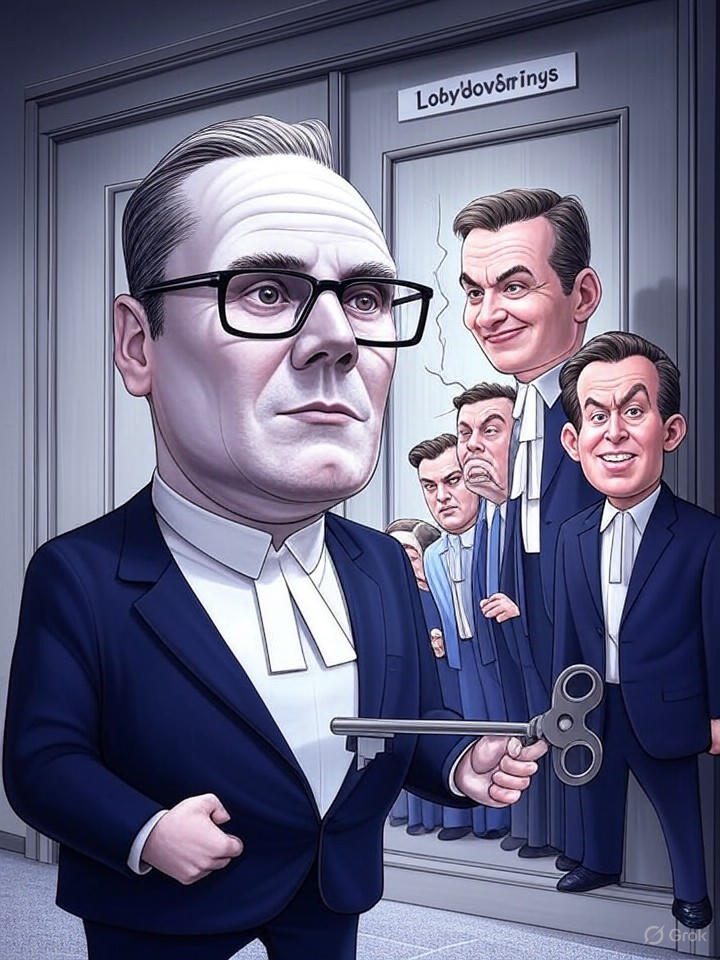
• via The Telegraph
Briefing Cuts Revive Elite Evasion Tactic
Starmer echoes Blair's failed 2002 bid to weaken lobby scrutiny
Downing Street reduces lobby briefings to curb uncontrollable questions, repeating cross-party efforts at narrative control. History shows such moves fail but erode public access to unfiltered government accountability.
#lobbybriefings #transparencydecline #accountabilitygaps #cross-partyfailures #mediaaccess -

• via GB News
Labour Shelves Supreme Court Clarity on Women's Spaces
Three months vetoed, zero protections enforced
Labour ministers block EHRC guidance enforcing Supreme Court ruling on biological women, leaving single-sex spaces unprotected amid puberty blocker revival. Rowling warns of child risks; public bodies await clarity.
#labourparty #women'srights #transgenderpolicy #ehrcguidance #supremecourt -

• via Metro
Nine-Year-Old Girl Fatally Stabbed Returning from Dance Class
15-year-old local boy charged after attack in Weston-super-Mare home
A 9-year-old girl's post-dance murder by a teenage boy underscores surging youth knife violence invading UK homes. Systemic failures in policing, youth services, and social support persist across governments.
#youthviolence #knifecrime #childmurder #weston-super-mare #socialbreakdown -

• via GB News
Rainbow Lanyards Signal Civil Service Capture
Taxpayer-funded Pride marches breach impartiality code, prompting Starmer lawsuit
Civil servants march in Pride events on work time, wearing official gear and breaching neutrality laws. Precedent from police ruling exposes deepening institutional bias across UK public sector.
#civilservice #impartiality #pride #taxpayerfunding #legalchallenge -
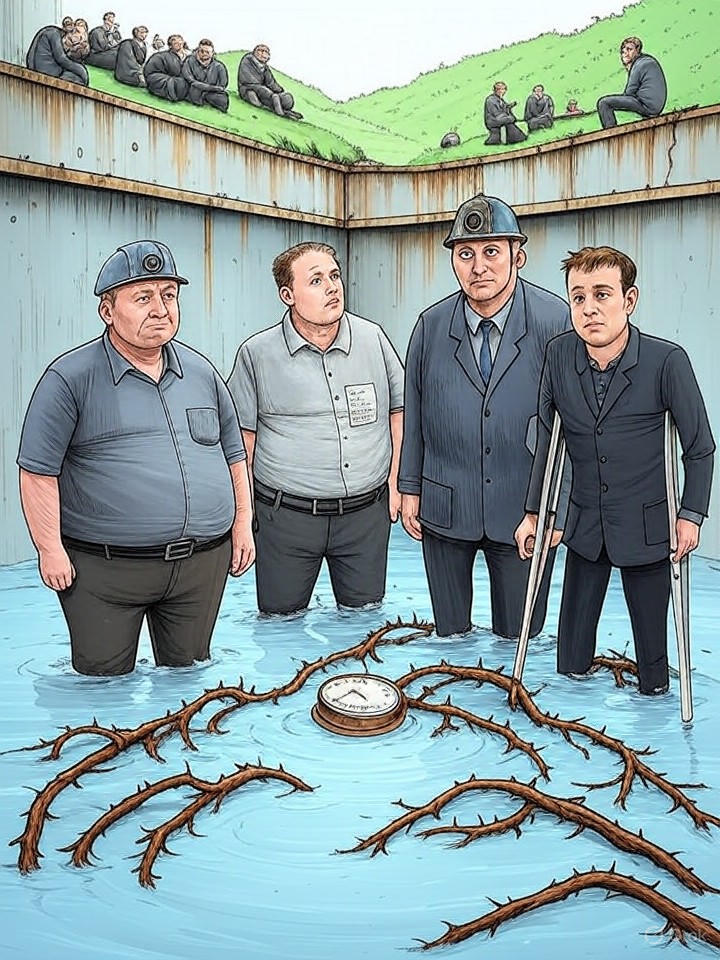
• via The Herald
Scotland's Ex-Mining Districts Trap Generations in Stagnation
Social Mobility Commission data shows zero progress since 2000s in Ayrshire and Lanarkshire
Fifty years after mine closures, Scotland's industrial heartlands show entrenched disadvantage in jobs and childhood outcomes. Governments across decades failed to regenerate, widening UK mobility gaps.
#socialmobility #deindustrialisation #scotland #regionalinequality #economicstagnation -

• via Metro
Unbarriered Platforms Claim Sixth-Form Girl
Loughton incident logs 300th rail suicide amid stalled safety upgrades
A 16-year-old's fatal fall at Loughton station exposes persistent gaps in platform safety and youth mental health support. Cross-party delays leave tracks lethal despite decades of warnings.
#railsafety #youthsuicide #mentalhealthcrisis #tflfailures #institutionalinertia -

• via BBC News
803 Migrants Cross in December Record
41,455 arrivals surpass 2024 total amid government claims of action
A record 803 Channel crossings on one December day push 2025 totals past 2024's full year, despite Home Office removals and French deals. Rhetoric masks rising trends and systemic border failures across governments.
#smallboatcrossings #channelmigration #homeoffice #bordercontrol #asylumclaims -
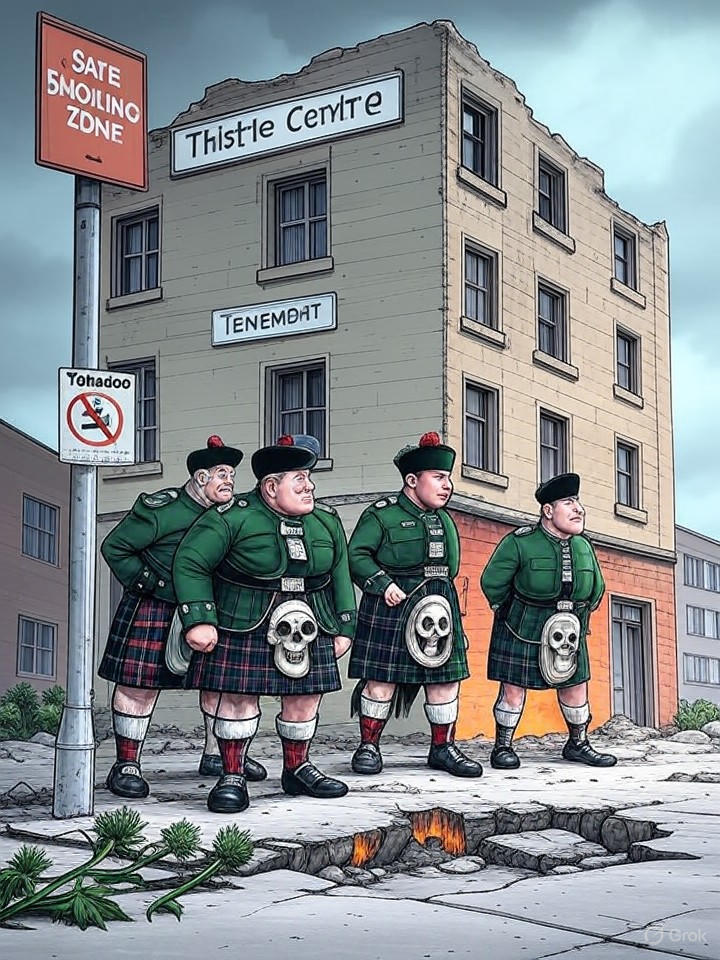
• via the Guardian
Crack smoking enters Scotland's supervised drug facilities
1,017 deaths prompt booth expansion at heroin injection centre
Glasgow officials seek smoking ban exemption for crack use amid rising deaths and shifting habits. Facilities expand harm reduction while root failures persist.
#scotland #drugdeaths #harmreduction #smokingban #glasgow -

• via GB News
DNA overrides Beachy Head plaque
Roman-era African claim collapses under 17th-century white European evidence
Advanced DNA debunks Beachy Head Woman's Sub-Saharan origins, promoted by BBC and local authorities. Reveals pattern of taxpayer-funded historical revisionism eroding national heritage across institutions.
#historicalrevisionism #culturaldecline #dnaevidence #bbcnarrative #nationalidentity -
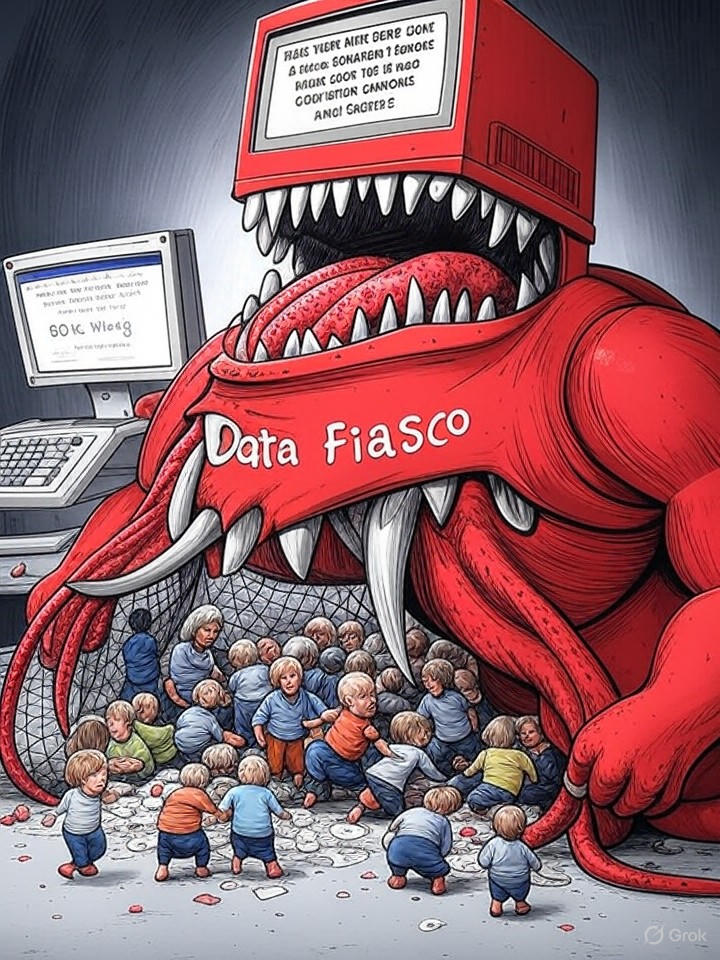
• via the Guardian
HMRC Traps 15,000 Families in Child Benefit Data Fiasco
63% false positives from flawed Home Office travel records
HMRC's anti-fraud crackdown wrongly suspended benefits for 15,000 legitimate parents using unreliable border data. The debacle highlights systemic flaws in welfare enforcement, punishing innocents while real fraud persists.
#hmrc #childbenefit #welfarefraud #dataerrors #governmentincompetence -

• via The Independent
London's Friday Night Yields Two Corpses, Zero Arrests
Stabbing in Maida Vale flat, shooting in Stonebridge claim lives with no suspects in custody
Two men murdered minutes apart in north-west London prompt witness hunts, not handcuffs. Met Police appeals highlight eroded deterrence amid rising violence patterns.
#london #murder #metpolice #knifecrime #shootings -
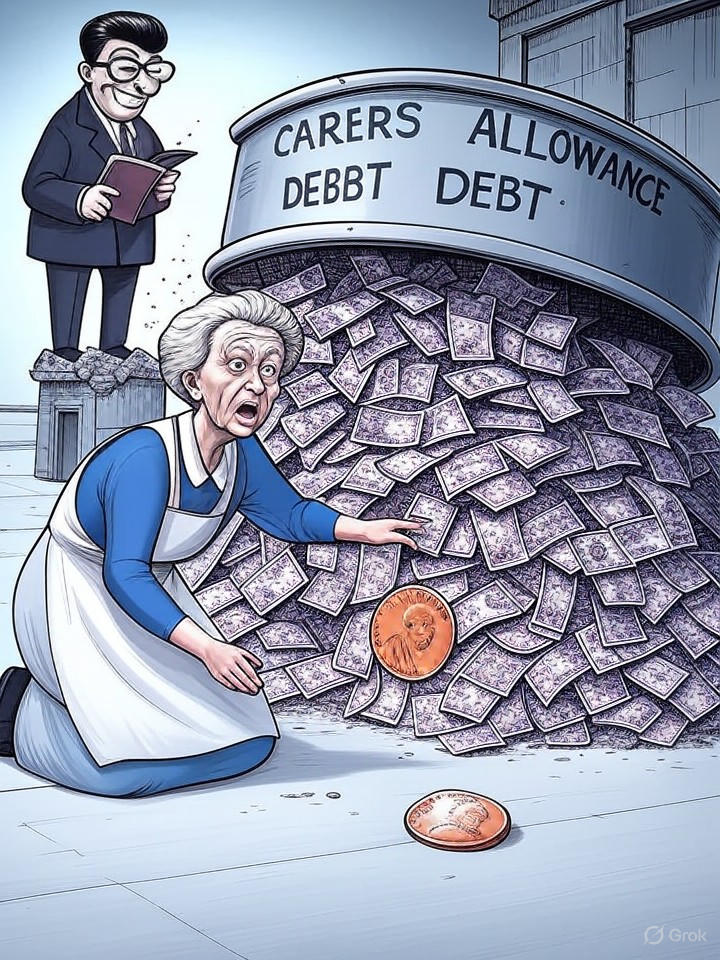
• via the Guardian
One Penny Triggers Full Repayment for Carers
DWP hoards real-time data, notifies years late, debts hit £20,000
DWP's carers allowance enforces total repayment for 1p over earnings limit, trapping hundreds of thousands in debt despite real-time data access. Officials blame carers, partially accept fixes, revealing unaccountable welfare pathology across governments.
#dwp #carersallowance #benefitsdebt #civilservicefailure #systemicflaws -

• via thetimes.com
West Midlands Police Clears Villa Park Away End on Phantom Intelligence
False Amsterdam riots and fake West Ham game justify total Maccabi Tel Aviv fan ban
West Midlands Police banned Israeli fans citing fabricated intelligence from unrecorded calls and AI errors. IOPC demands explanations amid parliamentary lies, exposing neutrality's collapse and trust erosion.
#policing #westmidlands #maccabitelaviv #iopc #publicconfidence -

• via The Royal College of Nursing
44 Percent of Nurses Frozen at Entry-Level Pay
56,000 in England stuck over seven years amid turnover and patient risks
RCN data exposes 44-53% of UK nurses trapped at band 5 entry pay, twice the rate of peers, driving 17% higher quits and linked patient deaths. Governments acknowledge but stall reforms across two decades.
#nhs #nursingretention #paybands #agendaforchange #patientsafety -

• via BBC News
PPE Medpro dissolves with £600,000 against £148m taxpayer debt
Faulty gowns firm linked to Mone liquidates, dodging VIP lane repayment
Liquidation leaves DHSC facing near-total loss on £148m PPE debt from defective gowns supplied via Tory VIP lane. Probes loom but recovery fails amid repeated procurement waste across governments.
#ppescandal #taxpayerloss #viplane #liquidation #cronyprocurement -

• via The Telegraph
2.5 Million Fatherless Children, Boys Hit Hardest
NEET males up 40% since pandemic as Labour trains teachers on Tate risks
Labour's £20m school interventions target boy misogyny amid 40% male NEET rise, 87% youth homicide victims male, and 2.5m fatherless homes. Policies miss family roots, perpetuating cross-party youth decline.
#youthdecline #familybreakdown #maleoutcomes #neetsurge #labourpolicy -

• via The Telegraph
39 Percent of Men Reject Fighting for Britain
Ipsos poll exposes mobilisation crisis amid defence warnings
Polling shows 39% of men unwilling to fight for Britain as defence leaders demand national effort. State failures in migration, economy, and military readiness fuel profound legitimacy gap across governments.
#defencecrisis #publictrust #migrationimpact #militaryfailure #socialcohesion -

• via Sky News
Expel Unequal Cultures, Badenoch Insists
Labour's school lessons dodge migrant violence origins
Conservative leader demands deportation of misogynist migrants as Labour mandates anti-misogyny classes, ignoring cultural clashes in VAWG crisis. Cross-party migration failures sustain the risks to women.
#badenoch #vawg #migration #cultureclash #deportations -

• via The Telegraph
Farage Counts Ten Kent Questions in Seven Months
Labour MPs dominate PMQs attacks on Reform councils amid suppressed applications
Two Kent Labour MPs secured ten PMQs slots since May, targeting Reform's flagship council. Whips allegedly game low applications to amplify criticism without reply. Exposes Parliament's failure to reflect voter shifts.
#pmqs #reformuk #labourparty #parliament #accountability -

• via BBC News
Four Days Guarding One Teenager
Police Scotland's 14,500 monthly mental health calls expose vanished alternatives
Police Scotland attends 14,500 mental health incidents monthly, losing 80% frontline capacity to health gaps. Initiatives save hours but leave cops as default carers amid broken NHS links.
#policescotland #mentalhealth #nhscrisis #publicservices #snpfailures -
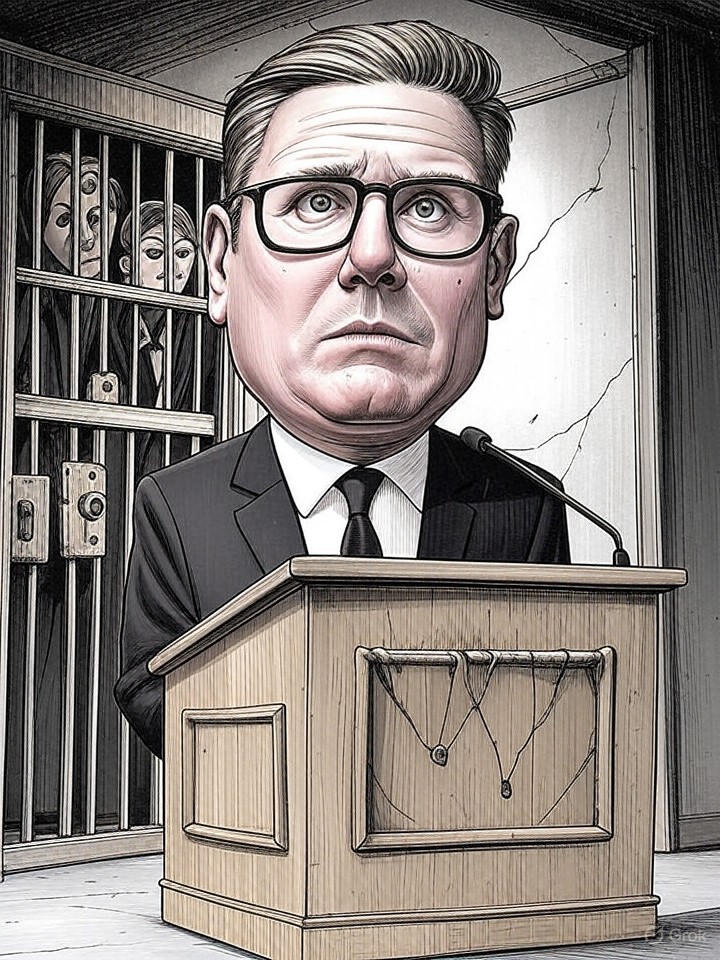
• via The Spectator
Lobby Briefings Shrink to Sporadic Stage-Managed Events
Starmer scraps daily scrutiny for influencer-friendly press conferences
Downing Street overhauls lobby system, cutting briefings and inviting content creators amid fury from journalists. The cross-party pattern erodes transparency as governments dodge accountability when polls plummet.
#lobbysystem #mediaaccess #transparencydecline #starmergovernment #pressfreedom -

• via The Spectator
Migration Advisory Committee buries mass migration's economic pretensions
£25bn lifetime asylum cost from 2024 grants alone
MAC report reveals asylum and partner visas impose massive lifetime fiscal deficits on UK taxpayers, unmasked by short-term modelling flaws across governments. Net migration policy drains resources amid welfare explosion.
#migration #fiscal-impact #asylum #mac-report #taxpayer-costs -

• via Forces News
MOD Withholds Breakdown of £9bn Military Housing Pledge
43,000 homes targeted, but no costs assigned to fixes, agency, or builds
Defence ministry pledges £9bn for service family homes yet refuses spending details, repeating cross-party patterns of vague announcements amid persistent squalor and recruitment woes. Families see botched repairs, not transformation.
#militaryhousing #sfa #mod #defencespending #accountabilitygaps -
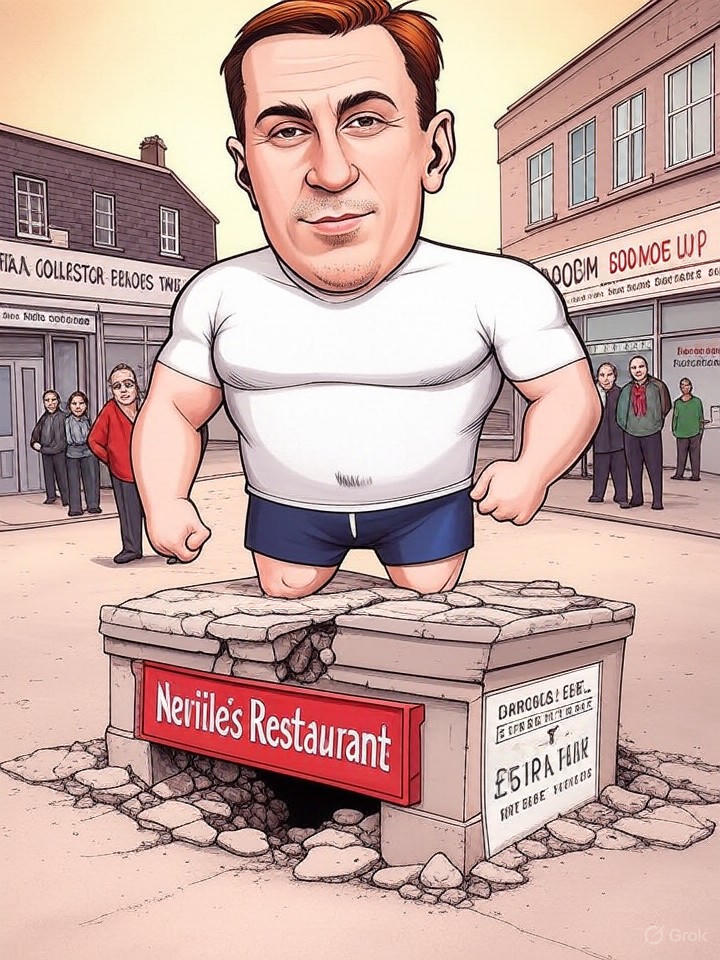
• via GB News
Neville's Restaurant Shields Him from £519k Tax Claim
Liquidators confirm zero recovery as HMRC tops £1m creditor list
Gary Neville's failed Leeds eatery leaves HMRC with £519k unpaid taxes despite his wealth and tax advocacy. Limited liability lets elites walk away, widening public revenue gaps in a strained economy.
#taxdebt #businessfailure #eliteaccountability #hmrcshortfalls #limitedliability -

• via The Standard
Ten Weaknesses Enable Six-Year Fraud at Tower Hamlets
Auditors flag procurement gaps despite dismissal and police probe
Tower Hamlets council dismisses a fraud suspect from 2018 schemes, but EY auditors decry probe shortfalls and list ten control failures in procurement. Taxpayer losses mount amid deflections to 'legacy' issues.
#towerhamlets #localgovernmentfraud #procurementfailures #auditweaknesses #moneylaundering -

• via BBC News
West Yorkshire's tram lines slide from 2032 to 2039
£2.1bn pledge meets sequential delay after 20 years of false starts
Government review pushes Leeds-Bradford trams eight years amid cost risks, repeating 2005 Supertram axing and bus flop. Cross-party failures lock regions in transit limbo, inflating bills without delivery.
#infrastructure #transport #westyorkshire #tramdelay #projectfailure -

• via Stoke-on-Trent Live
£72,158 for 4.78-Mile School Runs
Staffordshire's top SEND taxi bill exposes unchecked deficits
One pupil's annual taxi cost hit £72,158 despite short trips, amid £90m council deficits and national EHCP surges. Statutory mandates and overrides sustain spending spirals across parties. (142 chars)
#sendcrisis #localcouncils #transportcosts #deficits #reformuk -

• via The Telegraph
Bondi Exposes Britain's Unspoken Policing Bias
Senior source admits Muslim appeasement leaves Jews vulnerable
A Telegraph police insider reveals UK forces prioritise avoiding Muslim disorder over protecting Jews from anti-Semitism, amid Home Office asylum biases and cultural concessions. Patterns persist across governments, eroding public safety. (148 chars)
#anti-semitism #two-tier-policing #multiculturalism-failure #immigration #shabana-mahmood -

• via The Telegraph
Bus Passengers Thwart Sudanese Girl-Dragger in Swindon
28-year-old migrant jailed after public chase-off exposes vetting voids
Sudanese resident attempts daylight kidnap of 17-year-old; bystanders intervene where state fails. Patterns of migrant predation on girls recur across governments, eroding street safety. (142 chars)
#migrantcrime #publicsafety #asylumfailures #swindon #sudanesearrivals -

• via The Telegraph
Detainees Book Dentists as Britons Pull Their Own
£23m Haslar contract delivers gold-star NHS care amid 14m adult access crisis
Foreign criminals in a new deportation centre gain full NHS dental and primary care, while 14 million Britons face shortages. Taxpayer-funded equivalence exposes inverted priorities persisting across governments. (148 chars)
#nhscrisis #migranthealthcare #detentioncentres #publicservicerationing #taxpayercosts -

• via The Telegraph
Drones Arm Gangs in Britain's Worst Jail
107 staff assaults in three months at Swaleside expose unchecked Muslim gang control
Inspectors place HMP Swaleside in special measures after documenting the worst violence, drugs, and weapons in five years. Muslim gangs dominate amid staff shortages and drone incursions, perpetuating a cycle of despair across governments.
#prisons #gangs #violence #staffshortages #drugs -

• via GB News
Foreign Rapists Stay Via Prison Booze Claims
Home Secretary admits ECHR prioritises offenders over British victims
Shabana Mahmood confesses foreign sex offenders block deportation via human rights claims on prison alcohol and conditions. Reforms promise tweaks amid cross-party delays, exposing prioritisation of legal shields over women's safety. (148 chars)
#vawgstrategy #echrreform #foreigncriminals #deportationblocks #shabanamahmood -

• via the Guardian
Fourteen Strikes Rack Up 50 Lost Days
Resident doctors reject training posts amid pay deadlock
England's resident doctors—half of NHS medics—strike for the 14th time since 2023, rejecting offers short on pay. Cumulative disruptions exceed 50 days, worsening flu-season pressures and exposing cross-party failure to retain staff. (157 chars)
#nhs #juniordoctors #strikes #paydispute #wesstreeting -
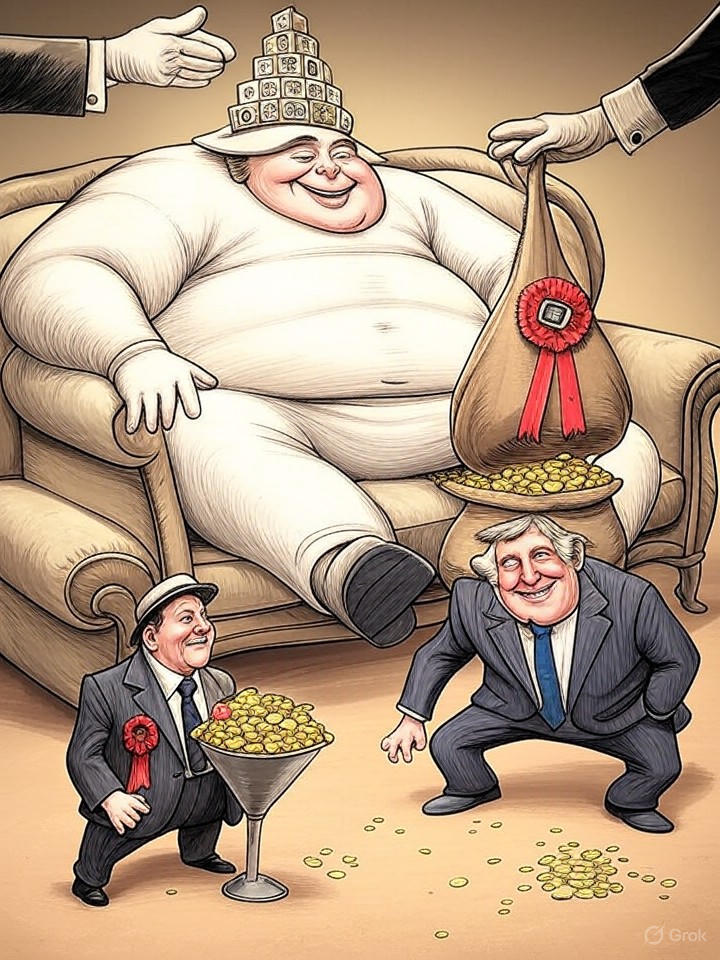
• via The Telegraph
Free BBC Licences Crown Welfare Perks
£378bn benefits bill funds screens for six million inactive adults
Labour proposes free TV licences for benefits claimants amid surging welfare costs and BBC revenue collapse. This rewards inactivity as six million working-age adults stay out of work, taxing payers further.
#bbc #welfare #benefits #labour #licencefee -

• via BBC News
Garden Floors Test Scotland's Ambulance Lifeline
Seven-hour waits prompt DIY transport suggestions
An 87-year-old endures seven hours on a garden centre floor with a broken leg as ambulances divert amid hospital handover crises. Repeated SNP apologies mask years of deteriorating response times eroding public faith.
#nhsdecline #scotland #ambulancedelays #elderlycare #snpfailure -

• via The Telegraph
Hijacker's UK Stand-Off Trumps Malta's Terrorism Charges
El Hiblu rebel fights extradition after posing as child in foster home
A migrant who seized a rescue tanker to evade Libya now contests UK extradition to Malta on terrorism charges. Courts weigh asylum over justice, exposing asylum system's bias toward offenders. (142 chars)
#migration #asylum #extradition #migrantcrime #institutionalfailure -

• via LBC
'Intifada' Chants Arrestable Only After Bondi Bloodbath
Met and GMP pivot post-15 Jewish deaths in Sydney
UK's largest police forces criminalise 'globalise the intifada' after years of tolerance, triggered by Sydney massacre killing 15 Jews including a British rabbi. Reactive shift exposes prior institutional hesitation on anti-Semitic threats.
#anti-semitism #policerecalibration #bondiattack #intifadachant #jewishsafety -

• via the Guardian
Seventy Percent of Hall Residents Report Loneliness
Poll exposes failed social design amid soaring costs and screen retreat
70% of UK university hall students feel isolated, blaming designs, rents, and phones. Expansion across governments delivered profit-driven silos, not communities, fraying youth bonds and trust. (142 chars)
#studentisolation #universityhalls #highereducationfailure #youthmentalhealth #socialcohesion -

• via LBC
Small-Boat Afghans Branded Leamington Lads in Girl's Rape Case
Two months after Channel crossing, 17-year-olds rape 15-year-old; youth court secrecy and neutral labels delay truth
Warwickshire Police described Afghan small-boat migrants as local boys and the victim as a young woman, fueling secrecy in a child rape trial. Youth court handling and delayed custody reveal institutional opacity on migrant crime. (148 chars)
#migrantcrime #policetransparency #youthcourts #childrape #institutionalsecrecy -

• via The Telegraph
Two hundred sanctions daily fail to curb migrant benefit claims
198,771 breaches, £10bn yearly cost, 1.3m foreign claimants
DWP sanctions migrants over 200 times daily for UC non-compliance, yet claims hit records at 472 sign-ups per day and £10bn annual cost. Systemic gaps persist across governments, straining taxpayers amid welfare explosion. (147 chars)
#migration #welfare #universalcredit #sanctions #dwp -

• via BBC News
149,000 Payroll Jobs Evaporate Yearly
Youth unemployment surges 85,000 as businesses halt hires pre-Budget
UK payrolls dropped 149,000 year-on-year amid 5.1% unemployment, hitting youth hardest. Faulty ONS data and policy costs stall recovery across governments, deepening labour market contraction. (142 chars)
#unemployment #youthjobs #payrolls #onsdata #wagegrowth -

• via The Telegraph
BBC Splices Peace from Trump's Speech
Panorama edit omits 'peacefully,' triggers $10bn US suit and two resignations
BBC's doctored Trump speech exposes institutional bias and accountability voids. Public-funded broadcaster fights $10bn suit after resignations, deepening trust erosion in UK media. (142 chars)
#bbc #mediabias #institutionalfailure #accountabilitygaps #publictrust -

• via Sky News
Britain's Army Shrinks to 70,000 as Russia Fields 1.1 Million
Defence chief demands sons and daughters prepare amid 16-to-1 troop disparity
UK's top military leader warns of Russia's growing 1.1m-strong army while Britain's forces dwindle to 70,000. Cross-party cuts leave society unprepared for threats once routine. (138 chars)
#defence #russia #military #national-service #spending -
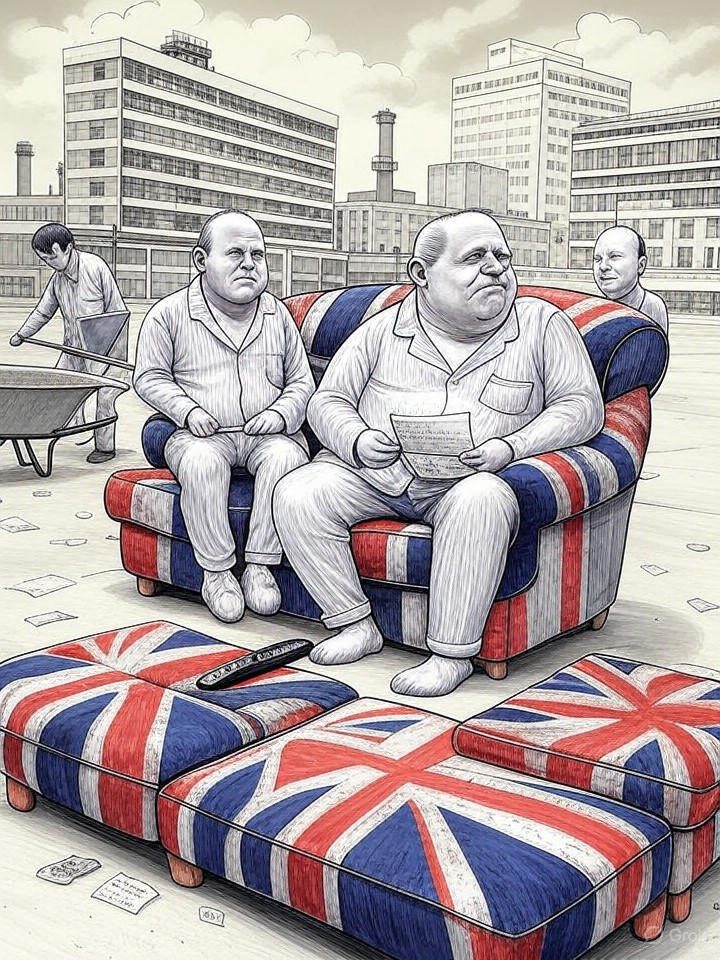
• via Sky News
Quarter of Working-Age Britons Report Disability
2.8 million quit jobs market as £76.8bn benefits bill surges
10.4 million working-age adults claim disability, driving labour inactivity and a 6% GDP benefits spend. Mental health claims dominate amid institutional failure to reverse trends across governments. (142 chars)
#disabilitybenefits #unemployment #mentalhealth #labourmarket #welfarecosts -
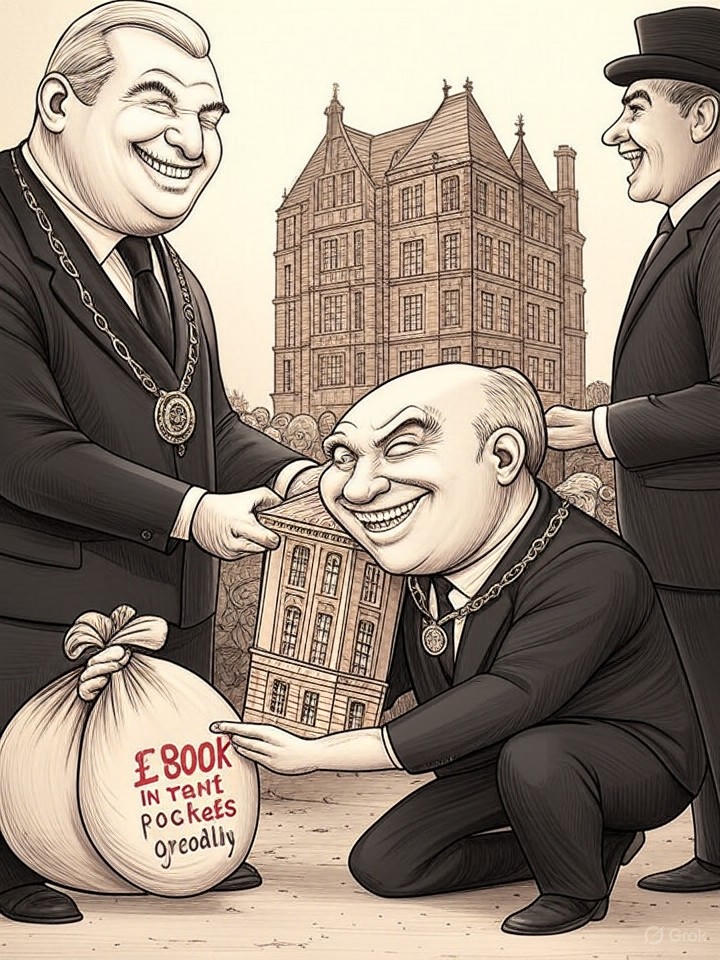
• via BBC News
Council Sells £4.6m College for £1, Then Pays £800k Rent
Peterborough taxpayers lose over £1.1m in flawed 2020 deal
Peterborough City Council sold a £4.6m college building for £1 to a charity, then paid £800k rent without a lease. Police arrests highlight governance failures repeating across UK local authorities. (148 chars)
#localgovernment #financialmisconduct #publicassets #taxpayerwaste #governancefailure -

• via Guido Fawkes
Dhaka Flat Charges Shadow Labour's Treasury Figure
Tulip Siddiq accused anew as Shadow Economic Secretary
Bangladesh files fresh corruption charges against Labour MP Tulip Siddiq over a free flat gained via family influence. Her UK Treasury role persists without scrutiny, exposing failing political vetting standards. (142 chars)
#tulipsiddiq #labour #corruption #bangladesh #politicalintegrity -

• via the Guardian
Home Secretary Spotlights Diversity Triumph
Mahmood hails multiculturalism success as extremism blocks and record outflows persist
Shabana Mahmood dismisses migration threats despite data on demographic shifts, integration failures, and public distrust. Cross-party patterns sustain unaddressed strains on UK cohesion. (142 chars)
#shabanamahmood #multiculturalism #migration #integration #extremism -

• via The Telegraph
£11.3 Billion of Aid Since 2010 Bypasses the Poor for Private Firms
DAI alone spent £1.2m on five-star Nigerian hotels amid FCDO staff cuts
Ten per cent of £113bn in UK foreign aid since 2010 went to private firms funding luxuries like golf resorts and deluxe furniture. Outsourcing erodes transparency and value as governments cut their own staff.
#foreign-aid #waste #consultants #fcdo #outsourcing -
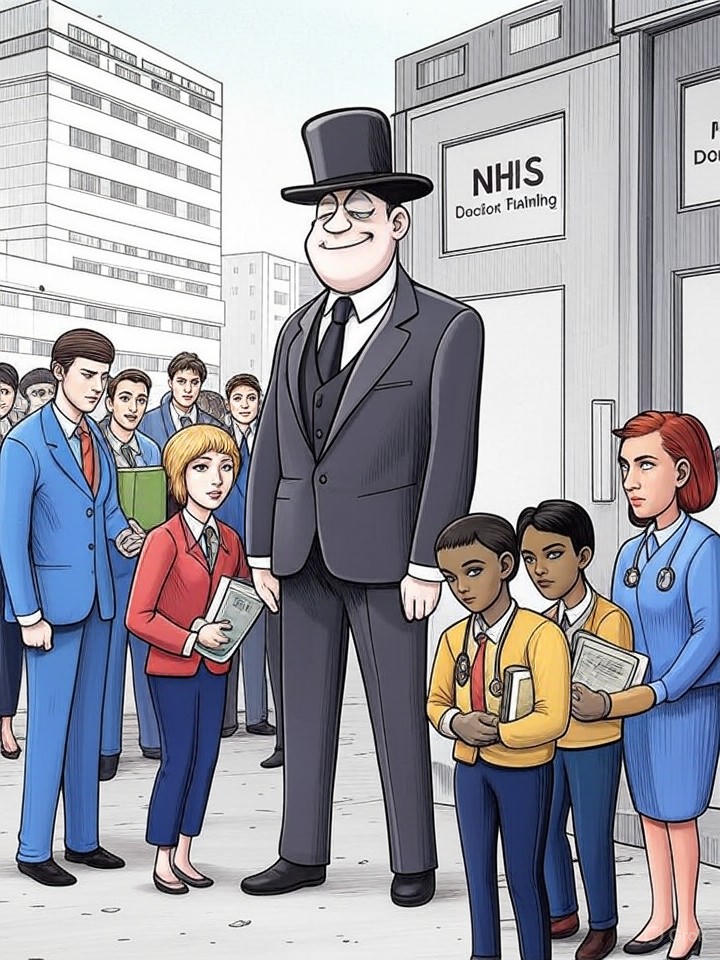
• via mattgoodwin.org
15,000 British Applicants Denied Doctor Training Annually
25,770 apply for 8,126 NHS places as imports surpass home training
UK governments cap medicine training at 8,126 places despite 25,000+ applicants yearly, rejecting qualified Britons while importing over 40% of NHS doctors from abroad. Cross-party failure sustains shortages and ethical drains.
#nhs #immigration #medicaltraining #doctorshortages #governmentfailure -

• via The Telegraph
158 "I Don't Knows" Win Four-Year Stay
Afghan small boat arrival overrides expert age assessors on epilepsy claim
Upper tribunal grants asylum despite 207 memory lapses in interviews, exposing verification gaps in UK's overwhelmed system. Appeals routinely favour claimants over Home Office doubts, sustaining inflows amid public costs.
#asylum #homeoffice #immigration #bordercontrol #agedisputes -

• via thetimes.com
17,670 British Medics Rejected Yearly Amid NHS Import Binge
Caps hold places at 8,130 as 25,800 apply; training costs £160k each
UK governments cap medical training despite surging applications, rejecting qualified Brits while importing 20,000 doctors annually. Systemic bottlenecks and poor retention ensure perpetual shortages across parties.
#nhs #doctors #trainingcaps #immigration #shortages -
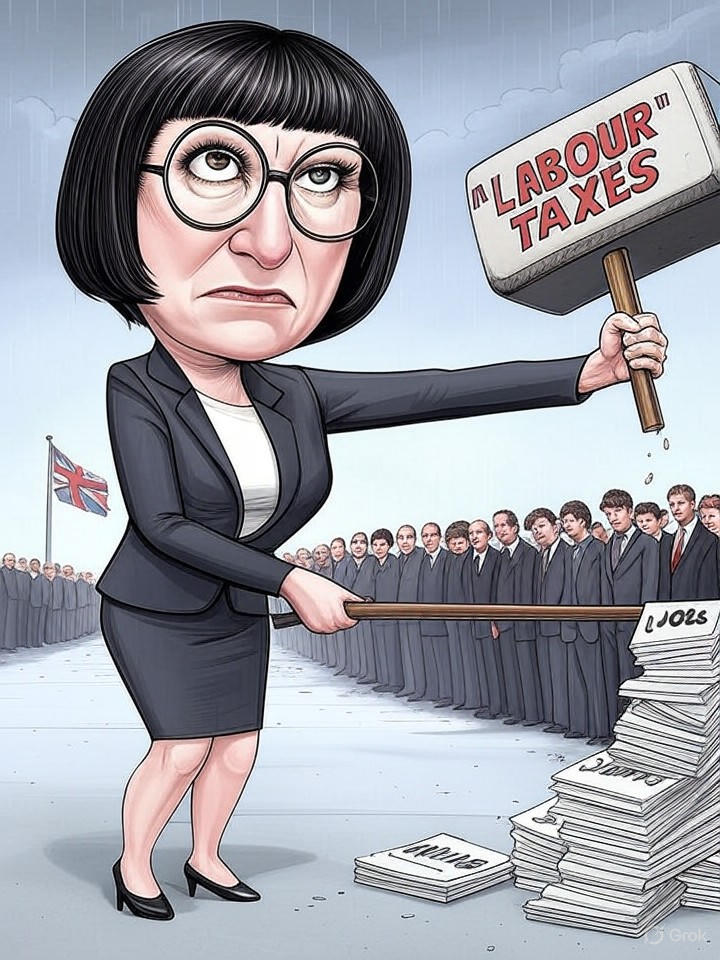
• via Conservative Post
Britain's Jobs Market Weakens to 2011 Lows
Permanent vacancies drop across all sectors after Labour's NIC hike
Independent indices show Britain's jobs market at a 14-year low despite Labour's job creation claims. Employer taxes link directly to hiring freezes and permanent role losses, hitting low-income workers hardest.
#economy #labour #unemployment #taxes #jobsmarket -
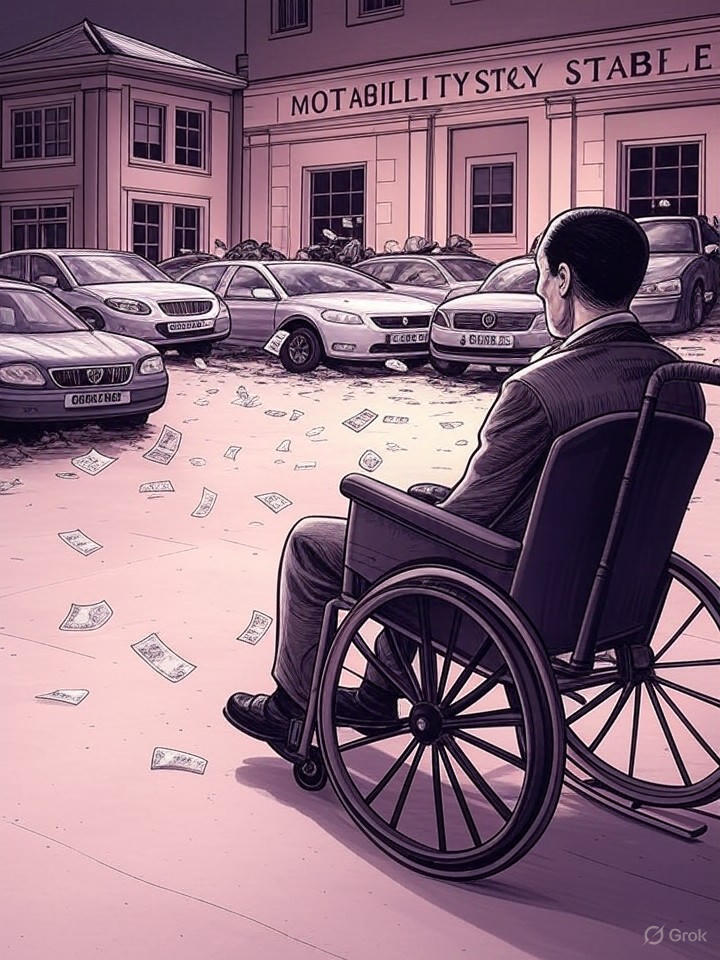
• via Liverpool Echo
Eighty Sleuths Trail Stable Abuse in Ballooning Disability Fleet
£400 Tax Rise Hits Leases as Misuse Cases Multiply with Customer Surge
Motability's new investigations unit targets vehicle misuse amid stable rates and scheme growth. Labour tax hikes add £400 to costs, exposing welfare expansion that outruns controls across governments. Taxpayers fund unchecked vulnerabilities.
#motability #welfare #disability #dwp #taxpayerwaste -
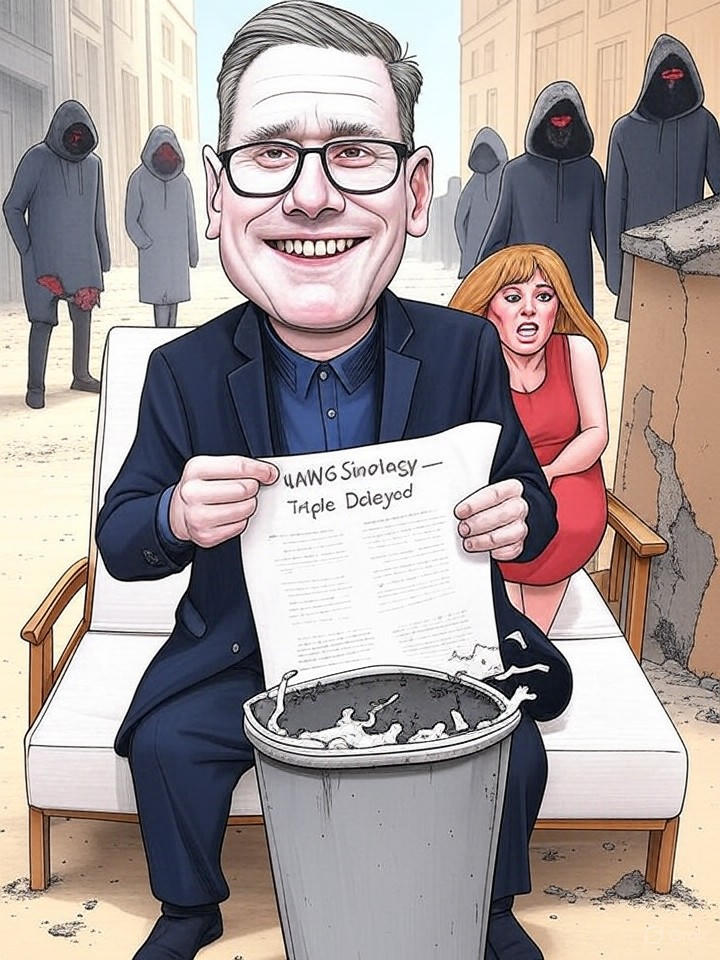
• via BBC News
Government Drops VAWG Strategy on Recess Eve After Triple Delay
Labour targets boys' radicalisation amid 200 daily rapes and collapsing cases
Labour's VAWG strategy arrives after three delays, dumped before Christmas recess, with vague tools despite halving pledges. Systemic justice failures persist across parties, framing boys as threats while victims abandon broken processes.
#vawg #labour #delays #justicefailure #youthradicalisation -
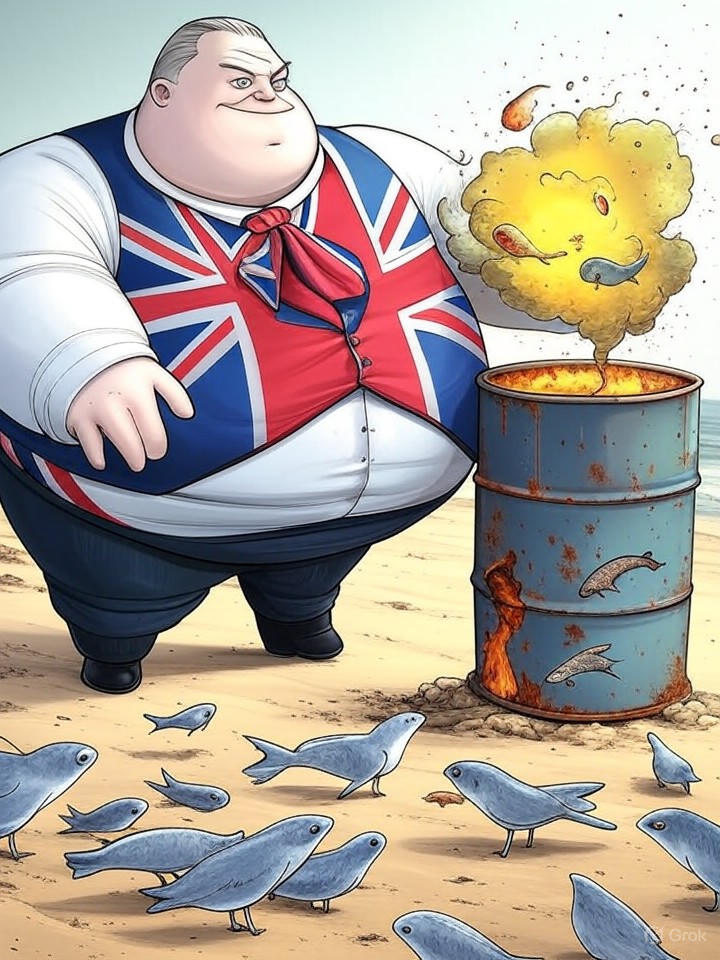
• via BBC News
Heavy Metals Escape Water Firm's Containment
King's College tests reveal lead and arsenic in millions of spilled bio-beads from Southern Water plant
Southern Water's bio-bead spill litters Sussex beaches with heavy metal-tainted plastic, threatening wildlife despite post-2003 regulations. Privatised infrastructure and weak oversight sustain environmental decay across governments.
#waterpollution #southernwater #privatisationfailure #heavymetals #wildlifeimpact -
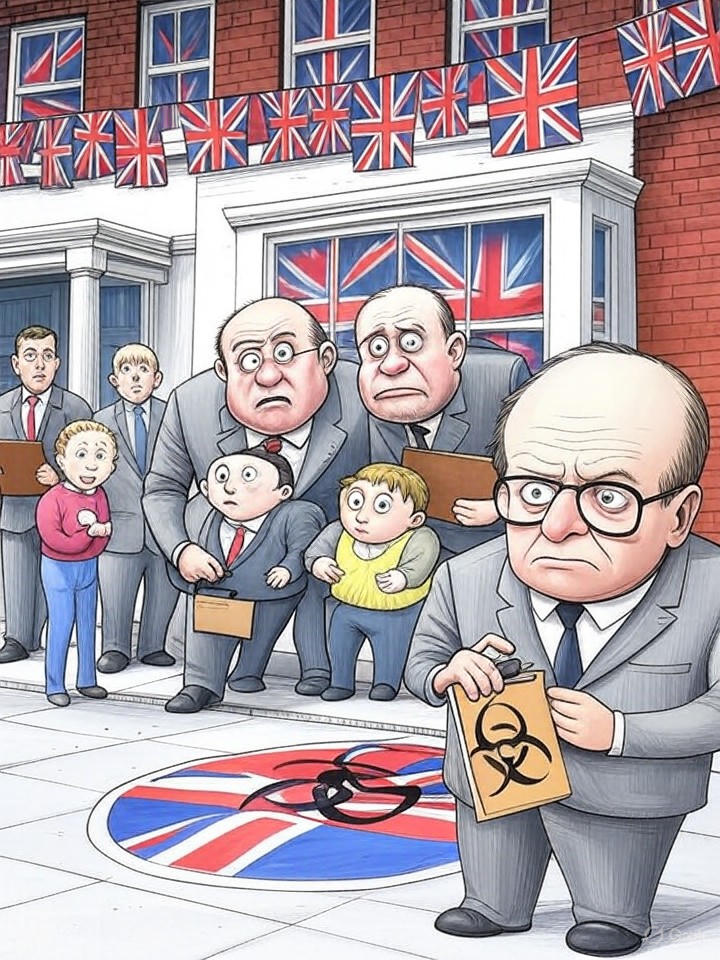
• via GB News
Union Jack Flags Mark Foster Parents as Risks
Local probe deems patriotic display a child safeguarding threat
Authorities investigate foster parent over window flag, risking custody loss. Pattern bars acquitted citizens from child roles via twisted safeguarding rules, overriding juries and deepening institutional bias.
#freespeech #fostercare #safeguardingabuse #unionjack #localauthorities -

• via the Guardian
£2.3 Billion Funds Distant School Taxis
Councils blame names and Covid for SEND transport surge
England's £2.3bn annual school transport bill exposes absent local SEND provision, with councils proposing semantic fixes over capacity building. Taxpayers fund isolation taxis amid cross-party planning failures.
#send #education #localgovernment #publicspending #taxpayerburden -

• via The Telegraph
£40,250 Next Door: Labour Election Chief's Rent Claim
Pat McFadden rented adjacent to his owned Wolverhampton house for five years on expenses
Labour's Pat McFadden claimed £40k taxpayer rent next to his own property, complying with rules but flouting their spirit amid post-scandal loopholes. This reveals enduring MP incentives that prioritise personal gain over public interest across governments.
#mpexpenses #patmcfadden #taxpayerwaste #ipsarules #accountabilitygap -

• via GB News
Afghan Charged After Online Grooming of Two 14-Year-Olds
Bolton flat assault leads to custody amid asylum vetting gaps
A 28-year-old Afghan national faces child rape charges after online contacts with two 14-year-olds, exposing failures in migrant vetting and integration that endanger UK girls across governments.
#immigration #child-rape #asylum-failures #grooming #bolton -
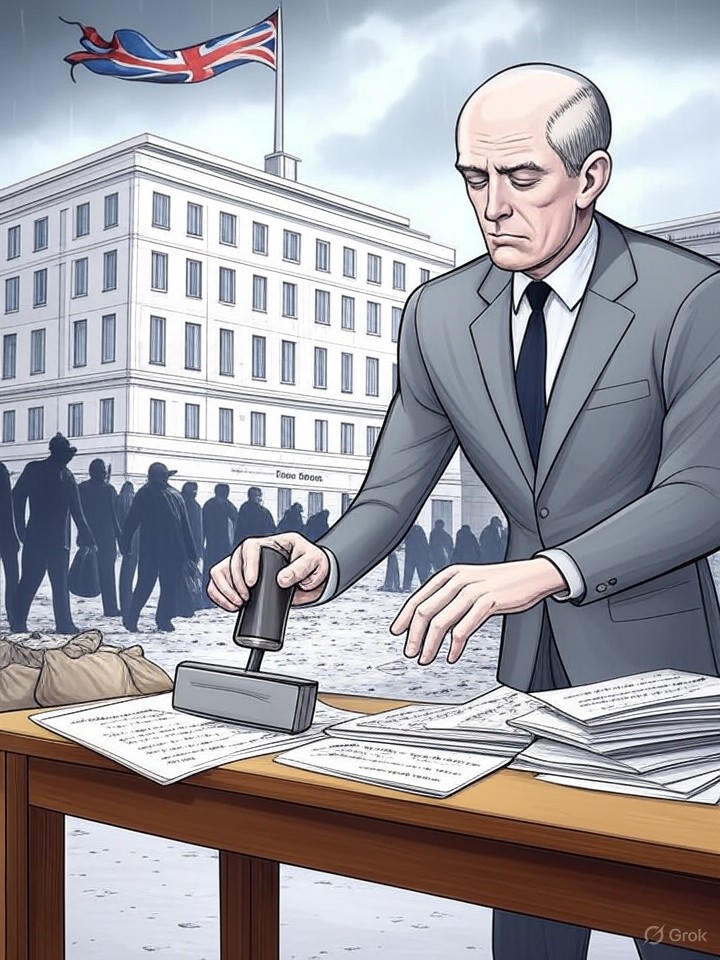
• via The Telegraph
Asylum Granted on Paper Promises
Questionnaires replace interviews amid 110,000 claims and £2.1bn costs
Home Office skips face-to-face scrutiny for high-grant asylum claims, clearing backlogs on self-reported evidence despite caseworker warnings of fraud risks. Cross-party shortcuts sustain inflows and taxpayer burdens.
#asylum-backlog #immigration-controls #home-office #channel-crossings #refugee-grants -
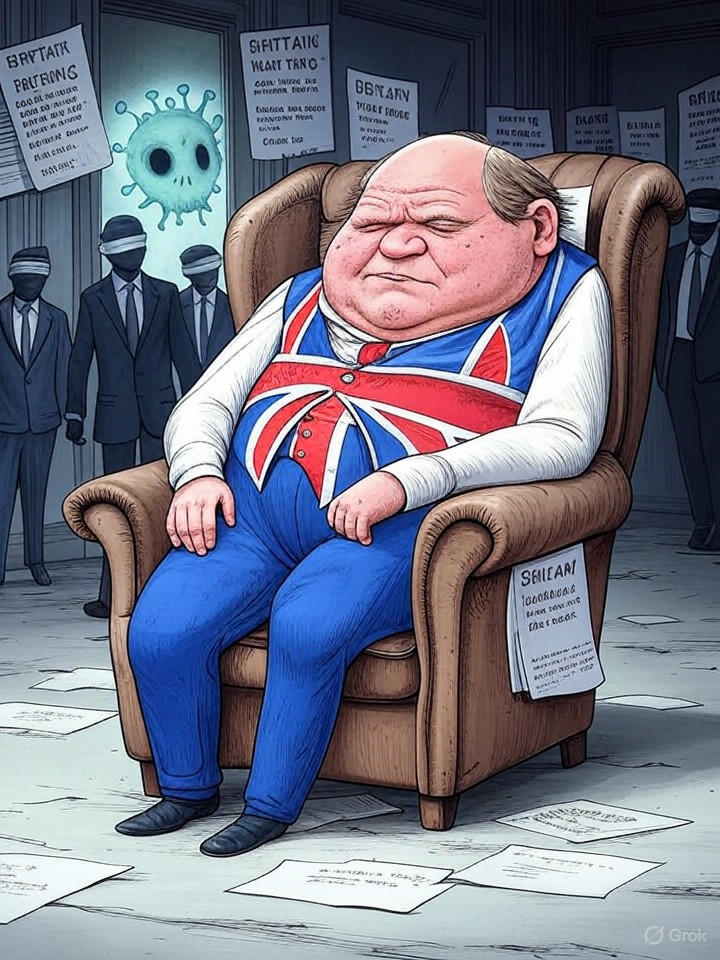
• via thetimes.com
Covid Lingers as the Unspoken Scapegoat
Backlogs double, debt surges £300bn, welfare claims explode—yet leaders avert their gaze
Lingering pandemic effects dominate court delays, NHS waits, and welfare costs, but pre-existing institutional frailties across governments turned shocks into systemic breakdowns. Silence perpetuates the decline.
#covidlegacy #courtbacklogs #nhswaitinglists #welfaresurge #nationaldebt -

• via The Telegraph
HMS Ambush Logs 1,222 Days in Port
Astute backlog strands nuclear fleet amid Russian advances
Delays leave Britain's submarines idle for years, slashing deterrence as Russia probes UK waters. Rear Admiral Mathias warns of total programme collapse across governments.
#nuclearsubmarines #defencefailure #astuteclass #dreadnoughtdelays #russianthreat -

• via The Telegraph
Slough Council Flat Shelters IS Somalia Leader's Family
MI5-monitored preacher gained UK citizenship, fled to jihad, left wife and children on state support
UK granted citizenship to a radical preacher who became IS Somalia's leader; his family remains in council housing despite his 2016 passport-burning jihad pledge. Vetting and deportation failures span governments, subsidising terror ties.
#terrorism #extremism #nationalsecurity #immigrationvetting #citizenshippolicy -

• via mattgoodwin.org
109,000 Britons Leave as Asylum Inflows Mirror Exodus
ONS provisional data reveals net migration drop to 204,000 hides Briton exodus and asylum surge
Labour touts net migration fall to 204k, but 109k more Britons left than returned, matched by asylum claims. Non-EU dominance and failed deportations signal ongoing demographic swap across governments.
#net-migration #ons-data #british-emigration #asylum #demographic-shift -

• via GB News
170 Extremists Britain's Laws Cannot Expel
Home Office admits over half terrorism-linked, stuck on restricted leave
Human rights laws block deportation of 170 foreign threats, over half terrorism-linked, forcing perpetual UK monitoring. Reforms nibble edges; core failures span governments.
#homeoffice #terrorism #echr #deportation #immigration -

• via The Telegraph
78,000 Visas Ride on Fabricated Passes
IELTS marking errors and leaks admit thousands with poor English to NHS and universities
Technical glitches and cheating on IELTS tests granted 78,000 visas despite English failures, exposing integration risks in NHS and education. Home Office data gaps and no deportations signal enduring border control breakdowns.
#immigration #visas #ielts #britishcouncil #integration -
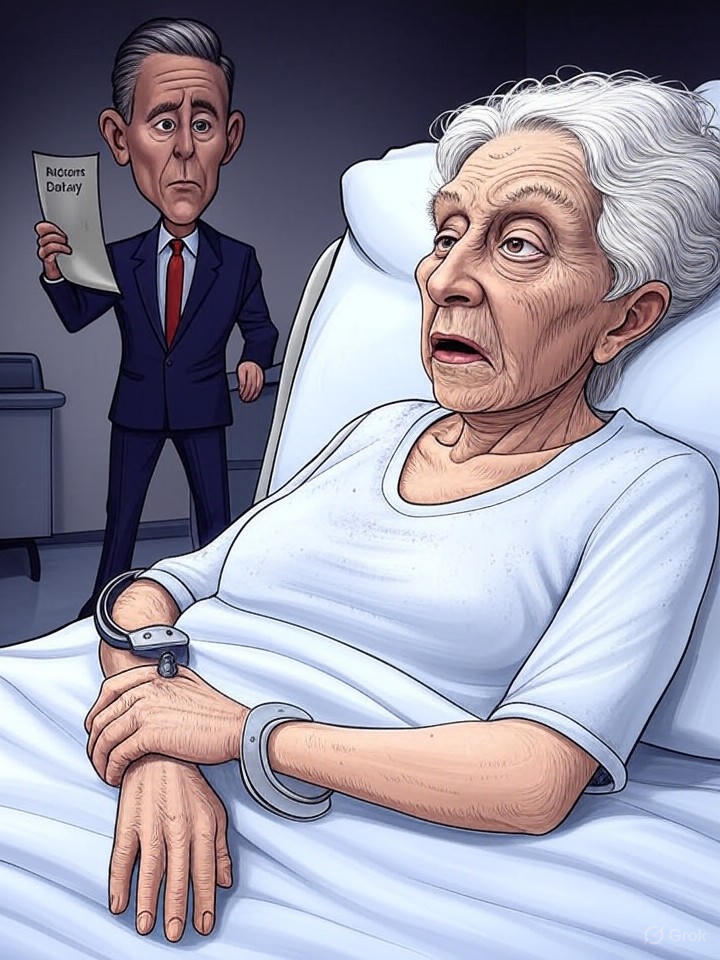
• via The Standard
Bedbound at 84, Branded Criminal Over a Sold Peugeot
Single Justice Procedure convicts despite mitigation and no risk
An 84-year-old pensioner gains a criminal record for uninsured idling car post-licence surrender. Labour delays SJP reform amid cross-party failure to shield the vulnerable.
#singlejusticeprocedure #dvla #pensionerprosecution #justicesystem #labourreformdelay -

• via Scottish Daily Express
Former First Minister's brother-in-law faces trial for heroin supply and extortion linked to a man's fatal fall from a Dundee flat
Ryan Munro's deadly plunge ties to Class A dealing amid Scotland's record 1,180 drug deaths in 2023
Humza Yousaf's brother-in-law stands trial for drugs and extortion in a case linked to a fatal fall, spotlighting SNP-led failures amid Europe's highest drug death rates. Elite detachment persists as street-level horrors claim lives unchecked.
#snpfailure #drugscrisis #humzayousaf #scotlanddecline #accountabilitygap -

• via The Telegraph
Hand-Picked Allies Shape Speech-Chilling Rules
MHCLG bars Free Speech Union and EHRC while granting select groups private access
Government shields expansive Islamophobia definition from critics under 'safe space' pretext, exposing curated consultations that risk free speech as blasphemy curbs. EHRC warns of legal clashes amid exclusions of key watchdogs.
#islamophobiadefinition #freespeech #governmenttransparency #consultationfailure #ehrc -
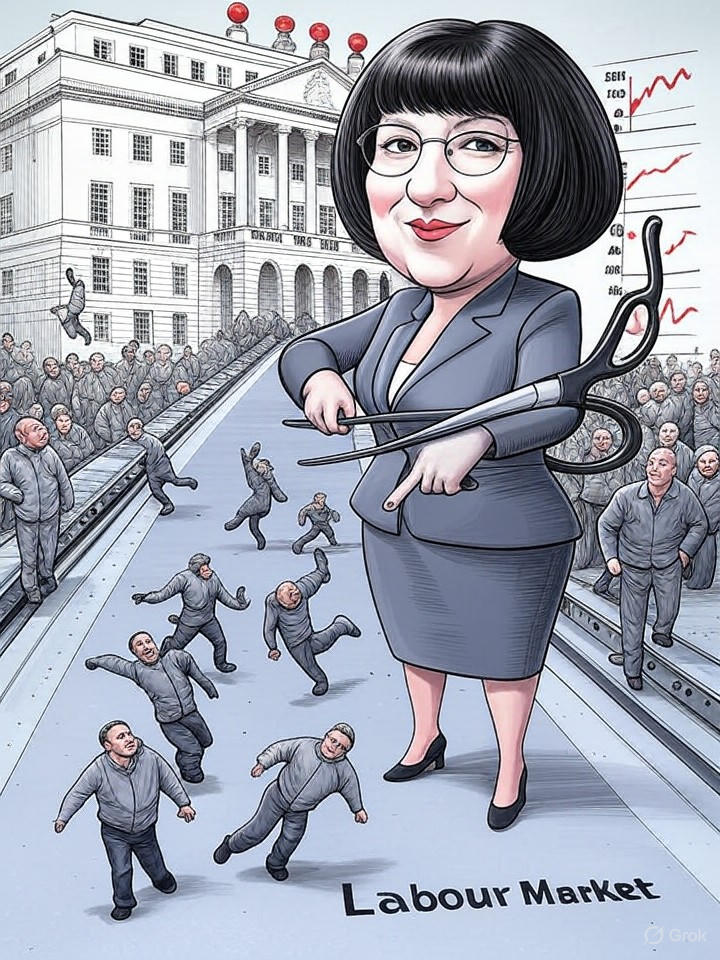
• via GB News
Staff cuts surge to pandemic-era speeds
Private employment falls 1.8% in November as Budget fog triggers fastest purge since 2021
Bank of England data records the sharpest private-sector job drop since mid-2021, with unemployment at 5%. Policy chaos across governments erodes business confidence and labour market stability.
#unemployment #bankofengland #rachelreeves #labourmarket #fiscalpolicy -

• via BBC News
171 Riders Arrested in National Delivery Raid
60 face deportation amid 36,457 yearly returns
Home Office blitz arrests 171 gig workers, deports 60, but annual returns up 11% reveal token action in uncontrolled immigration system. Gig firms adapt checks; deeper failures persist across governments.
#homeoffice #illegalworking #gigeconomy #deportations #immigrationenforcement -
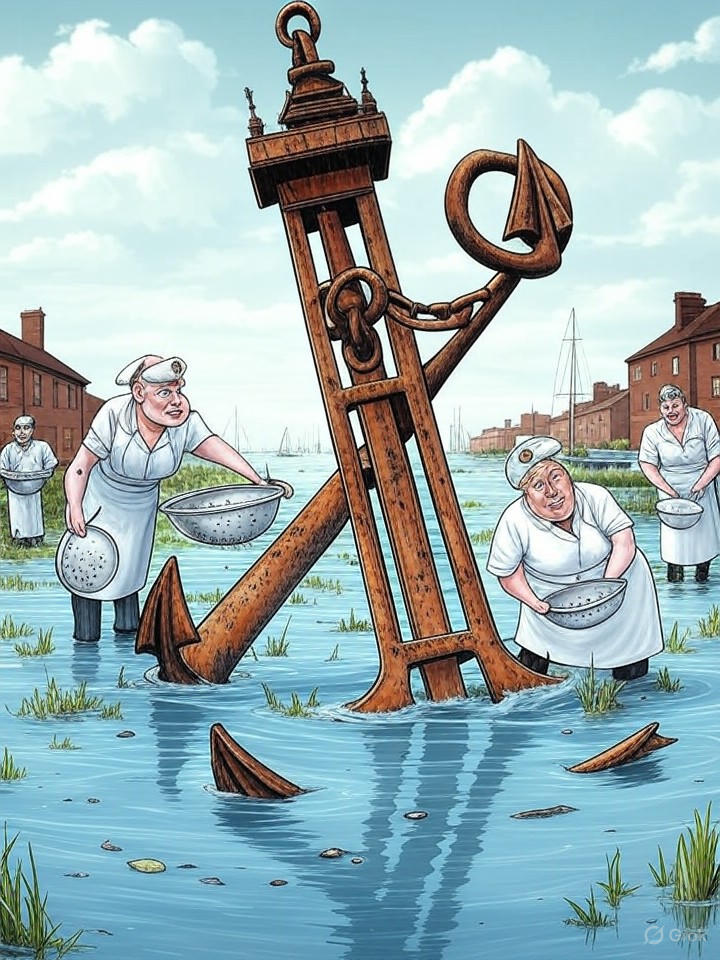
• via the Guardian
Blackpool's Seven Most Deprived Neighborhoods Anchor England's Worst NHS Trust
2,450 patients per GP overloads deprived districts as top trusts hoard talent
England's worst NHS trusts cluster in its most deprived areas, overwhelmed by chronic illness and starved of staff. Outdated funding and random recruitment entrench the divide, dooming prevention plans amid budget slashes.
#nhsdecline #healthinequalities #deprivationtrap #staffshortages #gpfunding -

• via the Guardian
Plastic Bears and Black Skies: Britain's Festive Fraud Loop
Sixteen years of mud, queues, and refunds
Recurring Christmas event disasters reveal unchecked commercial hype and underdelivery, eroding family trust and leisure standards across two decades. No lessons learned, just refunds and relaunches.
#culturaldecline #consumerfraud #leisuresector #familycosts #trusterosion -

• via the Guardian
Thai Crypto Magnate Drops £9m on Reform UK
Harborne's Tether stake funds Farage amid policy alignment on deregulation
A Thailand-based crypto investor's £9m donation to Reform UK highlights how opaque fortunes from Tether profits now steer British politics, crossing party lines with zero accountability. Voters lose ground to donor priorities.
#reformuk #partyfunding #cryptoinfluence #nigelfarage #donorpower -

• via The Scottish Sun
Falkirk Hotel Shelters Third Sex Offender in Two Years
Cladhan site follows rape conviction and dropped flashing charges
A third sex crime charge from Falkirk's asylum hotel underscores dispersal policy failures, placing unvetted men amid families and fueling protests. Communities suffer repeated assaults with no systemic fix.
#asylumhotels #falkirk #sexualassault #dispersalpolicy #scotlandcrime -
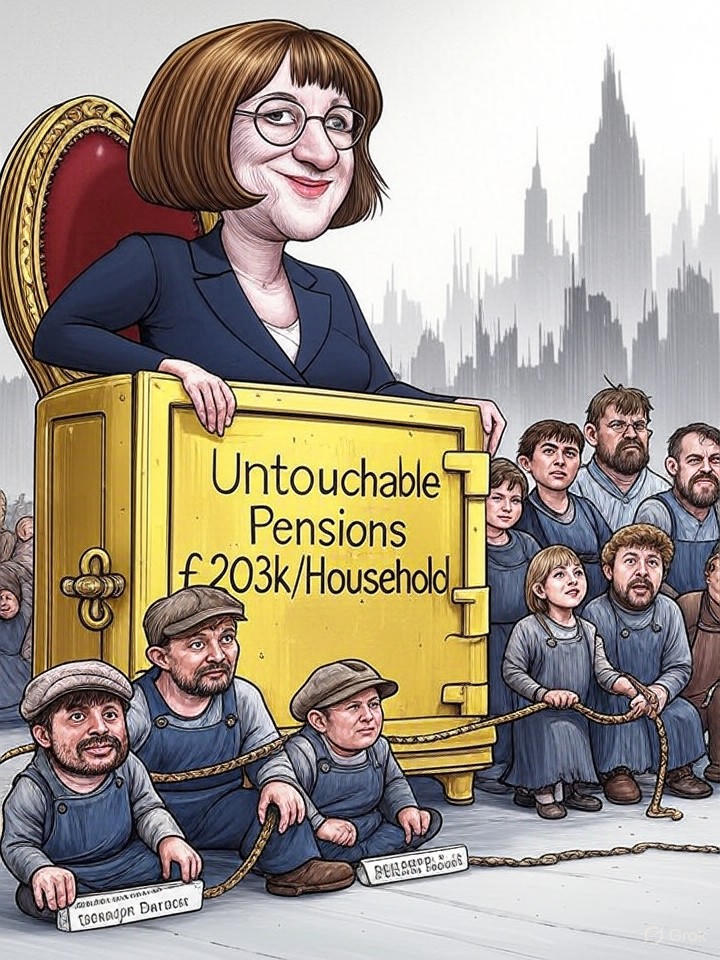
• via The Telegraph
£203,000 Per Household Funds Untouchable Public Pensions
£5.8tn liabilities rise 17% as private pots face raids
Public sector pensions hit £5.8tn, or £203k per household, untouched by Budget cuts that hit private workers. This two-tier system distorts markets and burdens future taxpayers amid fiscal strain.
#publicpensions #fiscalburden #intergenerationalinequity #rachelreeves #taxpayercosts -
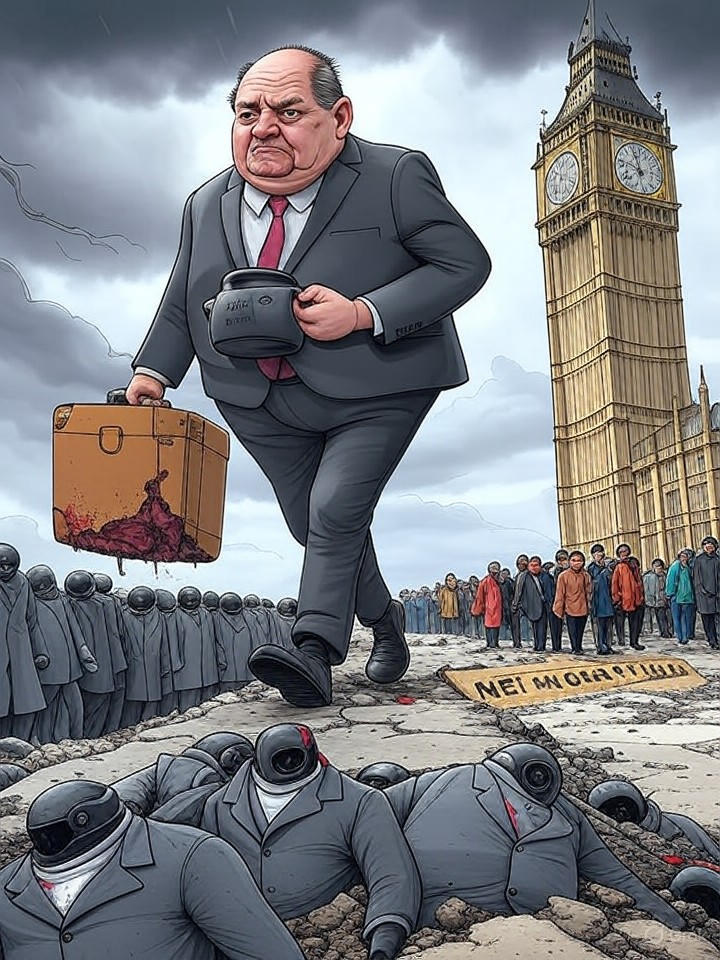
• via demographicfacts.co.uk
693,000 Departures Reshape Britain Silently
British net migration averages minus 78,000 annually since 1964
ONS data reveals record emigrations led by British nationals, with net migration falls masking demographic swaps. Historical outflows average 78,000 yearly, signaling unchecked national hollowing.
#netmigration #britishemigration #demographicchange #onsrevisions #braindrain -

• via the Guardian
103 Erroneous Releases Since April
128% yearly surge as Justice Secretary claims improvements
England and Wales saw 103 prisoners freed by error since April, a 128% annual rise, with two still at large. Justice Secretary Lammy's downward trend claim ignores climbing numbers and public safety gaps.
#prisons #criminaljustice #davidlammy #wrongfulreleases #publicsafety -

• via The Telegraph
20,717 Glasgow Pupils Need English Fluency Aid
28.8% EAL rate, up a third since 2019, strains asylum-hub schools
Glasgow schools hit Scotland's highest EAL rate at 28.8%, fueled by asylum housing rules drawing migrants from England. Integration lags as resources stretch thin, eroding cohesion and standards.
#ealpupils #glasgowschools #asylumseekers #socialcohesion #snppolicy -

• via the Guardian
Ceilings Fall, UN Warns of Social Housing Rot
Four collapses in one L&Q flat prompt UN alert on habitability failures
UN experts cite London's largest housing association for systematic neglect after a family's decade of ceiling crashes, mould, and ignored harassment. Ombudsman fines confirm decline, but redress lags far behind damage.
#socialhousing #l&q #unexperts #housingombudsman #dampandmould -

• via the Guardian
One in Four Police Forces Lacks Sexual Offence Policies
Four years after Sarah Everard, Angiolini report exposes paralysis in reforms
Dame Elish Angiolini's inquiry reveals 26% of England and Wales forces without basic sexual crime protocols, despite cross-party promises. Underfunding and inertia leave women exposed amid unmapped predator threats.
#policefailures #saraheverard #violenceagainstwomen #institutionalinertia #publicsafety -

• via BBC News
OBR Chair Falls on Junior's Sword
Richard Hughes exits after leak, as Reeves faces replacement pressures and remit tweaks
Richard Hughes's resignation over a staff leak highlights mounting political assaults on OBR independence. Reeves's successor pick and forecast changes risk market backlash and deeper fiscal opacity.
#obr #rachelreeves #fiscalindependence #budget2025 #richardhughes -
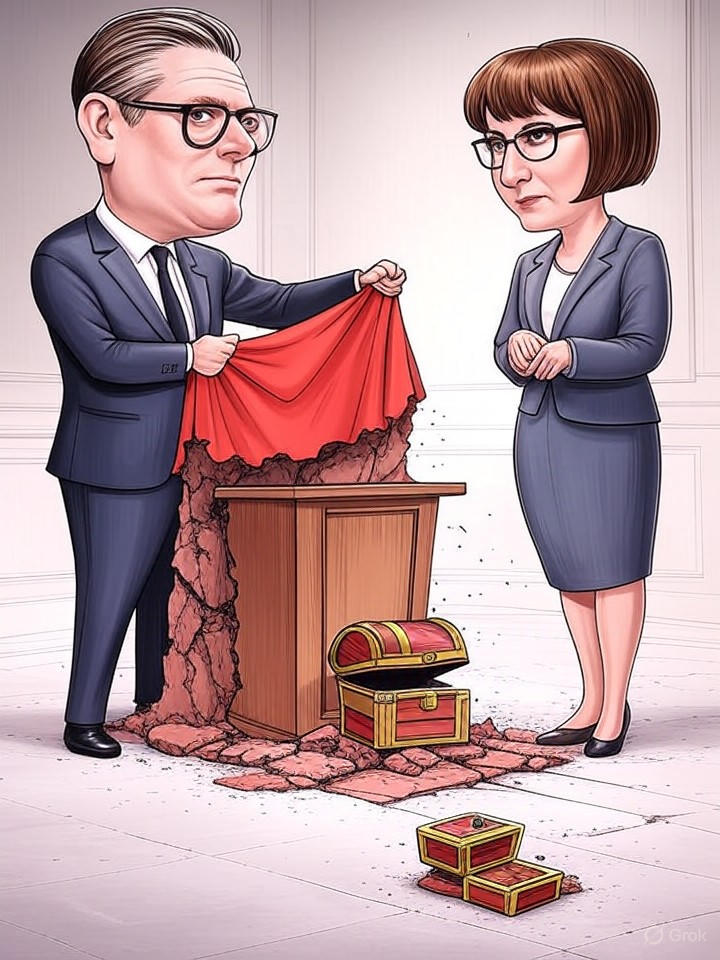
• via Sky News
Starmer Quotes £16 Billion OBR Hit, Skips Net £5-6 Billion Tally
Productivity review offset by wages, yet welfare U-turns and headroom hikes forced £26bn tax rises
Keir Starmer blamed a £16bn OBR productivity hit for tax hikes, omitting offsets that cut the net impact to £5-6bn. Actual drivers: welfare reversals and doubled fiscal headroom, revealing choice over necessity.
#starmer #reeves #budget2025 #fiscalrules #obr -

• via The Grayzone - News and investigative journalism on empire
British Editors Apologise to Defence Ministry Censors
DSMA achieves 90% success in spiking security stories, files show
Declassified files reveal UK's DSMA Committee censors media with 90% success via D-Notices, logging 50 interventions on a spy's mysterious death alone. Legacy outlets apologise for compliance lapses as state control extends to social media.
#censorship #dsma #d-notices #mediacontrol #intelligenceagencies -

• via Sky News
Convicted in Dhaka, Seated in Westminster
Labour MP's two-year corruption sentence raises questions over UK vetting
Tulip Siddiq's absentia conviction in Bangladesh exposes weak parliamentary safeguards for MPs with foreign dynastic ties. UK clearance despite charges entrenches a low-bar accountability system amid falling public trust.
#tulipsiddiq #labourparty #parliamentaryethics #corruption #accountability -

• via GB News
Sri Lankan Bombing Suspect Gains Fresh UK Asylum Shot
Upper Tribunal remittal ignores 269 deaths for procedural reset
A man arrested over Sri Lanka's 2019 Easter bombings that killed 269 overturns his UK asylum refusal on legal errors, forcing a full rehearing. This procedural win highlights chronic Home Office flaws prioritizing technicalities over security risks.
#asylum #immigration #terrorism #homeoffice #tribunals -

• via Mail Online
Treasury briefed markets on hidden fiscal headroom after Reeves' public panic
OBR slashed projected £20bn shortfall to £2.5bn; Chancellor proceeded with tax narrative
Rachel Reeves ignored favourable OBR forecasts, reversed tax signals politically, then leaked data to markets—exposing risks of FCA sanctions and deepening fiscal opacity.
#rachelreeves #obrforecast #budgetblackhole #taxthresholdfreeze #marketmanipulation -
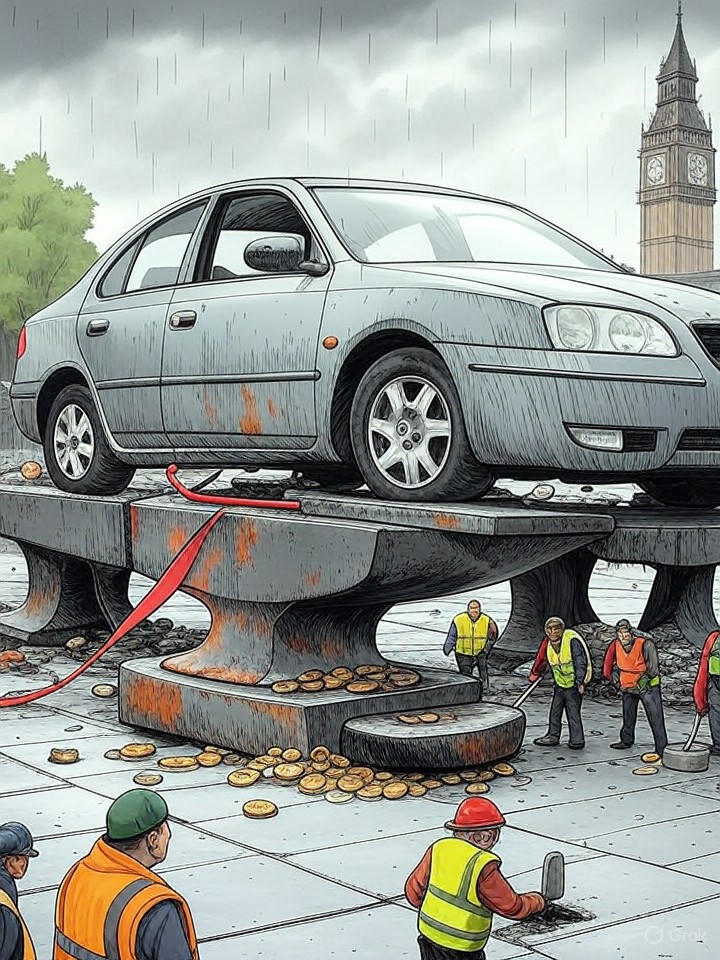
• via the Guardian
Zipcar's Flex Model Crumbles Under UK Costs
£11.7m loss forces world's largest car-share firm to abandon London fleets
Zipcar closes UK operations after heavy losses, highlighting how high costs and regulations drive global innovators from Britain's cities. Sustainable transport goals suffer as urban mobility options shrink.
#car-sharing #londoneconomy #businessexit #greentransport #fiscaldrag -

• via the Guardian
£10.5 Billion Green Bonds Mask Water Firm Filth
Thames and Anglian lead issuance amid record spills and dividend payouts
Privatised water companies raised £10.5bn in green bonds since 2017, promising environmental gains, while sewage pollution surged and dividends flowed to shareholders. Regulators collect fines but permit ongoing decay.
#waterindustry #greenbonds #sewagepollution #privatizationfailure #environmentagency -

• via The Telegraph
Reeves Invented a £30 Billion Shortfall
Inflation surplus funds £16bn benefits surge amid manifesto breach
Rachel Reeves cited a non-existent black hole for £26bn tax hikes, ignoring inflation revenues to boost welfare to 25% of budget. This inverts incentives, drives young emigration, and locks in high-tax stagnation.
#rachelreeves #budget2025 #taxrises #welfarespending #fiscaldrag -

• via BBC News
£15.8 Million Annual Taxi Spend Ends in Partial Ban
250-mile GP trips and £1,000 daily runs prompt February restrictions amid rising hotel use
Home Office bans most asylum taxi use after £15.8m yearly waste exposed, but surging applications, backlogs, and hotel numbers reveal systemic asylum failures persisting across governments. Taxpayers foot bills for policy inertia.
#asylumhotels #homeofficewaste #migrationcosts #taxiscandal #backlogsurge -

• via The Guardian
£26 Billion Tax Hike Shields "Creaky" Services from Reform
Reeves rejects cuts despite OBR downgrade, pins burden on wealth amid historic tax peaks
Rachel Reeves' £26bn tax rise targets the wealthy to fund decaying public services, ignoring fiscal drag on workers and decades of cross-party underperformance. OBR disputes reveal gaps between claims and fiscal reality.
#rachelreeves #budget2024 #taxrises #publicservices #obr -

• via Yahoo News
69-year-old dementia sufferer gains criminal record over £174.50 TV licence lapse
Single Justice Procedure convicts despite unread mitigation on mental decline
A pensioner with dementia receives a conviction via secretive SJP for an unpaid TV licence, as prosecutors skip his explanatory letter. Reforms stall while the system criminalises vulnerability unchecked.
#singlejusticeprocedure #tvlicence #dementiaprosecution #bbcenforcement #justiceflaws -

• via edwest.co.uk
Lord Chancellor Targets Magna Carta Safeguard
Lammy memo eyes jury phase-out amid 2030 trial delays
Justice Secretary David Lammy proposes ending jury trials for most crimes, eroding an 800-year Magna Carta right. Fiscal crises drive the shift, centralizing power in judges as backlogs hit 2030.
#jurytrials #magnacarta #justicesystem #davidlammy #courtdelays -

• via The Telegraph
Overnight Cell for Florida Shotgun Snapshot
IT consultant loses 13 weeks of work after police seize devices over LinkedIn holiday post
West Yorkshire Police arrested a man for a legal US gun photo online, dropping all charges after seizing his livelihood tools. This overreach highlights subjective complaints driving arrests amid free speech erosion.
#policeoverreach #freespeech #socialmediaarrests #publicorderlaws #institutionaldistrust -

• via The Telegraph
Private Pensions Yield £56 Billion in Drag, Public Sector Pensions Untouched
Threshold freeze and NI raid private pots for a decade while public schemes stay gold-plated
Budget measures extract £56bn from private pensions via fiscal drag and NI hikes, leaving public sector schemes untouched and guaranteed. This entrenches a two-tier system that burdens productive workers.
#pensions #budget-2025 #fiscal-drag #public-sector #private-sector -

• via BBC News
Pub Rates Bills Jump 66% Despite Lowest-Tax Vow
£62,000 hit to one chain exposes high street pain
Chancellor Reeves pledged tax relief for pubs but revaluations and discount cuts drive 66% average bill hikes, squeezing margins amid NI and wage rises. Closures loom as fiscal drag hits small firms hardest.
#businessrates #pubs #budget2025 #rachelreeves #hospitalitysector -

• via BBC News
Reeves Highlights Productivity Downgrade, Omits Wage Offset
OBR wage buffer granted £4.2bn headroom before £26bn tax rises
Rachel Reeves emphasized productivity weakness pre-Budget but ignored OBR-noted wage offsets that eased fiscal rules. This selective narrative justified £26bn tax hikes amid known headroom, exposing persistent opacity in fiscal communication.
#rachelreeves #budget2025 #obr #fiscalrules #taxrises -

• via Mail Online
Sixty-Six Billion Pounds Bury Manifesto Pledges
Starmer's tax surge dwarfs promised £10 billion cap amid G7-worst indicators
Labour's £66 billion tax rises shatter fiscal restraint vows, with employment pledges and growth targets also abandoned. Economic stagnation follows predictable leadership pivots across parties.
#starmer #taxes #manifesto #economy #u-turns -

• via Sky News
Southampton's Portswood Logs Afghan Assailant at Protest Hotel
30-year-old charged with triple assaults and illegal entry at protest-targeted site
An Afghan national's charges for three Southampton assaults highlight migration enforcement gaps, placing women at risk in protest zones amid unaccounted illegals.
#migrationfailures #publicsafety #sexualassaults #illegalentry #southampton -

• via The Standard
TfL Erases a Tag Every Three Minutes
Central line fleets run tagged amid 24/7 cleanups and zero arrests
TfL removes one graffiti tag every three minutes from Underground trains, yet Central line vandalism surges without arrests or deterrence. This exposes institutional reliance on cleanup over enforcement, deepening public transport decay.
#tfl #londonunderground #graffiti #vandalism #britishtransportpolice -

• via UK Defence Journal
Whistleblower Gagged After Database Leak Alert
Defence Committee transcript details ignored 2021 warning on Afghan data exposing thousands to Taliban risk
A whistleblower's early alert on a massive Afghan resettlement data breach drew official silence then a super-injunction, exposing institutional secrecy over ally safety amid ARAP failures.
#databreach #afghanresettlement #super-injunction #modfailure #arapscheme -

• via The Telegraph
53,298 Ghosts Haunt Home Office Ledgers
Absconders outnumber headline arrests amid decade-old enforcement gaps
Home Office data reveals 53,298 illegal migrants and 736 offenders missing despite rising raids and returns. This persistent failure spans governments, exposing systemic breakdowns in border control and public safety.
#immigration #absconders #homeoffice #deportation #nationalsecurity -
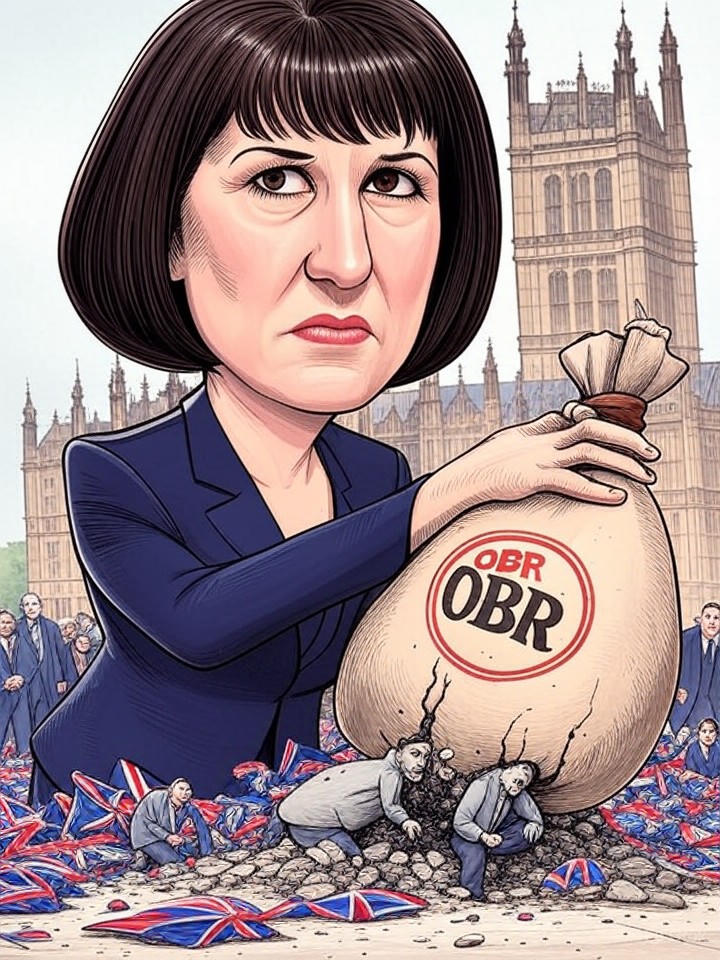
• via The Independent
£90 Billion: Parliament's Latest Brexit Tally
Commons Library analysis pins annual tax shortfall on 2016 vote amid pre-existing stagnation
A Lib Dem-commissioned report tallies £90bn yearly Brexit tax losses, yet UK woes trace to deeper productivity stalls and policy lapses across governments. Debate diverts from entrenched fiscal realities.
#brexit #economy #taxes #rachelreeves #obr -

• via BBC News
Afghan Rapist Enters Guilty Plea Amid Nationality Blackout
Nuneaton case forces police disclosure reckoning after weeks of silence
An Afghan national admits raping a 12-year-old girl, but initial police withholding of his origin sparked protests and cover-up claims. This exposes recurring transparency failures linking migration gaps to public safety breakdowns.
#migration #crime #police #protests #publicsafety -

• via The Telegraph
London's Native Population Plummets 48 Points Uncontested
From 85% white British in 1975 to 37% today
London's white British population share collapsed from 85% in 1975 to 37% now, a peacetime shift unmatched without conquest. Policy failures across governments enabled it, eroding cohesion without public consent.
#demographics #migration #london #whitebritish #socialcohesion -

• via BBC News
204,000 Net Inflows Coexist With 45,659 Boat Arrivals
ONS data reveals visa cuts offset by Channel surge and record asylum
Net migration fell two-thirds to 204,000, driven by fewer work visas, but small boat crossings hit near-record highs and asylum claims soared to 110,051. This exposes persistent gaps in irregular migration control across governments.
#netmigration #smallboats #asylumclaims #labourgovernment #homeoffice -

• via BBC News
£740: Parliament's Income Growth Ceiling
Treasury data shows top earners lose £2,000, bottom 20% £200 as thresholds freeze
Rachel Reeves' Budget spreads tax pain across incomes despite rhetoric on the wealthy, netting tiny gains for the poor amid OBR's 0.5% growth forecast—the second-worst on record.
#rachelreeves #budget2025 #taxthresholds #livingstandards #welfareexpansion -

• via The Guardian
Budget Backloads Pain to Election Eve
IFS exposes £850 household hit by 2029 amid threshold freezes
Rachel Reeves' budget delays tax rises and cuts until pre-2029 polls, hitting low earners hardest via threshold freezes. IFS warns of fiscal fiction as living standards fall £850 per household.
#budget2025 #rachelreeves #ifs #taxrises #livingstandards -

• via Sky News
Car Wash Owner Profits from Romanian Captives
Eight held in Mitcham shed, including 15-year-old, reveal persistent trafficking failures
A London car wash enslavement case exposes unchecked modern slavery in known hotspots, fueled by migration routes and stalled regulations across governments. Victims endured lockdown squalor while officials fail upstream prevention.
#modernslavery #humantrafficking #carwashes #romanianmigrants #enforcementfailures -

• via Sky News
Threshold Freeze Nets £220 Annual Levy on Basic Earners
Labour's manifesto honour drags workers into higher bands
Freezing tax thresholds per Labour pledge imposes stealth rises costing basic-rate taxpayers £220 yearly, outstripping direct rate hikes. This fiscal drag, extended to 2028, signals more pain amid downgraded growth and record burdens.
#budget2025 #taxthresholds #fiscaldrag #rachelreeves #livingstandards -

• via GB News
A German Citizen Dodges Deportation Citing His Own Language Barrier
25-year-old dealer wins appeal after 33-month drug sentence
A German national convicted of dealing heroin and crack cocaine avoids deportation to Germany due to poor language skills, exposing chronic failures in removing 11,000 foreign prisoners amid rising appeals. This pattern persists across governments, prioritizing rights over public safety.
#deportationfailures #foreignprisoners #humanrightsappeals #drugcrime #immigrationenforcement -

• via The Guardian
Campaigners Weaponise Prejudice Against Police Facts
Fivefold asylum mentions cited in bid to bury suspect ethnicity
Activist groups demand police halt ethnicity disclosures in high-profile crimes, claiming prejudice despite policy's roots in curbing Southport riots. This obscures crime patterns and erodes trust across institutions.
#police #ethnicity #transparency #migration #crime -

• via UnHerd
Migrant Inflows Mask Lifetime Fiscal Drains
OBR models capture GDP gains but ignore decades of benefits and pensions
UnHerd exposes how OBR forecasts treat low-skill immigration as a fiscal fix, overlooking lifetime costs that deepen Britain's debt crisis across parties.
#fiscalblackhole #obrprojections #low-skillmigration #rachelreeves #bondmarkets -

• via The Telegraph
Pointed kitchen knives over three inches now face a proposed £20 tax per unit
Ex-judge urges Reeves to price out sharp tips amid persistent stabbings
A former judge proposes taxing pointed kitchen knives £20 each to favor safer designs, backed by Southport survivors and Labour MPs. This sidesteps root causes like gang violence and vetting failures, taxing citizens for state breakdowns in public safety.
#knifecrime #rachelreeves #southportattack #taxpolicy #publicsafety -

• via BBC News
Private Letters from Public Office
Enfield ex-mayor apologizes for family visa endorsements
Former Enfield mayor Mohammed Islam resigned after writing visa support letters for relatives, drawing mild sanctions amid process appeals. This exposes local officials abusing public roles to sway migration decisions, deepening trust erosion.
#enfield #mohammedislam #visamisconduct #localgovernment #accountabilitygaps -

• via The Telegraph
£18 Billion Welfare Surge Buries Labour's Fiscal Vows
Threshold freezes drag nine million into higher taxes amid U-turns on child benefits and pensions
Rachel Reeves's Budget adds £15 billion to benefits through reversals and inflation-linked rises, funded by middle-class tax hikes that breach manifesto promises. This cross-party pattern exposes unchecked spending growth and political pressures overriding economic prudence.
#welfarespending #taxrises #labouru-turns #fiscalpolicy #benefitscap -
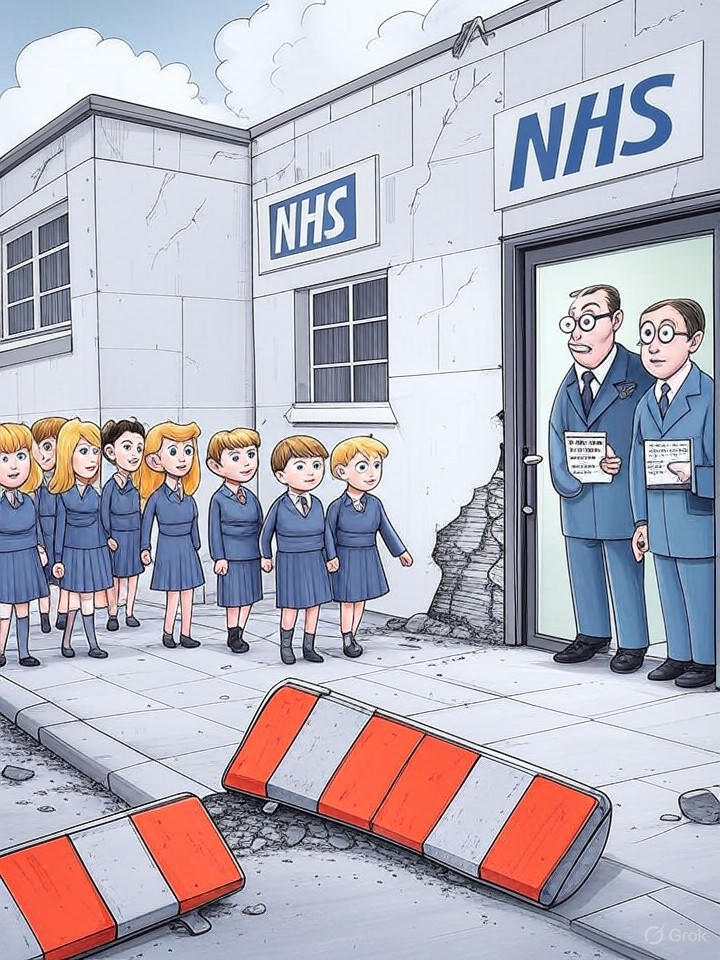
• via BBC News
220 Children Enter Puberty Blocker Trial After Safety Ban
King's College study tests banned drugs on under-16s amid ethical backlash and Cass review warnings
A new UK trial revives puberty blockers for gender-distressed youth despite a national ban on safety grounds, exposing persistent gaps in evidence-based child health policy. This move highlights cross-party failures to prioritize prevention over reactive research, deepening NHS trust erosion.
#pubertyblockers #gendercare #cassreview #nhsfailures #childhealth -

• via The Telegraph
Bombing Suspect's Appeal Delays Deportation Indefinitely
Sri Lankan Linked to 2019 Attacks That Killed Six Britons Secures UK Case Rehearing
A man suspected in the Sri Lanka Easter bombings exploits asylum appeals to remain in Britain, exposing vetting delays and reform shortfalls that prioritize procedure over public safety amid cross-party migration failures.
#asylum #terrorism #srilanka #homeoffice #immigrationreforms -

• via The Telegraph
Borrowing Overruns Signal Pre-Budget Paralysis
£116.8 Billion Deficit Dwarfs Forecasts as Tax Signals Sow Doubt
Rachel Reeves's chaotic Budget buildup has driven retail sales down 1.1% and business confidence into contraction, exposing fiscal rules that prioritize uncertain projections over economic stability. This pattern of volatility across governments deepens UK's debt trap.
#fiscalpolicy #taxincreases #economiccontraction #obrforecasts #publicdebt -

• via charlottecgill.co.uk
External Cash Pilots Parliament's Migration Agenda
£75,000 in Soros-linked donations to key APPG members
Donations from Soros-affiliated groups to MPs Olivia Blake and Tim Farron expose how external funding shapes UK migration policy through unregulated parliamentary forums, bypassing voter oversight and national priorities.
#migrationpolicy #politicalfunding #appgs #sorosinfluence #parliamentarytransparency -

• via The Telegraph
Middle-Class Squeeze Funds Expanding Welfare State
£3.4 Billion Welfare Boost Amid Tax Threshold Freezes
Labour's budget proposals redirect billions from workers' pockets to welfare expansions, perpetuating cross-party fiscal policies that stifle growth and drive emigration. This reveals systemic incentives favoring dependency over productivity.
#fiscalpolicy #welfarestate #taxburdens #economicstagnation #emigration -

• via The Telegraph
Asylum Claims from Kuwait Double in Four Years as Fraud Scripts Circulate
Home Office approvals hit 81 percent amid decade-old warnings of Iraqi fakes
Smuggling guides coach migrants to exploit Bidoon status for UK refuge, driving a surge in claims and approvals despite known fraud patterns and failed verifications.
#asylumfraud #bidoonloophole #homeofficefailures #immigrationsurges #bordersecurity -

• via The Telegraph
Pakistan's Asylum Claims Surge Through Legal Gates
Over 11,000 applications in a year, mostly from temporary visas
Data reveals Pakistanis exploiting UK visa routes for record asylum claims, exposing systemic failures in migration control that span governments and erode public trust. This internal gaming outpaces border crises, deepening economic and social strains.
#asylumclaims #visaloopholes #migrationpolicy #pakistaninflows #institutionalfailure -

• via GB News
Wethersfield's Wreckage Logs Unseen Toll of Asylum Overload
Whistleblower footage captures thousands in damages and health risks at taxpayer sites
RAF Wethersfield's chaos—smashed offices, absconders with diseases, and unchecked violence—exposes migration policy's core failures, costing billions while risks spread nationwide.
#asylumcrisis #taxpayercosts #institutionalfailure #bordercontrol #publicsafety -

• via The Guardian
2,241 Patients Per GP: England's Primary Care Reaches Breaking Point
Record consultations and funding shortfalls leave surgeries unable to hire amid rising risks
A 16% rise in patient loads over a decade, coupled with chronic underfunding, forces GPs to deliver unsafe care. Government pledges mask fiscal offsets that block recruitment, deepening NHS frontline collapse.
#nhs #gpshortage #patientsafety #healthfunding #workforcecrisis -

• via ITV News
Chocolate Bars Ferry £261,000 Cocaine Through Jersey's Gates
A London courier's global jaunts expose unchecked drug routes from Portsmouth ferries
Customs intercepted over two kilograms of cocaine hidden in sweets, but the bust reveals persistent border weaknesses and organized crime's grip on UK entry points. This isolated success masks rising drug deaths and enforcement shortfalls across governments.
#drugsmuggling #bordersecurity #organizedcrime #jerseycustoms #cocaineimportation -

• via The Spectator
Reeves' Grievance Shield Crumbles Under Budget Strain
First female Chancellor demands respect amid tax hikes that hit farmers and households hardest
Rachel Reeves attributes policy criticism to bias, deflecting from tax rises and leadership lapses that deepen UK's fiscal woes. Her personal narrative masks institutional failures repeating across governments.
#rachelreeves #budget2024 #economicpolicy #leadershipaccountability #taxincreases -

• via The Guardian
Toxic Dumps Multiply Under Regulatory Gaze
Seven Mega-Sites Known, Zero Cleanups Planned Beyond One £15m Effort
Organized crime dumps hundreds of thousands of tonnes of hazardous waste across UK sites known to authorities, with slow responses and failed enforcements exposing institutional failures in environmental protection. Taxpayers bear escalating costs as pollution spreads unchecked.
#wastecrime #environmentagency #organizedcrime #environmentaldamage #regulatoryfailure -
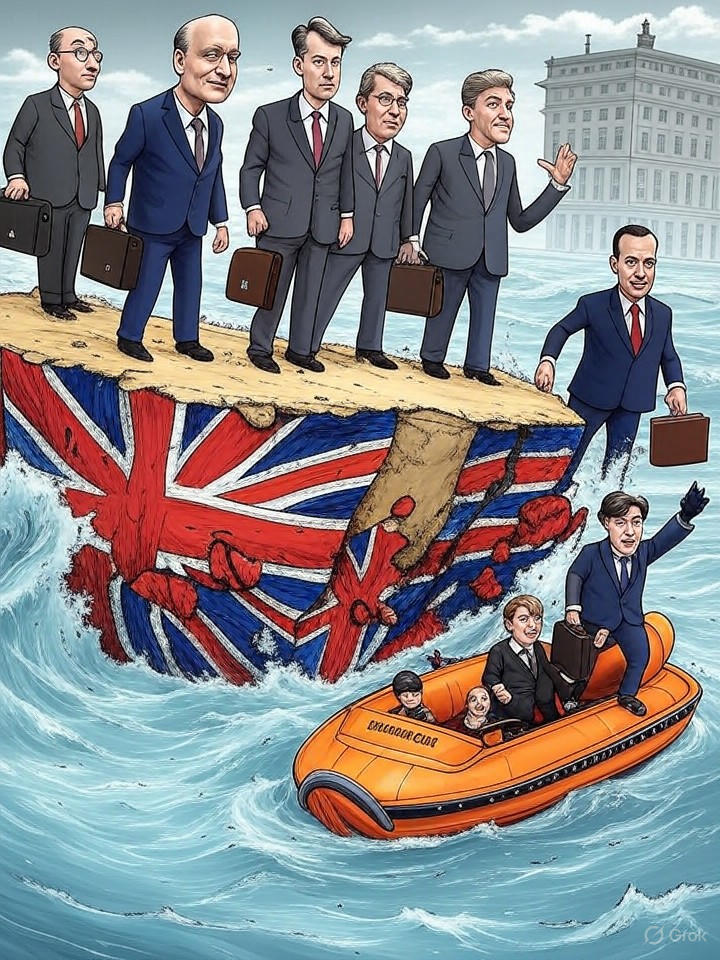
• via news.uk.cityam.com
257,000 Britons Vanish from Official Records
Revised data unmasks a talent exodus fueled by punitive taxes since 2010
New ONS figures reveal 257,000 British nationals emigrated in 2024, the highest since 1964, as tax policies across parties repel high earners while propping up low-wage workers. This brain drain exposes systemic failures in retaining productivity amid record net migration.
#emigration #taxpolicy #braindrain #economicdecline #onsdata -

• via The Guardian
A Guilty Plea Ignites Shadows of Institutional Concealment
Afghan asylum seeker's admission in Warwickshire rape case follows protests over withheld details
A 12-year-old girl's rape by an Afghan national exposes policing opacity and migration strains, sparking protests and policy shifts that reveal deeper trust erosions in UK institutions.
#asylumpolicy #criminaljusticedelays #publicprotests #institutionaltransparency #migrationtensions -

• via The Guardian
Bereaved Families Fund Johnson's Untouched Perks
Inquiry pins 23,000 preventable deaths on delays, yet ex-PM claims full £115,000 allowance
Covid inquiry exposes Johnson's chaotic leadership as fatal, but ex-prime ministerial benefits remain intact despite bereaved demands for revocation. This reveals systemic shields for elites, eroding accountability and public trust in UK governance.
#borisjohnson #covidinquiry #accountabilitygaps #publicfunds #pandemicfailures -

• via BBC News
Buried Bunkers Expose Rural Britain's Porous Defenses
£800,000 cannabis operation evades detection for months in Lincolnshire fields
A sophisticated underground drug farm in rural Lincolnshire reveals systemic failures in policing, justice, and economic support that allow organised crime to infiltrate Britain's countryside unchecked. Suspended sentences and detection delays underscore broader institutional decay.
#ruralcrime #organisedcrime #policeresources #judicialbacklog #economicneglect -

• via BBC News
Former Reform Leader's Moscow Payoffs End in Prison
Nathan Gill's 10.5-year sentence for £40,000 bribes exposes unchecked foreign influence in UK politics
Nathan Gill's conviction for pro-Russian bribery reveals deep flaws in political vetting and accountability, allowing foreign meddling to infiltrate from UKIP to Reform UK. This first Bribery Act jailing underscores persistent national security gaps across parties.
#bribery #russia #reformuk #nationalsecurity #politicalcorruption -

• via The Standard
London's Tube Network Bleeds £200 Million Annually from Unpaid Rides
200,000 daily evasions expose enforcement gaps amid rising fares
TfL loses £200m yearly to fare dodgers, with Tube evasion at 5.3% despite targets and hikes. This reflects cross-party neglect of transport funding, shifting costs to compliant users and eroding service reliability.
#tfl #fareevasion #londontransport #publicfunding #urbandecline -

• via The Telegraph
1.3 Million Foreign Nationals Claim Universal Credit Amid Record Surges
Daily sign-ups hit 472 as new rules impose 10-year settlement waits
Official data reveals a 44 percent rise in migrant benefits claims since 2022, exposing cross-party failures in managing fiscal costs of uncontrolled inflows. Retrospective policies target 1.6 million arrivals, but systemic voids persist.
#migrationpolicy #universalcredit #benefitsclaims #fiscalstrain #labourgovernment -

• via mattgoodwin.org
257,000 Britons Depart as Net Inflows Hit 944,000
Record emigration triples estimates amid unchecked migration surges
Revised data shows 257,000 net British citizens left in 2024, the highest since 1964, while net immigration peaked at 944,000. This dual shift reveals policy failures driving economic stagnation and social strain across parties.
#emigration #immigration #economicdecline #policyfailure #demographicshift -

• via The Telegraph
BBC Managers Dismiss Warnings of Harm to Children
650 parents demand Ofcom probe into decade of unbalanced trans programming
Parents accuse the BBC of promoting transgender identities to children without balance, breaching impartiality and safeguards. Regulatory inaction allows biases to persist, harming families and public trust in a key institution.
#bbcbias #transgendercoverage #childsafeguarding #ofcomregulation #institutionalfailure -
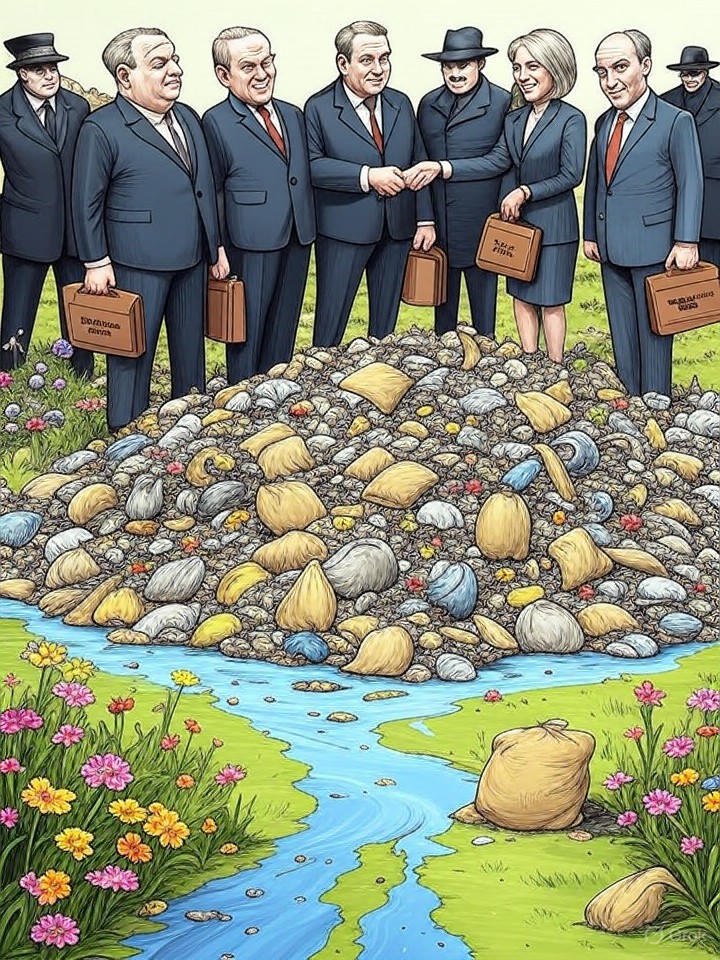
• via The Guardian
Councils Outsource Their Rubbish to Criminals
Oxfordshire dump reveals public waste fueling £1bn organized crime racket
A massive illegal waste mound in Oxfordshire contains council and school rubbish, highlighting corruption in waste management and the Environment Agency's enforcement failures. This case exemplifies national systemic neglect, costing taxpayers £1 billion annually amid rising environmental risks.
#wastecrime #environmentagency #organizedcrime #localgovernment #environmentalpollution -
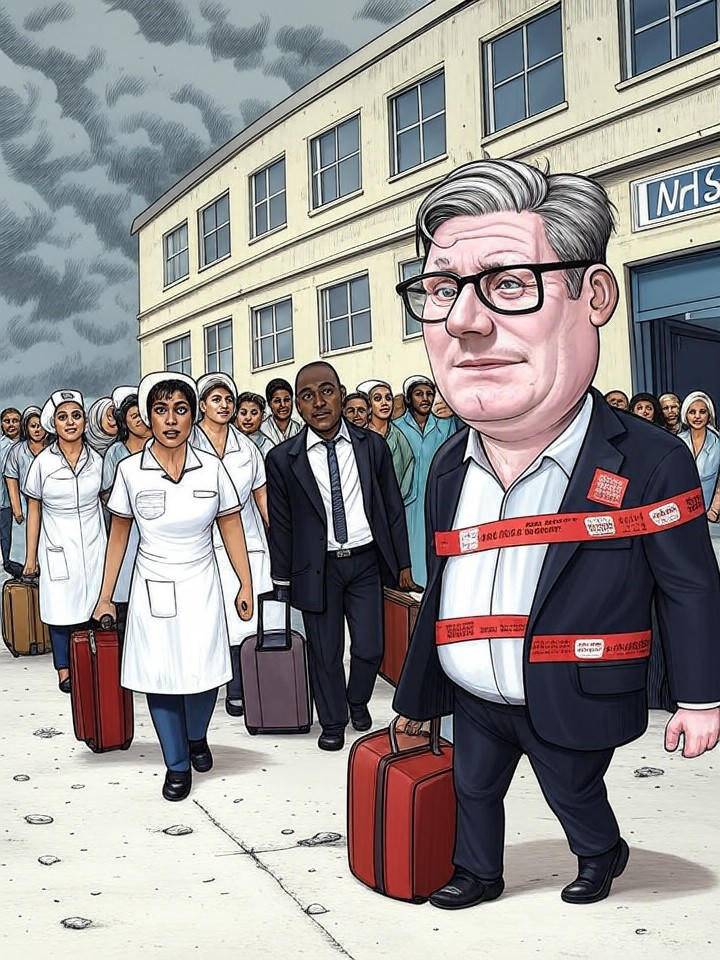
• via The Guardian
Decade Waits Drive Nurses from NHS Frontlines
Survey warns of 50,000 exodus amid migration curbs
Government plans to extend settlement periods for migrants threaten to lose 46,000 foreign nurses, exposing NHS reliance on international staff without domestic fixes. This political move deepens workforce shortages and patient risks across party lines.
#nhscrisis #immigrationpolicy #nurseshortages #migrantworkers #healthcaredecline -

• via The Sun
Hotel-Housed Accused Shadows Tube Victims for Years
Three-Year Wait for Trial After Alleged Assaults on Girls as Young as 12
A Jordanian asylum seeker allegedly groped four females on London trains from a taxpayer hotel, facing a 2027 trial amid justice backlogs and migration housing failures. This reveals unchecked risks in urban public spaces.
#asylumpolicy #sexualassaults #justicedelays #publictransportsafety #migranthousing -

• via The Telegraph
Leeds Prepares to Pave Over 30,000 Hectares of Countryside
90 Percent of Green Belt Faces Reclassification Amid National Shortfall
Leeds council's grey belt plans contradict Labour's preservation pledge, targeting 30,000 hectares for development while housing starts lag far behind 300,000 annual targets. This reveals recurring policy failures across parties in balancing growth and green space.
#greenbelt #housingcrisis #labourpolicy #urbansprawl #planningreform -

• via GB News
1991 Bands Snare £135,000 Homes in Reeves's Levy
Outdated valuations turn modest northern properties into tax targets
Rachel Reeves's proposed mansion tax relies on 1991 council tax bands, hitting £135,000 homes in the north while sparing million-pound southern ones in lower categories. This exposes systemic unfairness and cross-party neglect of tax reform.
#taxpolicy #counciltax #regionalinequality #fiscaldecline #rachelreeves -

• via GB News
A Serial Rapist's Tag Becomes a Payout Claim
Mustafa Taskiran's 54 offences evade deportation, yielding distress compensation
A convicted rapist secures a High Court ruling for electronic tag compensation, exposing human rights loopholes that shield foreign offenders from removal despite repeated crimes. This case highlights persistent Home Office failures across governments, prioritizing individual claims over public safety.
#immigrationenforcement #foreigncriminals #humanrightslaws #homeofficedysfunction #deportationfailures -

• via Guido Fawkes
Afghan Evacuations Hide Criminal Arrivals in Plain Sight
112 serious cases flagged after 28 violent criminals enter via ARAP scheme
Home Office data exposes vetting failures in the Afghan relocation program, admitting dozens of criminals and risks amid incomplete records. This pattern of oversight gaps endangers public safety and highlights systemic immigration dysfunction across governments.
#immigrationfailures #arapscheme #criminaladmissions #vettingbreakdowns #homeofficeopacity -

• via The Spectator
Asylum's £266,000 Illusion Crumbles on Data
A pro-reform report's rosy projections ignore low employment rates and lifetime fiscal drags
Analysis debunks a coalition report claiming £266,000 economic gains per refugee, exposing flawed assumptions and potential billions in added costs amid UK's strained public finances.
#asylumpolicy #economicimpact #refugeeintegration #fiscalcosts #immigrationreform -

• via The Telegraph
Balaclavas Over Boot Sale Bargains
Twenty-two years of unchallenged tool theft in Hounslow
Open markets for stolen goods expose enforcement voids, as official crime falls mask rising thefts that cripple tradesmen and erode public safety across UK streets.
#crimeenforcement #tooltheft #policingfailures #smallbusinessimpact #ukdecline -

• via The Telegraph
Colonial Debts Resurface in Diaspora Mobilization
Caricom's UK push eyes trillions for slavery and racism redress
A Caricom delegation recruits black Britons for reparations, demanding trillions amid Britain's fiscal strain. This highlights persistent accountability gaps from colonial history, exacerbating social and economic divides.
#reparations #colonialism #diaspora #slavery #economicburden -

• via The Telegraph
Housing Grievances Branded as Online Threats
Civil servants track social media complaints amid £15.3 billion migrant costs
Guidance labels public concerns over migrant housing priorities as disinformation risks, enabling state surveillance of dissent while ignoring policy failures and integration breakdowns. This suppresses debate on real costs and assaults.
#migration #freespeech #disinformation #civilservice #socialmedia -

• via ITV News
Northern Ireland's Classrooms Still Preach Christianity
Supreme Court voids Bible-based RE as human rights breach
UK Supreme Court rules Northern Ireland's mandatory Christian religious education unlawful for lacking pluralism, exposing outdated laws that burden dissenting families and ignore societal diversity.
#northernireland #educationpolicy #humanrights #religiousfreedom #supremecourt -

• via LBC
Patriotic Flags Labeled Tools of Intimidation
Police chiefs decry St George's displays amid asylum reform debates
A police leader equates national flag surges with division, overlooking migration policy failures that fuel public tensions. This stance highlights institutional disconnects in addressing social fractures across governments.
#policing #immigration #nationalidentity #socialdivision #asylumpolicy -

• via The Guardian
Schoolyard Ghosts Haunt Farage's Political Ascent
Over a dozen contemporaries allege racism at Dulwich College, denied amid Reform UK's poll lead
Allegations of teenage bigotry against Nigel Farage highlight media's selective historical scrutiny, diverting from policy failures and eroding trust in a polarized political arena. This pattern across parties sustains Britain's institutional decline.
#nigelfarage #reformuk #racismallegations #politicalscrutiny #mediabias -
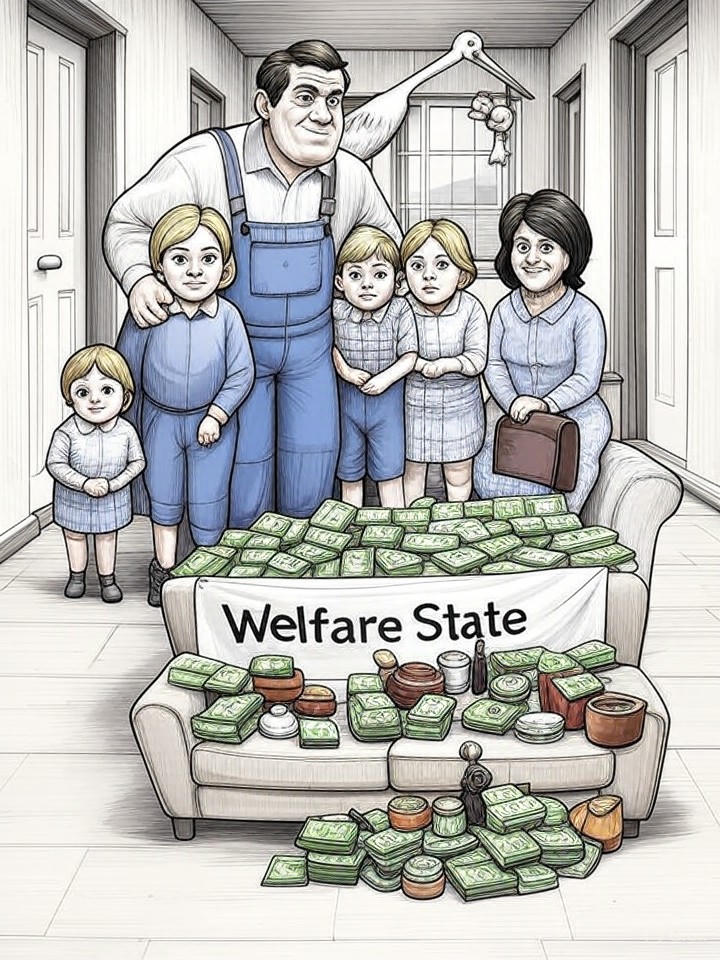
• via The Telegraph
Welfare Systems Shrink Birth Rates Among the Employed
£141 Billion in Benefits Funds Larger Families on Claims, Deterring Taxpayers from Parenthood
UK welfare policies favor multi-child benefit households over working parents, inverting incentives and contributing to fertility declines among the middle class. This sustains intergenerational dependency amid fiscal strain.
#welfarestate #familypolicy #benefitcap #demographicdecline #fiscalburden -
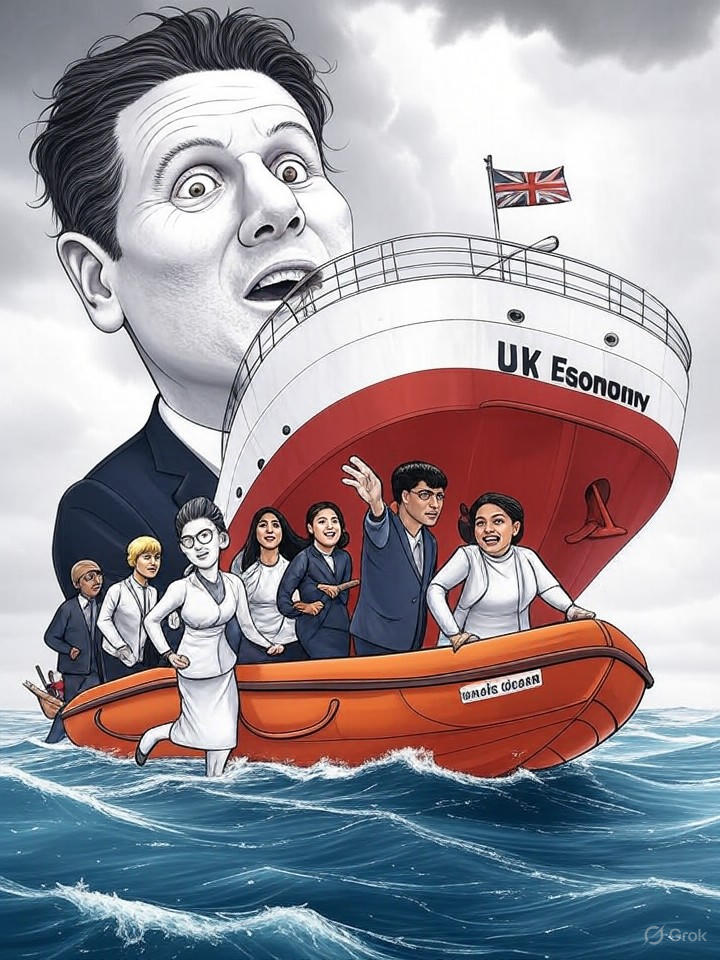
• via The Independent
344,000 More Britons Gone: The Hidden Toll of Stagnation
Revised ONS data reveals emigration surge amid faltering economy and youth disillusionment
Official revisions show 257,000 Britons left in 2024, far exceeding estimates, signaling a brain drain driven by economic woes. This outflow undercuts net migration gains and exposes policy failures in retaining domestic talent across governments.
#emigration #braindrain #netmigration #economicdecline #youthmobility -

• via The Guardian
Billions of Plastic Beads Lurk in England's Coastal Sewage Tanks
Fifteen outdated plants risk spills like Camber Sands' 650 million-bead disaster
At least 15 south coast sewage facilities use risky bio-beads with no regulatory oversight, exposing chronic infrastructure neglect and privatization failures that threaten marine life and deprived communities. Spills persist across decades, unaddressed by water companies prioritizing profits.
#plasticpollution #sewageinfrastructure #waterprivatization #environmentaldecline #southcoast -

• via The Guardian
Fly-Tippers Claim Oxfordshire Floodplain as Their Dump
Hundreds of tonnes tower over the River Cherwell, cleanup costs top council budget
An illegal waste mountain in Oxfordshire highlights Environment Agency resource shortages and organized crime's grip on rural sites, burdening local budgets and ecosystems amid national enforcement failures.
#fly-tipping #environmentagency #oxfordshire #organizedcrime #environmentaldecline -
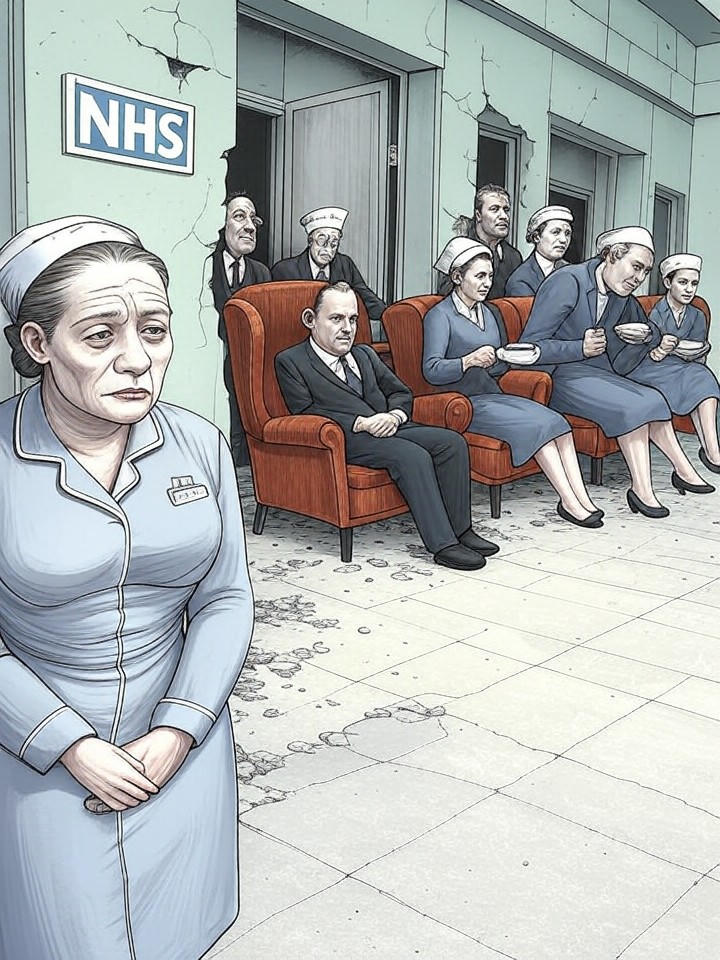
• via The Guardian
Nurses Clock In Despite Collapse
66 Percent Work Through Illness Amid 25,000 Vacancies
A surge in nurses working unwell exposes NHS understaffing's toll, with stress up 15 points since 2017. Cross-party failures lock in a broken system, eroding care and workforce resilience.
#nhs #nursingcrisis #workforceshortages #stressandburnout #publichealthdecline -

• via BBC News
Paralegal's £3,500 Scheme Buries Immigration Fines
Undercover footage captures forgery offers amid Kurdish networks exploiting mini-marts
A sacked paralegal's proposal to fabricate documents evading £60,000 penalties reveals how crime rings undermine UK immigration enforcement, sustaining illegal work in high street businesses while official probes trail behind.
#immigrationenforcement #organizedcrime #illegalworking #legalprofession #highstreeteconomy -

• via The Telegraph
A Bravery Medal, Then a Pink Slip
Dorset Police's dismissal of officer Lorne Castle for subduing a knifeman draws £130,000 in public funds
Dorset Police sacked a decorated officer for coarse words during a knife arrest, prioritizing protocol over safety and sparking backlash that exposes frontline disincentives amid rising blade crime.
#policemisconduct #knifecrime #institutionaldysfunction #publicsafety #officermorale -
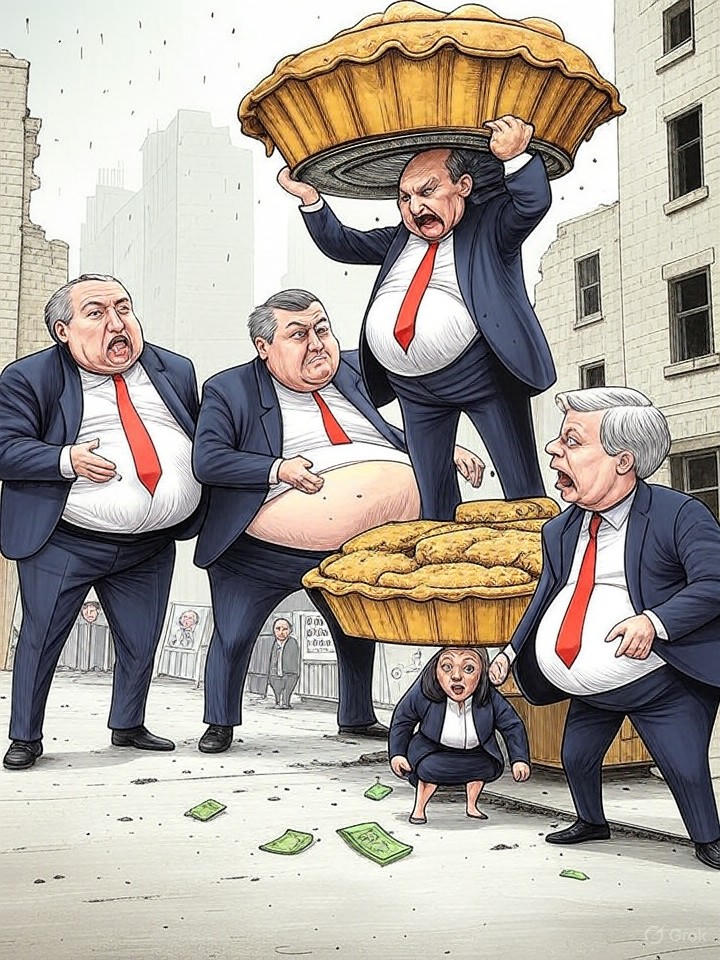
• via The Telegraph
Council Pensions Swallow 16 Percent of Tax Revenue
Six authorities hike taxes after £270m outlay on gold-plated schemes
Six cash-strapped councils spent 16% of council tax on staff pensions last year, then secured permission for above-cap rises, revealing how public entitlements trump fiscal discipline and burden households amid national decline.
#counciltax #pensions #localgovernment #fiscalpolicy #publicsector -

• via Rape Crisis Scotland
Scotland Counts 2,897 Rapes in a Year, Nearing 1971 Peak
Reports up 60 percent in a decade amid lowest conviction rates
Scotland's near-record rape figures expose systemic failures in prevention, justice, and accountability, with rises tied to underfunded education and unchecked online influences. This pattern persists across UK governments, burdening citizens without effective change.
#sexualviolence #scotlanddecline #justicesystemfailure #preventionunderfunding #convictionrates -
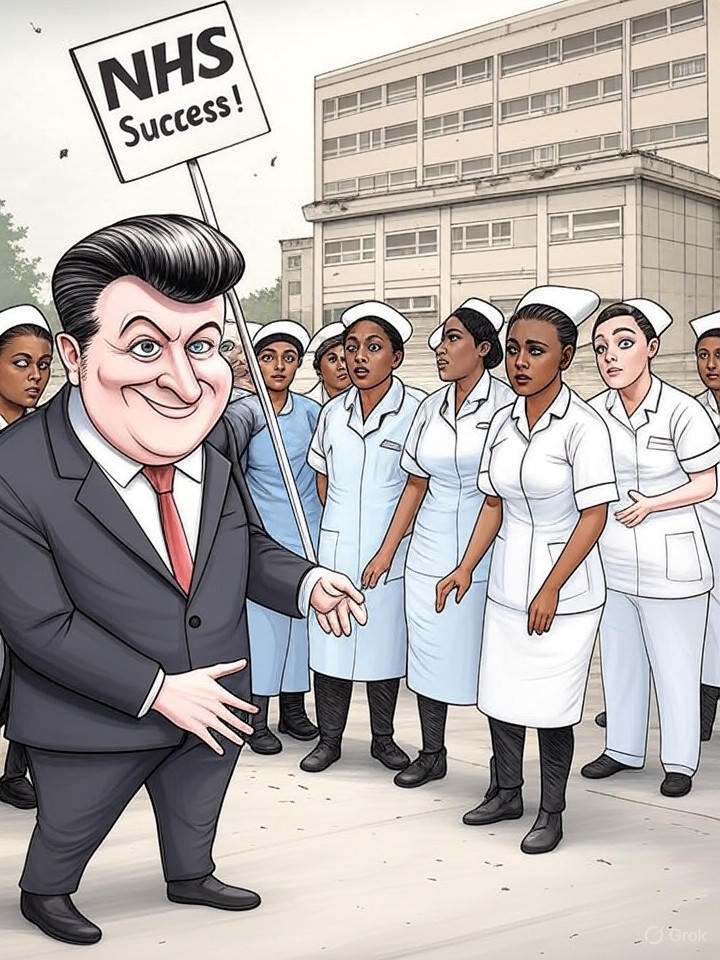
• via ITV News
Successful Retention, Empty Slots for Nurses
65 Swansea graduates face job voids despite local training and national shortages
Swansea's nursing students qualify into a local job drought, highlighting NHS workforce mismatches driven by funding freezes and poor planning. This strands dedicated trainees and deepens healthcare fragility across Wales.
#nhsdecline #workforceplanning #nursingshortages #welshgovernment #publichealth -

• via The Sun
A Predator's Free Pass Through Britain's Borders
Iranian with 11 German convictions enters illegally, rapes Oxford teen after dropped UK assault charge
An Iranian migrant's unchecked entry and prior violent record enabled a brutal rape, revealing systemic vetting failures that prioritize asylum over public safety across UK governments.
#immigrationfailures #asylumpolicy #publicsafetyrisks #criminalvetting #homeoffice -
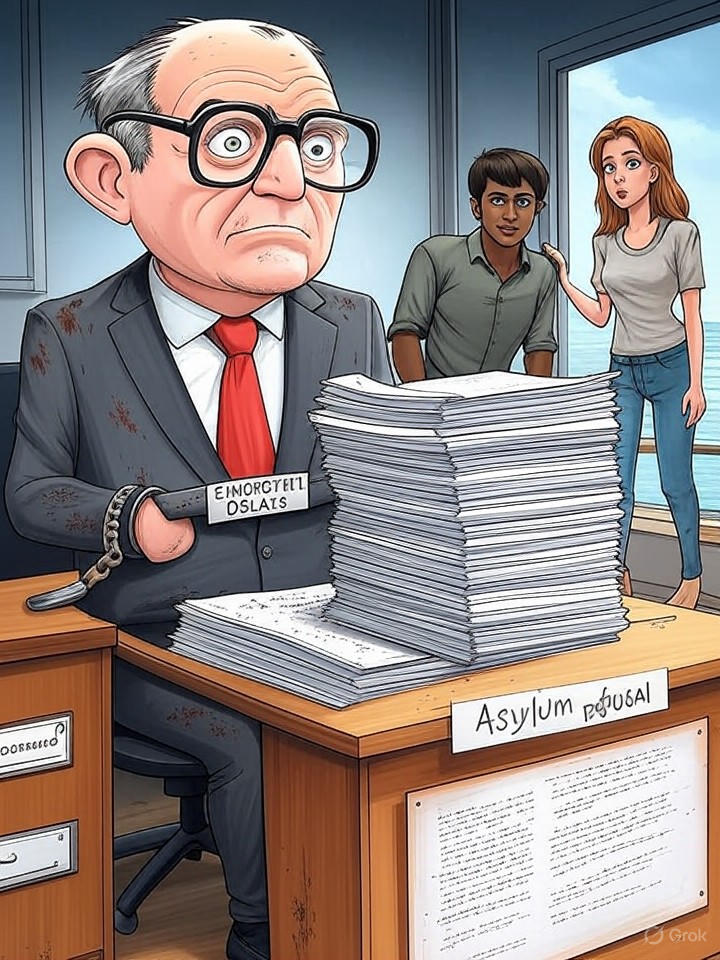
• via The Telegraph
Asylum Refusal, Street Presence
Egyptian national's Bournemouth rape charge after nine-month delay
A failed asylum seeker's alleged rape in Dorset reveals chronic enforcement failures, leaving rejected claimants free amid public safety risks. This persists across governments, eroding trust and security in UK communities.
#asylumenforcement #immigrationfailure #publicsafety #bournemouthrape #deportationdelays -

• via The Mirror
Bonfire Night Assault in Bournemouth Reveals Everyday Perils for Women
Local man arrested after dragging woman into woods during celebrations
A rape in Bournemouth on November 5, 2025, highlights gaps in public safety during crowded events, exposing underfunded policing and persistent risks to women in everyday UK spaces. Systemic failures across governments allow such incidents to recur without effective prevention.
#sexualviolence #policingfailures #women'ssafety #publicspaces #institutionalneglect -

• via LBC
Deportations Double Down, Yet Crossings Surge
50,000 removals mask 8,000 new small boat arrivals under Labour's reforms
Home Secretary Mahmood's ECHR tweaks and deportation drives yield incremental gains, but surging Channel crossings and legal limits expose enduring border control failures across governments.
#immigration #deportations #echr #labourpolicy #bordersecurity -
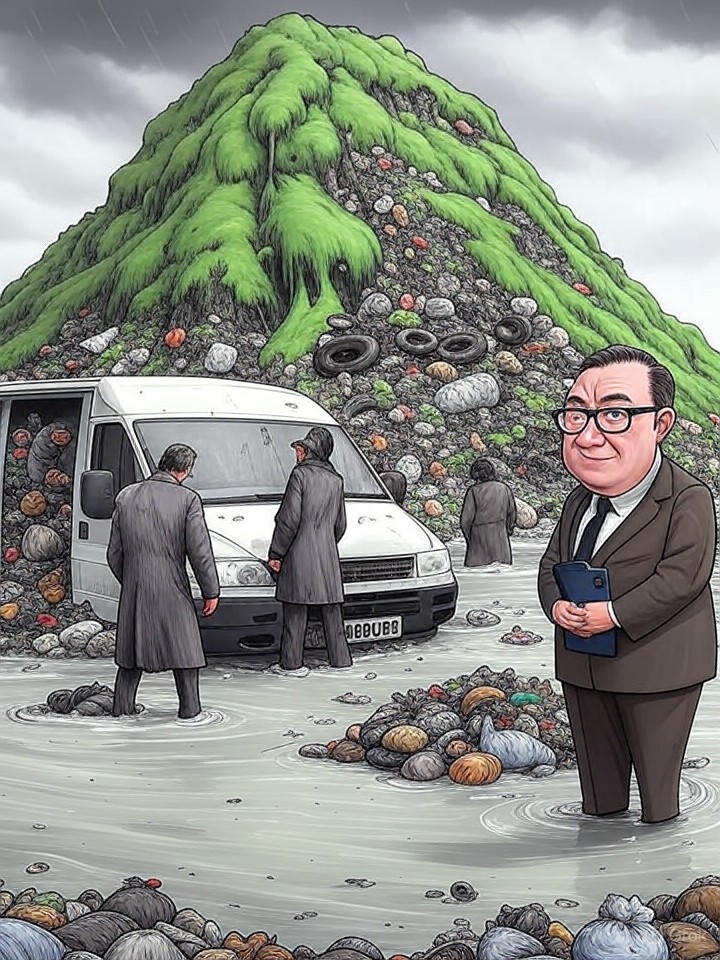
• via BBC News
Fly-Tippers Turn Oxfordshire Floodplain into Toxic Heap
A 150m waste mountain threatens the River Cherwell as agencies cite budget shortfalls
Illegal dumping near Kidlington exposes enforcement paralysis, with cleanup costs overwhelming local budgets and risks mounting to waterways. Systemic under-prioritization allows organized crime to poison Britain's rural landscapes unchecked.
#fly-tipping #wastecrime #environment #oxfordshire #institutionalfailure -

• via LBC
Oxford Streets Turn Predatory Under Asylum Oversight
Iranian Seeker's Rape of Schoolgirl Highlights Vetting Black Holes
A 35-year-old asylum seeker's attack on a 15-year-old near a shopping centre exposes failures in immigration checks and public safety, with prior foreign convictions ignored and an accomplice still free. This incident underscores systemic neglect in protecting vulnerable communities amid unchecked arrivals.
#asylumfailures #sexualviolence #immigrationvetting #publicsafety #institutionalneglect -

• via The Guardian
Reeves Axes Heat Pump Grants to Salvage Bill-Cut Promise
Hundreds of thousands lose £7,500 subsidies as Labour prioritizes £170 relief over green scale-up
Rachel Reeves's budget restricts eco-subsidies to the poor, delivering half the promised energy bill cuts while stalling the UK's shift from gas boilers. This retreat highlights recurring trade-offs between voter appeasement and long-term sustainability.
#energypolicy #rachelreeves #heatpumps #costofliving #climategoals -
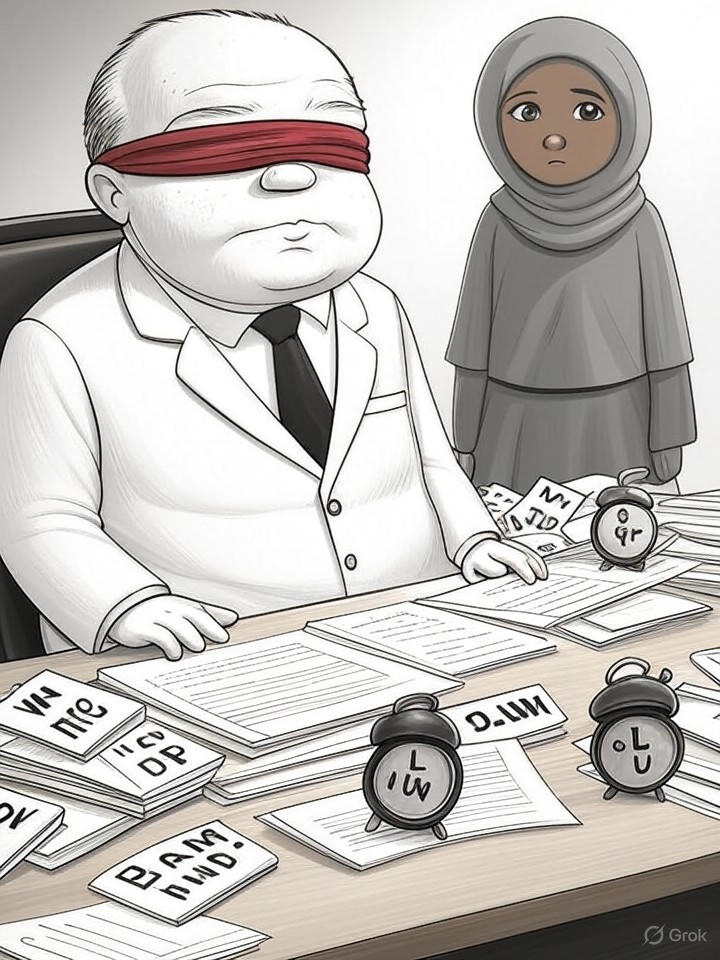
• via BBC News
Sara Sharif's Murder Traces Back to Ignored Warnings
Review uncovers five agency failures from birth to death
An independent review reveals how Surrey authorities ignored domestic violence risks in Sara Sharif's family for years, leading to her 2023 murder. This case highlights systemic child protection flaws that recur across UK governments, eroding trust and safety for vulnerable children.
#childsafeguarding #sarasharif #institutionalfailure #domesticabuse #surreycountycouncil -
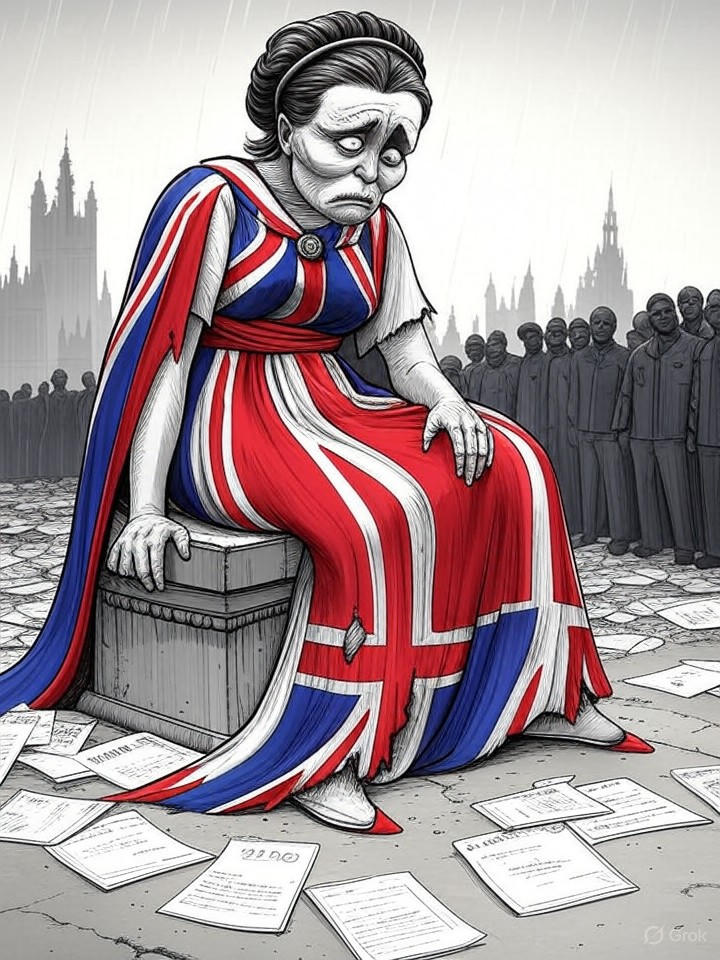
• via Daily Star
Seventy-Six Percent Forecast Britain's Downward Turn
Poll reveals record gloom as unemployment rises and budget fears mount
A new survey shows 76% of UK voters pessimistic about the future, the highest this year, amid joblessness peaks and tax hike anxieties. This reflects systemic economic failures across governments, eroding living standards without effective remedies.
#publicpessimism #economicdecline #autumnbudget #unemployment #livingstandards -

• via The Telegraph
Bristol Charges Uncover Three Years of Unchecked Exploitation
Eleven Teens Targeted in Network Spanning 2022-2025
Charges against seven men in Bristol reveal a three-year exploitation ring that evaded detection, exposing failures in policing, integration, and youth protection amid recurring UK social breakdowns.
#childexploitation #policingfailures #integrationgaps #socialdecline #migrationpolicy -

• via The Telegraph
Four Million Now Exempt from Britain's Job Market
Universal Credit exemptions surge 50% under Labour, projected to cost £100bn yearly
Record exemptions from job searches on Universal Credit hit 4.03 million, undercutting welfare reforms and exposing persistent labor market inertia across governments. This trend locks in economic inactivity, straining budgets and productivity.
#welfarereform #economicinactivity #universalcredit #disabilitybenefits #labourmarket -

• via GB News
Green Deputy Blocks Asylum Site in Her Backyard
Rachel Millward's local objection to 600 migrants contradicts her party's welcoming flags
A Green Party leader's resistance to housing asylum seekers in her affluent area exposes NIMBYism in progressive politics and the UK's stalled migration policies. This rift deepens community divides without addressing systemic backlogs.
#greenparty #asylumpolicy #nimbyism #localgovernment #migrationcrisis -
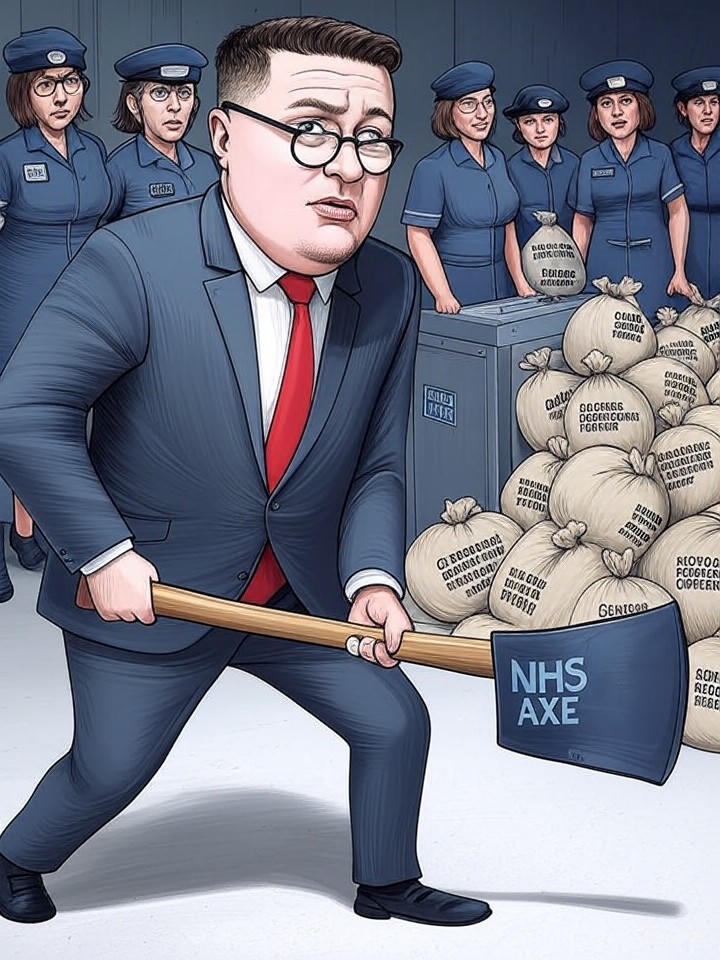
• via Sky News
Overspend Funds the NHS Axe
£1 Billion Upfront for 18,000 Job Losses, Savings Deferred
The government's £1 billion approval for NHS redundancies allows budget overspending now, promising future efficiencies that past reforms failed to deliver. This structural tweak exposes chronic underfunding and cross-party neglect of frontline needs.
#nhs #jobcuts #healthfunding #governmentreform #bureaucracy -
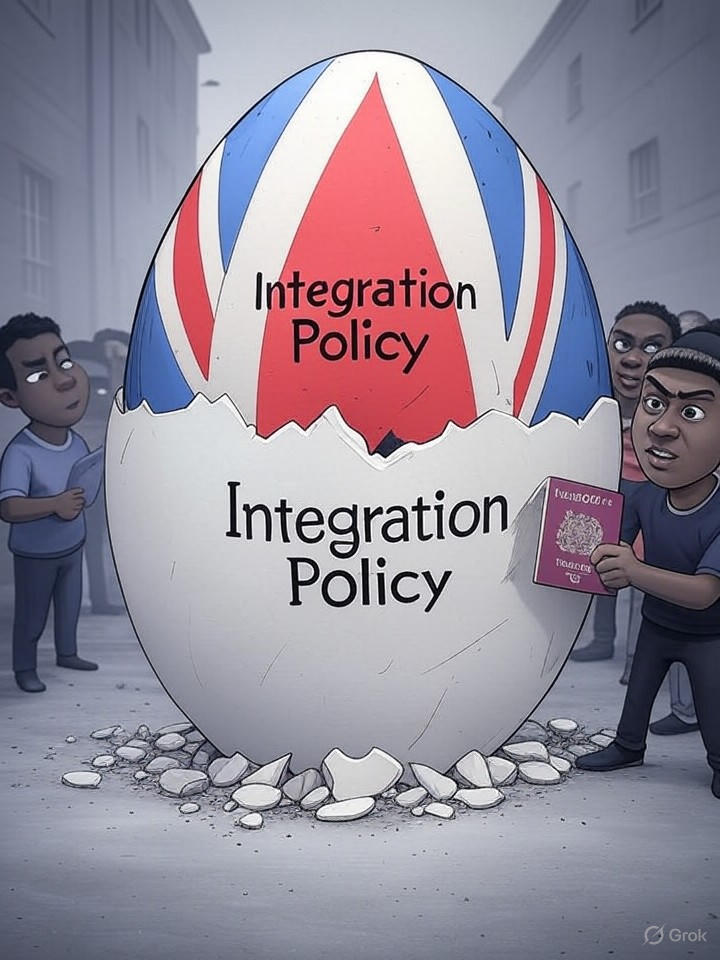
• via The Spectator
Police Label Attackers British-Born, Exposing Integration's Hollow Core
Second-generation criminals highlight policy failures across decades
Police emphasis on UK birth for violent offenders reveals integration gaps, with anecdotal cases and sparse data underscoring cultural legacies that persist despite citizenship. Governments evade accountability through data taboos, perpetuating social divides.
#immigrationpolicy #integrationfailures #knifecrime #socialcohesion #culturalinheritance -

• via BBC News
Benefit Caps Lift, But Tax Shields Crack
£3.6 Billion to Free 630,000 Children from Poverty
Rachel Reeves plans to scrap the two-child benefit limit, easing child poverty at a steep cost that forces breaches of Labour's tax pledges. This trade-off exposes ongoing fiscal fragility across governments.
#childpoverty #benefitcap #rachelreeves #labourmanifesto #taxincreases -

• via BBC News
Chancellor Eyes Benefit Expansion Amid Tax Pledge Fracture
Two-child cap reversal costs £3.6bn yearly, but manifesto tax bans bend under fiscal strain
Rachel Reeves' push to scrap the two-child benefit limit aims to cut child poverty, yet funding via tax hikes breaches Labour pledges and highlights recurring fiscal-political tensions across governments.
#childpoverty #benefitcaps #rachelreeves #labourmanifesto #taxrises -
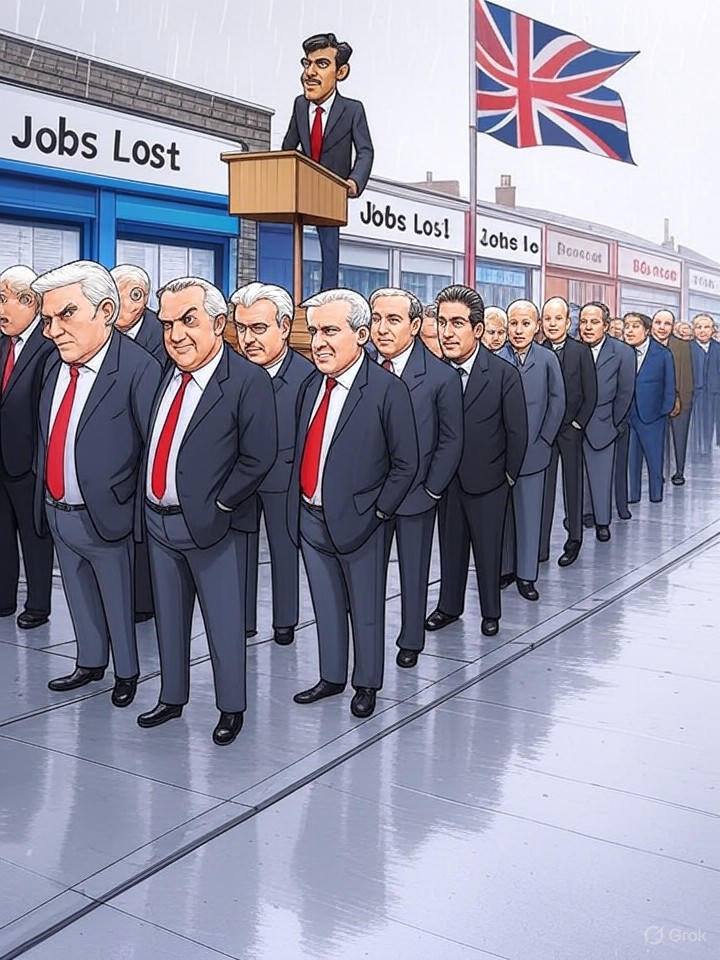
• via BBC News
Five Percent Marks the New Floor for British Jobs
ONS data shows unemployment at post-pandemic high amid stagnant vacancies and payroll drops
Rising to 5%, UK unemployment exposes a weakening jobs market despite government claims of progress. Payrolls fell 180,000 yearly, signaling structural fragility across political cycles.
#unemployment #labourmarket #wagegrowth #economicdecline #onsdata -

• via thetimes.com
Generals Label Human Rights a Battlefield Hazard
Nine ex-Army chiefs warn Starmer's legal stance risks troop morale and national defense
Former British Army leaders decry 'lawfare' under human rights laws as a security threat, exposing tensions between legal accountability and military readiness that weaken UK institutions across governments.
#humanrightslaw #britisharmy #nationalsecurity #lawfare #keirstarmer -
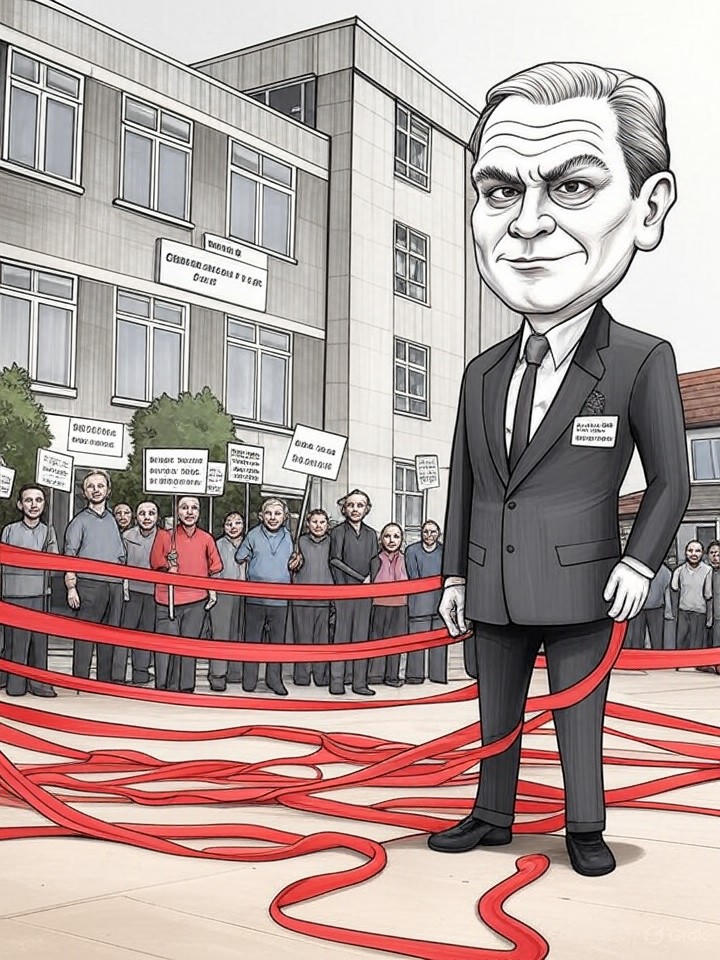
• via BBC News
Home Office Delays Asylum Housing, Breeds Local Fury
Crowborough camp plans cost £100 per person nightly amid threats and legal threats
The Home Office's apology for bungled asylum site plans in East Sussex reveals persistent policy execution failures, straining communities and services without delivering promised efficiencies. This mirrors cross-party dysfunction in immigration handling.
#homeoffice #asylumseekers #crowborough #wealdencouncil #immigrationpolicy -

• via Sky News
Prevent Rejects Nine in Ten, But Risks Persist
Over 58,000 referrals since 2015 expose a strategy overwhelmed by non-ideological threats
The UK's Prevent program dismisses 90% of cases for lacking ideology, yet misses violent actors like the Southport killer. This flaw, unchanged across governments, signals broader security breakdowns in an evolving threat landscape.
#preventstrategy #counter-terrorism #southportattack #institutionalfailure #radicalisationmodel -
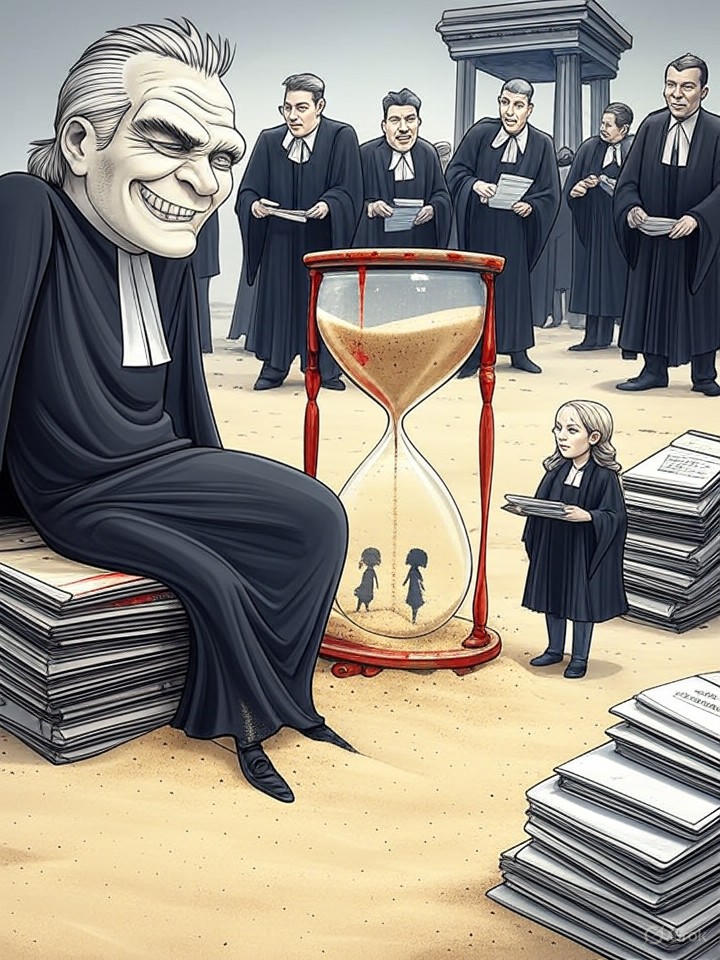
• via sussex.police.uk
Seven Years from Assault to Sentence
Brighton case highlights chronic delays in prosecuting youth rapes
A 2018 rape conviction in 2025 exposes Britain's justice system backlog, where seven-year waits erode victim protections and signal deeper failures in safeguarding teenage girls amid rising sexual offenses.
#justicedelays #sexualviolence #youthcrime #institutionalfailure #victimsupport -

• via BBC News
St Ann's Street Claims Another Youth
Nottingham's deprived wards log 450 blade offenses amid national claims of decline
A fatal stabbing in Nottingham exposes how official progress on knife crime fails deprived communities, with 262 blade deaths last year underscoring persistent institutional neglect across governments. This incident reveals deeper social and economic fractures driving urban violence.
#knifecrime #nottingham #deprivation #policingfailures #youthviolence -

• via Daily Express US
Strangled in Bushes, Paroled from Honduras
A US murder exposes immigration enforcement voids mirroring UK's migrant offender releases
Hector Rivas's killing of Camillia Williams highlights parole policies that free dangerous non-citizens, a failure replicated in Britain's Home Office lapses and doubled prison errors. Systemic inertia across governments leaves communities exposed to preventable violence.
#immigrationfailures #migrantcrime #borderenforcement #justicesystem #publicsafety -

• via The Guardian
Your Party's Founders Squabble Over £850,000 Before First Steps
Corbyn and Sultana camps clash publicly as conference looms
Infighting over early donations exposes disunity in a nascent leftwing party, mirroring Labour's past fractures and weakening UK opposition renewal. Funds disputes risk derailing the launch amid leadership jostling.
#yourparty #jeremycorbyn #zarahsultana #politicalinfighting #leftwingfragmentation -
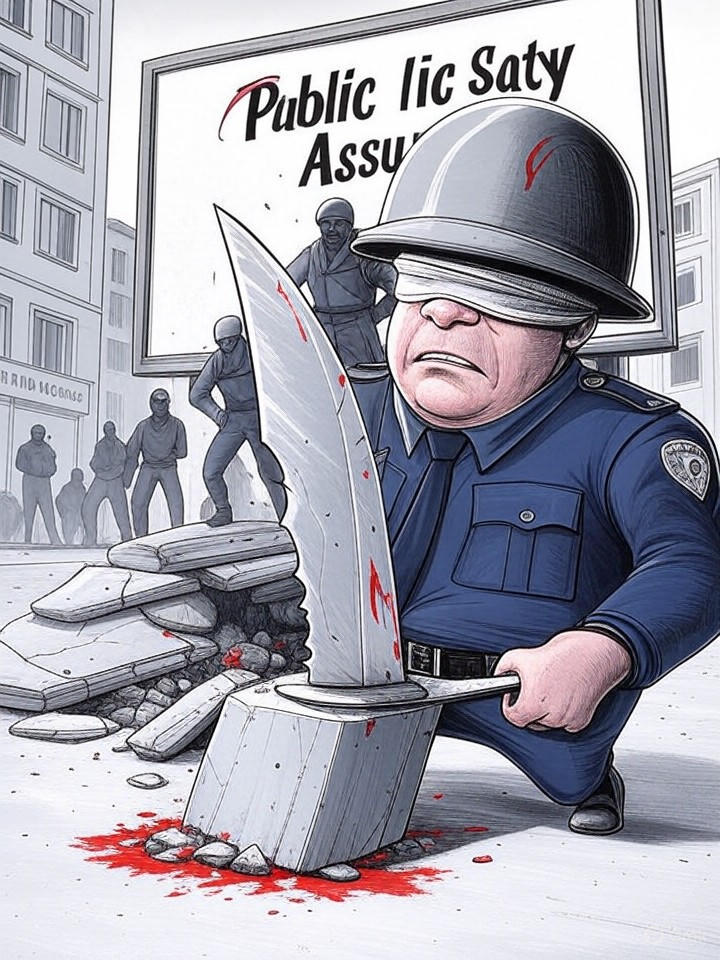
• via GB News
Birmingham's Blades Cut Through Official Reassurances
A fatal neck stabbing near the Bullring exposes persistent gaps in urban safety
A woman's death in an unprovoked Birmingham stabbing highlights the chasm between official knife crime reductions and rising street lethality, revealing systemic neglect across governments.
#knifecrime #birminghamviolence #publicsafety #institutionalfailure #socialbreakdown -

• via migrationcentral.co.uk
Deportees Gain UK-Funded Startups Abroad
Home Office extends business aid to 16,803 foreign offenders and illegal migrants
The Home Office's reintegration programme uses taxpayer money to support deported criminals with business setups and training, as enforced removals hit historic lows. This cross-party policy prioritizes global obligations over domestic enforcement, funding NGOs that oppose border controls.
#immigrationpolicy #deportations #homeoffice #taxpayerfunds #foreignoffenders -
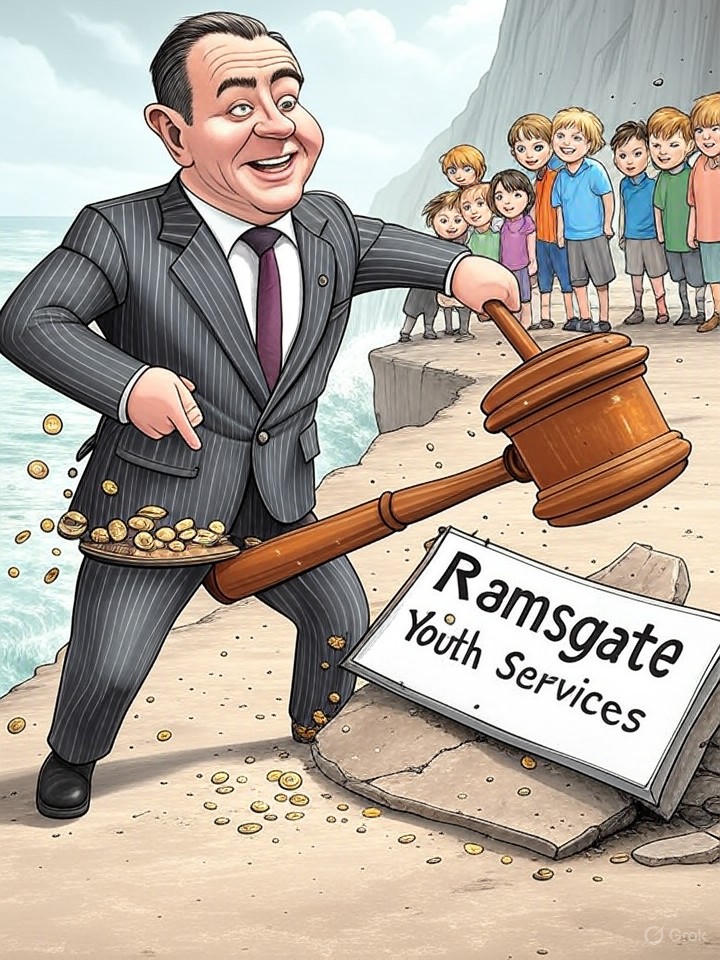
• via The Guardian
Ramsgate Youth Services Yield Savings, Yet Council Auctions the Site
Independent report shows £580,660 annual savings ignored in Thanet closure
Kent County Council plans to sell Ramsgate's last youth centre despite evidence it saves £580,660 yearly in public costs. This decision exemplifies a decade-long funding collapse in youth services, deepening deprivation in coastal England.
#youthservices #coastaldeprivation #kentcountycouncil #socialcarecuts #mentalhealth -
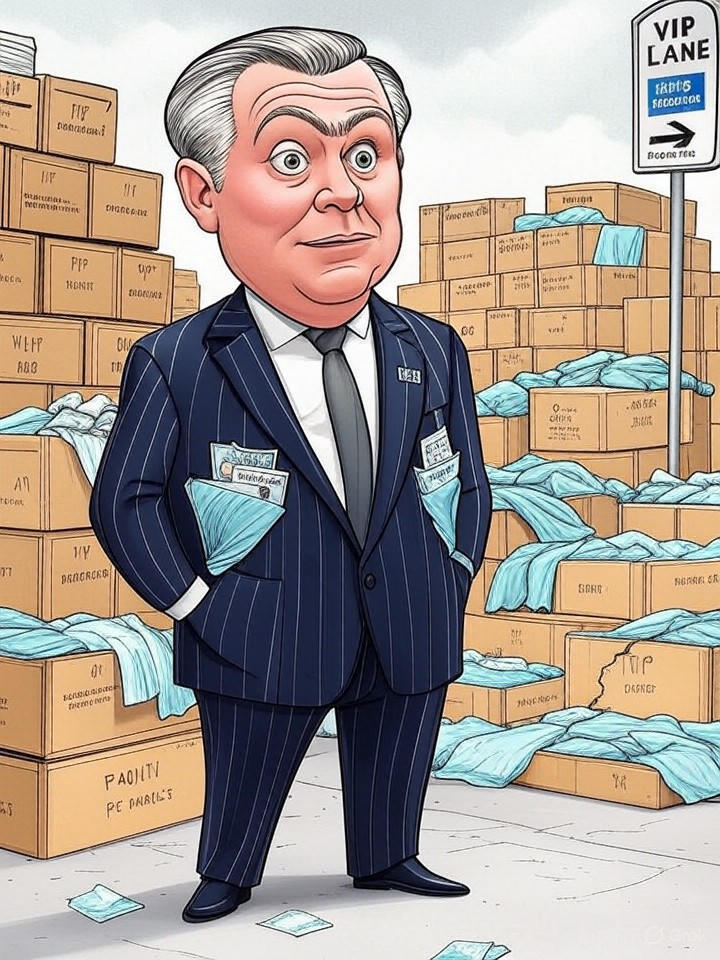
• via The Guardian
Uniserve's £1.4 Billion Freight to Faulty PPE
VIP Lane Deal Exposed in High Court Ruling
A logistics firm pocketed £1.4bn in Covid contracts via political referrals, shipping unusable PPE without inspections and wasting £3.3bn in public funds overall. This reveals procurement voids that prioritize speed and connections over safeguards.
#ppeprocurement #viplane #governmentcontracts #cronyism #publicwaste -

• via BBC News
Copenhagen Officials Reshape Whitehall's Asylum Lock
Home Office eyes temporary stays and family curbs as Channel arrivals hit records
Labour imports Denmark's tough immigration model amid uncontrolled borders, exposing cross-party failures in enforcement and integration that strain UK institutions.
#immigration #asylumpolicy #labourgovernment #denmarkmodel #bordercontrol -

• via The Guardian
Duty Calls, But Not to Standards: Met Officer Breaks Rules Mid-Inquiry
Imran Patel's alleged on-shift misconduct undercuts the force's misogyny reforms
A former Met constable allegedly solicited sex workers during a key cultural review, exposing persistent institutional misogyny and accountability failures that span governments and erode public trust in policing.
#metpolice #institutionalmisogyny #policemisconduct #saraheverard #iopc -

• via BBC News
Four Prisoners Wander Free as Release Errors Double
262 mistaken releases in a year, with at least four still evading capture
Erroneous prisoner releases have doubled to 262 in England and Wales, leaving four at large amid overcrowding and administrative failures that expose deep flaws in the justice system inherited across governments.
#prisonovercrowding #justicesystemfailures #erroneousreleases #publicsafetyrisks #institutionaldecline -
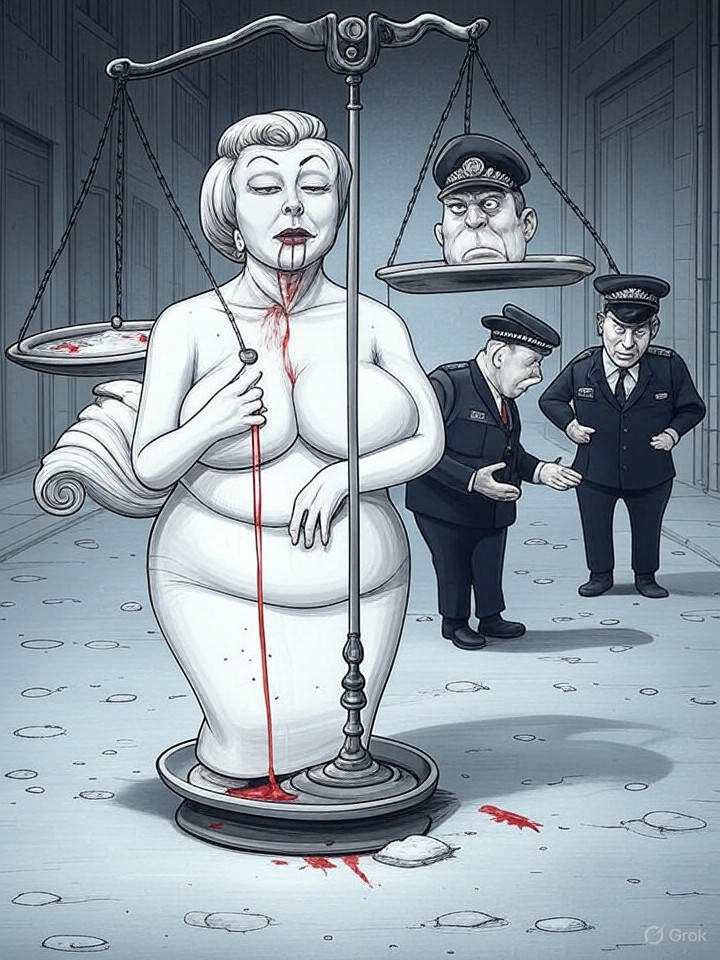
• via The Independent
Neck Wound Hangs a Life in Birmingham's Balance
Unprovoked stab leaves woman critical amid persistent urban blade threats
A Friday night stabbing in Birmingham exposes gaps in knife crime prevention, where official progress masks rising vulnerabilities and institutional failures across governments. The incident underscores how everyday streets turn lethal without addressing root causes.
#knifecrime #birminghamviolence #policingfailures #urbansafety #socialbreakdown -

• via BBC News
A Father's Walk Ends in Blood on Sheffield Streets
Good Samaritan's aid during family brawl leads to deadly car ramming and stabbing
A Sheffield father's fatal intervention in a wedding dispute reveals how family feuds endanger bystanders in deprived urban areas, underscoring failures in community mediation and rising street violence across the UK.
#socialbreakdown #urbanviolence #communitysafety #sheffield #homicide -

• via BBC News
BBC Presenter Disciplined for Script Alteration
Facial expression deemed breach in transgender terminology debate
The BBC's reprimand of presenter Martine Croxall for altering 'pregnant people' to 'women' reveals overzealous impartiality enforcement that polices expressions and erodes journalistic autonomy amid cultural divides. This pattern highlights institutional capture prioritizing risk aversion over substantive reporting.
#bbc #impartiality #transgenderidentity #mediaregulation #institutionaldecline -
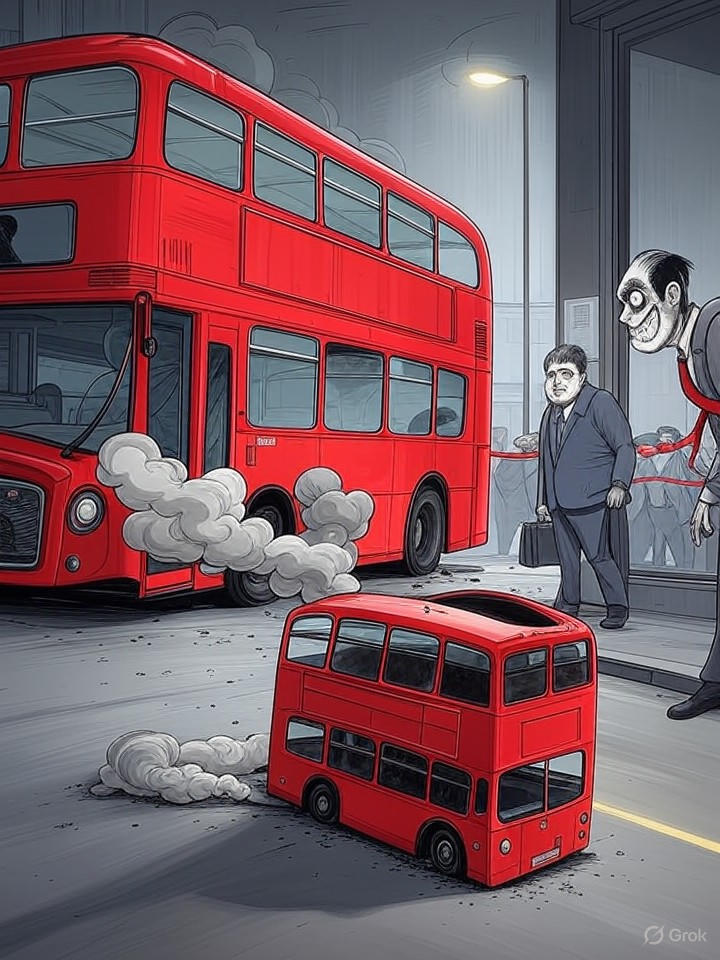
• via GB News
Bus Breakdown Opens Door to Predator's Deception
Nigerian student's taxi ruse leads to triple rape of 17-year-old in Bradford
A routine transport failure enabled a migrant student's assault on a vulnerable teen, exposing gaps in public safety, immigration oversight, and infrastructure reliability that persist across UK governments. This case underscores how everyday disruptions amplify risks for citizens.
#migrantcrime #publictransportfailure #sexualassault #immigrationpolicy #bradfordviolence -

• via BBC News
Fine-Erasure Brokers Operate from Solicitors' Doors
Huddersfield network nullifies £60k penalties for illegal migrant hiring
A Kurdish crime ring uses ghost directors and proxy fines to shield undocumented workers in UK mini-marts, exploiting regulatory voids that pull in illegal migrants despite government pledges.
#immigrationenforcement #criminalnetworks #businessregulation #illegalworking #mini-marts -

• via GB News
Fireworks Ignite Youth Clashes in Birmingham's Heart
Hundreds of masked teens target police near student housing, extending chaos past dawn
Overnight riots in Birmingham saw youths hurl fireworks at officers and residents, exposing failures in youth support and policing amid seasonal unrest. This incident highlights persistent social breakdowns that strain emergency services nationwide.
#youthviolence #birminghamdisorder #policeresponse #bonfirenight #urbandecay -

• via BBC News
Four Percent Grip Tightens on a Divided Policy Table
Inflation peaks at 3.8%, but a 5-4 vote delays cuts amid Budget shadows
The Bank of England's narrow decision to hold rates at 4% reveals internal rifts and fiscal uncertainties, prolonging high borrowing costs for households despite easing inflation. This cautionary stance highlights persistent economic vulnerabilities across political cycles.
#bankofengland #interestrates #inflation #rachelreeves #economicpolicy -

• via BBC News
Ideology's Absence Fills Prevent's Referral Ledger
8,778 cases in a year, mostly unideological, expose the programme's mismatch with rising youth risks
Record referrals to the Prevent anti-terror scheme highlight a surge in cases without fixed ideologies, revealing systemic failures to monitor susceptibilities as seen in the Southport attack. This pattern underscores institutional inertia that leaves UK security reactive amid evolving threats.
#preventprogramme #counter-terrorism #southportattack #youthradicalisation #institutionalfailure -

• via CNN
Knives End 262 Lives in a Year of Supposed Progress
Train attacks and hospital data reveal persistent blade violence despite cross-party pledges
Official knife crime fell 5% last year, yet 262 homicides and thousands of injuries expose systemic failures in addressing deprivation and youth support across governments. Enforcement removes weapons but ignores root causes fueling fear-driven violence.
#knifecrime #publicsafety #institutionalfailure #youthviolence #governmentpledges -

• via LBC
Metropolitan Police Racism Review Repeats a 25-Year Verdict
Daniels report uncovers baked-in biases after Macpherson and Casey inquiries
A new review exposes persistent anti-black racism in Met Police HR systems, repeating verdicts from 1999 and 2023 without driving structural change. This cycle reveals deep institutional inertia across governments, eroding trust and safety in London.
#metpolice #systemicracism #institutionalfailure #hrbias #stephenlawrence -

• via The Standard
Newham Officer Siphons 35 Homes from the Housing Queue
Whistleblower uncovers fraud amid £100 million temporary accommodation burden
A Newham housing officer's manipulation of allocations diverts 35 social homes to ineligible parties, worsening a crisis that strands 7,500 households in costly temporary setups. This breach highlights chronic underfunding and oversight failures across UK local government.
#housingfraud #newhamcouncil #socialhousing #temporaryaccommodation #localgovernmentfailure -
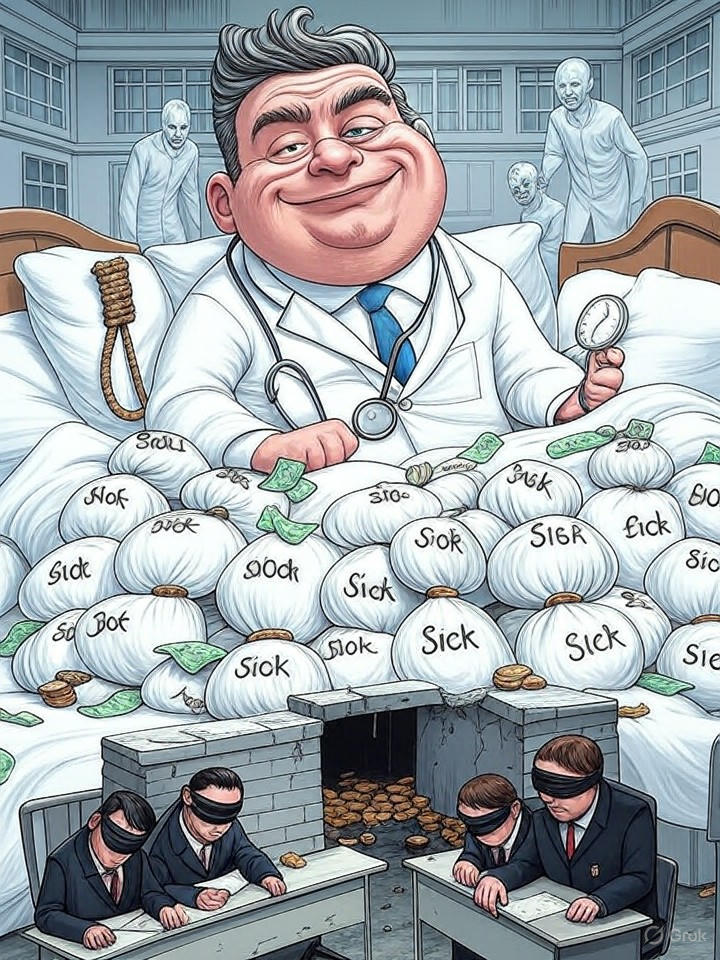
• via My London
NHS Funds Phantom Doctor Shifts for Three Years
£268,000 lost to sick leave scam highlights oversight voids
A doctor's three-year fraud of working extra shifts while claiming illness cost the NHS £268,000 in salaries and locums, exposing fragmented controls that enable abuse across trusts.
#nhs #fraud #healthcare #institutionalfailure #publictrust -

• via BBC News
Three Pence Per Mile Erodes the EV Incentive
Government eyes 2028 levy amid £25 billion fuel duty shortfall
A proposed pay-per-mile tax on electric vehicles exposes policy contradictions, as fiscal pressures undermine the UK's green transition and burden drivers with new costs. Industry warnings highlight risks to adoption targets amid infrastructure gaps.
#evtax #budget2024 #greentransition #fiscalshortfall #roadfunding -

• via Tax Policy Associates
Trusts Claim Faulty PPE Windfall
£65 Million Profits Evade Tax as HMRC Chases Shadows
Douglas Barrowman's PPE Medpro funneled £65m profits into trusts, dodging taxes via administration, in a pattern of elite avoidance that burdens UK taxpayers amid weak enforcement.
#taxavoidance #ppescandal #institutionalfailure #cronyism #hmrcenforcement -

• via Daily Star
A Convert's Swift Descent into Extremism Exposes Online Safeguards' Frailty
Jordan Richardson radicalized in months, plotting attacks on UK sites despite counter-terror efforts
A 21-year-old's rapid turn to Islamist extremism and conviction for terror planning highlight failures in online monitoring and integration, underscoring broader erosion of public safety across governments.
#extremism #counter-terrorism #radicalization #onlinethreats #socialcohesion -

• via The Independent
Fiscal Vows Shatter Under £50 Billion Strain
Reeves Eyes Basic Rate Hike After Manifesto Breaks
Rachel Reeves warns of broad tax increases to plug a £50bn public finance gap, shattering Labour's no-rise pledge and highlighting persistent productivity failures across governments. Markets tumble as households brace for eroded living standards.
#taxrises #publicfinances #productivitycrisis #labourmanifesto #economicdecline -
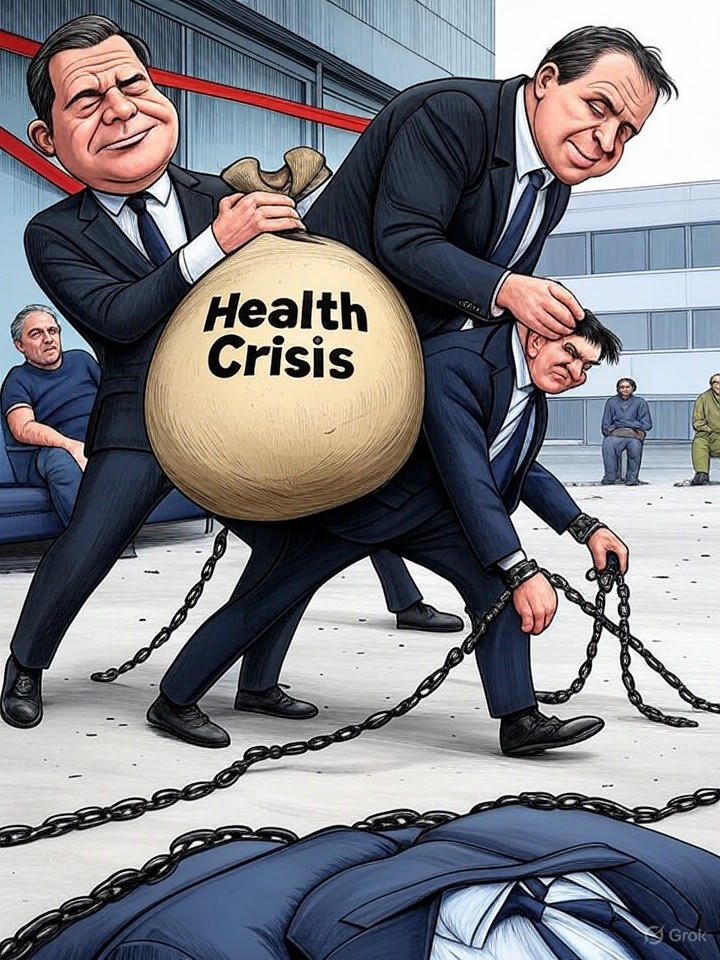
• via The Guardian
Nine Million Sidelined: Employers Charged with State's Health Failures
£85 Billion Annual Toll from Record Inactivity Pushes Costs onto Private Sector
A government review demands £6 billion yearly from employers to combat health-driven worklessness, exposing NHS breakdowns and cross-party neglect that leave 9 million working-age adults economically inactive.
#worklessness #nhsdecline #economicinactivity #employerburdens #healthpolicy -

• via The Guardian
Urban Metrics Mask London's Enforcement Void
Knife crime's 1% rise belies 14,000 incidents and shrinking police numbers
A Guardian defence of London cherry-picks data to dismiss crime concerns, ignoring absolute risks, resource cuts, and repeated policy shortfalls that signal broader urban institutional decay.
#londoncrime #sadiqkhan #policingfailures #urbandecline #medianarratives -

• via Mail Online
Wandsworth Unlocks Another Migrant Offender
Six-day delay in alerting police follows Chelmsford fiasco, as ministers deflect questions
A second erroneous release of a migrant sex offender from prison underscores systemic breakdowns in UK justice and immigration controls, with officials delaying reports and evading parliamentary scrutiny amid rising error rates.
#prisonerrors #migrantoffenders #justicesystem #immigrationenforcement #politicalaccountability -

• via BBC News
Worksheet Oversight Bares 625 Resident Profiles
Three days online, low risk claimed, trust further eroded
A council's failure to redact consultation data exposed hundreds to potential harm, highlighting chronic underfunding and protocol breakdowns in local government data handling. This routine breach underscores broader institutional vulnerabilities across UK public services.
#databreach #localgovernment #southgloucestershire #privacyfailure #institutionaldecline -

• via The Guardian
Exit Toll: Treasury's £2 Billion Grasp at Fleeing Assets
Reeves eyes G7 alignment amid capital outflows
The proposed 20% charge on departing UK residents' assets signals fiscal desperation, risking further wealth flight in an economy already losing ground to global rivals. It highlights cross-party failures in retaining capital over decades of decline.
#taxpolicy #capitalflight #fiscalshortfall #economicdecline #rachelreeves -

• via BBC News
Ghost Directors Command a Network of Shadow Mini-Marts
Over 100 UK high street businesses fronted by fake registrations exploit asylum seekers for illicit profits
A Kurdish crime network uses ghost directors to run mini-marts selling illegal goods, exploiting migrant workers amid weak enforcement. This exposes systemic gaps in immigration and business oversight that persist across governments.
#immigrationenforcement #organizedcrime #asylumseekers #illegalworking #companieshouse -

• via The Guardian
Reeves Weighs Income Tax Hike Amid £22 Billion Void
Breaking a 50-year pledge to plug gaps left by chronic underinvestment
Rachel Reeves eyes a basic rate income tax rise, shattering Labour's no-tax vow amid a £22 billion shortfall. This reveals persistent fiscal mismanagement across parties, forcing painful choices that burden households without restoring public services.
#fiscalpolicy #incometax #labourgovernment #economicdecline #brokenpromises -

• via GB News
A Deportation Order Ignored, A Holiday Home Invaded
Cornwall property owner confronts asylum seeker's multi-day occupation amid enforcement failures
A failed asylum seeker's intrusion into a luxury UK holiday home underscores deportation lapses, leaving citizens exposed to risks from a backlog exceeding 100,000 cases. This incident reveals enduring institutional breakdowns in immigration control across governments.
#immigrationenforcement #asylumbacklog #propertycrime #deportationfailures #ruralsecurity -

• via BBC News
Beijing's Threats Eclipse Sheffield's Scholarship
£3.8 Million in Fees Traded for Silenced Uyghur Research
Documents expose how Chinese intimidation forced a UK university to halt human rights studies, prioritizing student revenue over academic integrity. This vulnerability highlights systemic weaknesses in Britain's education sector amid foreign dependencies.
#academicfreedom #chinainfluence #highereducation #uyghurrights #foreignpolicy -

• via GB News
Dual Train Blades: One Day's Assault on Britain's Commutes
11 Wounded in Hours-Long Rampage Highlights Stagnant Security Measures
A single knifeman's attacks on two trains injure 11, exposing persistent underfunding and unfulfilled pledges that turn public transport into risk zones across governments.
#knifecrime #publictransport #policingfailures #institutionaldecline #socialsafety -

• via My London
Groceries Stolen, Life Ended: North London's Elderly Prey
An 87-year-old beaten to death for £11.50 change exposes urban predation unchecked by policy
A routine robbery kills a vulnerable pensioner, revealing how economic desperation and policing gaps turn everyday errands into fatal risks for Britain's aging population. Systemic failures across governments leave the elderly exposed on familiar streets.
#streetcrime #elderlyvulnerability #homelessness #policingfailures #socialbreakdown -

• via The Guardian
Quantum Startups Bloom, Then Bolt to America
UK leads in research numbers but trails in scaling capital, echoing AI's lost edge
Blair and Hague warn of quantum fumbles as UK firms sell to US buyers and build abroad, revealing chronic failures in commercializing homegrown innovation across governments.
#quantumcomputing #tonyblair #williamhague #uktechnology #innovationdecline -

• via The Guardian
Tax Levy Hits EV Bays as Green Push Stalls
£100 Million Burden Threatens 64,000 Charging Sites
New business rates on EV charging bays expose policy contradictions that burden operators and drivers, undermining the UK's net zero transition amid slower car sales.
#evinfrastructure #businessrates #greentransition #taxpolicy #netzero -

• via GB News
£3,000 Payments Loop Migrants Back Through Ireland
9,227 departures double under Labour, but hundreds re-enter via unchecked routes
The Assisted Voluntary Return Scheme pays illegal migrants to leave, yet social media guides enable swift returns through Ireland, wasting over £27 million in taxpayer funds annually. This exposes enduring failures in border enforcement across governments, sustaining underground economies.
#migration #bordercontrol #taxpayerwaste #homeoffice #voluntaryreturns -

• via My London
A Former Guardian of Law Becomes Its Accomplice
Ex-Met officer launders £5m over five years undetected
A convicted ex-Met Police officer's role in a £5m laundering scheme reveals unchecked corruption within law enforcement, eroding public trust and enabling organized crime across UK institutions.
#policecorruption #moneylaundering #institutionalfailure #publictrust #metropolitanpolice -

• via migrationcentral.co.uk
Foreign Convictions Climb 62% in Sexual Offences Alone
Data reveals threefold faster rise for migrants versus British nationals, 2021-2024
A 62% surge in foreign national sexual offence convictions outpaces British increases threefold, exposing failures in UK migration enforcement across governments. This ties to unchecked small boat arrivals and institutional overload.
#migration #crimestatistics #sexualoffences #bordercontrol #institutionalfailure -

• via Express.co.uk
London's Mayor Dismisses Grooming Gangs, Then Reviews 9,000 Cases
Public records contradict official denials, exposing years of institutional evasion
Sadiq Khan's assurances of no grooming gangs in London unraveled under investigation, revealing 9,000 Met Police cases for review and highlighting cross-party failures in child protection.
#groominggangs #sadiqkhan #metropolitanpolice #childexploitation #institutionalfailure -

• via The Guardian
Nine Lives Halted on a Single Rail Line
Stabbings on a Doncaster-to-London train expose fraying public safety amid rising knife violence
A mass stabbing on a British train injures nine severely, highlighting systemic failures in policing and transport security that turn daily commutes into high-risk ventures across governments.
#knifecrime #publictransport #policingfailures #publicsafety #institutionaldecline -

• via GB News
Nineteen Convictions, One Indefinite Stay
An Egyptian offender evades deportation via ECHR protections tied to familial extremism
A repeat criminal secures UK residency despite multiple offenses, as courts prioritize human rights over public safety. This ruling highlights persistent failures in deportation enforcement across political regimes.
#echr #immigration #deportation #foreignoffenders #publicsafety -

• via GB News
Rampage on Rails Leaves Nine Bleeding, Officers Nowhere in Sight
Huntingdon train attack exposes transport policing's chronic invisibility amid rising knife violence
A knife rampage on a British train injures nine with life-threatening wounds, highlighting years of underfunding that has normalized violence on public transport despite cross-party pledges for more officers.
#knifecrime #policingfailures #publictransport #institutionaldecline #underfunding -

• via GB News
Three Years Adrift: From Channel Crossing to York Rape Plea
Failed asylum seeker's barroom predation ends in guilty admission amid deportation delays
A small boat migrant's unchallenged stay in the UK enables a brutal assault, highlighting systemic failures in asylum enforcement and removal that persist across governments. This case underscores gaps between official return statistics and on-the-ground vulnerabilities.
#migrationcrisis #asylumfailures #sexualoffenses #borderenforcement #publicsafety -

• via GB News
Bridge Shadows: Syrian Asylum Seeker's Dawn Assault in Cardiff
37-Month Sentence Follows Stalking and Strangulation of Lone Woman
A Syrian asylum seeker's predatory attack under a Cardiff bridge exposes migration vetting failures, leaving a victim with enduring trauma amid national backlogs exceeding 100,000 cases.
#asylumfailures #migrantcrime #victimimpact #borderenforcement #publicsafety -

• via BBC News
Park Paths No Longer Safe
A daylight rape in Haywards Heath reveals suburban Britain's fraying safety net
A teenage girl's assault in a Sussex park during broad daylight underscores police underfunding, rising sexual violence, and the erosion of public spaces as safe havens for citizens.
#publicsafety #sexualviolence #policefunding #suburbancrime #institutionalfailure -

• via The Guardian
Social Homes Stall at 10,000 a Year
Labour's 1.5 million pledge falters amid 200-year waits and stalled sites
England builds just 10,000 social rent homes yearly, far below needs, as Labour's ambitious targets collide with funding cuts, labor shortages, and planning delays inherited across governments. This exposes systemic housing failure driving inequality and eroding public trust.
#housingcrisis #socialrent #labourpolicy #brexitimpact #constructionshortages -

• via BBC News
Stranger's Grip Under Cardiff Bridge
Syrian Asylum Seeker's Assault Highlights Dispersal Without Oversight
A Syrian asylum seeker's sex attack on a woman walking home in Cardiff exposes flaws in UK's asylum tracking and enforcement. Backlogs and weak monitoring leave communities exposed to unvetted risks, a pattern across governments.
#asylumfailures #publicsafety #migrationpolicy #cardiffassault #homeoffice -

• via My London
£4.7 Billion Shortfall Drives London's Councils to the Edge
Half Face Bankruptcy by 2028 Amid Central Funding Cuts
London's boroughs confront a £4.7 billion deficit by 2028 due to underfunding and rising mandates, forcing cuts to essential services. This crisis, spanning parties, highlights systemic failures in UK local governance.
#londoncouncils #financialcrisis #localgovernment #fundingcuts #socialcare -

• via GB News
A Failed Asylum Seeker Rapes in Central London
Moustafa Elbohy's attack highlights asylum system's unchecked costs and risks
A rejected Egyptian asylum seeker's alleged rape near Charing Cross exposes failures in border control, with 45,000 annual boat arrivals overwhelming enforcement and endangering public safety.
#asylumcrisis #bordercontrol #publicsafety #institutionalfailure #taxpayercosts -

• via Scottish Daily Express
A Stranger's Claim in Elgin Park
Afghan Asylum Seeker's Rape Conviction Highlights Unchecked Housing Risks
A brutal attack in a Scottish town park underscores failures in asylum vetting and housing, exposing broader risks to vulnerable citizens amid policy overload.
#asylumsystem #publicsafety #scotlandcrime #immigrationpolicy #institutionalfailure -

• via Sky News
Rochdale's Shadow Persists
Seventeen years from crime to courtroom in child exploitation case
New charges in Rochdale highlight enduring failures in child protection, with 17-year delays exposing systemic breakdowns in policing and justice that span governments and erode trust.
#childexploitation #rochdalescandal #institutionalfailure #justicedelays #groominggangs -

• via cps.gov.uk
Six Stabs in Droitwich: Redundancy and Resentment End a Life
An Egyptian migrant's unemployment strains a British marriage to breaking point
Mohamed Samak's conviction for murdering his wife exposes economic dependency and integration failures that fuel domestic violence in the UK. Broader institutional neglect leaves families vulnerable amid rising homicides.
#domesticviolence #immigrationintegration #economicstrain #justicedelays #familybreakdown -

• via GB News
Afghan Migrant Delivers Assaults to Kent Homes
Overstayer's attacks expose unchecked access in delivery jobs
An Afghan overstayer sexually assaulted two women during takeaway deliveries, revealing failures in immigration enforcement and worker verification that leave UK citizens vulnerable at their doorsteps.
#immigrationfailure #migrantcrime #bordercontrol #sexualassault #institutionalneglect -

• via The Standard
Bangladesh Bids Eclipse East London Duties
Tower Hamlets councillors attend half their meetings while eyeing foreign seats
Councillors in Tower Hamlets neglect constituents for Bangladesh campaigns, revealing governance failures flagged in 2024 inspections. This cross-party pattern underscores accountability voids in UK local politics.
#towerhamlets #localgovernment #accountability #dualmandates #politicaldefections -

• via Mynewsdesk
Daylight Stab in Lewisham: Witnesses Watch, Justice Waits
20-year-old Messiah Robb's death highlights 14,000 annual knife offences and policing gaps
A fatal stabbing in broad daylight exposes London's unchecked knife crime, low clearance rates, and institutional failures that persist across governments, eroding public safety in working-class areas.
#knifecrime #londonviolence #policingfailure #youthdeaths #urbandecline -

• via BBC News
Reeves Rents Without License, Echoing Ministerial Code Evasions
Chancellor's lapse in Southwark highlights selective enforcement of housing rules she champions
Rachel Reeves' unlicensed rental of her London home avoids investigation despite potential criminal breach, revealing systemic gaps in ministerial accountability that undermine public trust and policy credibility.
#rachelreeves #ministerialcode #housingpolicy #ethicsadviser #accountabilityfailure -

• via BBC News
UK's Gaza Student Scheme Delivers Partial Mercy
Dependants Gain Entry Rights, But Financial Proof Bars Most
The UK's reversal on allowing Gazan students' families highlights policy inconsistencies and bureaucratic barriers in humanitarian aid. It underscores declining institutional foresight amid rigid immigration rules. (142 characters)
#gazaevacuation #ukimmigrationpolicy #scholarshipstudents #humanitarianaid #institutionaldysfunction -

• via Sky News
£350 Boat, Lifetime Sentence
A rejected asylum seeker's random stabbing exposes systemic gaps in UK's migration controls
The fatal stabbing of a Derby man by a small boat migrant highlights failures in asylum processing and border enforcement that persist across governments, eroding public safety.
#asylumpolicy #smallboatcrossings #knifecrime #homeofficefailures #publicsafety -

• via LBC
A Binman's Fatal Intervention in Uxbridge
Stabbing exposes migration strains in west London suburb
A 49-year-old refuse collector dies halting a knife attack by an undocumented Afghan lodger. The incident underscores unchecked migration's role in suburban violence and eroding community safety.
#knifecrime #immigrationpolicy #communitycohesion #londonviolence #asylumseekers -

• via BBC News
A Knife in Midhurst Gardens
Asylum Grant to Fatal Stabbing in Two Years
A routine dog walk in Uxbridge ends in death, exposing failures in asylum integration and rising knife crime that successive UK governments failed to curb.
#knifecrime #asylumpolicy #londonviolence #communitysafety #institutionalfailure -

• via The Spectator
Britain's Nuclear Push Stalls on Asylum Seeker Hiring Quotas
£22 Million Tender Yields No Orders as Social Mandates Dominate
The UK's SMR competition prioritizes impossible diversity quotas over energy goals, delaying reactors and inflating costs. This reveals procurement rules that hinder innovation and national priorities across governments.
#nuclearenergy #procurementdysfunction #socialvalueact #energysecurity #institutionaldecline -

• via Manchester Evening News
Children Stab in Daylight: Manchester Station Becomes a Battlefield
A 13-year-old victim highlights surging youth knife crime in under-policed urban hubs
A daylight stabbing at Manchester Piccadilly by boys aged 12-13 underscores rising youth violence, institutional underfunding, and the erosion of public safety across UK cities. Data shows knife offenses doubling among teens since the 1990s, with accountability gaps persisting under successive governments.
#youthviolence #knifecrime #urbandecay #publicsafety #institutionalfailure -

• via BBC News
Crack Pipes and Closed Doors: Dundee's Exploitation Unravels
Ten local women victimized in flats, exposing gaps in a decade of promised safeguards
A grooming gang's convictions in Dundee highlight Britain's failure to protect vulnerable locals from drug-fueled predation, part of a national pattern of institutional neglect amid rising social fractures.
#groominggangs #sexualexploitation #dundee #socialdecline #policingfailures -

• via LBC
Father's Concealment Request Reveals Fractured Child Safeguards
Southport inquiry exposes WhatsApp plea that shielded violent history from youth justice oversight
A father's bid to hide his son's assaults from officials highlights systemic gaps in UK youth services, from autism leniency to ignored Prevent referrals, enabling escalation to murder.
#southportinquiry #youthjusticefailures #childprotection #institutionaldysfunction #autisminterventions -

• via BBC News
Home Office Contracts Fail, Asylum Bills Soar to £15 Billion
Flawed 2019 deals triple costs amid hotel reliance and unrecovered profits
UK asylum accommodation costs have ballooned to £15.3 billion due to flawed contracts and oversight lapses, revealing cross-party institutional failures that waste taxpayer funds and fuel social tensions. This pattern underscores broader governance decay unaffected by changes in power.
#asylumpolicy #homeoffice #governmentspending #institutionalfailure #migrationcosts -

• via Mail Online
Knives Over Breakfast: Asylum Hotels Breed Routine Chaos
Bournemouth incident jails two claimants amid £8m daily housing costs
A knife-wielding chase at a Dorset asylum hotel exposes systemic failures in migrant accommodations, from repeat offenders to local strains, unchanged across governments.
#asylumsystem #migrationviolence #institutionalfailure #publicsafety #hotelaccommodations -

• via charlottecgill.co.uk
Labour MP's Migration Stance Traces to £45,000 External Gift
RAMP donations link Sheffield Hallam representative to Soros-backed advocacy
Olivia Blake's £45,000 from the Refugee, Asylum & Migration Policy Project exemplifies how external funding shapes UK migration debates across parties, eroding local accountability and public trust.
#politicaldonations #migrationpolicy #externalinfluence #parliamentaryaccountability #institutionaldecline -

• via Kent Online
Maidstone Deliveries Turn Homes into Intrusion Zones
An overstaying asylum seeker's assaults highlight unchecked illegal work and sentencing delays
A convicted asylum seeker's sexual assaults during illegal deliveries expose failures in immigration enforcement, gig economy oversight, and judicial efficiency, eroding public safety in everyday Britain.
#immigrationfailure #sexualassault #judicialdelays #gigeconomy #publicsafety -

• via The Guardian
Prison Releases Turn Routine: Six Errors in Seven Days
262 mistaken freedoms in a year signal systemic overload
Erroneous prisoner releases have surged 128% amid overcrowding and staff shortages, exposing bipartisan failures in the UK's justice infrastructure. This routine dysfunction erodes public safety and institutional trust without accountability.
#prisons #justicesystem #overcrowding #staffshortages #erroneousreleases -

• via The Standard
Raids Detain Eight Thousand in Shadow Economy Crackdown
London's barbershops and delivery routes lead record immigration enforcement
Record arrests expose Britain's reliance on illegal labor in low-wage sectors, as government pledges fines for gig platforms amid persistent economic gaps. This reactive enforcement highlights systemic failures in immigration and labor policy across parties.
#immigrationenforcement #illegalworking #gigeconomy #homeoffice #bordersecurity -

• via The Tab
Redbridge Lane's Toll: A Student's Death and Rapper's Charge
Hit-and-run fatality underscores rising UK road risks for international youth
The fatal hit-and-run killing Nepali student Yubin Tamang by rapper Ghetts reveals deepening cracks in London's road safety and justice systems, amid budget cuts and rising incidents.
#roadsafety #hit-and-run #celebrityaccountability #internationalstudents #londonpolicing -

• via LBC
Snails Invade Vacant Offices in £370,000 Rates Dodge
Westminster Council uncovers sham farms exploiting agricultural exemptions
Fake snail operations in empty London offices evade £370,000 in business rates, exposing flaws in UK's tax enforcement. This scam strains local services and reveals persistent fiscal loopholes across governments.
#taxevasion #businessrates #localgovernment #westminstercouncil #propertyfraud -

• via The Guardian
Barracks for the Borderless: UK's Asylum Fix Reveals Rot at the Core
From hotels to military outposts, the migration muddle persists
The relocation of asylum seekers to disused UK military sites exposes a migration system in freefall, with costs tripling and backlogs unyielding despite cross-party pledges for control.
#asylumcrisis #institutionalfailure #migrationpolicy #ukdecline -

• via Mail Online
Eight Stabs in Leicester Square, One Charge Erased
Prosecutors drop attempted murder without explanation in random child attack
A Romanian man's daylight stabbing of an 11-year-old tourist in London ends with reduced charges and no trial, highlighting judicial opacity and public safety gaps amid rising knife crime.
#knifecrime #justicesystem #publicsafety #londonviolence #cpsdecisions -

• via MattGoodwin.org
When Street Politics Fractures: What East London's Protests Reveal About Institutional Failure
Matt Goodwin on the Emerging Sectarian Divides in British Politics
In East London, protests have exposed deep fractures within communities long assumed to be politically unified. Matt Goodwin unpacks how decades of policy avoidance and institutional failure have led to the rise of sectarian politics on Britain's streets.
#politics #society #integration #immigration #communitycohesion -

• via The Guardian
Thirty Hours Awake, Two Lives Ended
Coroner Blames NHS Failures in Prestwich Home Birth Tragedy
A high-risk mother's preventable death exposes NHS midwifery breakdowns: exhausted staff, vague warnings, and ignored protocols claim lives amid chronic understaffing.
#nhs #maternitycare #homebirths #institutionalfailure #midwiferyshortages -

• via The Guardian
The Procurement Merry-Go-Round: How Britain's Political Donation System Rewards Access Over Merit
When Donors Win Big Contracts Regardless of Who's in Power
New research reveals that companies donating to political parties in the UK are consistently awarded government contracts worth billions, regardless of which party is in power. This analysis explores how Britain's procurement system effectively converts political donations into preferential access, undermining meritocracy and public trust in government spending.
#politicaldonations #governmentcontracts #procurementsystem #ukpolitics #publictrust -

• via Sky News
Britain's Water Crisis: Fifty Years of Warnings, Zero Years of Action
Decades of Neglect Lead to Imminent Shortages
Britain is facing a drinking water crisis that experts have warned about for nearly half a century. Despite repeated droughts and clear predictions, the government's response has been inadequate, with infrastructure leaking vast amounts of water daily. This crisis is not sudden but the result of decades of institutional failure across multiple governments.
#watercrisis #infrastructurefailure #governmentaccountability #climatechange #regulatoryoversight -

• via Sky News
The Bank of England Finally States the Obvious: Brexit Is Permanent Economic Damage
Brexit's economic costs were known but unspoken for years.
In a rare moment of candour, Bank of England Governor Andrew Bailey has acknowledged that Brexit will inflict permanent damage on the UK's economic growth. This admission highlights years of institutional silence and the harsh realities facing Britain's economy post-Brexit.
#brexit #eurelations #ukeconomy #bankofengland #andrewbailey -

• via LBC
Four Years of Rising Unemployment Under Four Different Governments
The Numbers Behind Britain's Stalled Economic Engine
Unemployment in the UK has risen to 4.8%, the highest level since 2021, marking four consecutive years of increasing joblessness under four different governments. Despite promises of economic growth and renewal, average earnings are failing to keep pace with inflation, leading to a decline in real wages and living standards. This trend highlights systemic issues within Britain's economic framework that transcend political leadership.
#economy #unemployment #wages #ukpolitics #labourgovernment -

• via Sky News
When Good Numbers Hide Bad News: The IMF's Uncomfortable Truth About Britain
Growth, Inflation, and Institutional Failure
The IMF forecasts Britain will have the second-strongest economic growth in the G7 this year. But it also predicts Britain will have the highest inflation and the weakest per-capita growth next year. This is not a contradiction. This is a symptom of deeper institutional problems.
#imf #economicgrowth #inflation #ukeconomy #institutionalfailure -

• via BBC News
"When "Inclusive" Means Half the Population Need Not Apply
A Muslim Charity Run Excluding Women and Girls
A muslim charity run in East London excludes women and teenage girls while claiming to be "inclusive." Thirteen years later, an equality investigation begins. What does this reveal about institutional accountability and enforcement of equality law?
#equalitylaw #institutionalaccountability #gender #communityengagement #publicpolicy -

• via The Guardian
When Four-Year-Olds Can't Climb Stairs: The Collapse of Basic Child Development
The Facts Teachers Won't Sugar-Coat Anymore
A recent survey reveals a disturbing trend: many children are starting school without fundamental physical skills like climbing stairs or sitting upright. This decline in basic child development highlights systemic failures in parenting, health services, and government support, exacerbated by economic pressures and increased screen time.
#childdevelopment #earlyyearseducation #parentingchallenges #healthvisitorservices #screentimeimpact -

• via The Guardian
The PPE Medpro Judgment: When Winning in Court Means Losing £122 Million
How Britain's Institutions Ensure Public Money Flows to Private Profit Without Consequences
David Conn's investigation into the PPE Medpro scandal reveals how Britain's institutions have been structured to ensure that certain individuals can profit from public money without facing consequences. The recent high court judgment ordering PPE Medpro to repay £122 million for defective medical gowns highlights a system where winning in court often means losing money for taxpayers.
#ppemedpro #covid-19 #publicservices #governmentaccountability #institutionalfailure -

• via BBC News
When Failure Pays: The Water Industry's Reward System
How privatized water companies in England profit from underinvestment and rising bills
Five English water companies have successfully argued for higher bills to cover infrastructure failures they were supposed to maintain. The Competition and Markets Authority approved an additional £556 million in charges, on top of already planned 36% increases over five years. This comes as serious pollution incidents by water firms jumped 60% in a single year, highlighting a troubling pattern of privatized monopolies profiting from public goods while failing to deliver essential services.
#waterindustry #privatization #regulatorycapture #infrastructure #publicgoods -

• via The Guardian
The Steel Trap: How Brexit Britain Became Europe's Industrial Afterthought
Why the EU's 50% Steel Tariffs Spell Disaster for UK Industry
Importing twice the steel it produces, relying on EU buyers for 78% of exports, and having no negotiated protections, Britain faces an 'existential threat' to its steel industry after the EU imposed 50% tariffs. This article explores the institutional failures and economic realities behind this crisis.
#brexit #eurelations #steelindustry #tradepolicy #industrialdecline -

• via BBC News
How Britain Turned Asylum Into a Billion-Pound Profit Machine
While Children Ate Frozen Food, One Man Became a Billionaire
The Home Office's asylum accommodation contracts, initially valued at £4.5 billion, are now projected to cost £15 billion. Clearsprings Ready Homes founder Graham King has made £187 million in profits, becoming a billionaire, while asylum seekers in his hotels face inadequate food and rationed hygiene products. This isn't just a failure of policy—it's a symptom of Britain's institutional decay.
#asylumpolicy #governmentaccountability #publicspending #privatecontracts #institutionalfailure -

• via The Times
The Invisible Doctors: How Britain's Medical Regulator Lost Track of Who It's Licensing
Overseas doctors with serious misconduct records are practicing in the NHS with clean UK licenses
The Sunday Times revealed this week that at least 22 doctors banned or disciplined overseas are practicing in the NHS with clean UK medical licenses. One had sex with patients. Another missed life-threatening conditions on scans. A third sexually harassed colleagues. The General Medical Council either failed to discover these facts or chose not to disclose them.
#nhs #generalmedicalcouncil #medicalregulation #healthcare #patientsafety -

• via BBC News
The Two-Hour Window: How British Transport Police Decriminalised Bike Theft
How a Policy Change Reveals Deeper Institutional Failures in UK Policing
British Transport Police have effectively legalised bicycle theft at railway stations by refusing to investigate thefts of bikes left for more than two hours. This policy, which applies even to bikes stolen from secure parking facilities with CCTV coverage, reveals a deeper institutional failure. By prioritising "crimes which cause the most harm," BTP has created an environment where bike theft is rampant and commuters are left unprotected. This analysis explores how this policy reflects broader issues in UK governance and public service delivery.
#britishtransportpolice #biketheft #publicsafety #ukpolicing #institutionalfailure -

• via BBC News
Bradford's "Success Story": When Demographics Replace Academic Excellence
The true meaning of social mobility in British higher education
The University of Bradford's achievement in having the highest proportion of ethnic minority students in England and Wales is a double-edged sword. While it highlights the need for greater diversity in higher education, it also raises questions about the quality of education being provided and the true meaning of social mobility.
#highereducation #socialmobility #university #ethnicminorities #diversity -

• via Telegraph
When Medical Evidence Takes a Back Seat to Cultural Politics
NHS guidance on cousin marriage prioritizes cultural sensitivity over genetic risk
Instead of providing clear medical advice, the NHS has issued guidance that downplays the genetic risks of first-cousin marriage by emphasizing its cultural and economic "benefits." This reflects a troubling trend where political correctness overrides scientific evidence in public health policy.
#nhs #healthcare #institutionalfailure #publichealthpolicy #culturalsensitivity -

• via The Independent
Britain Adds Another City's Worth of People While Its Infrastructure Crumbles
The Second-Largest Population Surge in 75 Years Exposes a State That Can't Plan, Can't Build, and Can't Tell the Truth
The UK population grew by 755,254 in the year to June 2024, driven almost entirely by migration. This surge, the second-largest since World War Two, strains already collapsing public services and infrastructure. Amidst political theatre about digital ID cards, the real issue is a state incapable of planning or building for its population.
#ukpopulationgrowth #migrationimpact #publicservicesstrain #infrastructurecrisis #housingshortage -

• via The Guardian
The £518 Million Mirage: How Thames Water Turned London's Water Security Into a Financial Extraction Scheme
Desalination Disaster and the Illusion of Infrastructure
Thames Water's £518 million desalination plant, built to secure London's water supply, has produced a mere seven days' worth of water over 15 years. This exposé reveals how the plant, plagued by operational failures and exorbitant costs, serves more as a financial asset for debt accumulation than a functional piece of infrastructure. As the company seeks another £535 million for a new project, the story highlights the systemic issues in Britain's privatised water industry, where public service is secondary to wealth extraction.
#thameswater #waterdesalination #publicutilities #infrastructurefailure #environmentalpolicy -

• via The Independent
TThe Digital Leash: How Britain's Border Failures Spawned Universal Surveillance
Keir Starmer's Mandatory Digital ID Plan is a Symptom of Institutional Decay
As the UK struggles with record illegal migration and asylum backlogs, Keir Starmer's proposal for mandatory digital ID cards for all working adults reveals deeper issues of governmental incompetence and authoritarian overreach. This analysis explores the implications for civil liberties and the future of British democracy.
#ukpolitics #digitalid #civilliberties #surveillance #authoritarianism -

• via The Independent
Britain's Pharmaceutical Exodus: When Even Big Pharma Won't Take Your Money
How Bureaucratic Short-Sightedness is Driving Life Sciences Out of the UK
When the CEO of a $700 billion pharmaceutical giant publicly declares that the UK is "probably the worst country in Europe" for drug prices, it's a stark warning sign. Eli Lilly's Dave Ricks isn't just lamenting high taxes; he's signaling a broader institutional failure that's driving investment and innovation out of Britain. This analysis explores how bureaucratic short-termism and irrational pricing schemes are dismantling what was once a global leader in life sciences.
#pharmaceuticalindustry #drugpricing #ukeconomy #corporateinvestment #nhs -

• via BBC News
The Luxury Care Home Where Elderly Residents Sat in Their Own Urine for Hours
When £1,800 a Week Buys You Neglect: Inside Scotland's Most Complained-About Care Home
Private equity firm Morar Living expects £90 million in profits over five years while dementia patients scream for help in corridors smeared with excrement. This is the reality of elderly care in modern Britain.
#socialcare #elderlycare #carehomeneglect #regulatoryfailure #nhshighland -

• via The Guardian
The OECD Verdict: UK Claims Global Economic Leadership While Leading Only in Inflation
Britain to Suffer Highest Inflation in G7 This Year, Says OECD
While the UK government touts its economic prowess, the OECD paints a starkly different picture: Britain is set to endure the highest inflation in the G7 this year, with growth projections remaining sluggish. This report highlights the disconnect between political rhetoric and economic reality, revealing a nation grappling with self-inflicted economic challenges.
#ukeconomy #inflation #oecdreport #economicgrowth #g7nations -
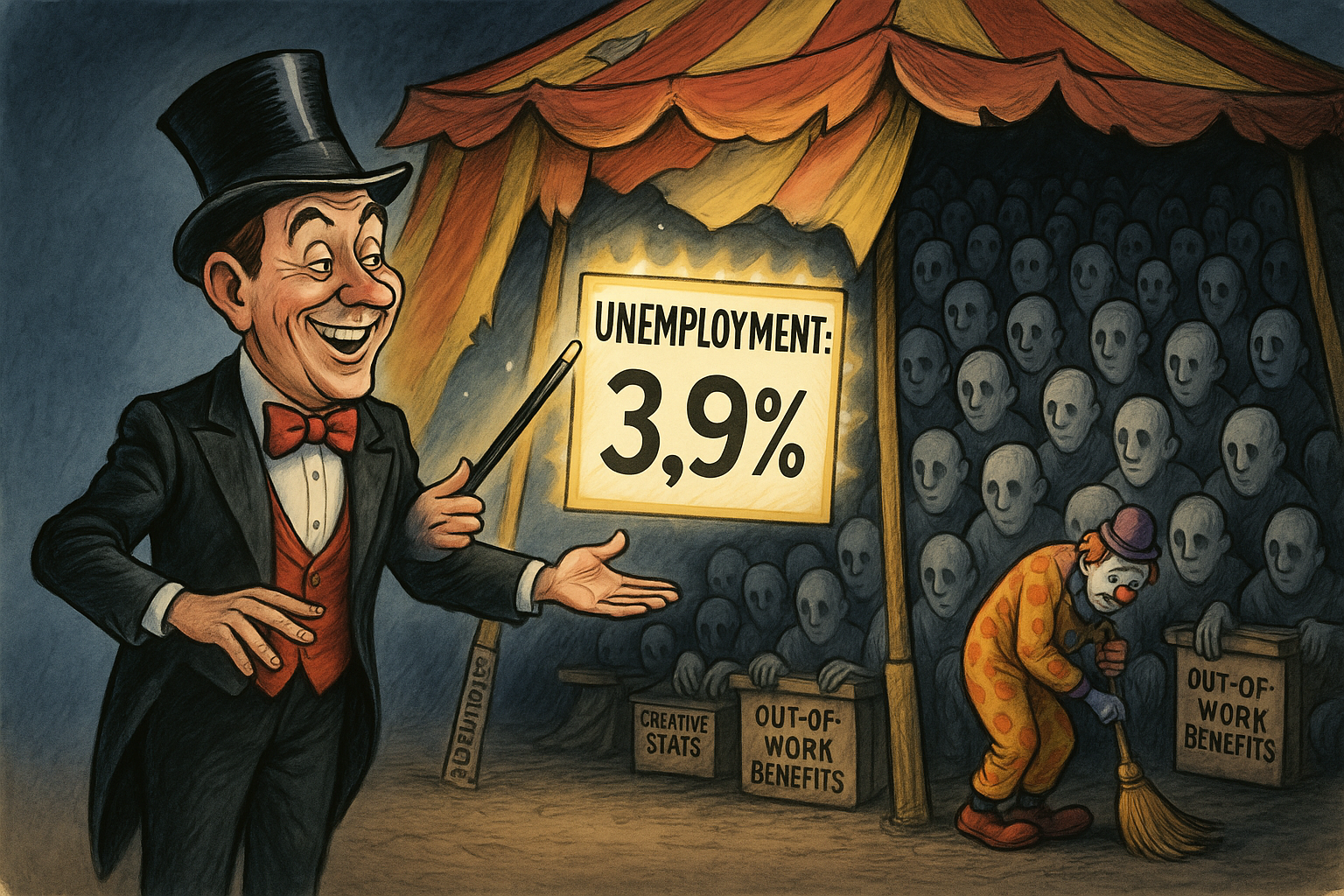
• via Fraser Nelson's notebook
The Hidden Crisis: How 6.5 Million on Benefits Exposes Britain's Economic Delusion
The Unseen Majority Behind the Unemployment Illusion
Based on Fraser Nelson's investigative piece, this article covers the staggering reality of 6.5 million working-age Britons on out-of-work benefits, a figure obscured by official statistics and institutional obfuscation. It explores the systemic failures that allow such a vast portion of the population to remain economically inactive while the government touts low unemployment rates, revealing the deep contradictions and social consequences of Britain's welfare state.
#publicbenefits #disabilitybenefits #unemployment #welfarestate #economicpolicy -

• via Sky News
The Afghan Resettlement Scandal: How Britain Spent £6 Billion on a Lie
Exposing the Fraud and Institutional Failures Behind the UK's Afghan Refugee Scheme
The UK government's £6 billion Afghan resettlement scheme has been exposed as a massive fraud, with many "refugees" returning to Afghanistan for holidays. This scandal reveals deep institutional failures and political hypocrisy in British governance.
#asylumpolicy #migration #institutionalfailure #humanrights #politicalhypocrisy -

• via Adam Smith Institute
The £8 Billion Disability Car Scheme Nobody Wants to Question
Brand New Cars for Anxiety While Pensioners Freeze
The Adam Smith Institute's investigation into the Motability scheme uncovers a staggering £8.1 billion annual expenditure on brand-new cars for welfare claimants, far exceeding essential public services budgets. This exposé reveals how a program initially designed to assist wheelchair users has ballooned into an unaccountable monopoly, purchasing one in five new cars sold in Britain, while eligibility criteria have been drastically expanded to include conditions like anxiety and depression.
#motability #disabilitybenefits #disabilityrights #adamsmithinstitute #publicstudies -
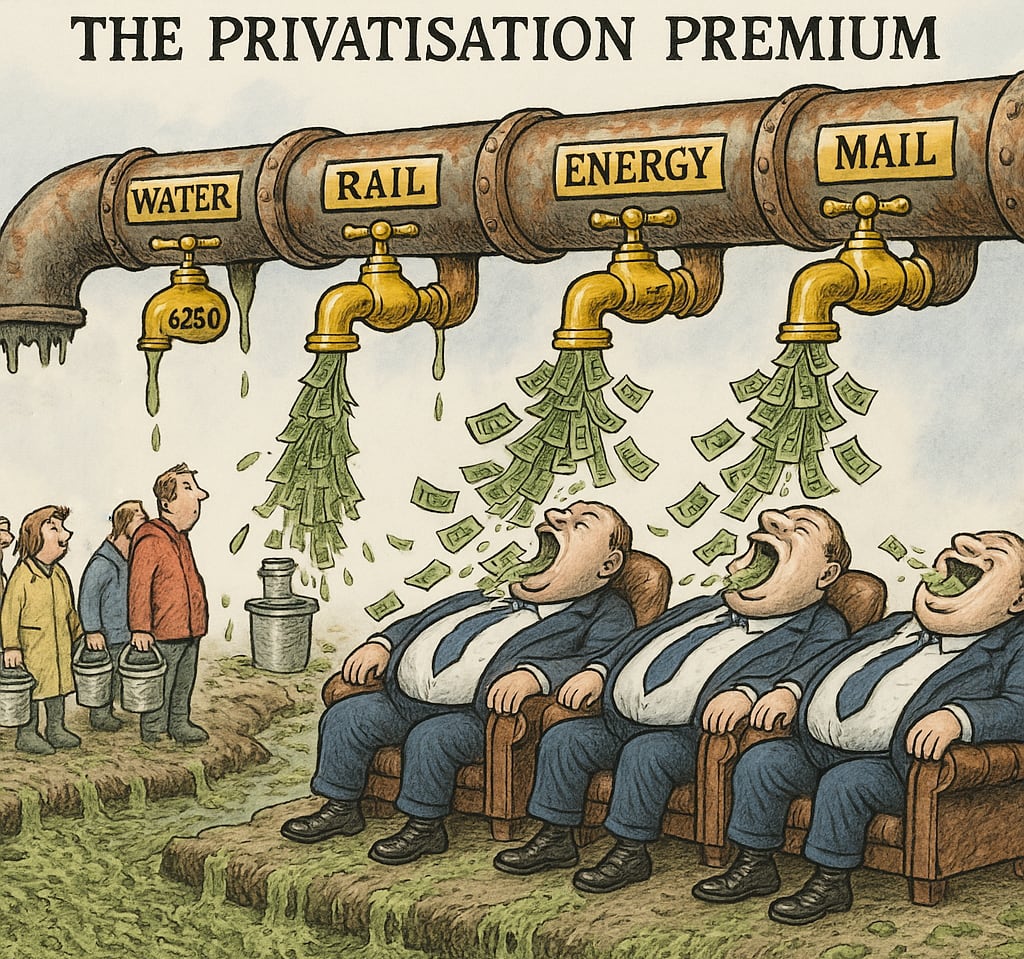
• via The Guardian
The £200 Billion Extraction: How Privatisation Became Britain's Longest-Running Wealth Transfer
Four decades of privatisation have funneled £193bn from UK households to shareholders, while infrastructure decays and bills soar.
Since 1991, £193 billion has been extracted from British households and transferred to shareholders of privatised utilities, while promised competition and efficiency delivered polluted rivers, unreliable trains, and soaring bills. This isn't a policy debate anymore. It's a measurable wealth transfer operating at industrial scale.
#publicservices #privatisation #corporategovernance #environmentalpolicy #politicalaccountability -

• via The Guardian
The Prime Minister Who Invoiced a Dictator: Johnson's Gulf Gold Rush Exposes Britain's Ethical Collapse
From Downing Street to Dubai: How Boris Johnson Monetized Public Office for Private Gain
Boris Johnson's post-premiership activities reveal a troubling intertwining of public office and private profit, raising serious ethical questions. The leaked documents show a former prime minister leveraging his government contacts for lucrative deals with autocratic regimes, highlighting a broader pattern of institutional decay in British politics.
#borisjohnson #gulfstates #saudiarabia #mohammedbinsalman #institutionaldecay -
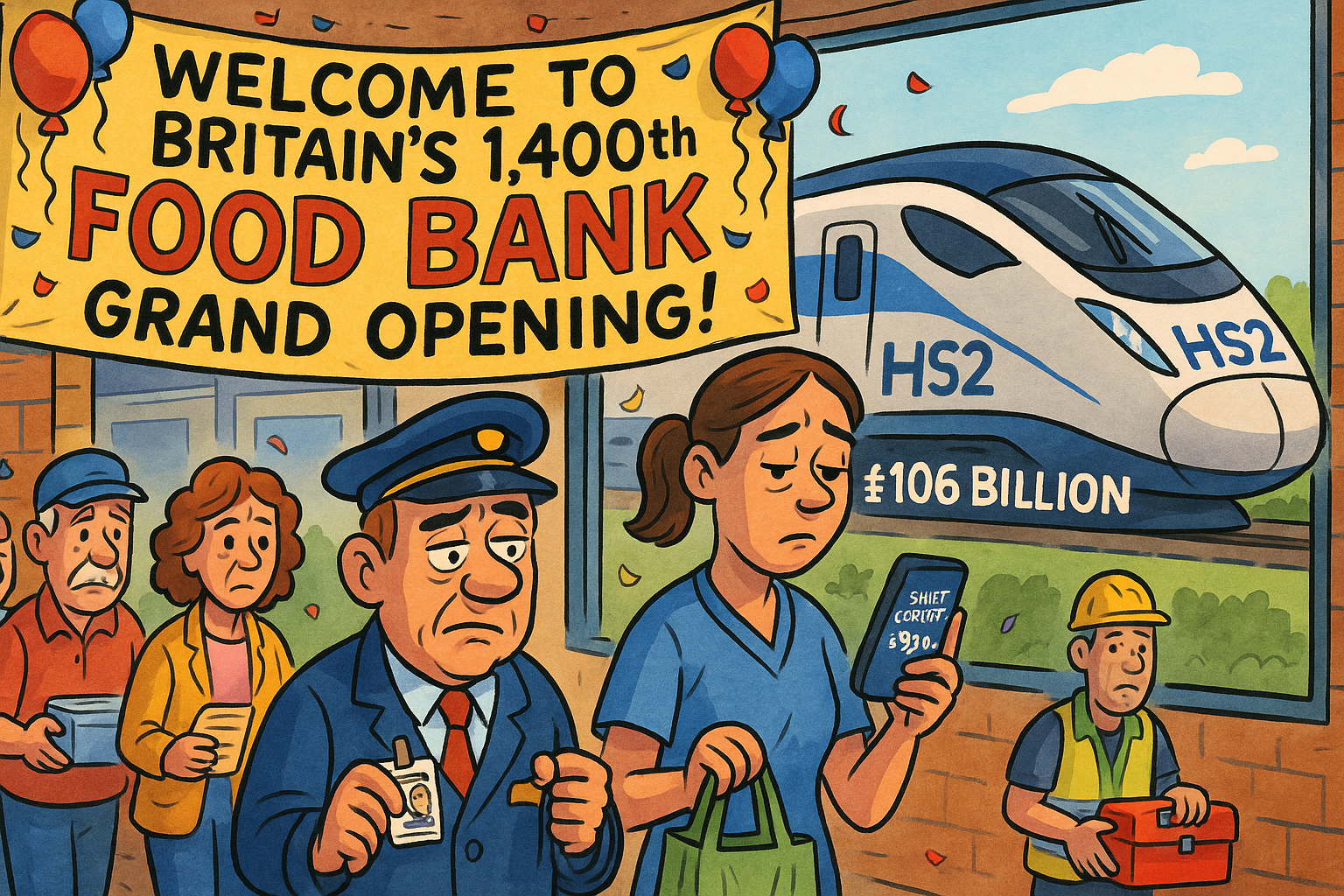
• via The Guardian
Working Britain Goes Hungry: The New Normal of First-World Decline
One in Six UK Households Now Face Food Insecurity as Government Fails to Address Root Causes
Seven months after Labour promised to end mass food bank dependency, 14 million Britons—one in six households—are now food insecure. With working families increasingly reliant on charity, the government's failure to tackle the root causes of poverty is driving systemic decline and social unrest.
#ukeconomy #poverty #foodinsecurity #childpoverty #foodbanks -
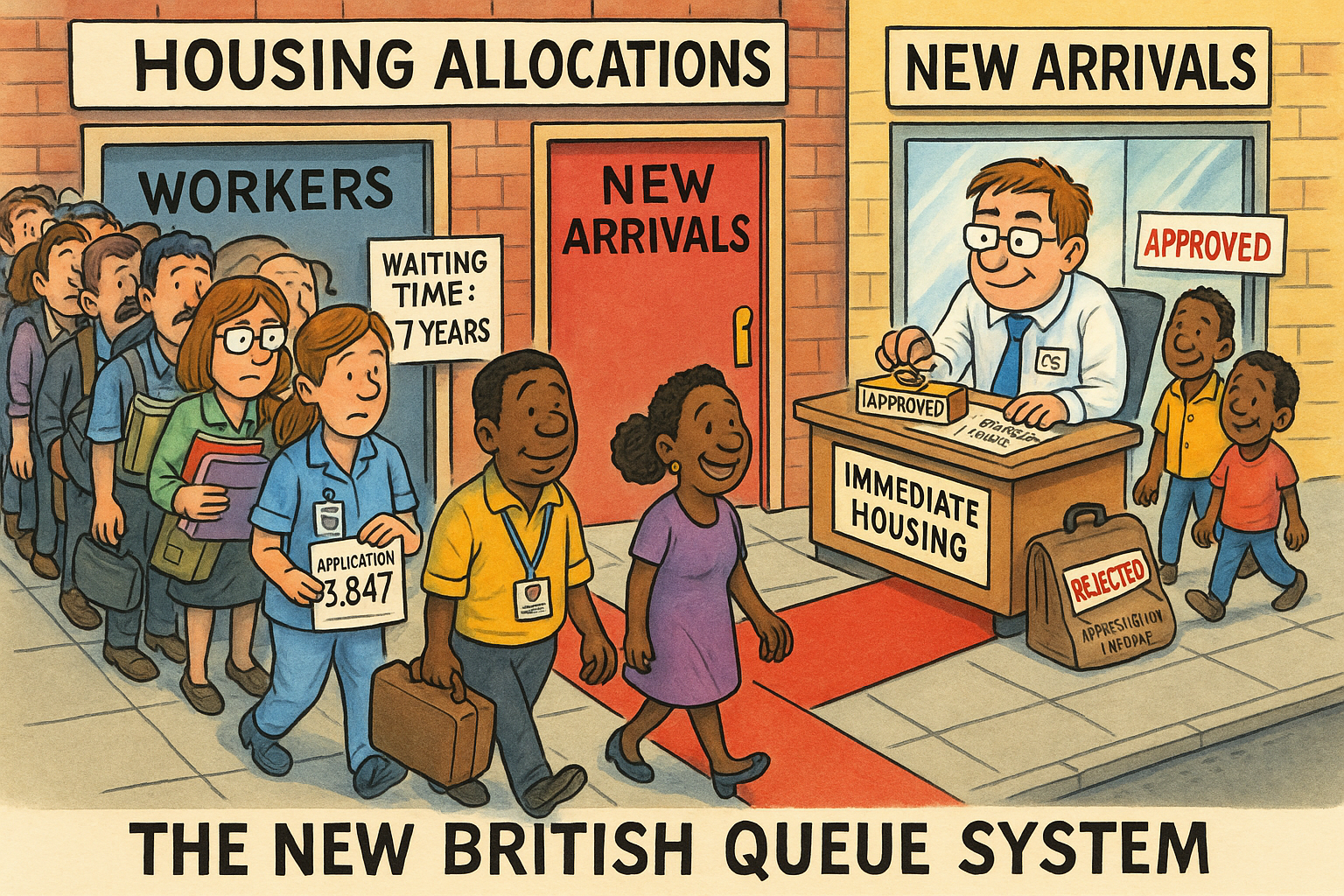
• via The Times
Paying for Your Own Displacement: The New British Social Contract
When Workers Become Second-Class Citizens
Read how Britain's asylum system has inverted the social contract, disadvantaging hardworking citizens in favor of non-contributors. This article explores the systemic failures, political inaction, and the growing divide between those who work and those who don't, highlighting the urgent need for reform.
#asylumseekers #socialcontract #housingcrisis #economicinequality #publicservices -
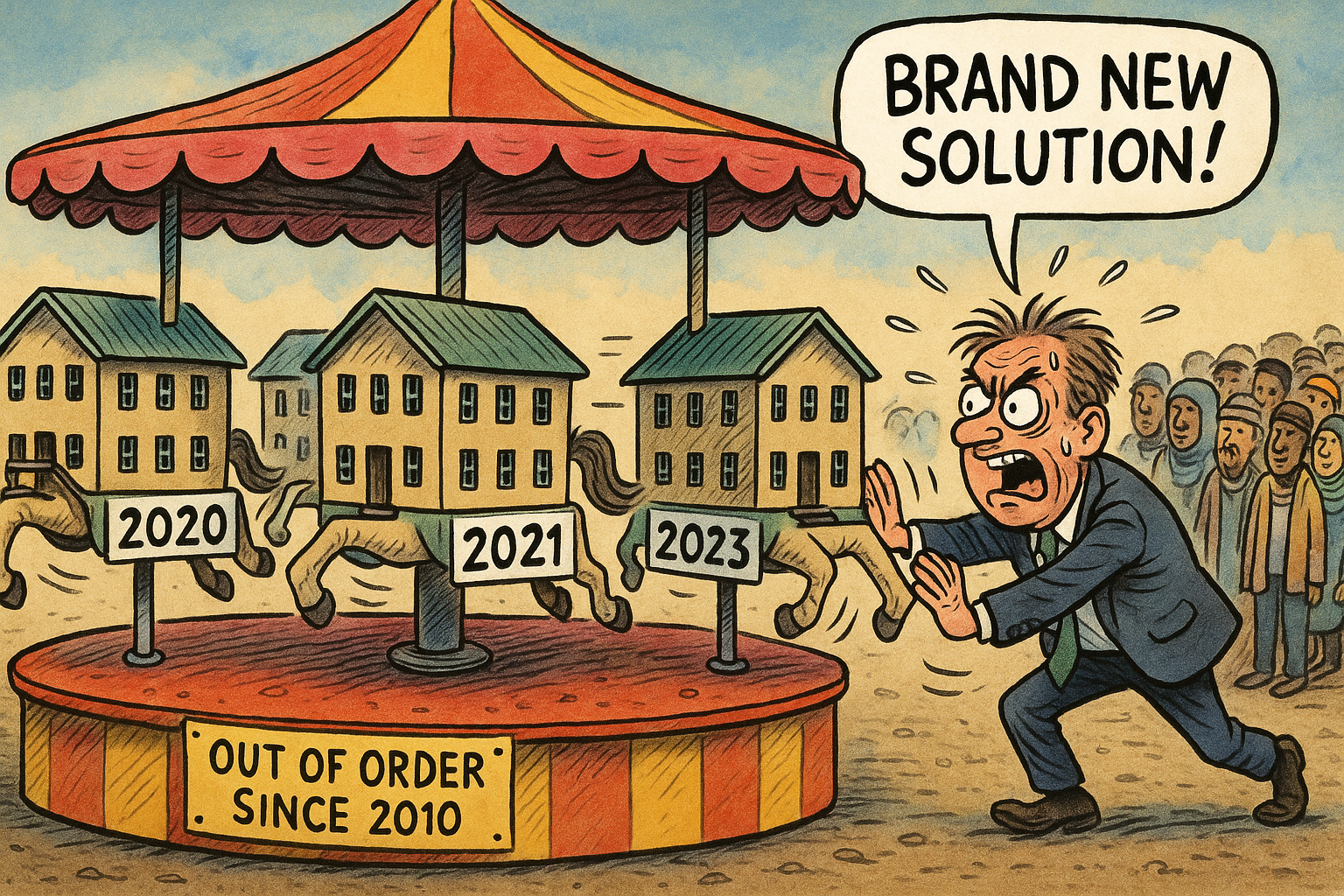
• via The Guardian
Military Bases for Asylum Seekers: Britain's Endless Loop of Failed Solutions
Why Labour's Plan to Use Military Sites is Just Déjà Vu
Defence Secretary John Healey's announcement to use military sites for asylum seekers is less a new solution and more a repetition of past failures. With asylum hotel costs at £8 million daily and no clear plan to end their use, the government is recycling failed strategies amid political panic rather than evidence-based planning. This move highlights Britain's institutional decay, where basic governmental functions are outsourced to military resources, reflecting a broader collapse in administrative competence.
#politics #asylumseekers #military #immigration #labourparty -

• via Sky News
The Market Verdict: Britain's Economic Reality Check Arrives at Rachel Reeves' Door
What Tuesday's Bond Market Turmoil Reveals About the UK's Economic Future
The recent turmoil in the UK bond market is a stark reminder that the Bank of England's independence is a thing of the past. As the government grapples with rising borrowing costs and a faltering economy, the central bank's ability to act as a credible counterweight has been severely undermined.
#ukeconomy #bondmarket #inflation #governmentborrowing #economicpolicy -
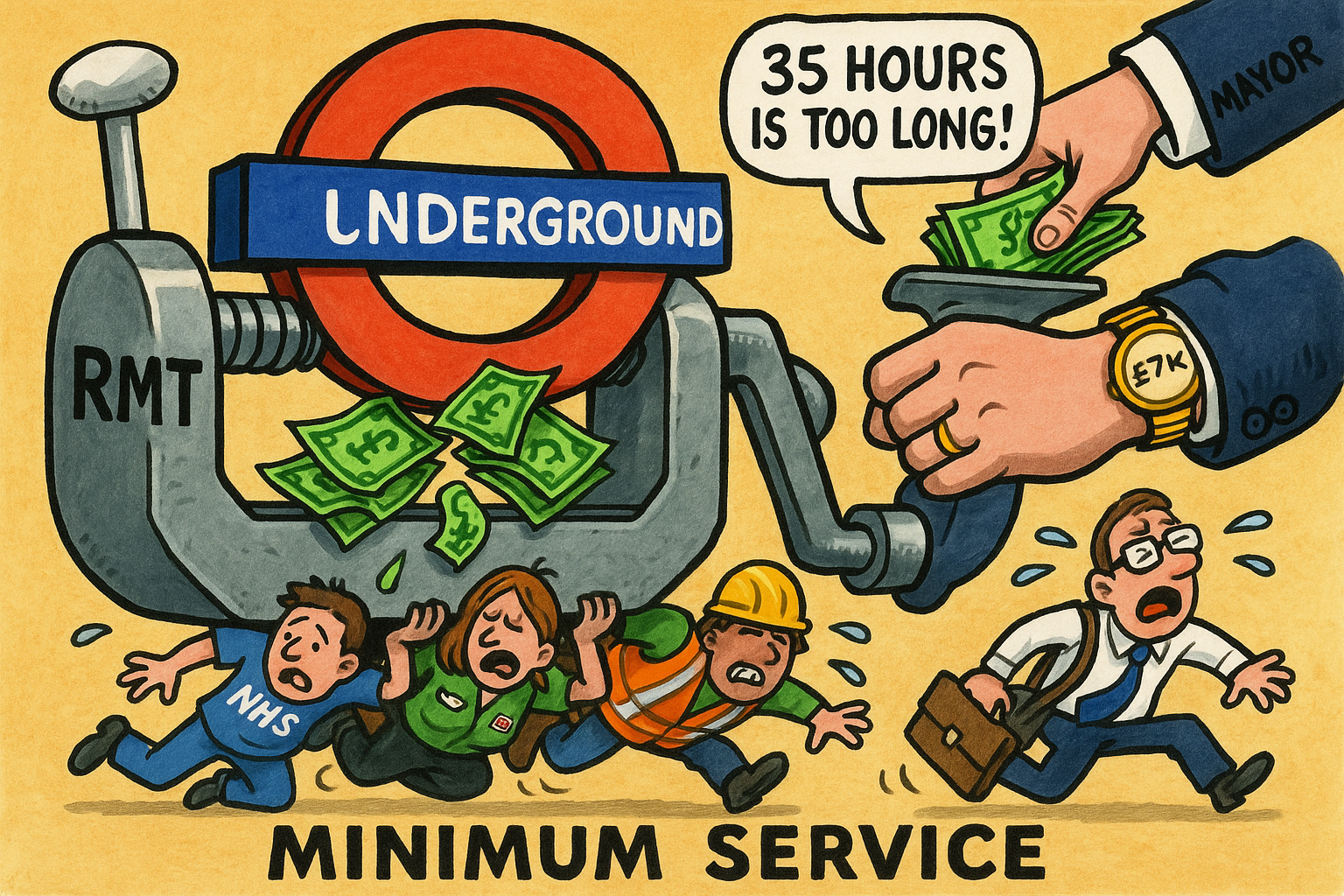
• via The Guardian
Labour's Welfare Betrayal: A Masterclass in Political Cowardice
London Transport's Paralysis Exposes Britain's Institutional Decay and Governance Failure
While millions of Londoners face another week of transport chaos, tube drivers earning £71,000 are demanding shorter working weeks. The capital's entire underground network will grind to a halt for four days because 57% of RMT members voted to strike over their 35-hour week being too long.
#politics #london #transport #rmt #strikes -

• via Sky News
The Immigration System That Exists Only On Paper
Exposing the Reality Behind Britain's Immigration System - A Story of Fraud, Failure, and Institutional Collapse
UK Government's immigration policies have created a system ripe for exploitation, where fraudulent practices thrive and genuine cases are overlooked. We expose the systemic failures that allow such abuses to occur, highlighting the human cost and the urgent need for reform.
#immigration #fraud #dependentvisas #homeoffice #publicservices -
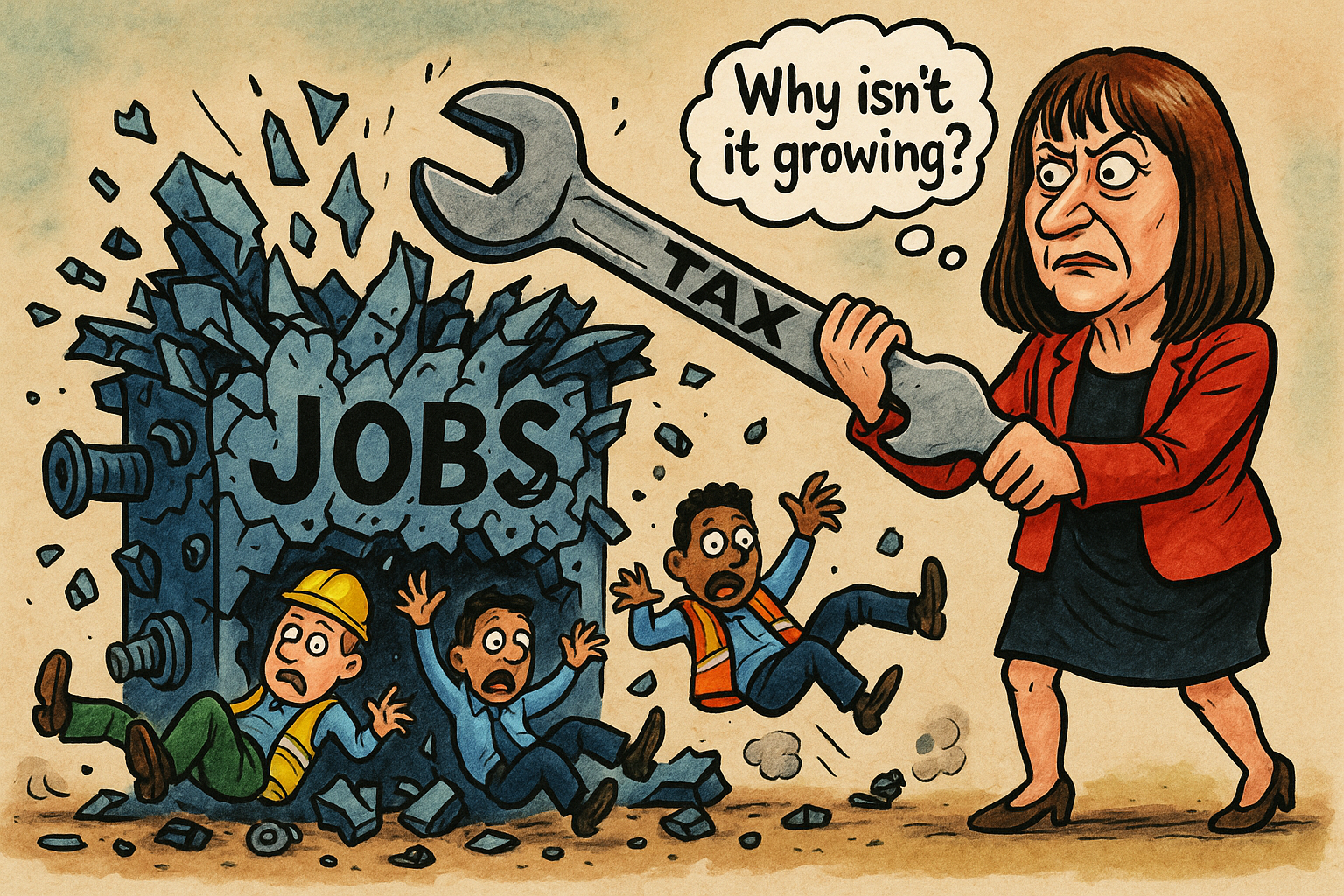
• via The Guardian
The Tax Death Spiral: How Britain's Government Destroyed Jobs While Promising Growth
Rachel Reeves Promised Growth but UK Businesses Cut Jobs at Fastest Pace in Four Years
The Bank of England's latest survey reveals UK businesses are cutting jobs at the fastest rate in four years, a direct consequence of Chancellor Rachel Reeves' £25bn employer National Insurance raid. Despite promises of economic growth, the government's policies are systematically destroying the productive capacity they claim to champion.
#ukeconomy #employment #taxation #bankofengland #rachelreeves -

• via The Independent
Britain's Broken Discourse: When Comedy Writers Become Security Risks
Freedom of Speech Under Siege in the UK
Graham Linehan's arrest highlights a troubling trend in the UK's approach to free speech and public discourse. As the state increasingly views dissenting opinions as threats, the implications for comedy, satire, and open dialogue become dire.
#freedomofspeech #censorship #comedy #policestate #cancelculture -
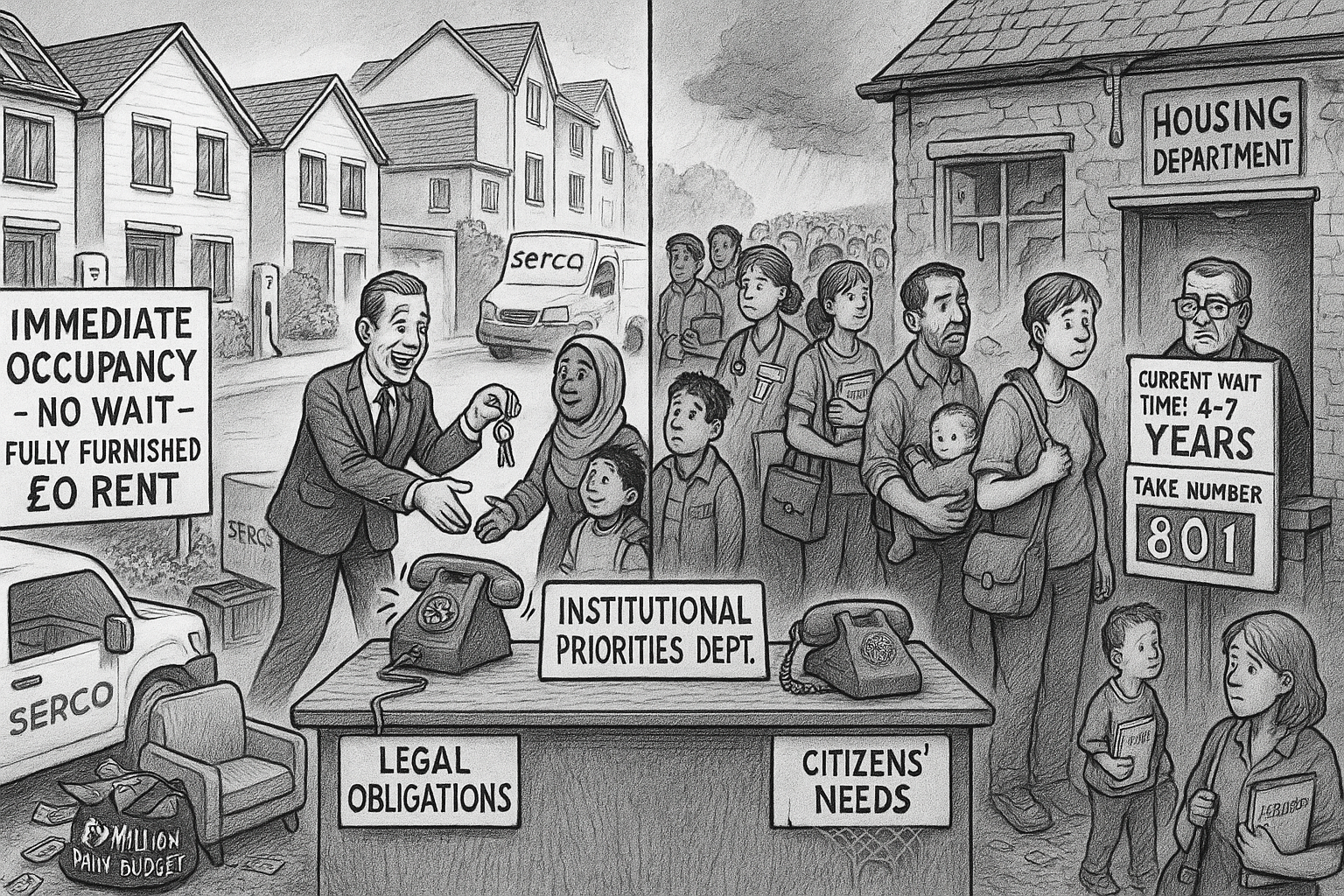
• via Daily Mail
Premium Housing for Asylum Seekers While Citizens Wait: The Suffolk Case Study in Institutional Priorities
A Tale of Two Housing Policies - Asylum Seekers vs. Local Citizens
While local citizens struggle to find adequate housing, asylum seekers in Suffolk are being provided with premium accommodations at the taxpayers' expense. This disparity highlights the urgent need for a reevaluation of housing policies to prioritize the needs of local communities.
#asylumseekers #housingpolicy #localcommunities #taxpayerfunding #socialjustice -
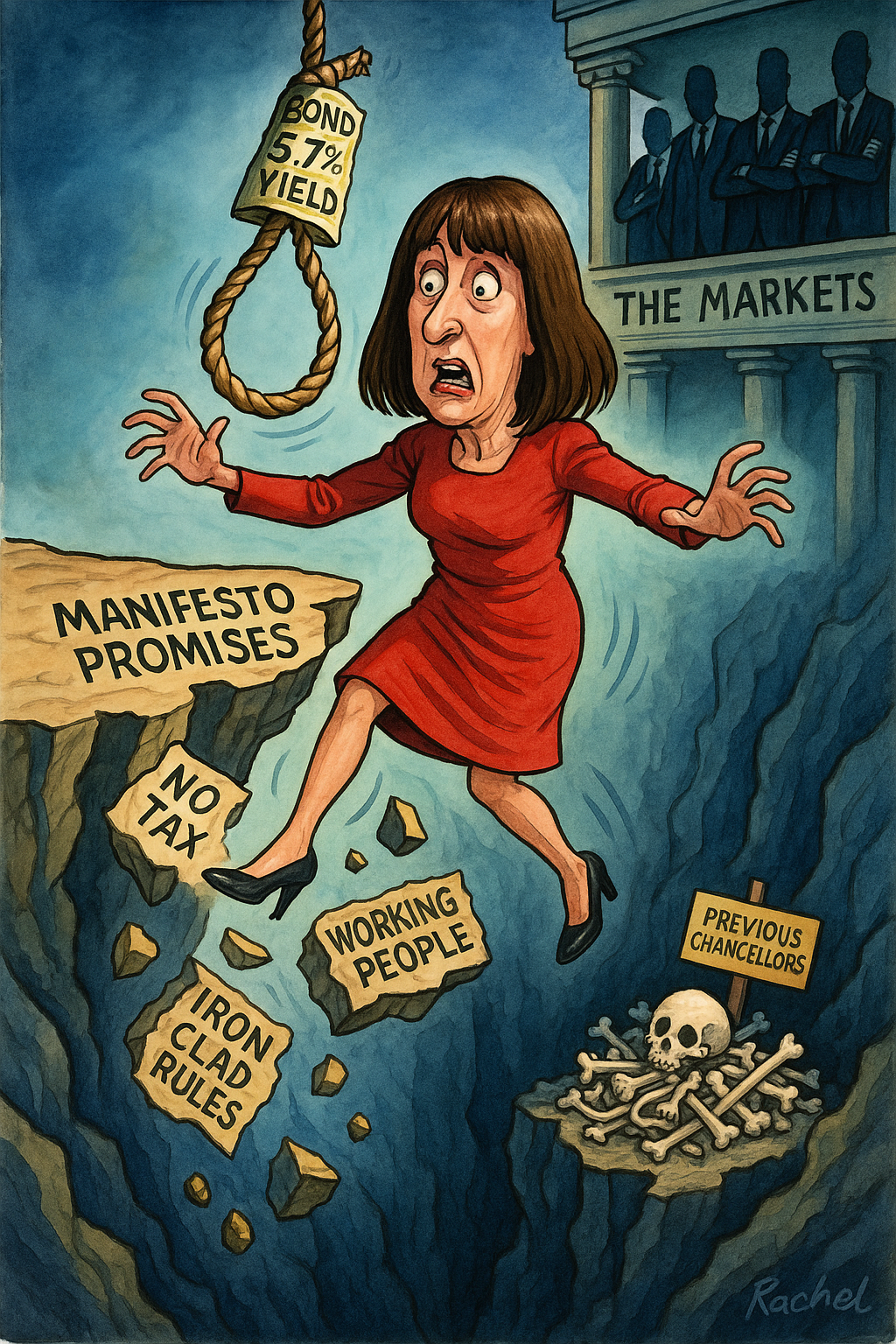
• via BBC News
The Fiscal Reckoning: When Electoral Promises Meet Economic Reality
The Cost of Political Ambition in the UK's Economic Strategy is Becoming Clear
As the UK grapples with soaring borrowing costs and fiscal pressures, the gap between political promises and economic realities has never been more pronounced. Rachel Reeves is now faced with the challenge of reconciling these conflicting demands. This analysis delves into the implications for Labour's agenda and the broader political landscape.
#ukpolitics #economicpolicy #publicfinance #labourparty #rachelreeves -
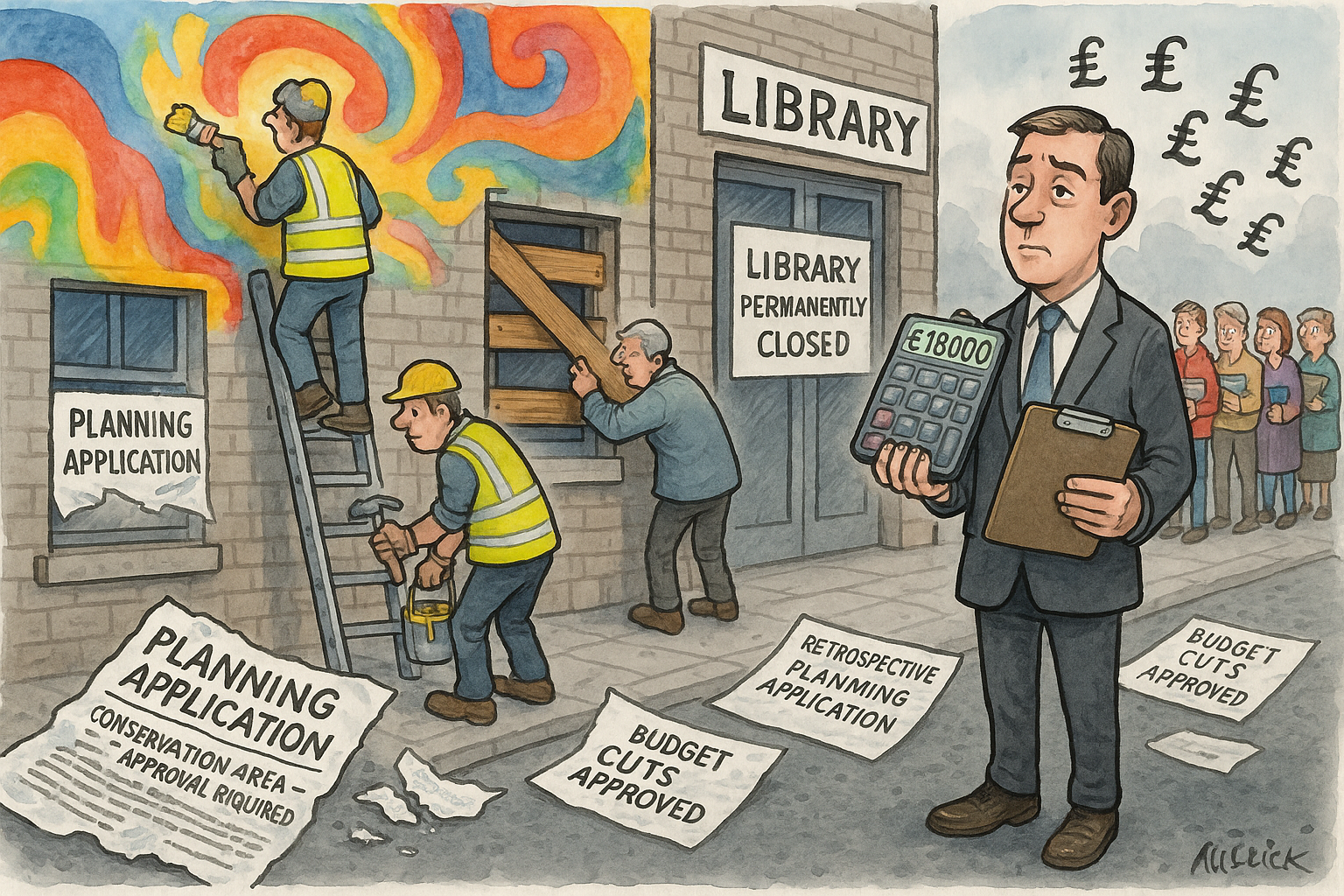
• via The Telegraph
When The Rule-Makers Break The Rules: Enfield's £18,000 Lesson in Local Government Dysfunction
Council spends £18,000 on mural while closing libraries
Enfield's £18,000 mural debacle highlights a troubling trend in local governance: the prioritization of aesthetics over essential services. As councils grapple with budget constraints, the choices they make reveal a disturbing disconnect from the needs of their communities.
#localgovernment #publicspending #communityservices #artsfunding #libraryclosures -
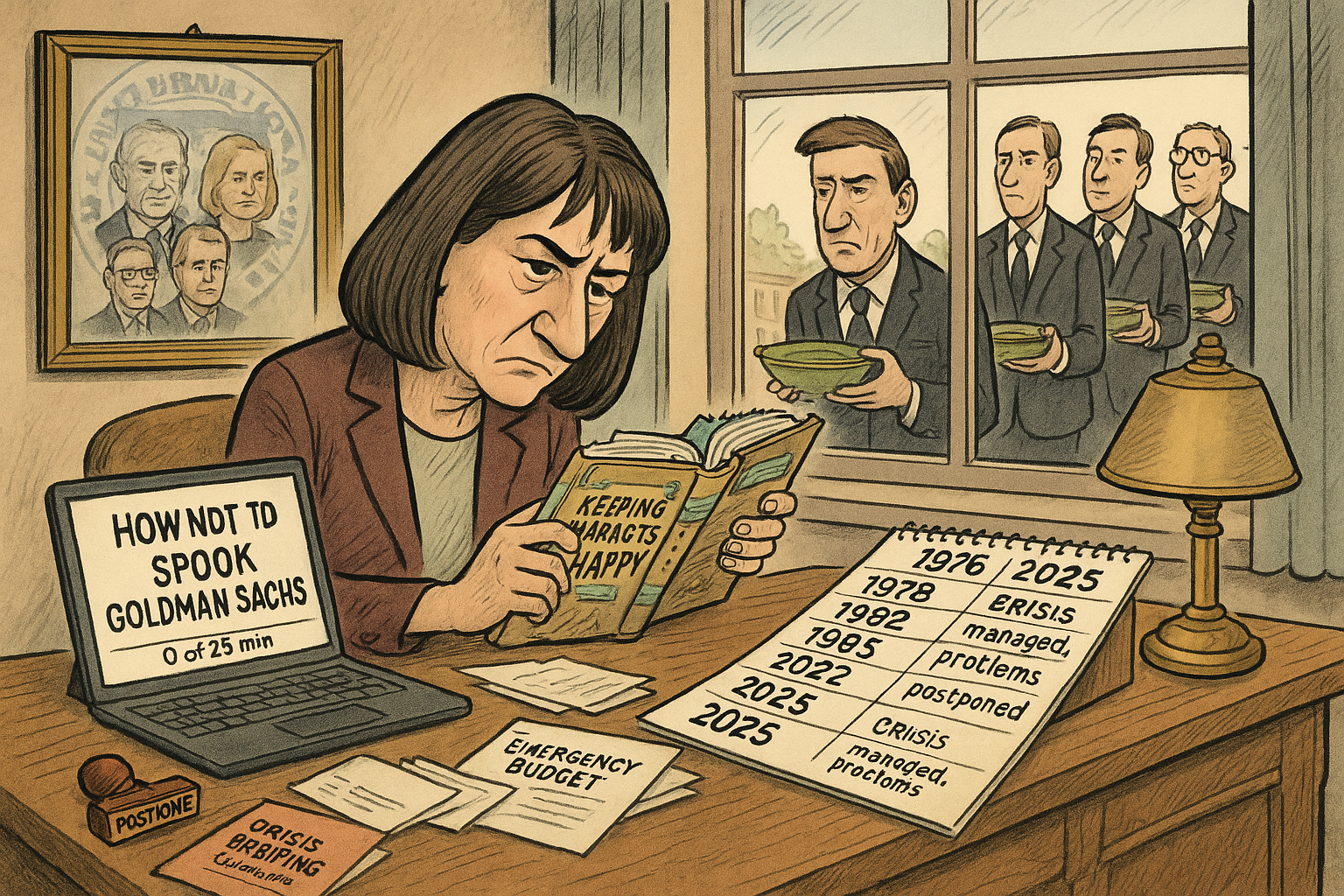
• via The Guardian
The Callaghan Echo: How Britain's Economic Reckoning Reveals Four Decades of Institutional Rot
A Deep Dive into the UK's Economic Challenges
Britain operates in permanent crisis management mode. Consider the timeline of compounding failures: 2008 financial crisis debt never properly addressed, Brexit economic damage papered over, COVID spending adding unsustainable obligations, Truss's 2022 mini-budget reminding everyone how fragile the whole edifice really is. When treasury officials brief ministers on placating markets before serving citizens, when chancellors design budgets for bond traders rather than voters, you don't need the IMF—you've already surrendered sovereignty, you're just negotiating the terms.
#economicpolicy #publicfinance #institutionalreform #crisismanagement #economicresilience -

• via The Telegraph
The Deputy Prime Minister's Three-Home Shell Game: A Masterclass in Legal Tax Avoidance
Angela Rayner's £40,000 Stamp Duty Dodge
Angela Rayner, the Deputy Prime Minister and Housing Secretary responsible for both council tax and election law, has orchestrated a property arrangement that saved her £40,000 in stamp duty while simultaneously ensuring taxpayers foot her London council tax bill.
#politics #taxavoidance #propertytax #stampduty #labourparty -

• via The Guardian
Energy Bills Rise Again While Politicians Play Blame Games
The New Normal for British Households
British households will pay £1,755 for energy from October - another increase sold as modest while families sink deeper into debt. The 2% rise announced by Ofgem marks the institutionalization of what was once called a "crisis" but is now simply the new normal for a country that cannot deliver basic affordable energy to its citizens.
#energycrisis #costofliving #ukpolitics #householddebt #energypolicy -
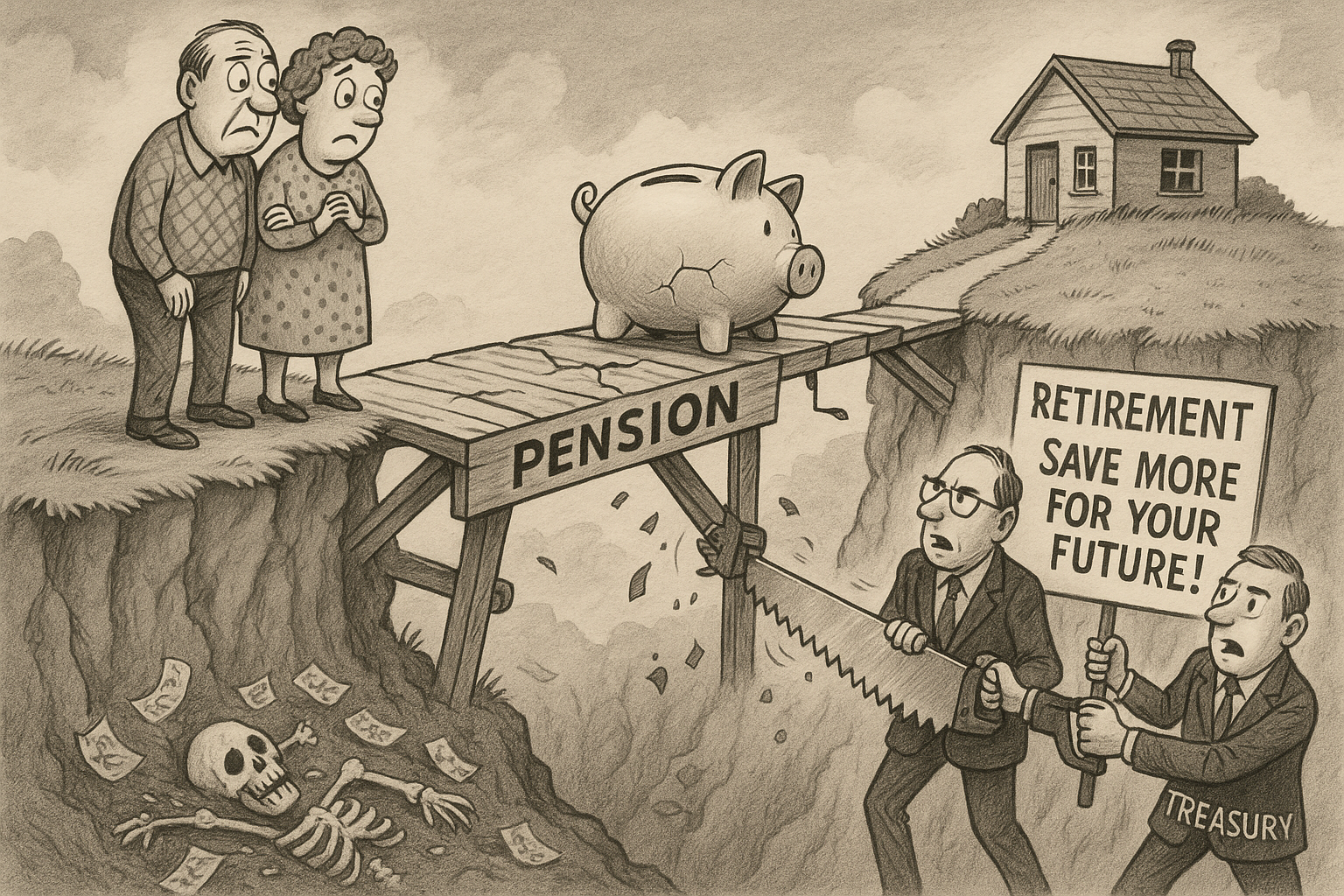
• via The Telegraph
The Middle-Class Pension Trap: How Labour's Tax Raid Exposes Britain's Broken Social Contract
How Labour's Tax Policies Are Failing the Middle Class
Labour's tax policies are increasingly burdening the middle class, with new measures set to hit ordinary families hard. Despite promises to support working people, the reality is that many will face higher taxes and reduced benefits, all while the government fails to address the root causes of economic inequality.
#politics #labourparty #taxpolicy #inheritancetax #pensionpolicy -

• via The Telegraph
The Arithmetic of Decline: How Britain Built a System That Punishes Work
Understanding the Economic Incentives at Play
While Westminster debates growth strategies and productivity puzzles, the actual mathematics of British life reveals something more fundamental: the UK has constructed an economic system where working full-time is barely more rewarding than not working at all. The Telegraph's analysis lays bare what happens when a society systematically rewards dependency over contribution.
#economicpolicy #socialwelfare #workincentives #universalcredit #middle-classstruggles -

• via BBC News
Britain Scraps Its Space Agency While the Rest of the World Builds Theirs
The UK Just Reversed 15 Years of Space Progress to Save Pennies
The UK Space Agency was established in 2010 to foster growth in the space sector, but its recent dissolution marks a significant regression in the country's space ambitions.
#spacerace #spaceexploration #governmentpolicy #institutionaldecline #ukpolitics -

• via BBC News
The Great Croydon Book Dump: When Public Knowledge Becomes Pavement Litter
A Community's Loss, A Society's Shame
Council contractors in Croydon have been photographed dumping hundreds of library books onto the pavement outside the shuttered Broad Green Library, treating decades of accumulated knowledge like household rubbish. The mayor calls it "unacceptable" and promises action against the contractors. But the real story isn't about careless workers or damaged books. It's about what happens when a society stops valuing the infrastructure of literacy itself.
#croydon #libraries #publicservices #education #community -
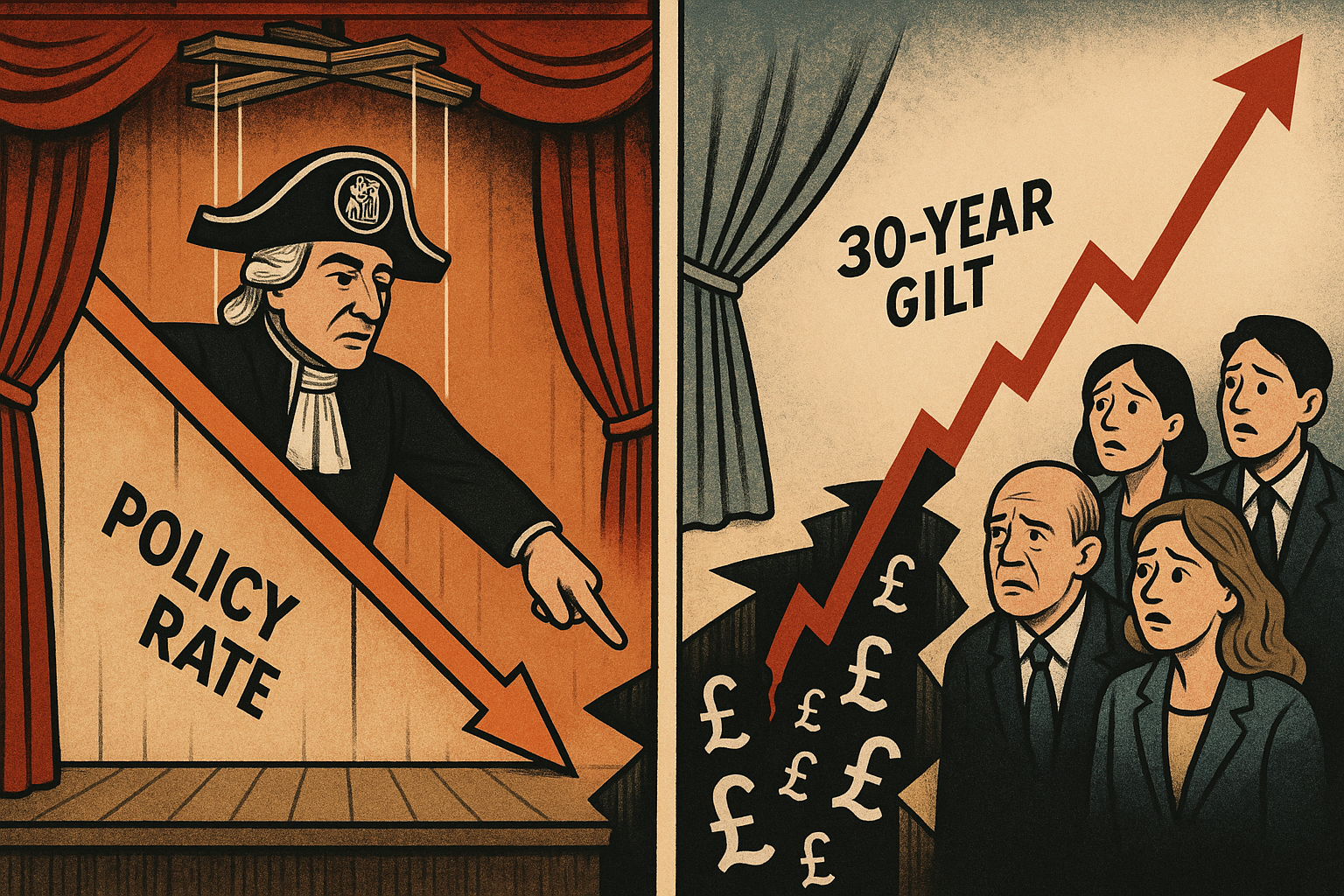
• via When the Facts Change
When Central Banks Stop Being Central: The Bank of England's Thursday Capitulation
The Bank of England's Independence Is Dead – Markets Know It, Even If Politicians Don't
Britain's central bank has lost its credibility, and the markets are reacting accordingly. The recent interest rate cut is a clear signal that the Bank of England is no longer the independent institution it once was.
#bankofengland #monetarypolicy #interestrates #economiccrisis #institutionalfailure -

• via The Independent
Delete Your Emails While We Build 6GW of AI Data Centers: Britain's Water Crisis Response Reaches Peak Absurdity
If you believe deleting emails saves water, wait until you see our AI plans.
While the Environment Agency asks Britons to delete old emails to save water, the government plans a threefold increase in AI data center capacity, consuming billions of litres annually. This contradiction highlights the systemic failures of British governance, where performative individual actions replace real infrastructure solutions.
#watercrisis #aidatacenters #environmentalpolicy #britishgovernance #infrastructure -
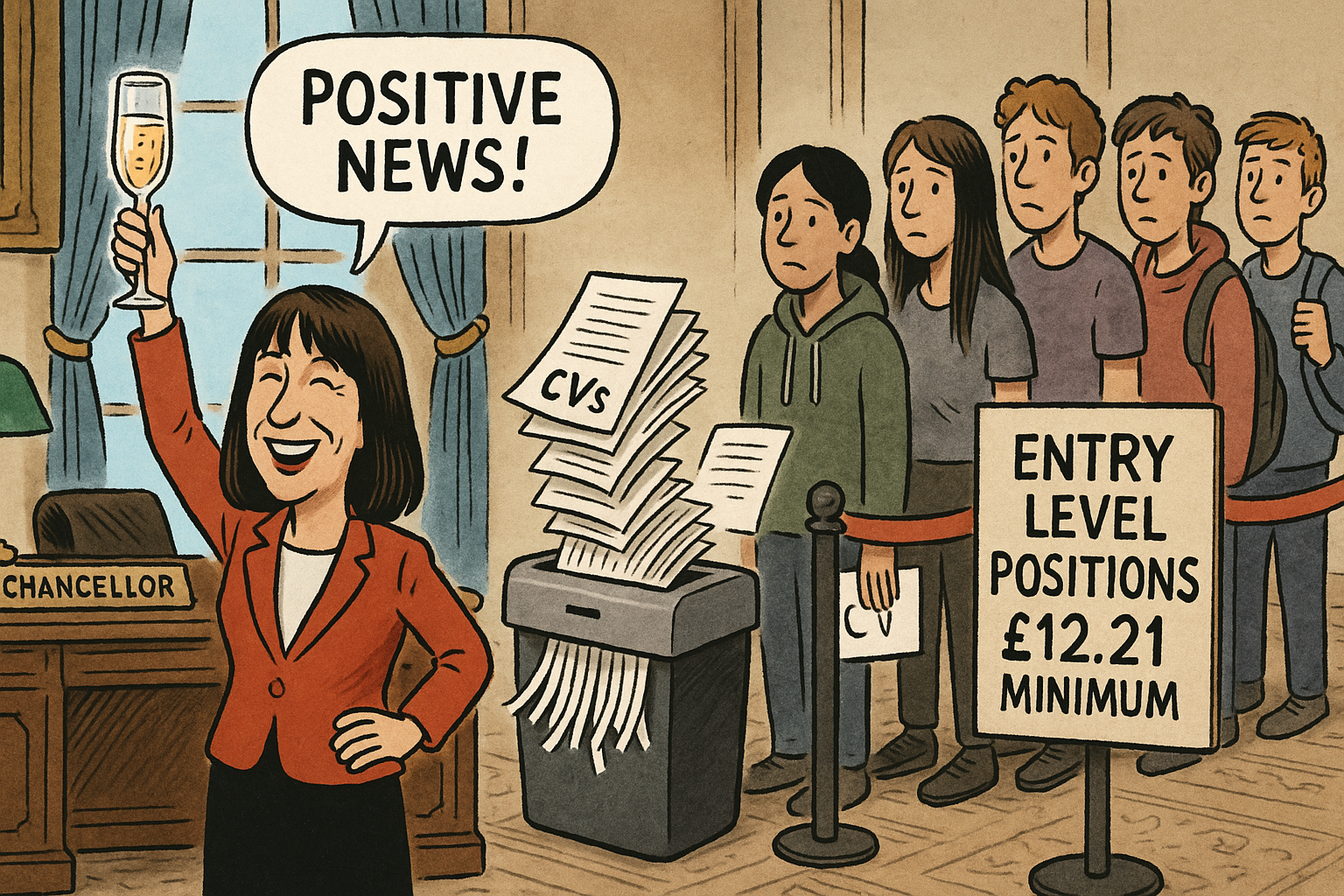
• via BBC News
The Jobs Market Reality Check: When "Positive News" Means 718,000 Fewer Opportunities
Suspicious Discrepancy Between Political Rhetoric and Economic Reality
While Chancellor Rachel Reeves claimed there was "really positive news" in Tuesday's jobs data, British employers eliminated another 8,000 positions last month and job vacancies collapsed to their lowest level since the pandemic lockdowns. This is what passes for economic success in modern Britain: unemployment stuck at a four-year high becomes an achievement worth celebrating.
#jobs #employment #economicpolicy #labourmarket #unemployment -
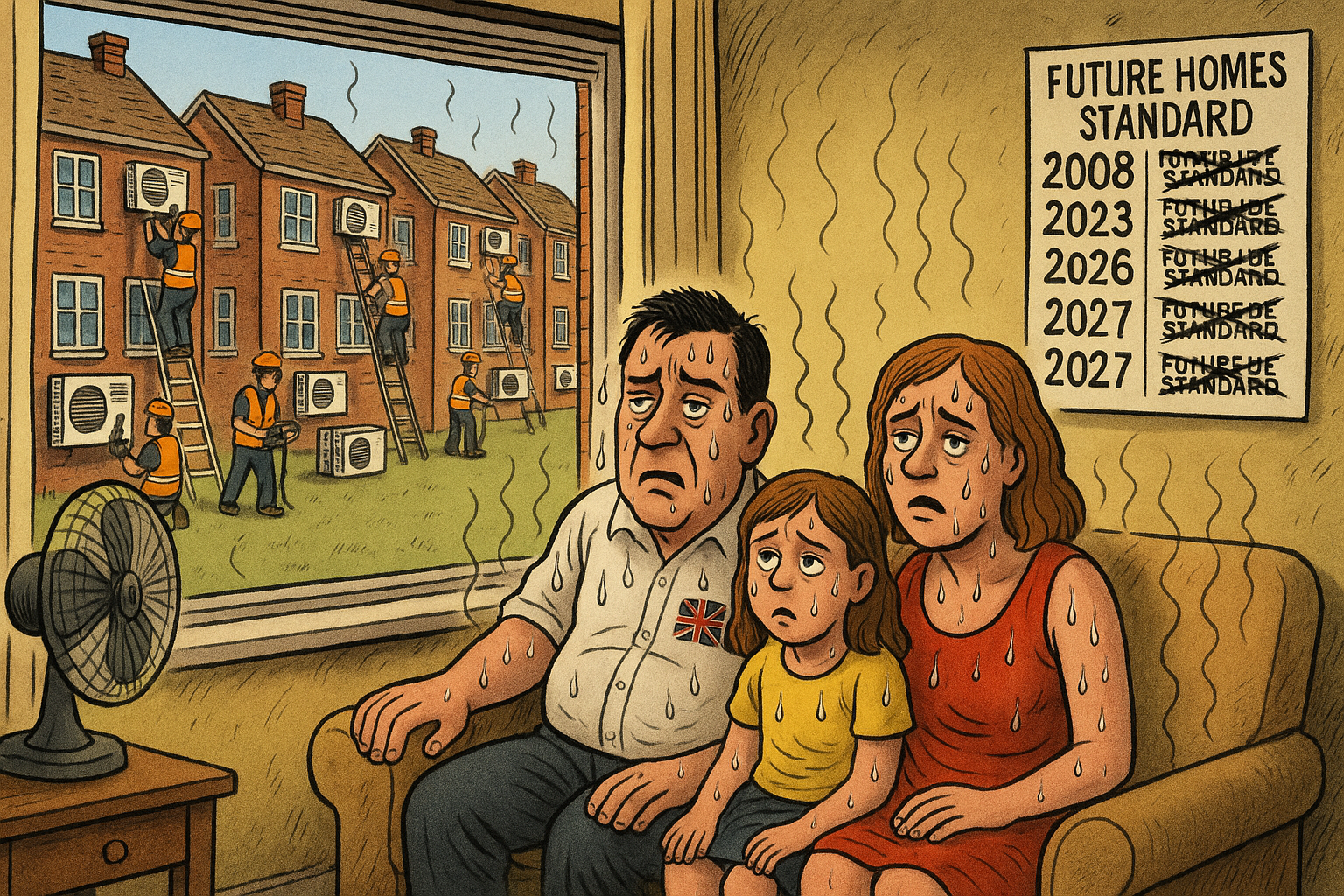
• via The Guardian
Twenty Years of Warnings, Zero Years of Action: How Britain's Housing Crisis Became a Climate Catastrophe
The heatwaves are here to stay, and so are the consequences of our inaction.
While ministers debate subsidizing air conditioning in 2025, the UK housing stock remains fundamentally unfit for the climate conditions we've already experienced. The 40°C temperatures that struck in 2022 weren't a distant possibility requiring decades of preparation—they were the arrival of a predicted reality that successive governments chose to ignore.
#housing #climatechange #governmentpolicy #urbanplanning #publichealth -
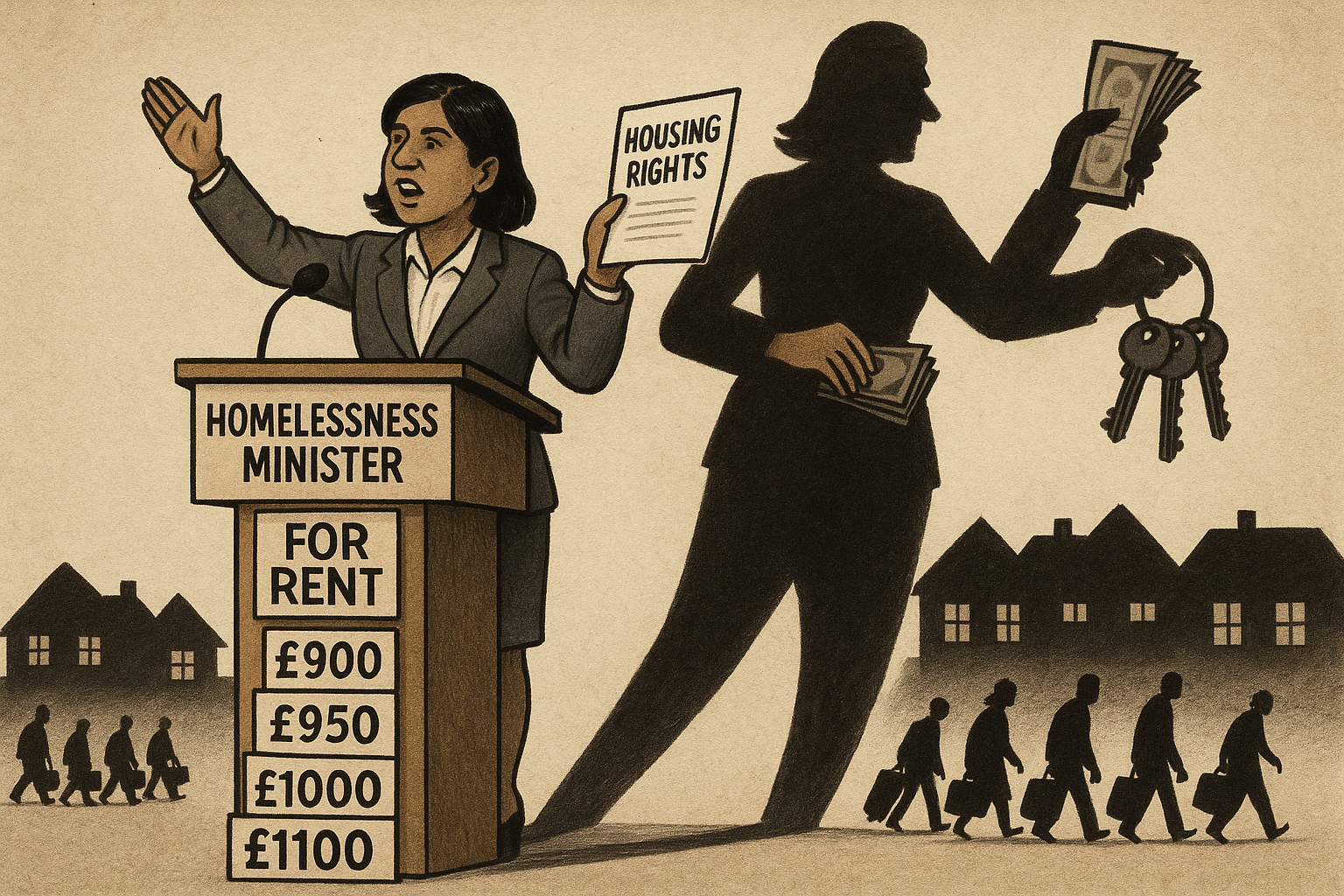
• via i Paper
The Homelessness Minister Who Creates Homelessness:
Rushanara Ali's Dual Role as Advocate and Landlord
While Labour's homelessness minister Rushanara Ali denounces "private renters being exploited" in Westminster, she simultaneously evicted four tenants from her East London townhouse to increase the rent by 21 percent. The same politician championing legislation to prevent "unreasonable rent increases" raised her own rental price from £3,300 to £4,000 per month - a £700 monthly increase that would cost new tenants an additional £8,400 annually.
#homelessness #housingpolicy #politicalhypocrisy #tenantrights #housingjustice -

• via The Telegraph
Labour's Housing Fantasy Meets Britain's Building Reality
How Labour's Housing Promises Are Failing Under the Weight of Reality
Labour's housing promises are collapsing under the weight of reality, with new home construction at its lowest in nearly a decade. Despite pledging 1.5 million new homes, actual building has fallen to 201,000—an 8% drop from last year and a 17% plunge from the 2022 peak. The government's housing targets are not just unrealistic; they are symptomatic of a deeper institutional decay that has left Britain unable to deliver even basic functions of a developed nation.
#politics #housingcrisis #labourparty #constructionindustry #socialhousing -
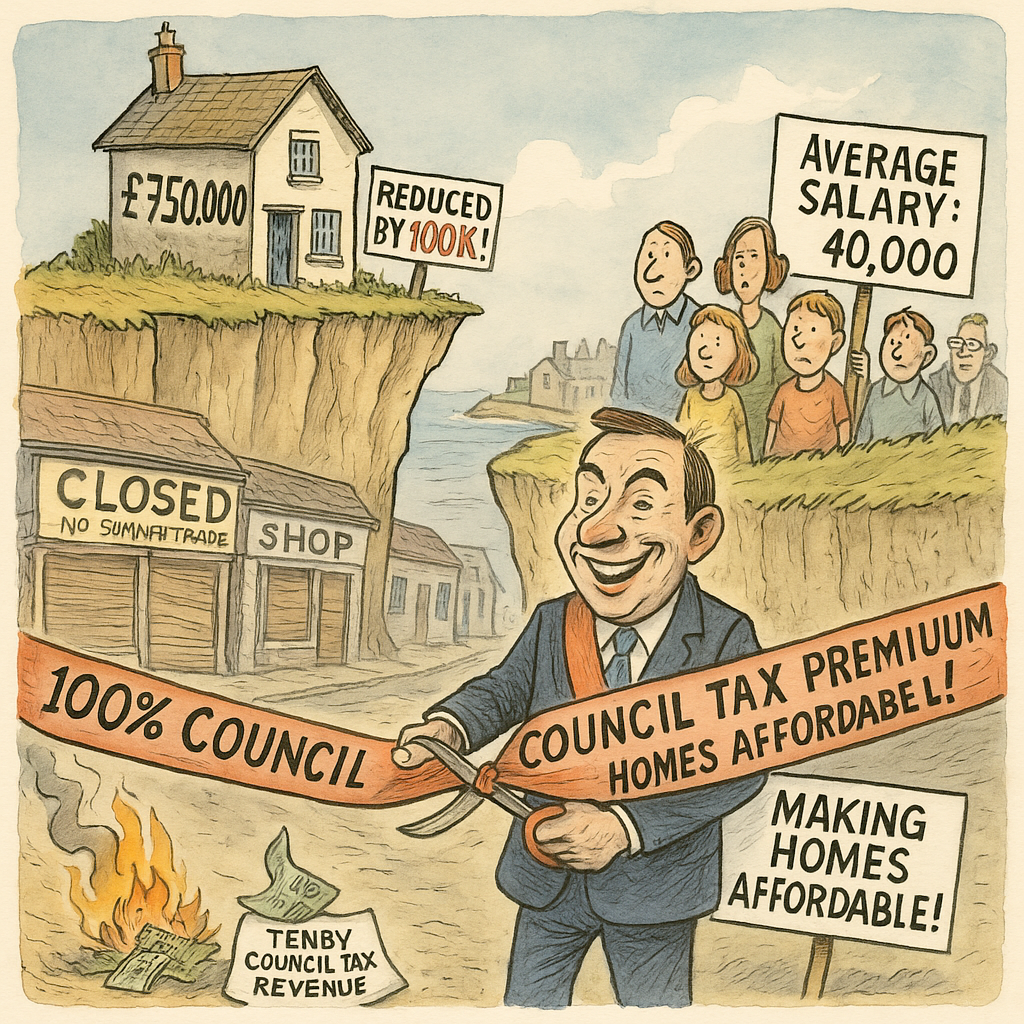
• via The Telegraph
Council Tax War on Second Homes Achieves Precisely Nothing
Punitive premiums create unsold properties, not local buyers
The government promised that punitive council tax premiums would free up homes for local buyers. Eight months later, the data reveals a textbook case of British policy failure: properties nobody wants, markets nobody can navigate, and communities bleeding economic vitality.
#housingpolicy #secondhomes #counciltax #economicimpact #localgovernance -
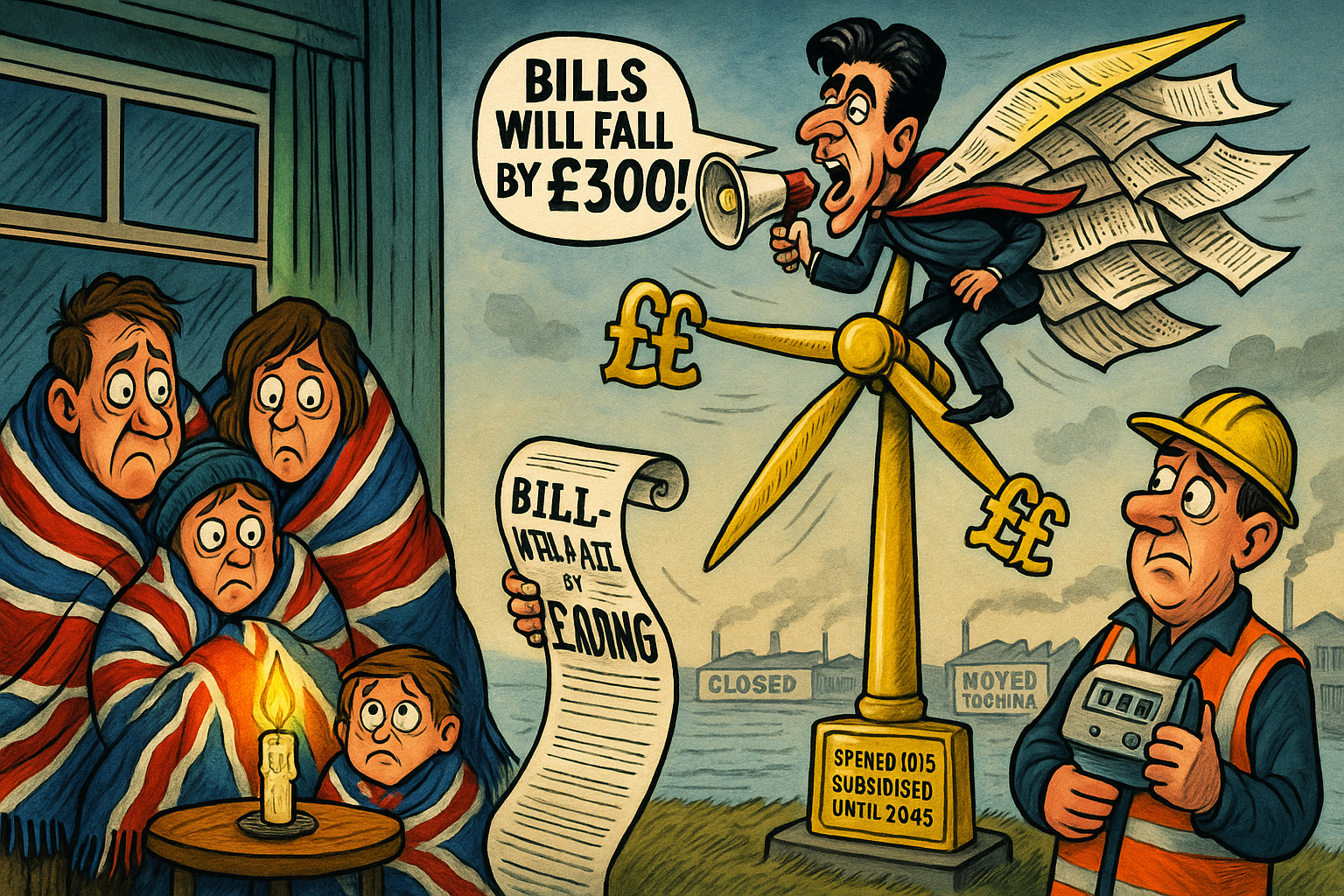
• via The Economist
The Green Dream Meets British Reality: How Net Zero Became a Bill Payer's Nightmare
The Cost of Political Ambition in the UK's Energy Strategy
Ed Miliband's promise of cheaper electricity by 2030 clashes with the reality of soaring energy costs. The UK's net zero strategy, once hailed as a model for the world, is now a cautionary tale of political ambition outpacing engineering reality. As households face bills 20% higher than European neighbours, the question remains: who will pay the price for this green dream turned nightmare?
#netzero #climatechange #renewableenergy #ukpolitics #windpower -
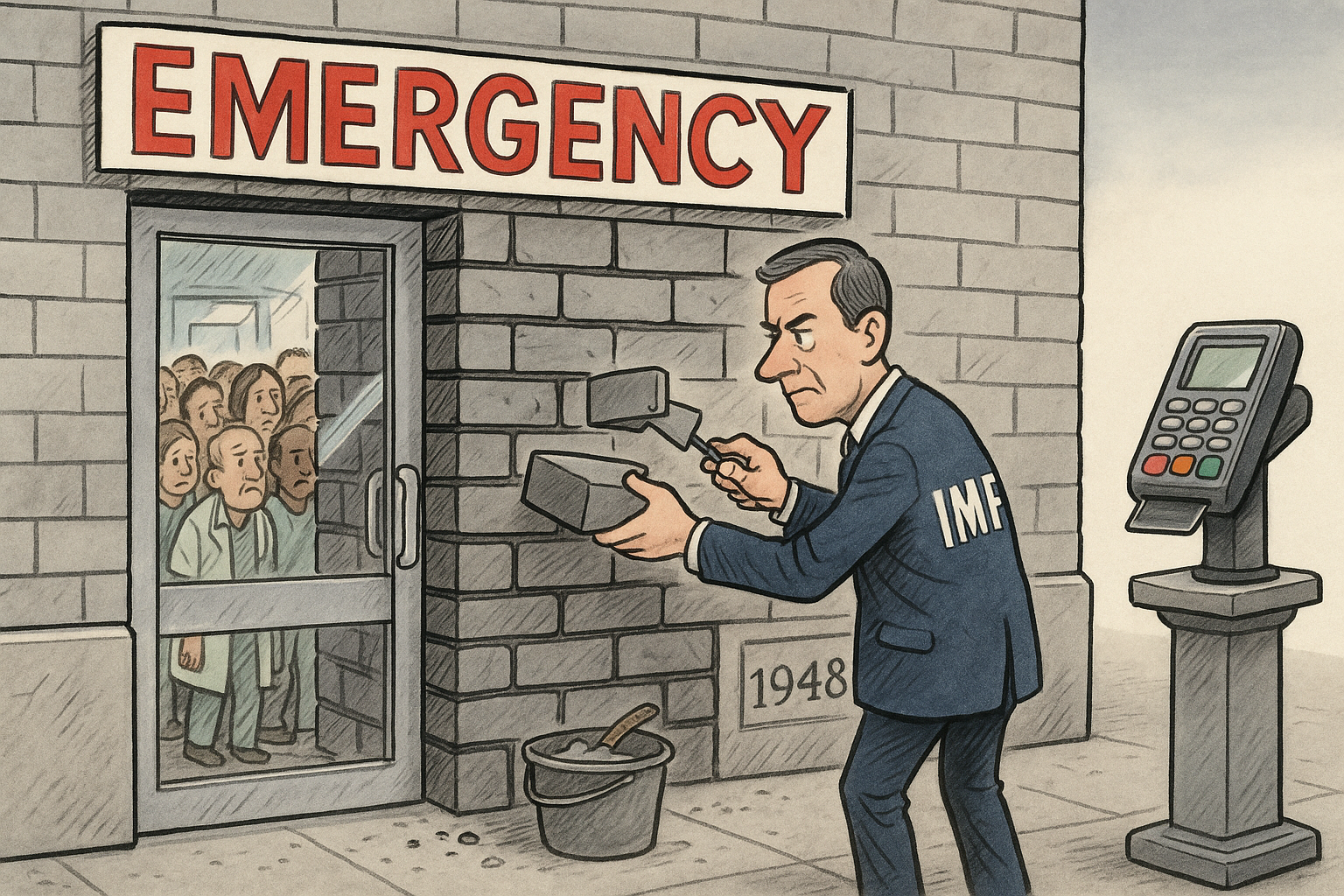
• via Financial Times
The End of the Social Contract: IMF Tells Britain to Start Charging for the NHS
When You Can't Afford Your Own Founding Principles, You're in Collapse
The IMF's recommendation to charge higher-income Britons for NHS access marks a fundamental shift in Britain's social contract. After decades of underfunding and mismanagement, the UK's founding principle of free healthcare is now deemed unaffordable. This isn't reform; it's surrender.
#nhsfunding #imfrecommendations #socialcontract #publichealthpolicy #economicmismanagement -

• via Politics Home
Gambling With Competence: How the Home Office Lost Control of Its Own Payment System
The ASPEN Card Gambling Scandal
The Home Office discovered 6,537 asylum seekers have been gambling with taxpayer-funded payment cards—but only after a journalist asked. For 12 months, government-issued ASPEN cards meant for food and essentials were used in casinos and betting shops while officials remained oblivious. This isn't about migration or morality. It's about a government department that can't implement payment controls any corner shop mastered decades ago.
#homeofficeincompetence #paymentsystemfailure #governmentwaste #aspencards #administrativecollapse -

• via The Standard
The £100,000 Trap: How Britain Built a System That Punishes Success
Only in Britain Earning £100,000 Makes You Poorer
The mathematics of modern Britain reveal a peculiar achievement: we've constructed a tax system where earning £99,999 leaves you better off than earning £149,000. This isn't a quirk or an oversight. It's the logical endpoint of a state apparatus that views productive citizens primarily as revenue sources to be squeezed, rather than assets to be cultivated.
#taxation #economy #inequality #publicpolicy #government -

• via BBC News
The Well Has Run Dry: Victorian Engineers Built 11 Reservoirs. We Can't Build One
Britain Can't Even Build Reservoirs Anymore
Yorkshire Water manages 120 reservoirs, most built by Victorian city corporations or in the post-war reconstruction era. Thruscross was constructed in the 1960s. Grimwith was expanded in 1982. Then, shortly after water privatization in 1989, construction simply stopped.
#yorkshirewater #ukinfrastructure #reservoirs #watersupply #climateadaptation -

• via The Guardian
The Sewage State: How England's Water Crisis Exposes Total Institutional Collapse
The UK's water crisis is a textbook case of how privatized monopolies plunder public goods
English water companies dumped raw sewage into rivers and seas at record-breaking levels in 2024, with serious pollution incidents surging 60% in a single year. While politicians promised a crackdown on water pollution, the reality is stark: 75 serious incidents poisoned waterways last year, up from 47 in 2023.
#watercrisis #environmentalpolicy #privatization #institutionalfailure #corporateaccountability -
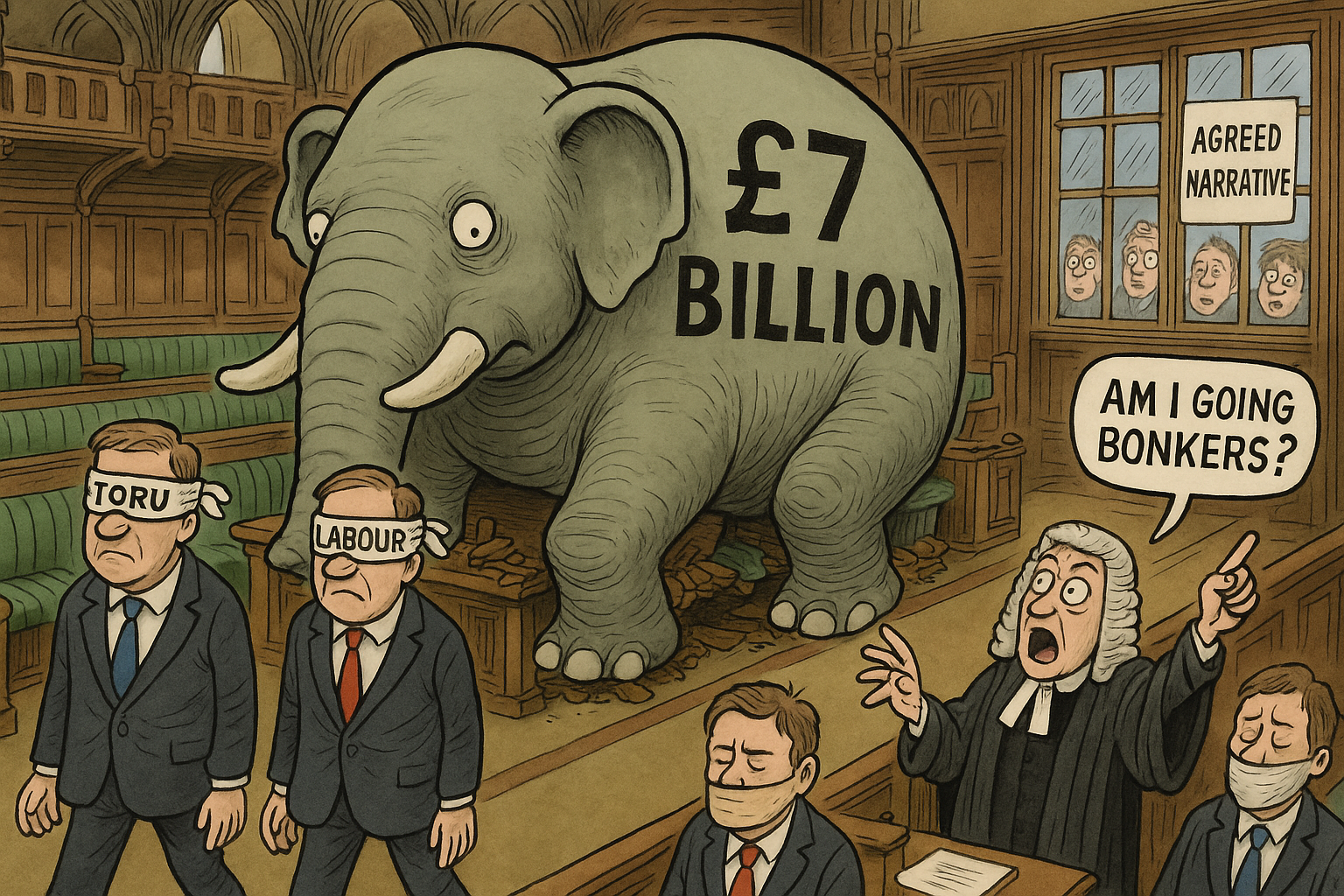
• via The Telegraph
The Death of Democratic Accountability: How Britain's Political Class United to Hide £7 Billion from Voters
683 Days of Deception, Two Governments, Zero Consequences
For 683 days, Britain's government used an unprecedented super-injunction to hide a £7 billion Afghan resettlement scheme from Parliament, media, and voters—threatening journalists with jail if they even mentioned its existence. This wasn't just Tory deception: Labour seamlessly continued the cover-up after taking power, with Defence Secretary John Healey admitting "political and reputational considerations" drove the conspiracy. When High Court judge Mr Justice Chamberlain discovered the scale of the deception, he asked "Am I going bonkers?"—not because he was confused, but because he was witnessing the death of democratic accountability in real time. The case proves that Britain's political class now views democracy as an inconvenience to be legally suppressed, with both major parties collaborating to actively deceive the public while spending billions in secret through general elections, facing zero consequences when eventually exposed.
#democraticaccountability #governmenttransparency #institutionalfailure #politicaldeception #judicialindependence -
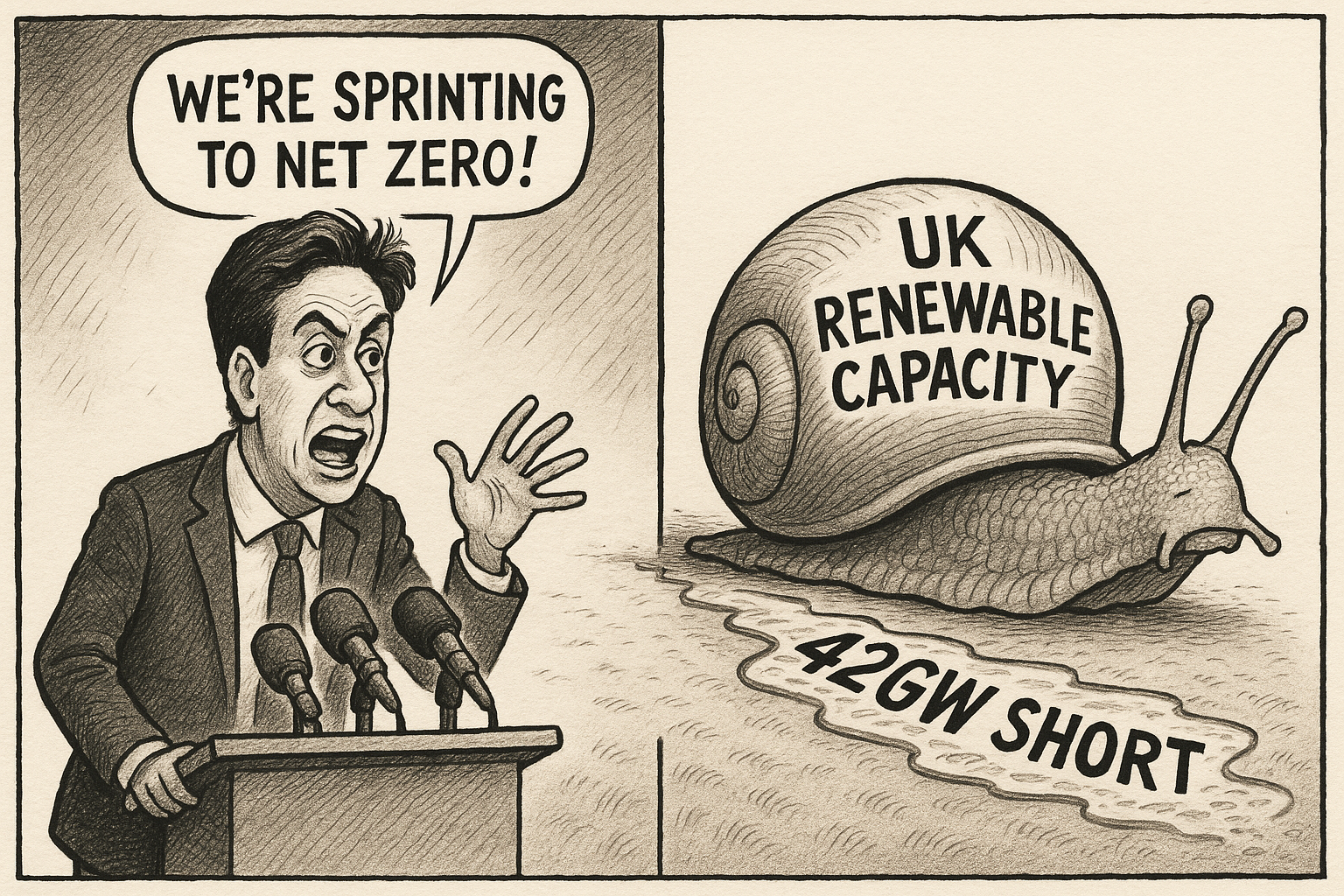
• via The Guardian
Another Net Zero Fantasy Collides With Reality
UK's Clean Electricity Targets in Jeopardy
While Ed Miliband claims to be "sprinting to clean power by 2030," his own government's energy system operator quietly admits Britain will produce almost a third more carbon emissions than needed to meet legally binding climate targets. The gap between ministerial rhetoric and measurable reality has become a chasm.
#netzero #climatechange #renewableenergy #ukpolitics #institutionalfailure -

• via BBC News
When "Technically Insolvent" Becomes Actually Broken: The SEND Crisis Consuming British Councils
How Bournemouth, Christchurch and Poole Council's SEND Debt Exposes Systemic Failures in British Governance
Bournemouth, Christchurch and Poole Council has declared itself "technically insolvent" due to special educational needs and disability (SEND) costs. The council faces a £171 million shortfall by March 2026. This isn't a future risk—it's a present reality masked by accounting tricks.
#send #localgovernment #insolvency #educationfunding #publicservices -
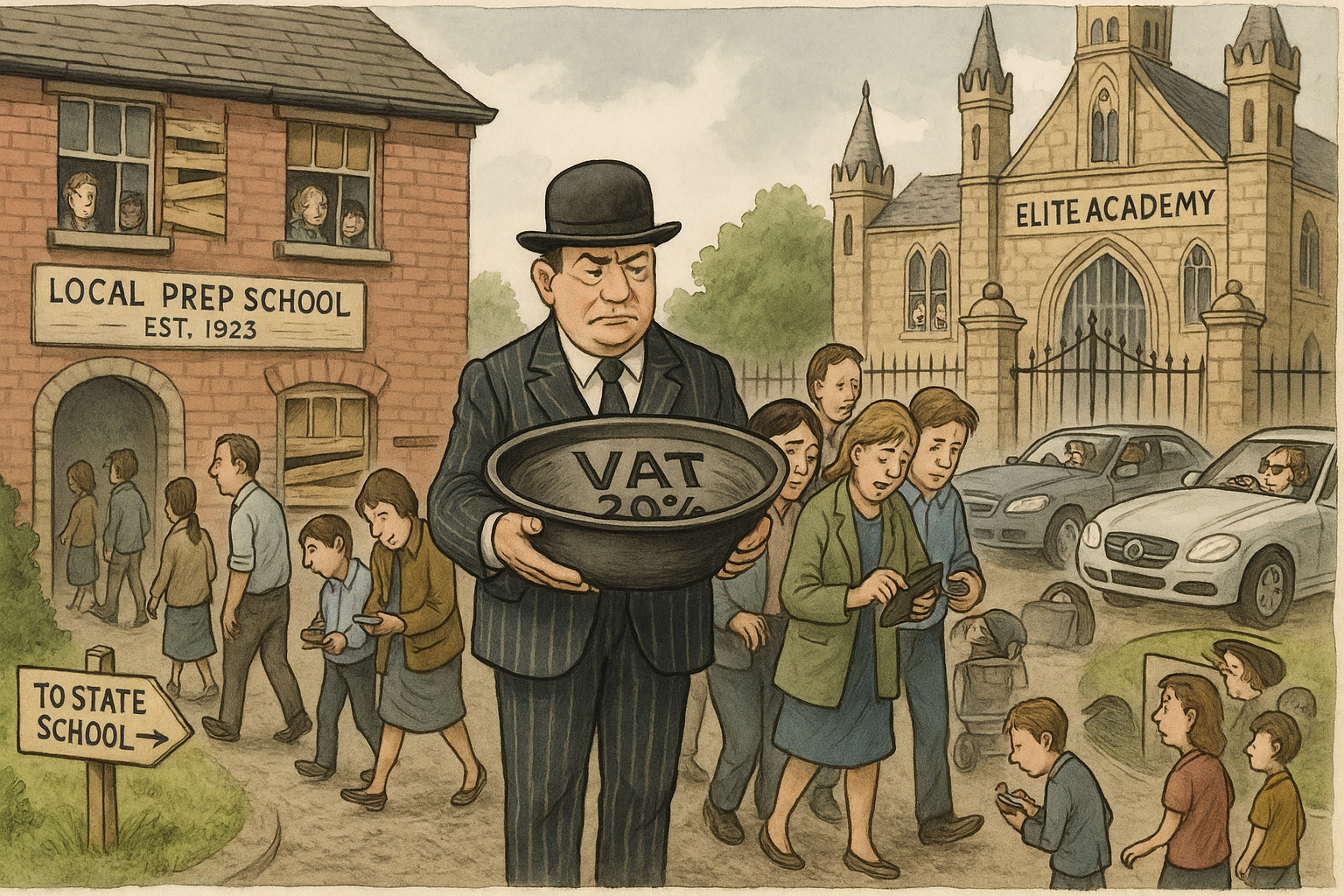
• via The Telegraph
The VAT Raid's Real Casualties: How Labour's Education Tax Destroyed Working Class Aspiration While Handing Millions to Eton
Analysis of Labour's VAT on private schools reveals a policy that has backfired spectacularly, harming the very families it claimed to help while enriching elite institutions.
Six months after Labour introduced VAT on private school fees, the evidence reveals a policy that has achieved the exact opposite of its stated aims. While politicians promised to fund 6,500 new state teachers by taxing elite institutions, the reality shows working class families priced out of education, state schools overwhelmed by displaced pupils, and Britain's most expensive schools claiming millions in VAT rebates.
#politics #education #taxation #policyanalysis #britishgovernance -

• via The Economist
The Asylum Delusion: How Britain's Political Class Abandoned Both Refugees and Voters
The Economist's Asylum Proposal
The Economist's proposal to "scrap the asylum system" represents the final capitulation of Western liberalism to its own failures. After decades of mismanaging migration policy, the establishment now proposes to abandon the 1951 Refugee Convention entirely—not to create something genuinely better, but to legitimise what they've already been doing: turning desperate people into political pawns while pretending to care about both human rights and border control.
#asylumpolicy #migration #institutionalfailure #humanrights #politicalhypocrisy -
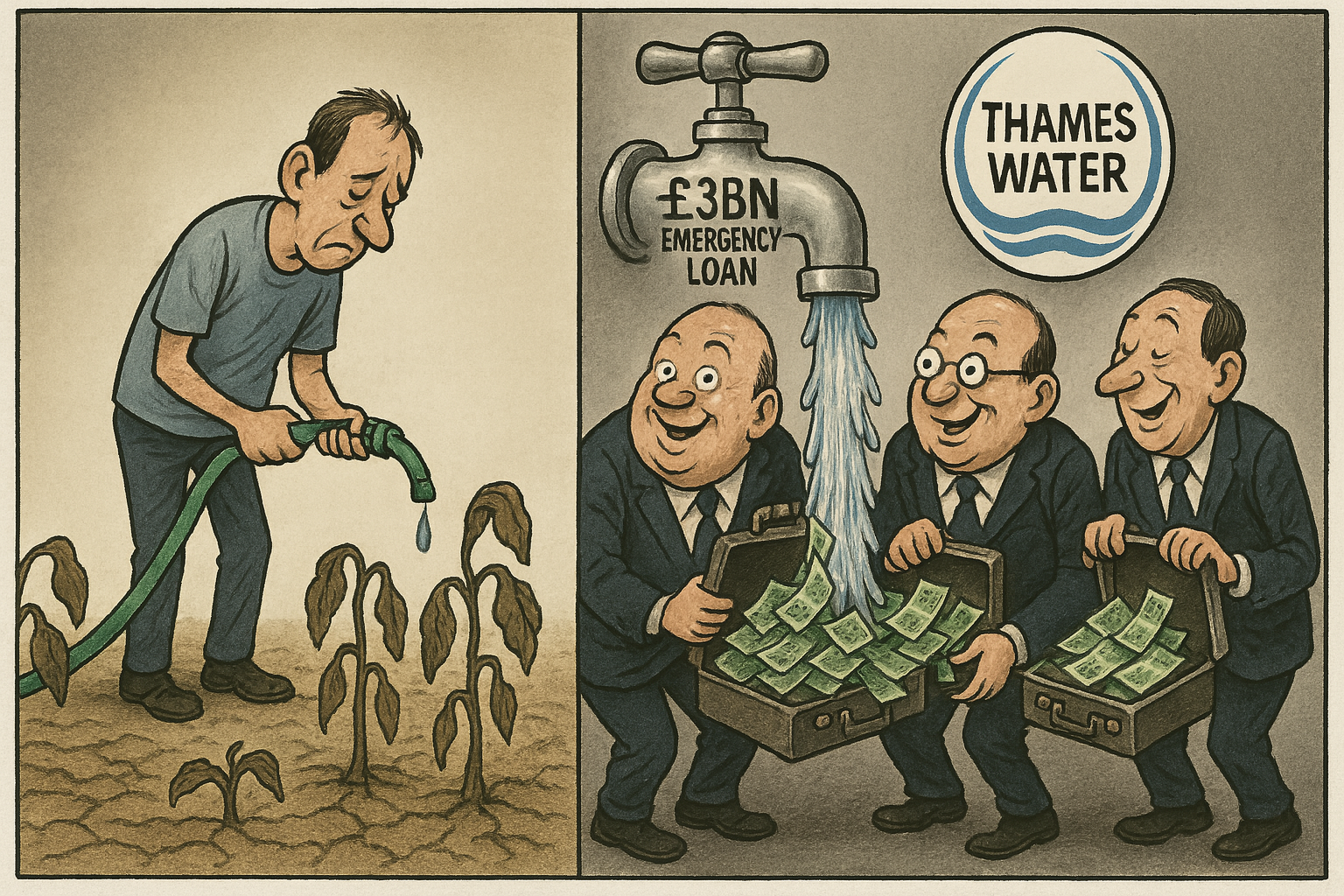
• via The Guardian
The Anatomy of Extraction: How Thames Water Turned Emergency Aid Into Executive Enrichment
Thames Water's executives pocketed £15.7m in bonuses while 16 million customers face hosepipe bans.
While 16 million customers face hosepipe bans this summer, Thames Water's executives have successfully converted a £3bn emergency lifeline into personal windfalls totaling £15.7m. The company that can't maintain water supplies during a shortage somehow found £2.46m to pay 21 managers in April—from funds meant to prevent corporate collapse.
#thameswater #ukwaterindustry #executivepay #regulatorycapture #infrastructurecrisis -
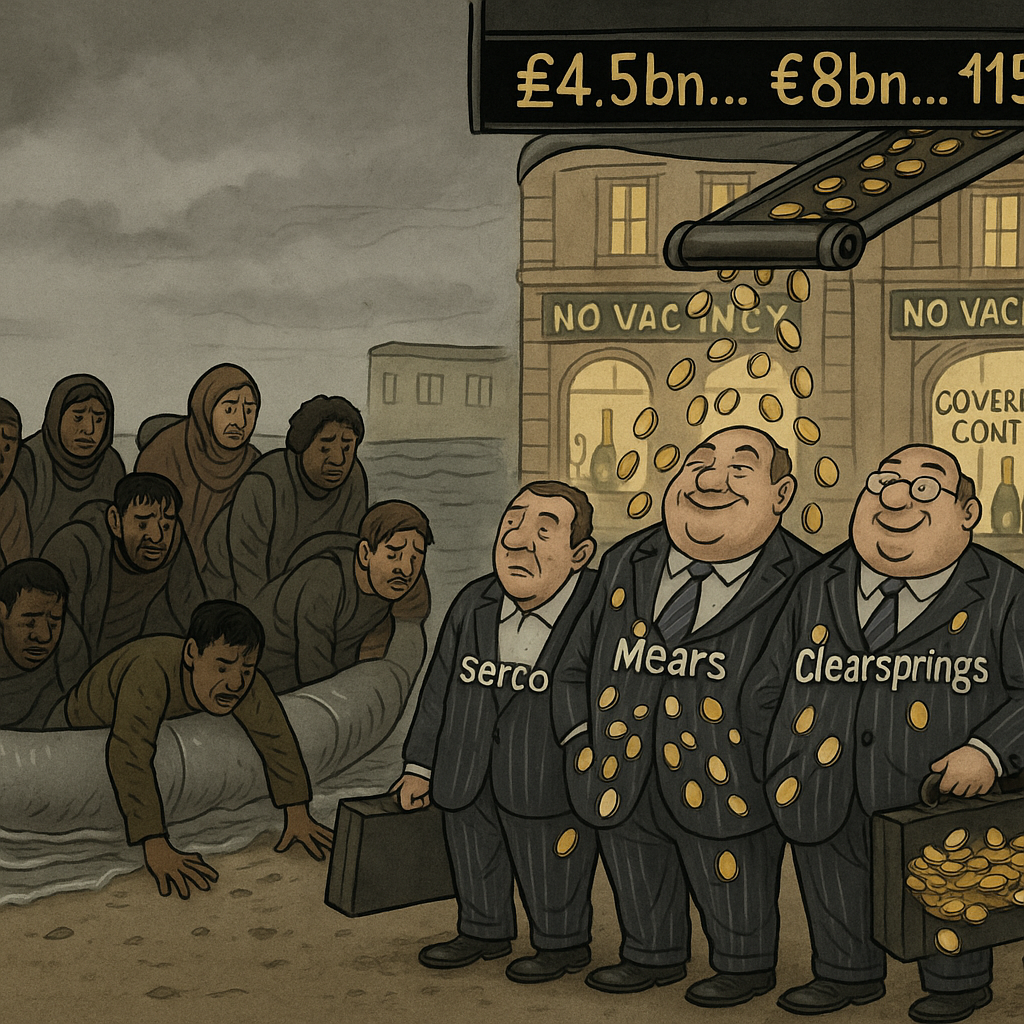
• via BBC News
Britain's Energy Crisis: A Policy Announcement or a Confession of Failure?
Asylum Accommodation Costs: A Cash Machine for Contractors
The National Audit Office has revealed what happens when political grandstanding meets contractual reality: asylum accommodation costs have exploded from £4.5 billion to £15.3 billion over ten years. This isn't a miscalculation—it's a masterclass in how modern Britain converts public crises into private profit.
#asylumpolicy #governmentaccountability #publicspending #privatecontracts #institutionalfailure -

• via The Guardian
The Foster Care Gold Rush: How Private Equity Profits from Britain's Most Vulnerable Children
Children as Commodities: The Dark Side of Foster Care Privatization
While politicians debate child welfare reforms, private equity firms have quietly transformed foster care into a £104 million profit machine. Almost a quarter of England's foster placements now exist primarily to generate returns for investment funds, with vulnerable children reduced to revenue units in sophisticated financial models.
#fostercare #privateequity #childwelfare #austerity #commodification -

• via The Guardian
Environment Secretary celebrates "significant progress" while sewage flows and Thames Water collapses
Labour's countryside comfort zone can't hide £96 billion in missing infrastructure investment
Steve Reed's appearance at Hertfordshire's Groundswell festival reveals the extraordinary disconnect between Labour's self-congratulation and Britain's accelerating institutional decay. While the Environment Secretary proclaimed "significant progress" from his hay bale podium, the nation's waterways continue to poison swimmers and Thames Water edges toward a collapse that will cost taxpayers billions.
#politics #environment #waterquality #labourparty #infrastructure -

• via The Critic
The UK's Surveillance State: When "World Leader" Means Showing Dictators How It's Done
The UK is no longer an "Open" country for free expression
While British politicians still invoke Churchill and speak of defending democracy worldwide, their own freedom rankings have quietly slipped below Romania and Nigeria. The UK has lost its status as an "Open" society for free expression—a designation it held since measurements began—and now pioneers surveillance techniques that authoritarian regimes watch with interest.
#surveillance #freeexpression #democracy #authoritarianism #ukpolitics -

• via The Spectator
The Takeover Doctrine: How Britain's Elites Surrendered National Identity
Britain's Governing Class Agrees To Its Own Dissolution
While politicians debate immigration statistics, a more fundamental shift has occurred: Britain's institutional class has actively endorsed the principle that the nation belongs more to recent arrivals than to those whose families built it over centuries. The evidence isn't hidden in policy documents or parliamentary debates. It's proclaimed from festival stages and broadcast across social media with institutional approval.
#britain #society #demographics #history #commentary -
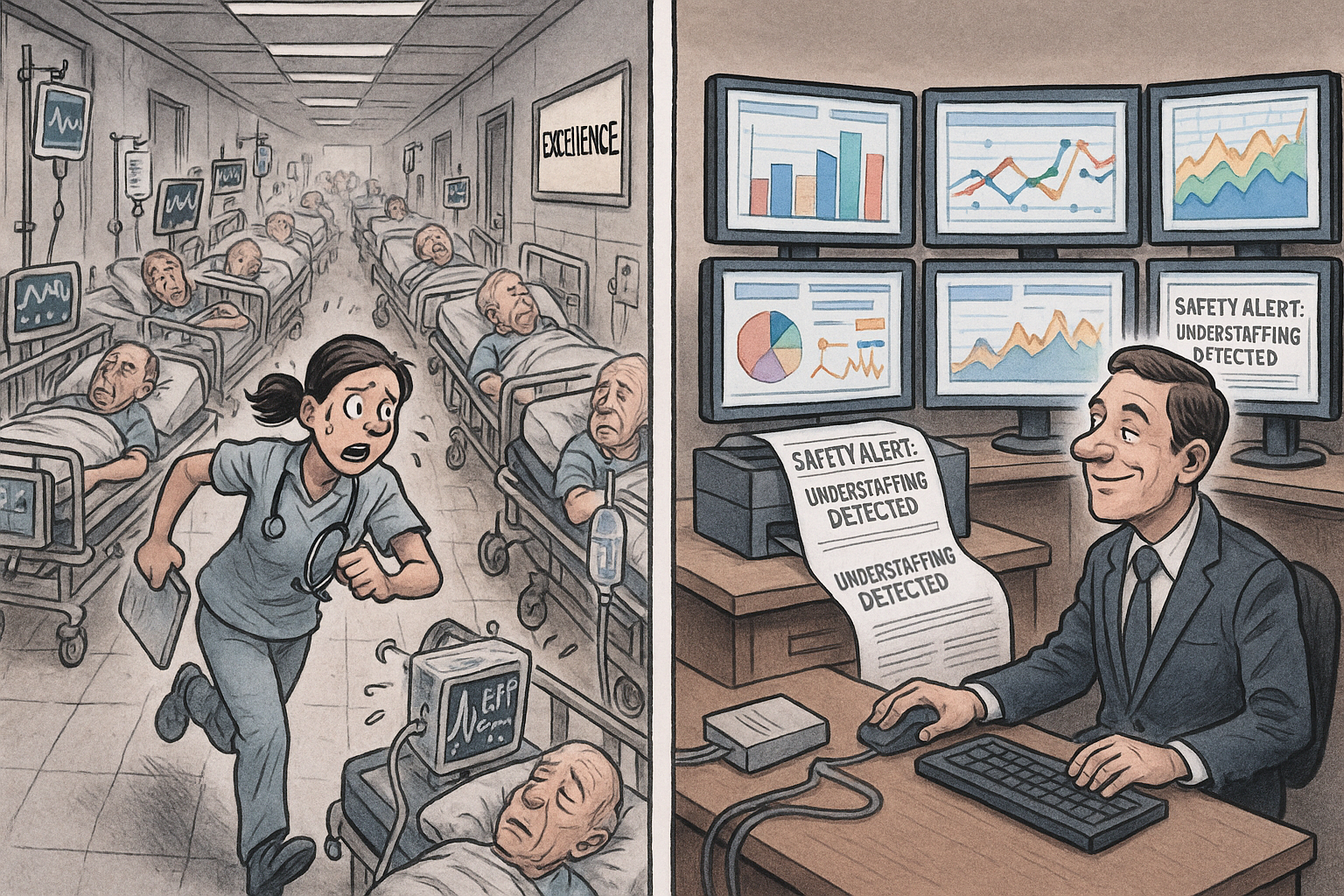
• via The Independent
When Prevention Becomes Performance: The NHS AI Alarm System
Monitoring Failures Instead of Fixing Them
The NHS announced an AI system to detect patient safety scandals early, following murders by nurse Lucy Letby and 1,200 deaths at Mid Staffordshire Hospital. While positioned as preventive innovation, the technology monitors failures rather than addressing their root cause: chronic understaffing that leaves single nurses caring for 15+ patients. This represents classic institutional decline - sophisticated failure detection replacing basic competence in prevention.
#nhs #ai #healthcare #patientsafety #institutionalfailure -
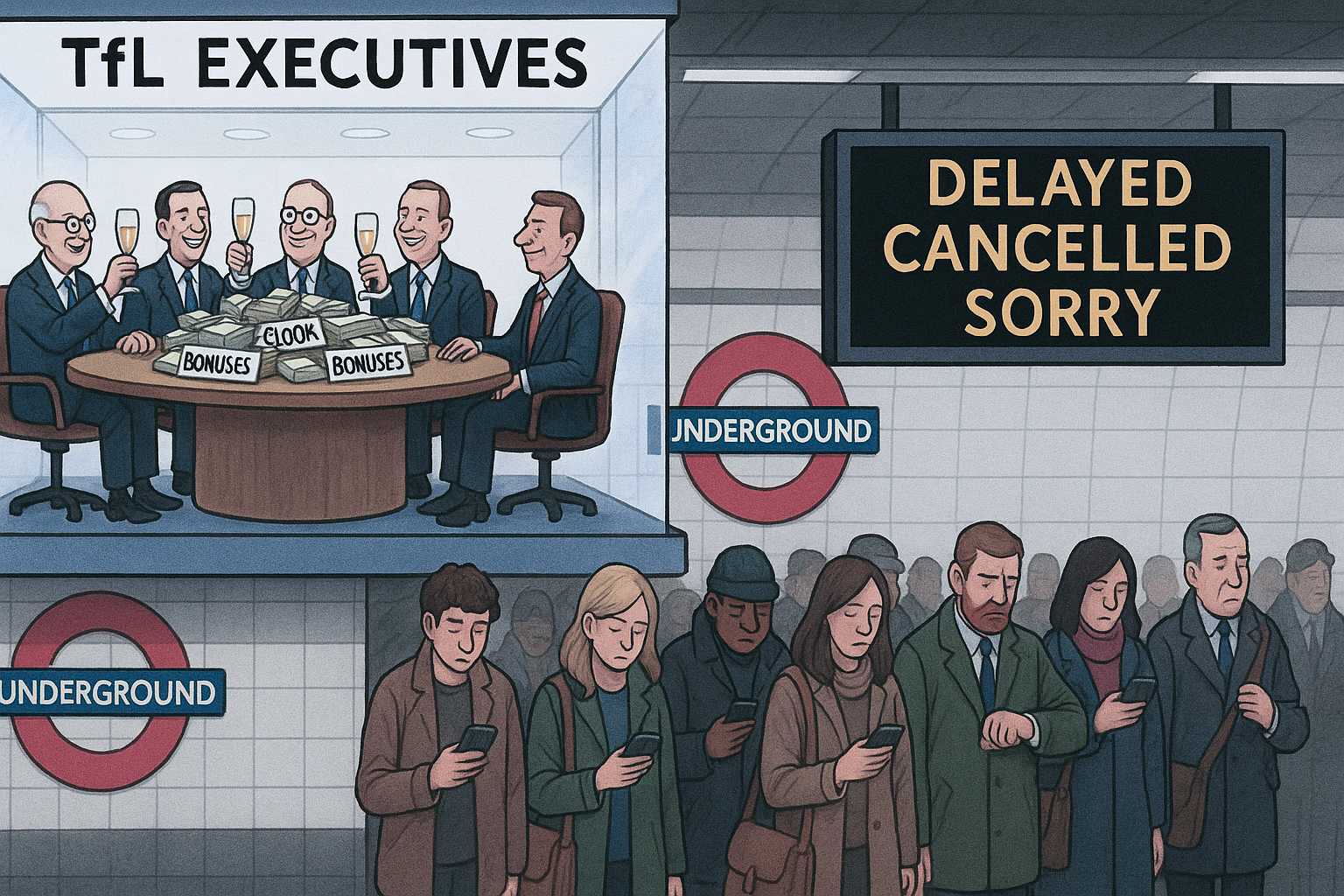
• via The Standard
When Failure Pays: TfL's Bonus Culture Reveals the Mechanics of Institutional Decay
How Transport for London's executive pay themselves while services decline
Transport for London handed out £639,164 to its chief executive while trains ran late, passenger targets went unmet, and cyber attacks left children unable to access discounted fares. This isn't administrative incompetence—it's how Britain's public institutions now function by design.
#tfl #transportforlondon #bonuses #publicsector #institutionaldecay -

• via The Guardian
The Stealth Tax Spiral: How Labour's Promises Collided With Reality
Rachel Reeves' Fiscal U-Turn and the Rise of Britain's Stealth Tax State
Britain's fiscal theatrics have reached a predictable crescendo. Rachel Reeves, having spent months insisting Labour would not raise taxes after their election victory, now finds herself eyeing the most regressive stealth tax available: freezing income tax thresholds to drag more workers into higher tax brackets.
#politics #economy #taxation #labourparty #rachelreeves -

• via The Independent
Labour's Welfare Betrayal: A Masterclass in Political Cowardice
How Labour's Two-Tier Welfare System Betrays Future Disabled People
Labour has engineered a welfare betrayal that perfectly exemplifies British political decay: faced with rebellion from 120 MPs over cuts to disability benefits, ministers created a two-tier system that protects existing claimants while slashing support for future disabled people by nearly 50%. This temporal discrimination ensures current voters keep their benefits while anyone requiring support after 2026 faces dramatically reduced payments—transforming the welfare state from social insurance into an electoral protection racket that sacrifices future claimants to preserve immediate political survival.
#politics #welfare #labourparty #disabilityrights #universalcredit -

• via BBC News
UK Riots Taskforce: Another Commission to Study What Everyone Already Knows
Why Politicians Prefer Talking Shops Over Real Solutions
Britain launches yet another talking shop to examine why communities that have been systematically neglected for decades occasionally explode into violence.
#ukriots #governmentaccountability #communitycohesion #politicalinaction #systemicfailure -
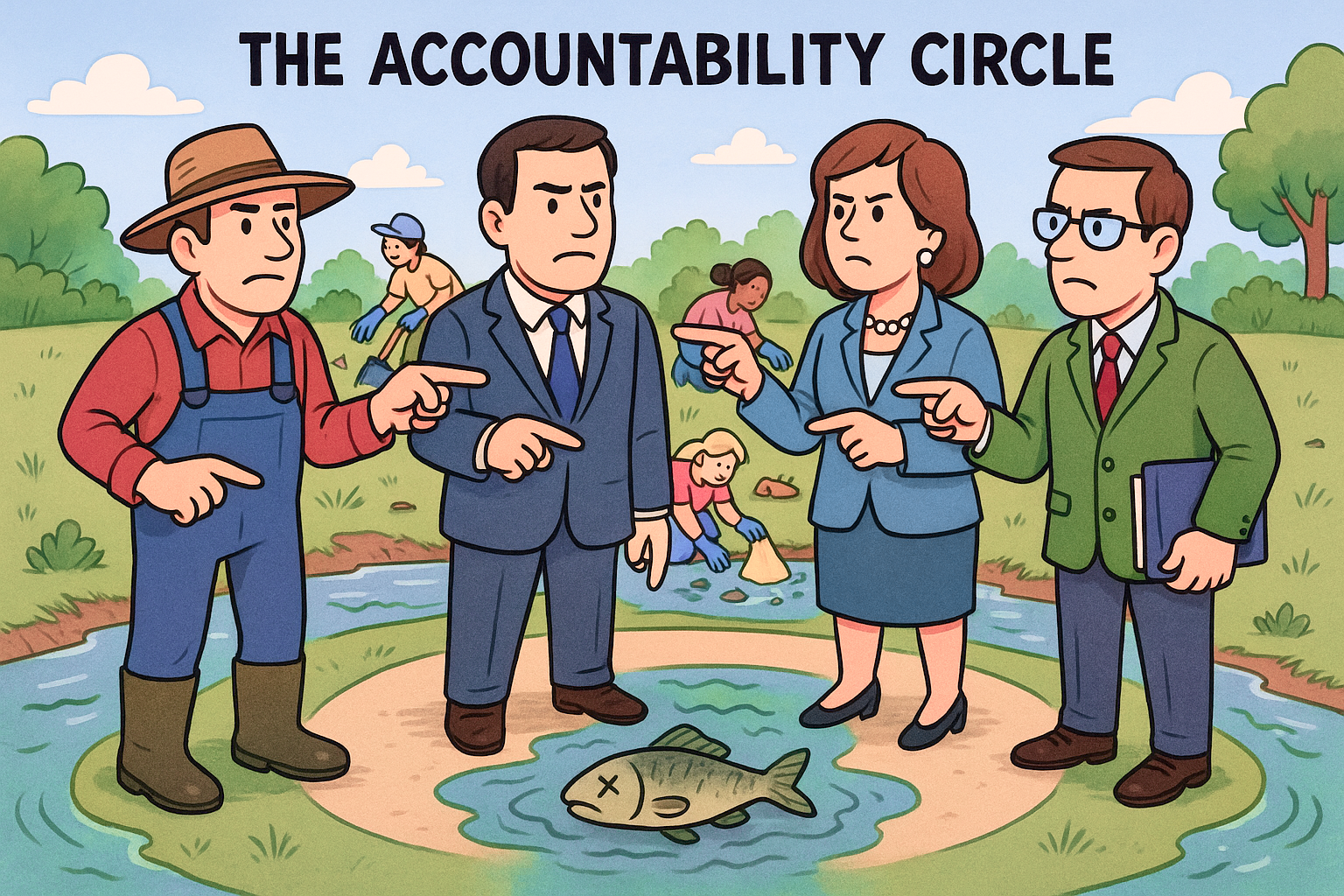
• via BBC News
Suffocating Welsh Waterways: How Bureaucracy Fails the Environment
Volunteers doing what paid officials cannot deliver
87% of Welsh voters support pollution action that institutions claim to be taking, yet waterways continue failing. The gap between public will, official process, and actual outcomes reveals how UK governance produces non-functioning results through functioning bureaucracy.
#environment #waterquality #marineconservation #regulatorycapture #institutionalfailure -
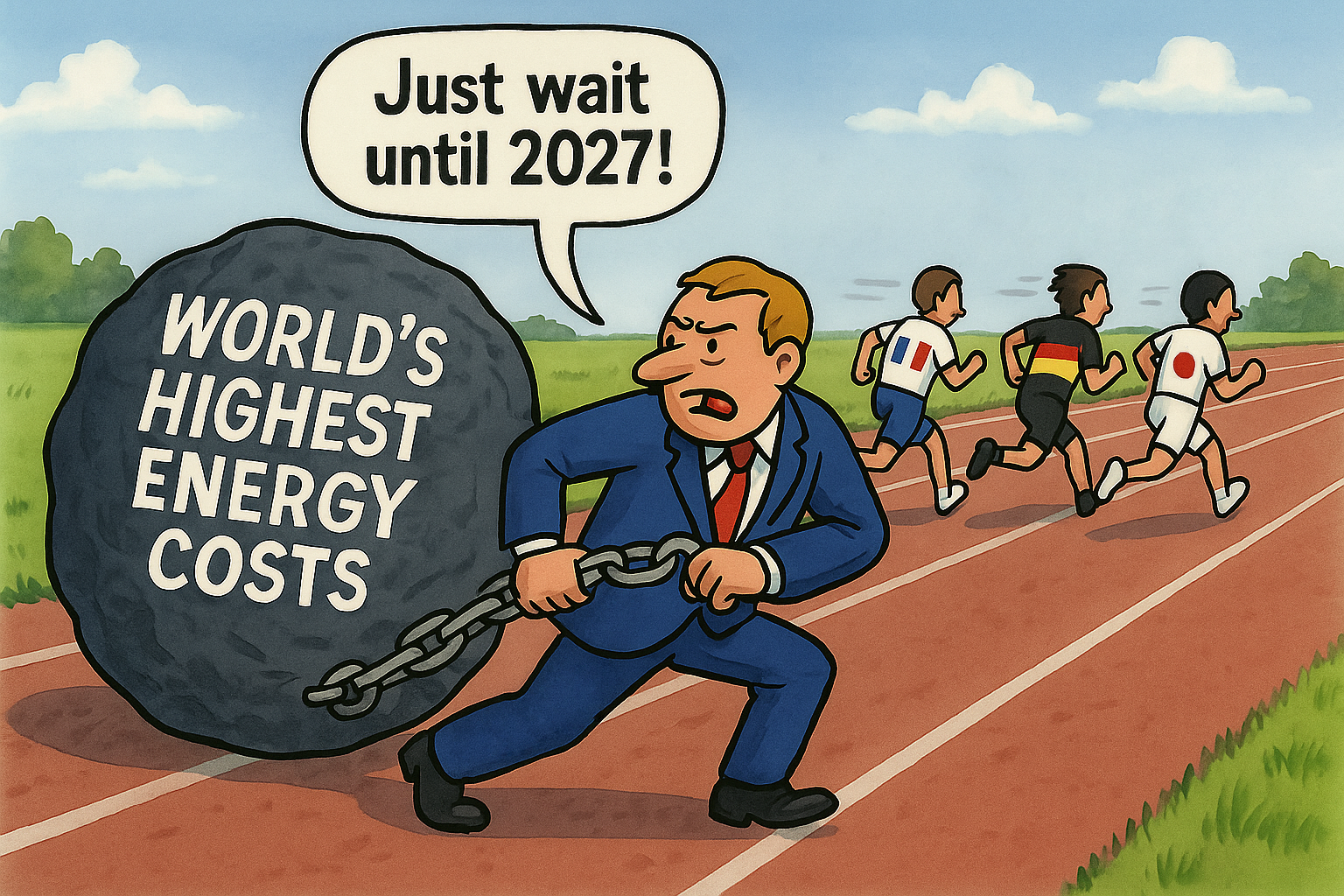
• via Sky News
Britain's Energy Crisis: A Policy Announcement or a Confession of Failure?
Eight Years Too Late, Three Years Too Slow
While Business Secretary Jonathan Reynolds announced plans to cut industrial energy costs, he inadvertently confirmed what has become a defining characteristic of modern Britain: world-leading failure dressed up as forward-thinking policy. The UK maintains the highest industrial electricity prices in the G7, a distinction that has persisted across multiple governments, and the solution being trumpeted won't begin until 2027—three years from now.
#energypolicy #industrialstrategy #governmentaccountability #economiccompetitiveness #institutionalfailure -
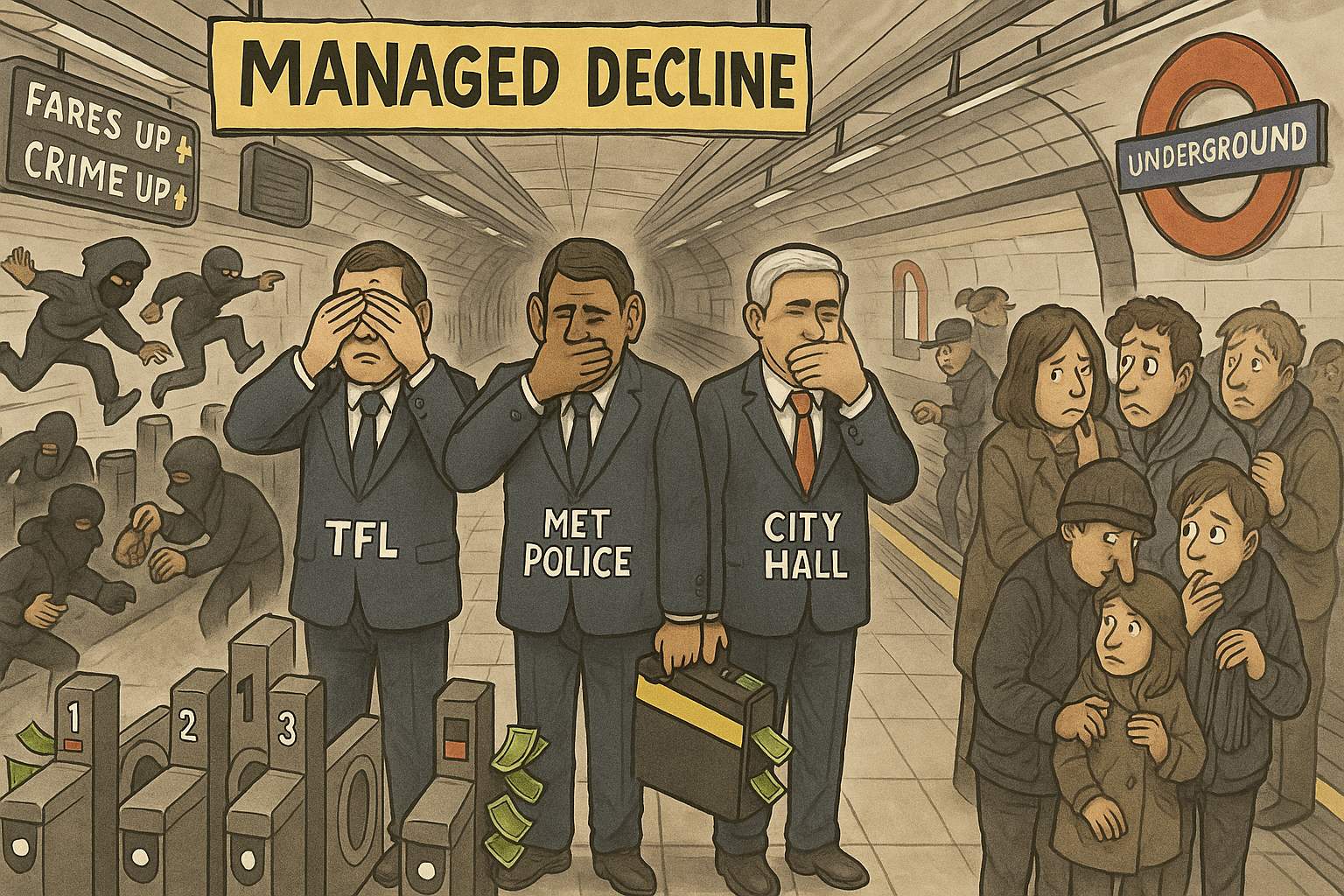
• via Bloomberg UK
The Managed Decline of London: How Britain's Institutions Normalized Disorder
A deliberate policy choices of leaders and institutions that redefined normalcy downward.
London's disorder is not only a failure of governance but also deliberate policy choice by Britain's institutional classes to redefine normalcy downward. From rampant fare evasion to the normalization of drug dealing, the managed decline of public order serves powerful interests while leaving citizens to bear the costs.
#london #disorder #institutionalfailure #publicpolicy #crime -
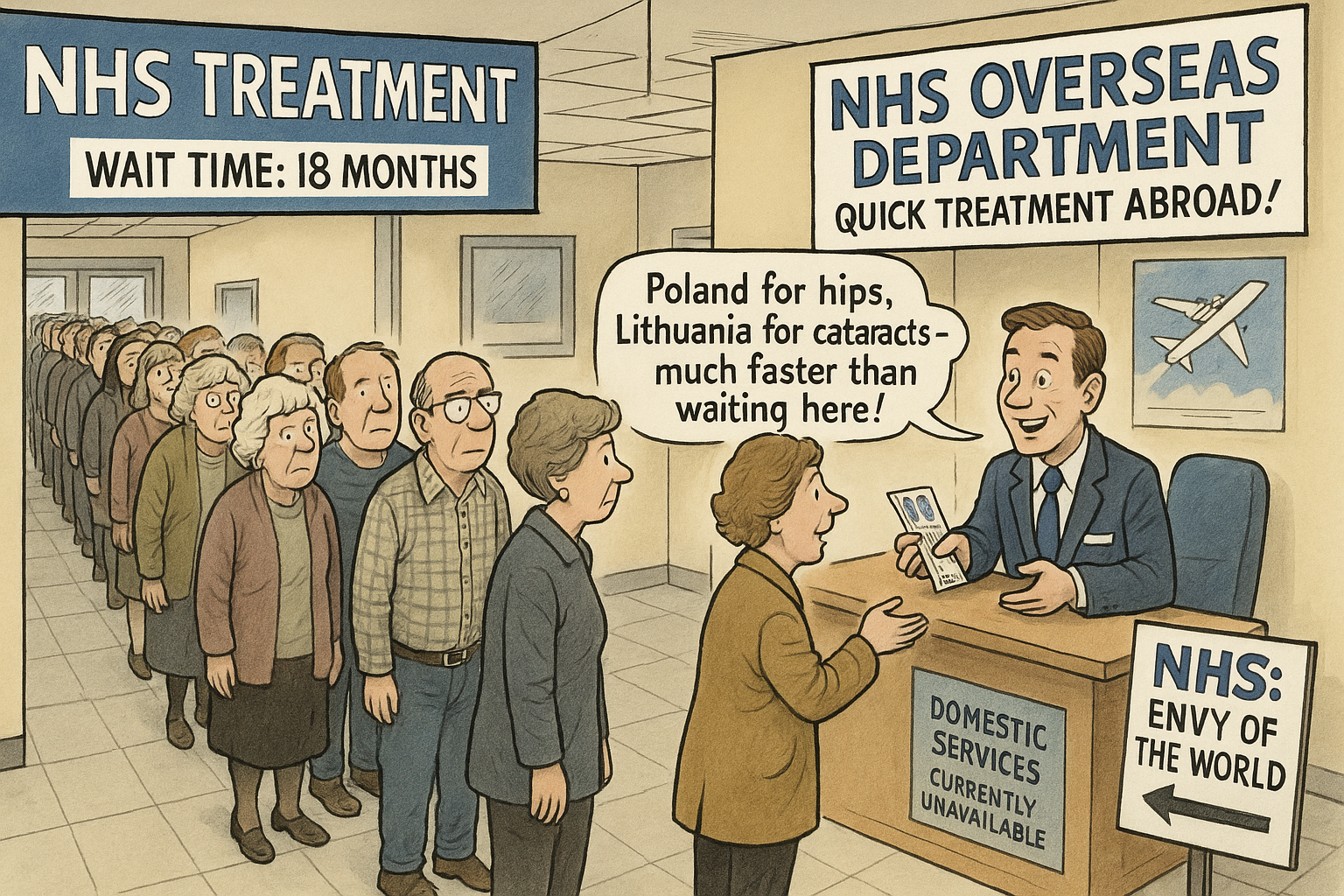
• via Telegraph
The NHS Exodus: When Poland Outperforms Britain
British patients now flee to Eastern Europe for procedures their own system can't provide
While politicians continue proclaiming the NHS as the "envy of the world," British patients are now fleeing to Poland, Lithuania, and the Czech Republic for basic medical care their own healthcare system cannot provide. This isn't medical tourism—it's medical refuge, funded by a health service so broken that paying foreign hospitals has become cheaper than fixing domestic capacity.
#nhs #healthcare #institutionalfailure #medicalrefugeecrisis #waitinglists -
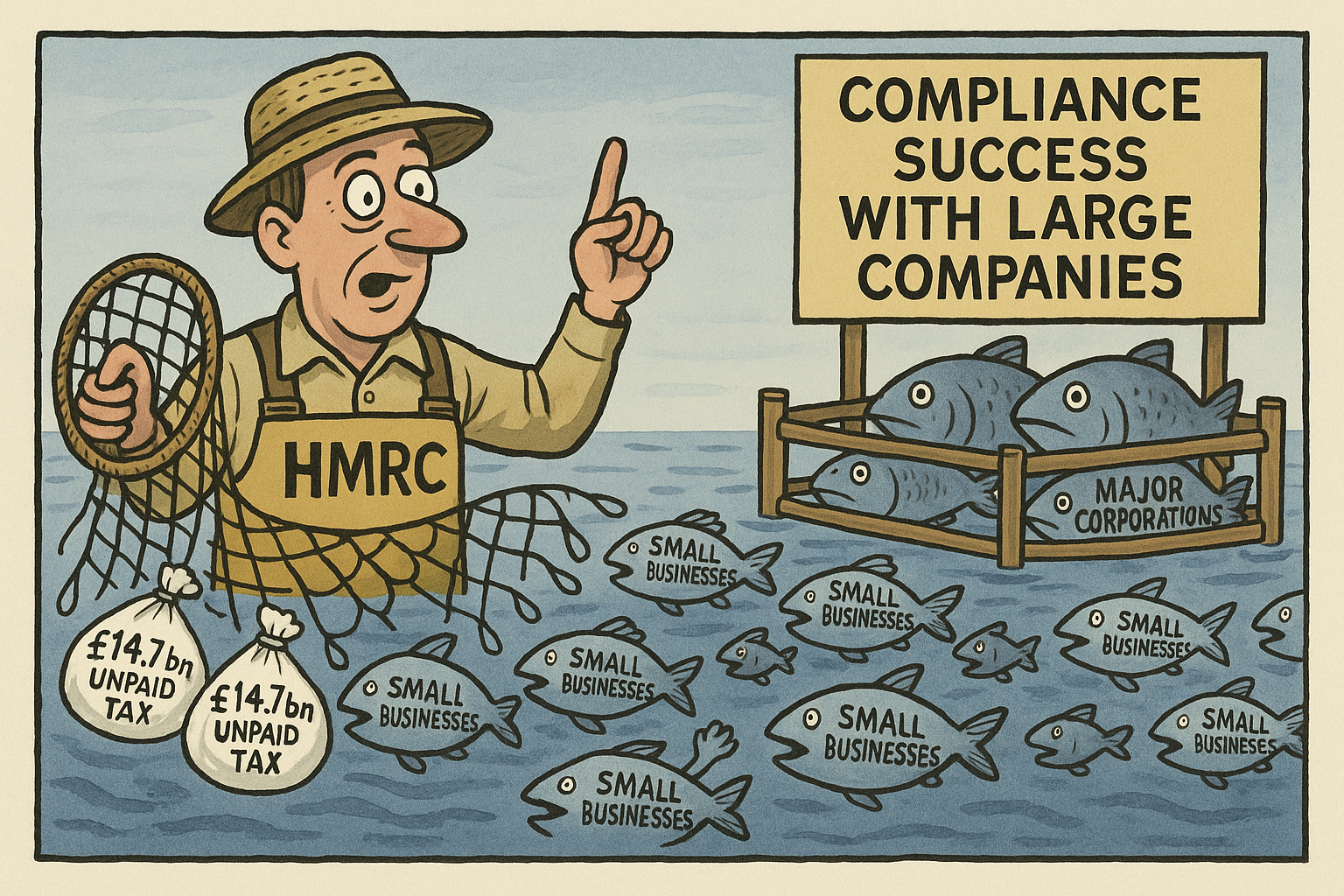
• via Financial Times
HMRC's Small Business Tax Collapse: When the Revenue Collector Can't Collect Revenue
Again, the Numbers Tell the Story
While Treasury ministers promise to make "everyone pay their fair share," the latest HMRC figures reveal a tax collection system in institutional breakdown, with small businesses now successfully avoiding 40% of what they owe.
#hmrc #taxation #smallbusiness #governmentfailure #institutionalbreakdown -
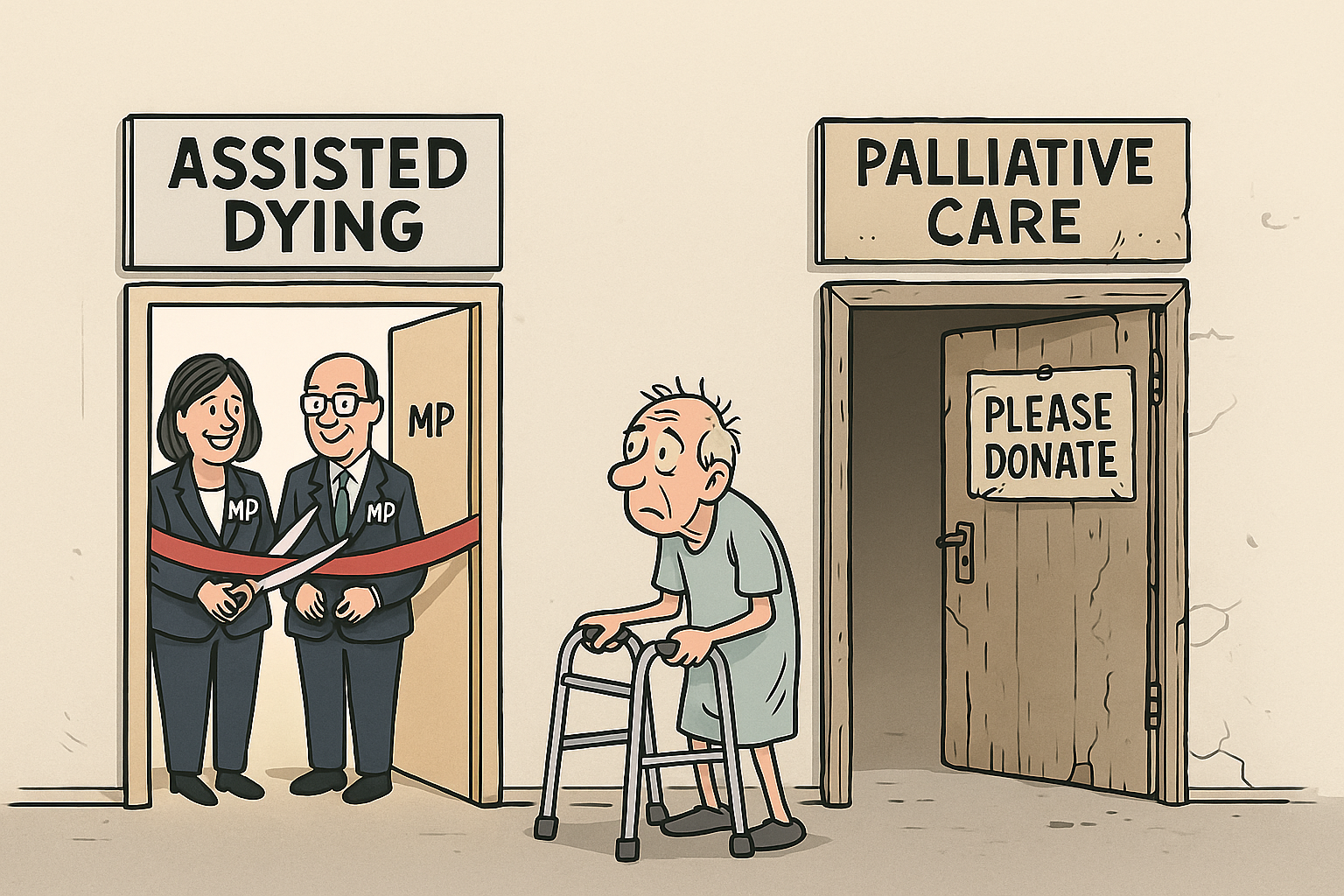
• via The Guardian
The Assisted Dying Vote: A Case Study in How Britain Really Makes Policy
Parliament Legislates for Death While Healthcare Crumbles
On a Friday afternoon in Westminster, 605 MPs decided the state should help terminally ill citizens die. What they didn't decide—because they couldn't—was how, when, or who would pay for it. This gap between legislative ambition and implementation reality reveals everything about how modern Britain actually functions.
#assisteddying #healthcarepolicy #legislativeprocess #institutionalfailure #publicservices -

• via The Independent
30,000 Preventable Deaths: The Air We Breathe
Britain's Air Quality Crisis
The Royal College of Physicians has delivered another damning assessment of British institutional failure, documenting how 99% of the UK population now breathes "toxic air" in what amounts to the largest preventable health crisis in modern Britain. Yet the response reveals everything about how this country's governing classes have learned to manage decline rather than prevent it.
#airquality #publichealth #institutionalfailure #inequality #environmentalpolicy -

• via The Guardian
HS2: A £100 Billion Monument to Institutional Failure
The Numbers Tell the Story
HS2 was supposed to cost £20 billion in 2012. It will now cost over £100 billion and won't open until at least 2035. The first trains were meant to run in 2026. That target became 2033. Now Transport Secretary Heidi Alexander admits there is "no reasonable way" to meet even that revised deadline.
#hs2 #infrastructure #governmentfailure #institutionaldysfunction #publicspending -
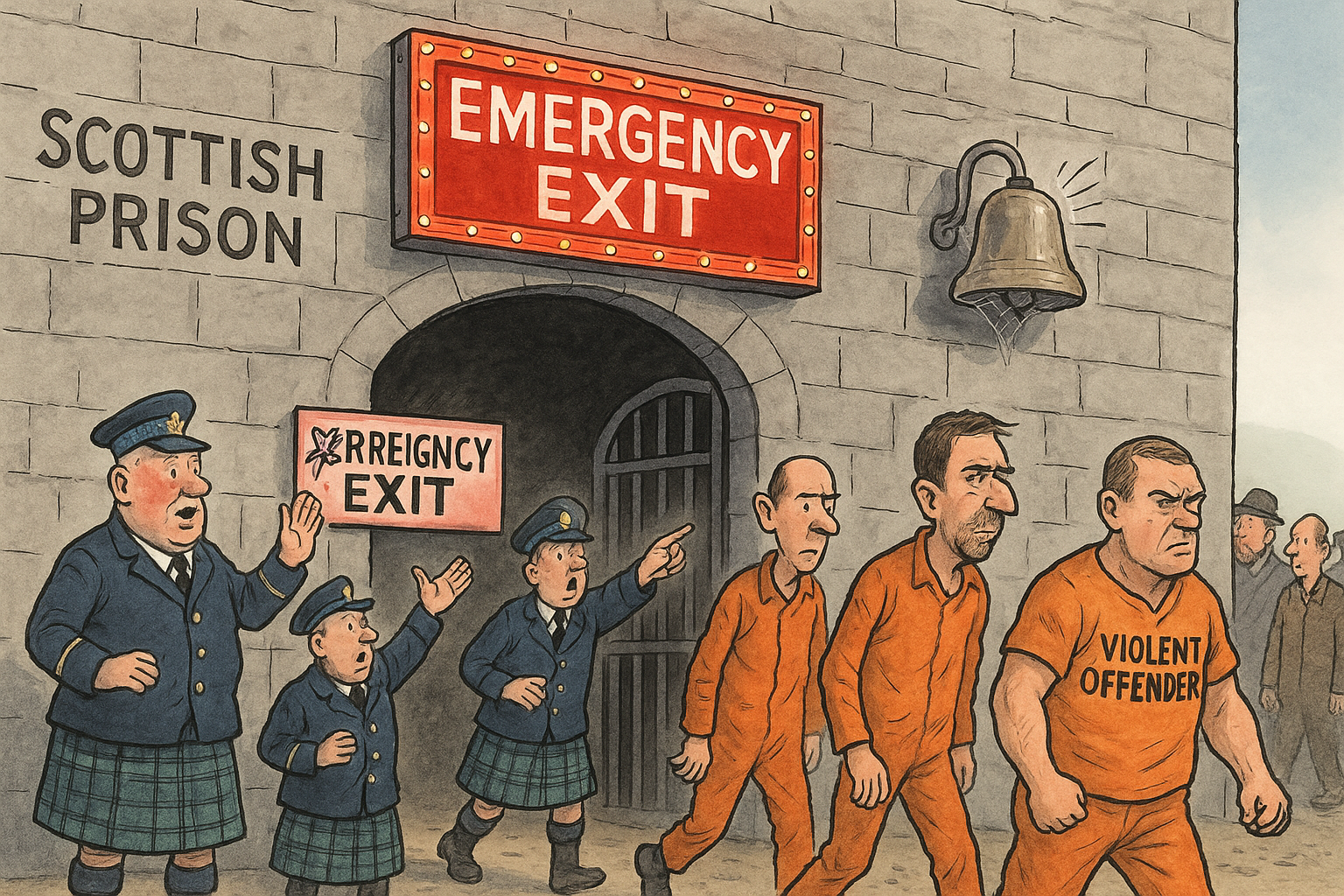
• via BBC News
Scotland's Prison Crisis: Violent Criminals Released Early as System Collapses
How Emergency Measures Become Institutional Normalization
Scotland has just admitted it can no longer perform one of the state's most basic functions: keeping violent criminals in prison for their court-ordered sentences. In February and March 2025, authorities released 312 inmates—including 152 violent offenders—after serving just 40% of their terms, down from an already inadequate 50% threshold established months earlier.
#scotland #prisonsystem #criminaljustice #governmentfailure #institutionaldysfunction -
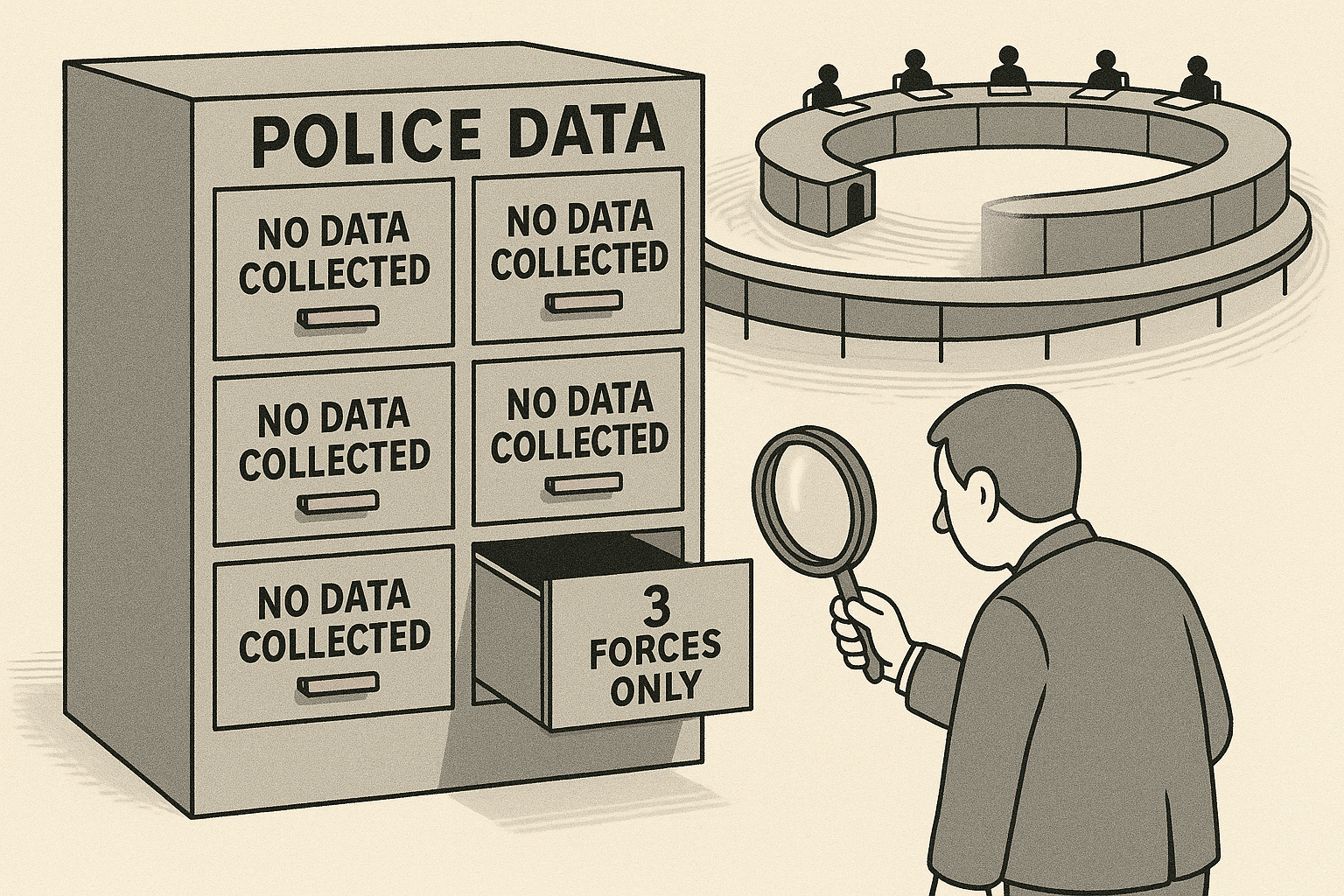
• via The Spectator
The Casey Report: When Institutions Prefer Ignorance to Accountability
How Grooming Gangs Expose Britain's Institutional Decay
Louise Casey's grooming gangs report has revealed a truth more damaging than the crimes it investigates: Britain's institutions have systematically avoided collecting the data necessary to understand and address widespread child sexual exploitation. Two-thirds of police forces have failed to record the ethnicity of perpetrators, creating what Casey diplomatically terms a "culture of ignorance."
#groominggangs #crime #institutionalfailure #accountability #police -
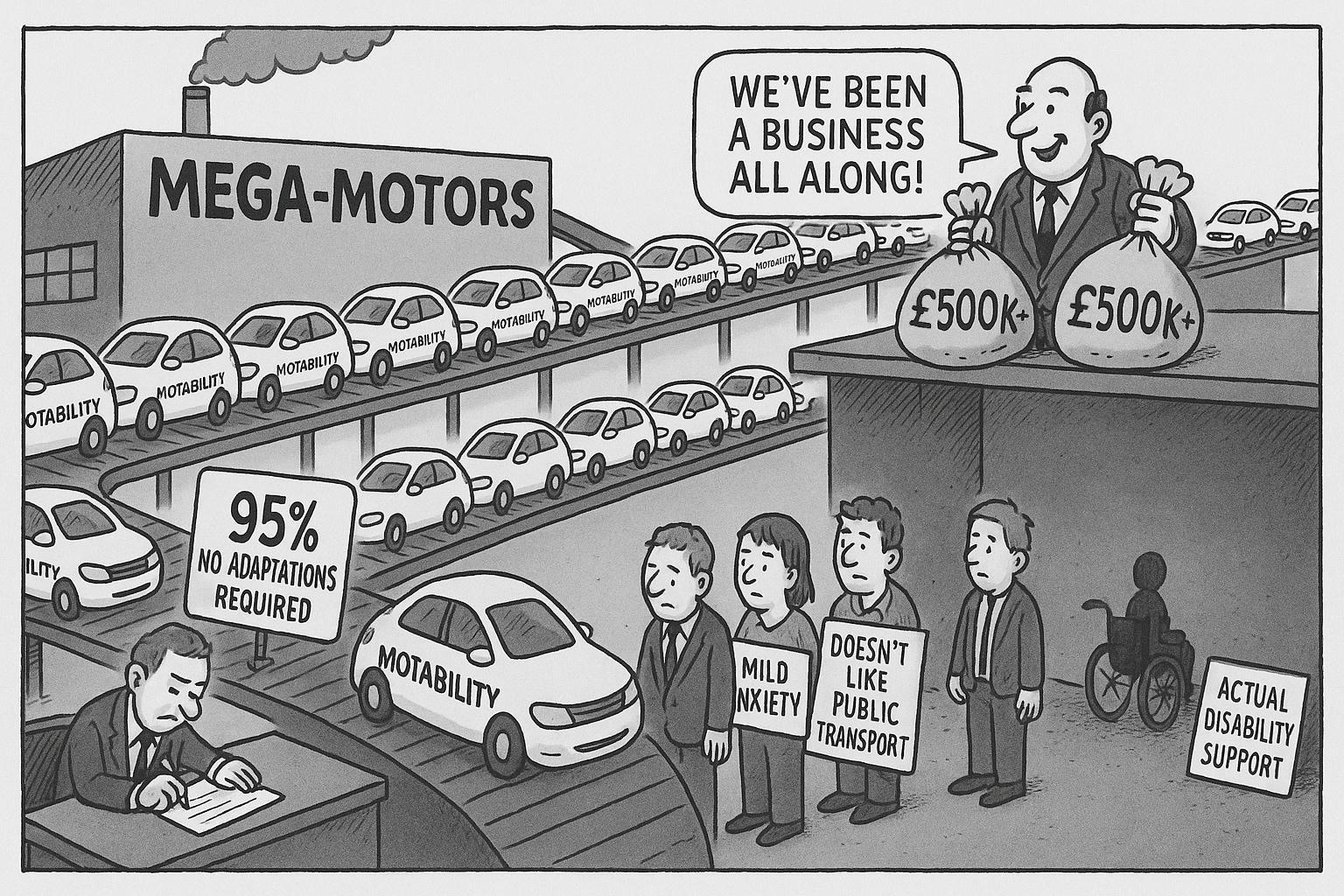
• via The Spectator
The Motability Machine: When Public Service Becomes Private Profit
How a Disability Support Scheme Became a £14 Billion Car Leasing Empire
Lana Hempsall's investigation into Motability reveals a textbook case of institutional mission drift. What began as essential support for severely disabled individuals has morphed into Britain's largest vehicle leasing operation, operating under the protective umbrella of public benefit while generating substantial private returns.
#motability #disabilityrights #institutionalfailure #publicservices #governmentaccountability -

Introducing The Decliner
A New Approach to Political Commentary
British political analysis has reached a critical impasse, trapped within tribal boundaries where commentary serves allegiance rather than accuracy. The Decliner employs systematic evaluation methods that transcend partisan positioning, combining evidence-first methodology with AI-enhanced analysis and full transparency of prompts and methodologies.
#politicalcommentary #evidence-basedanalysis #institutionalperformance #aiinjournalism #transparency